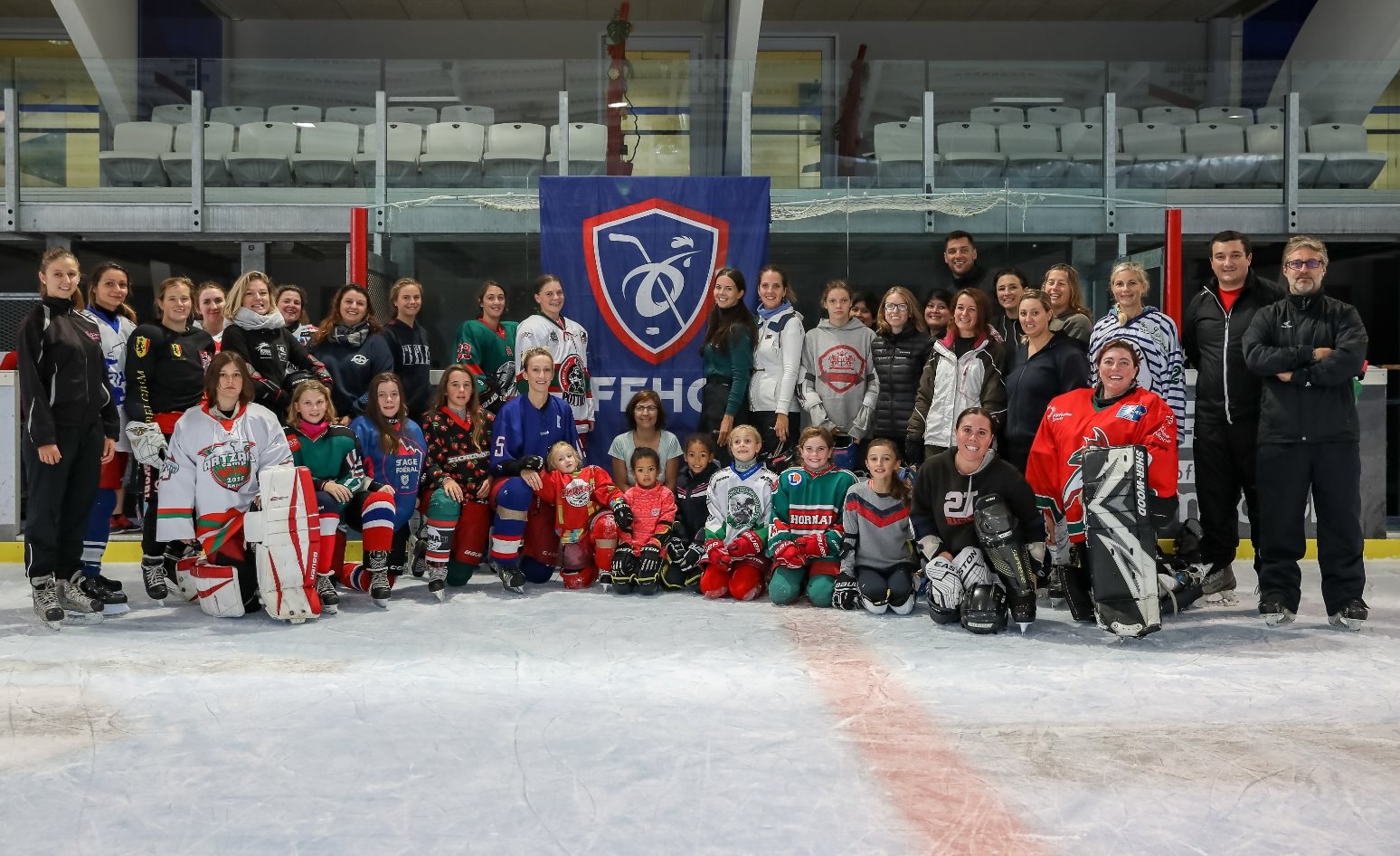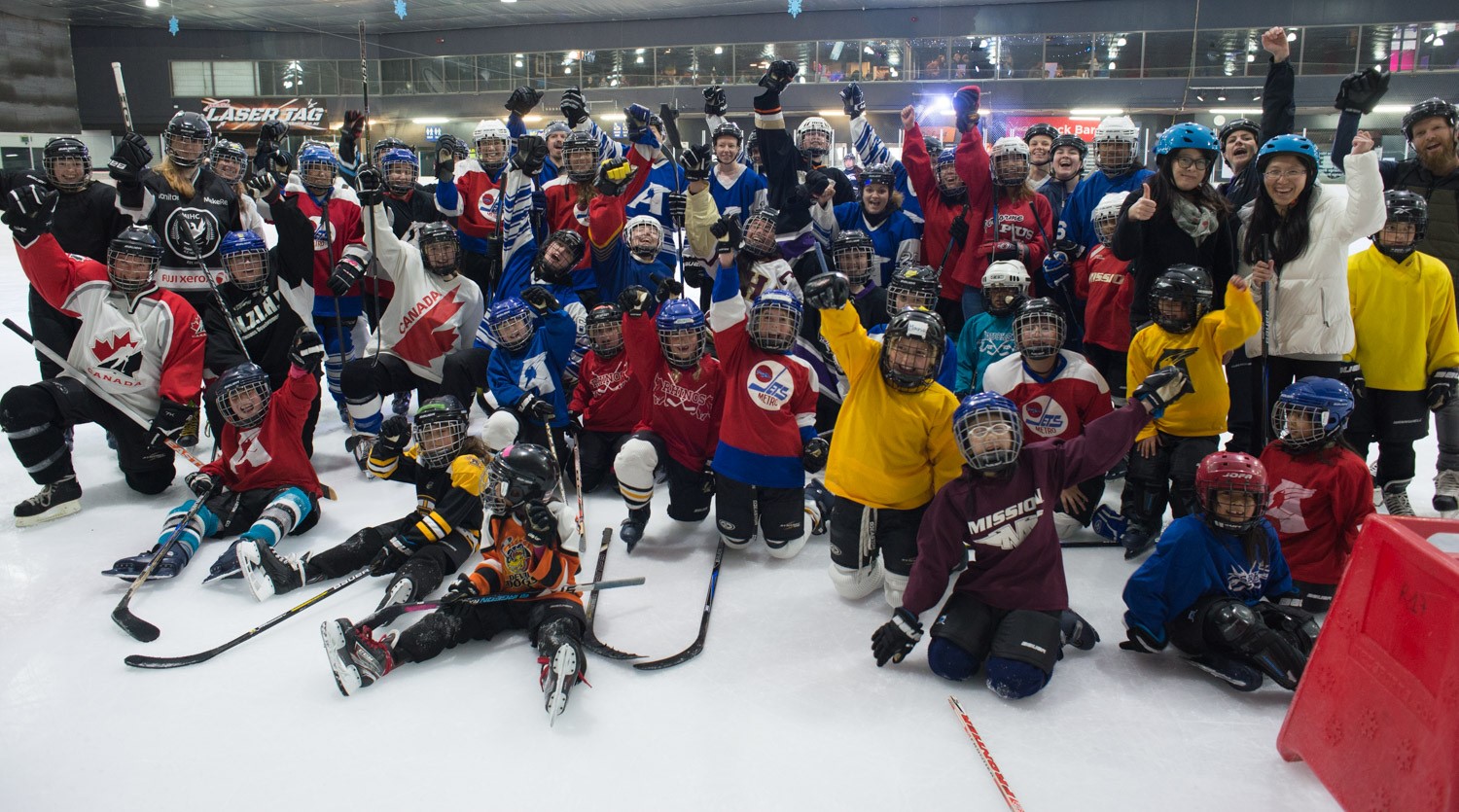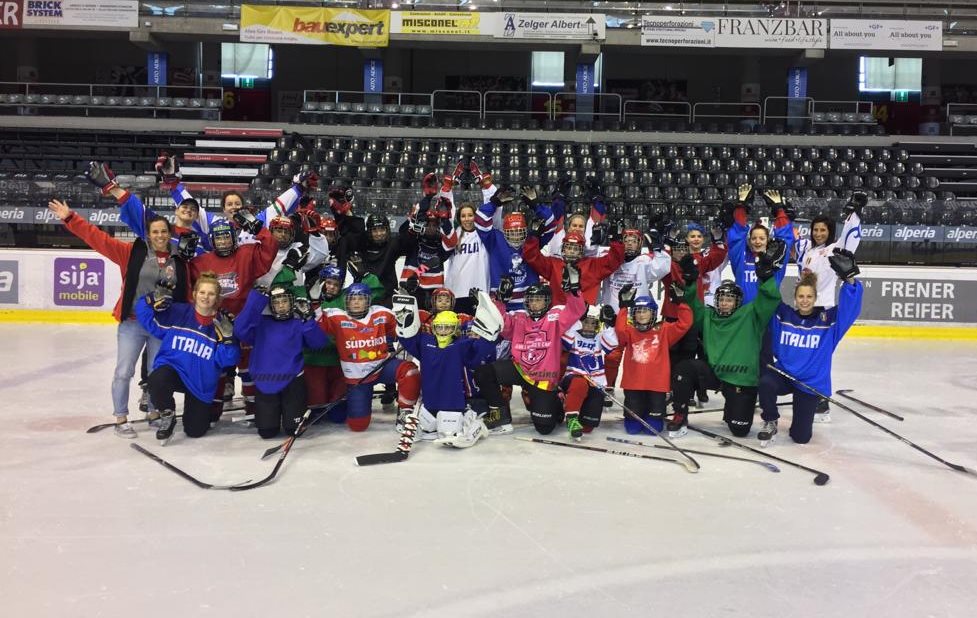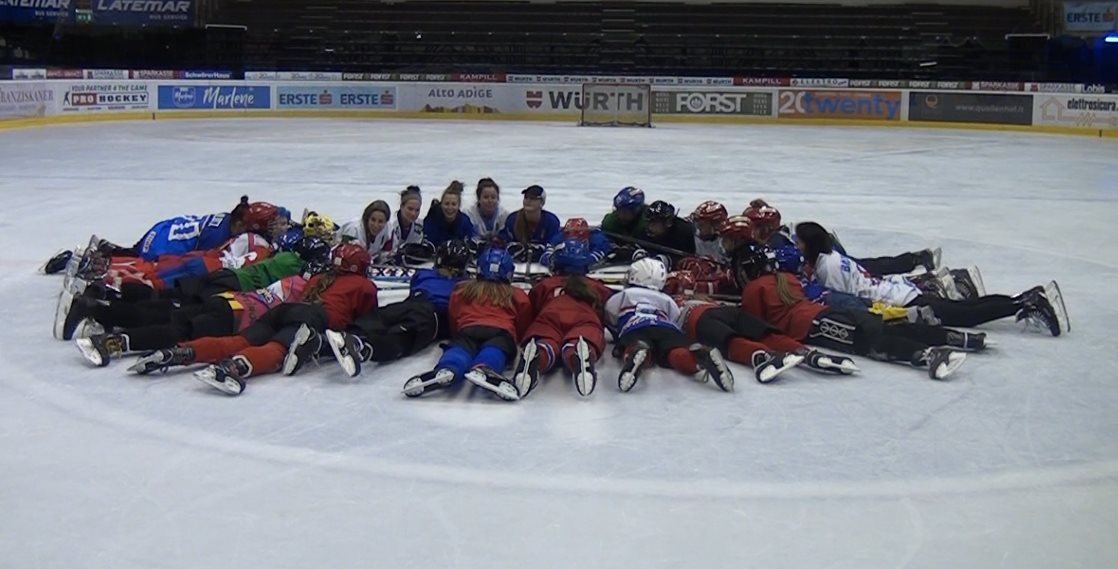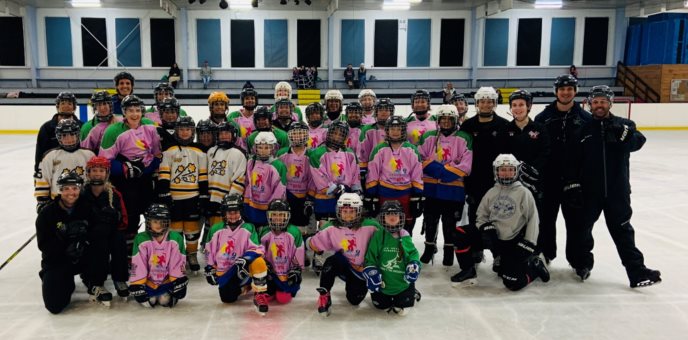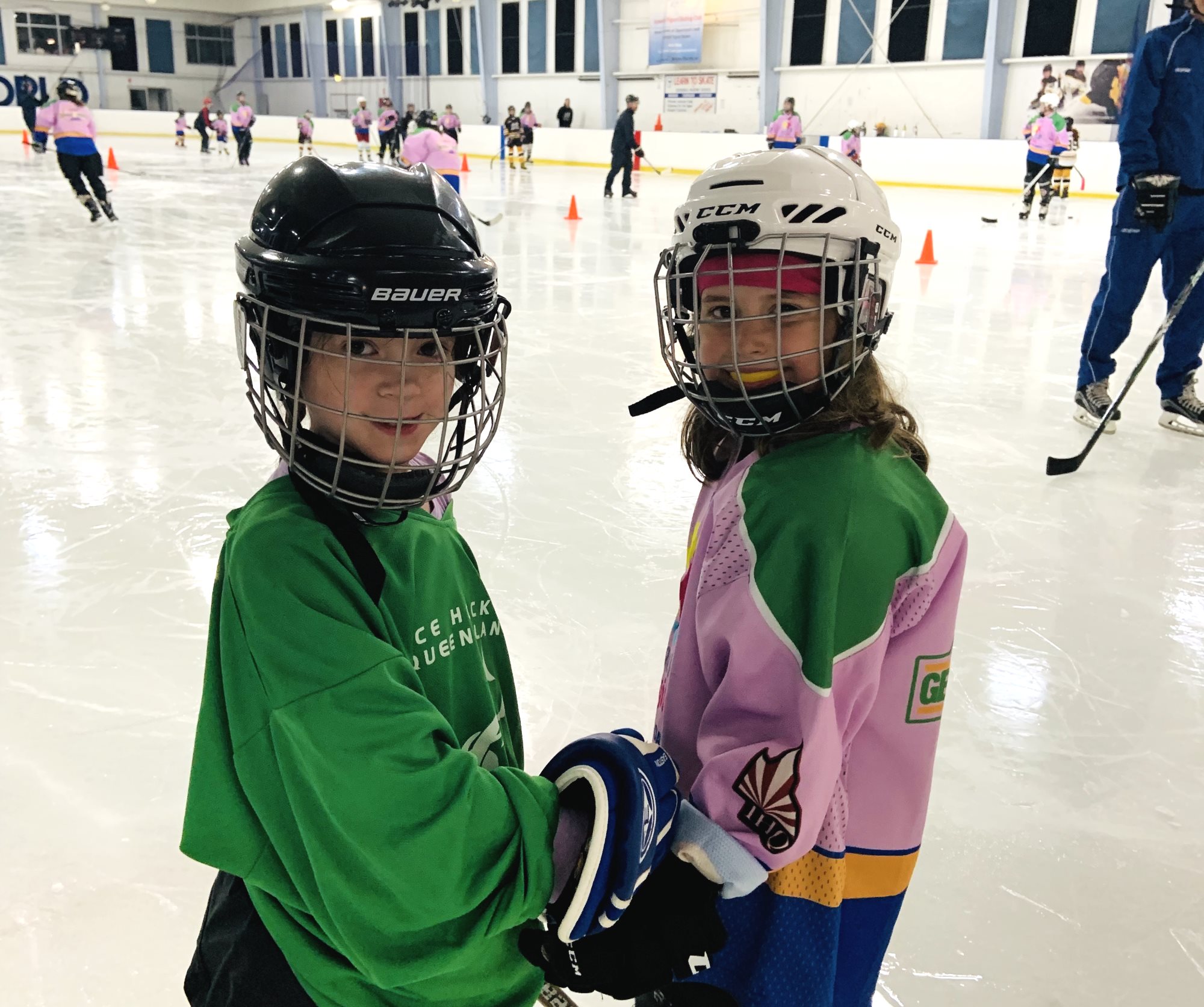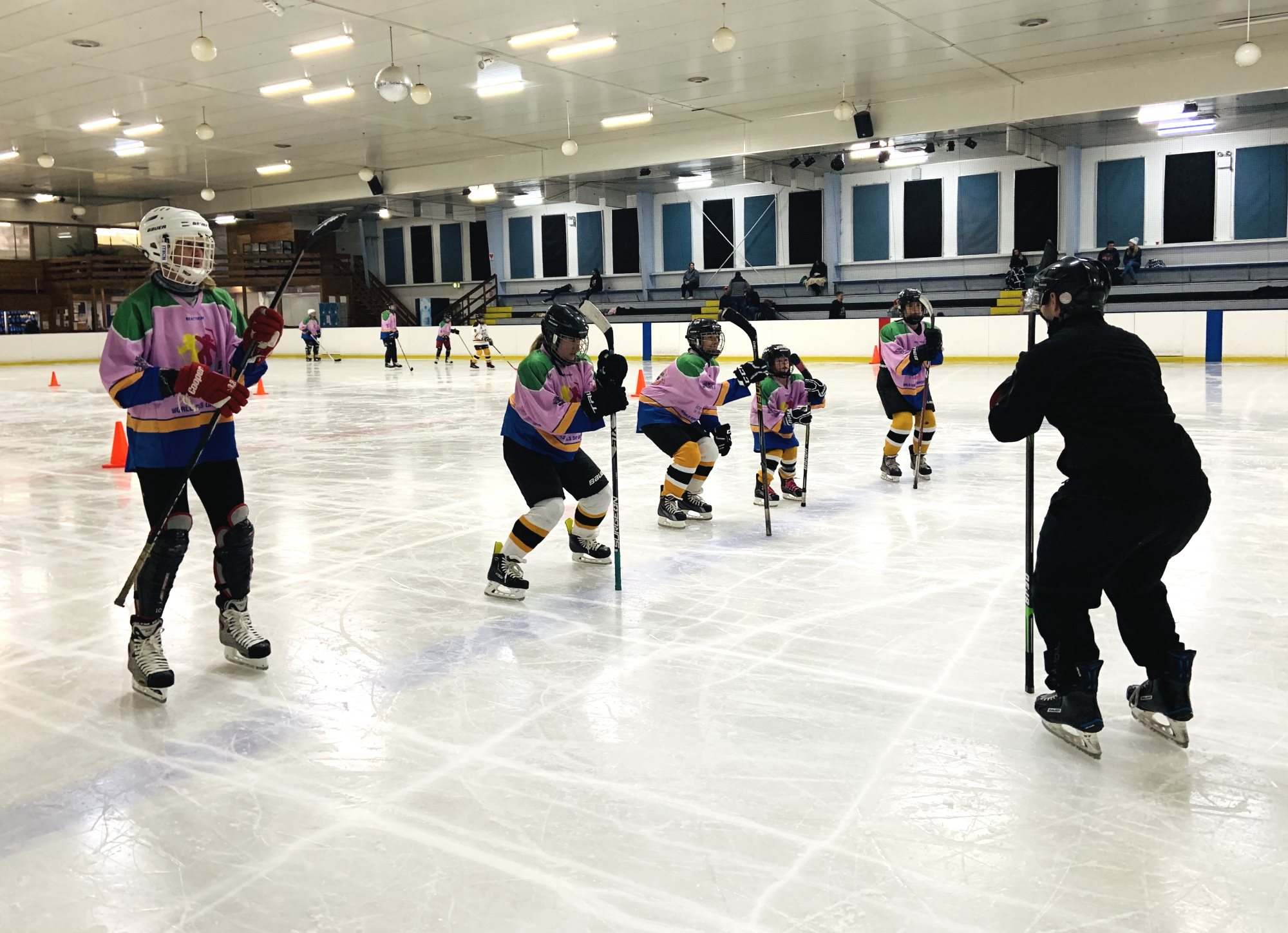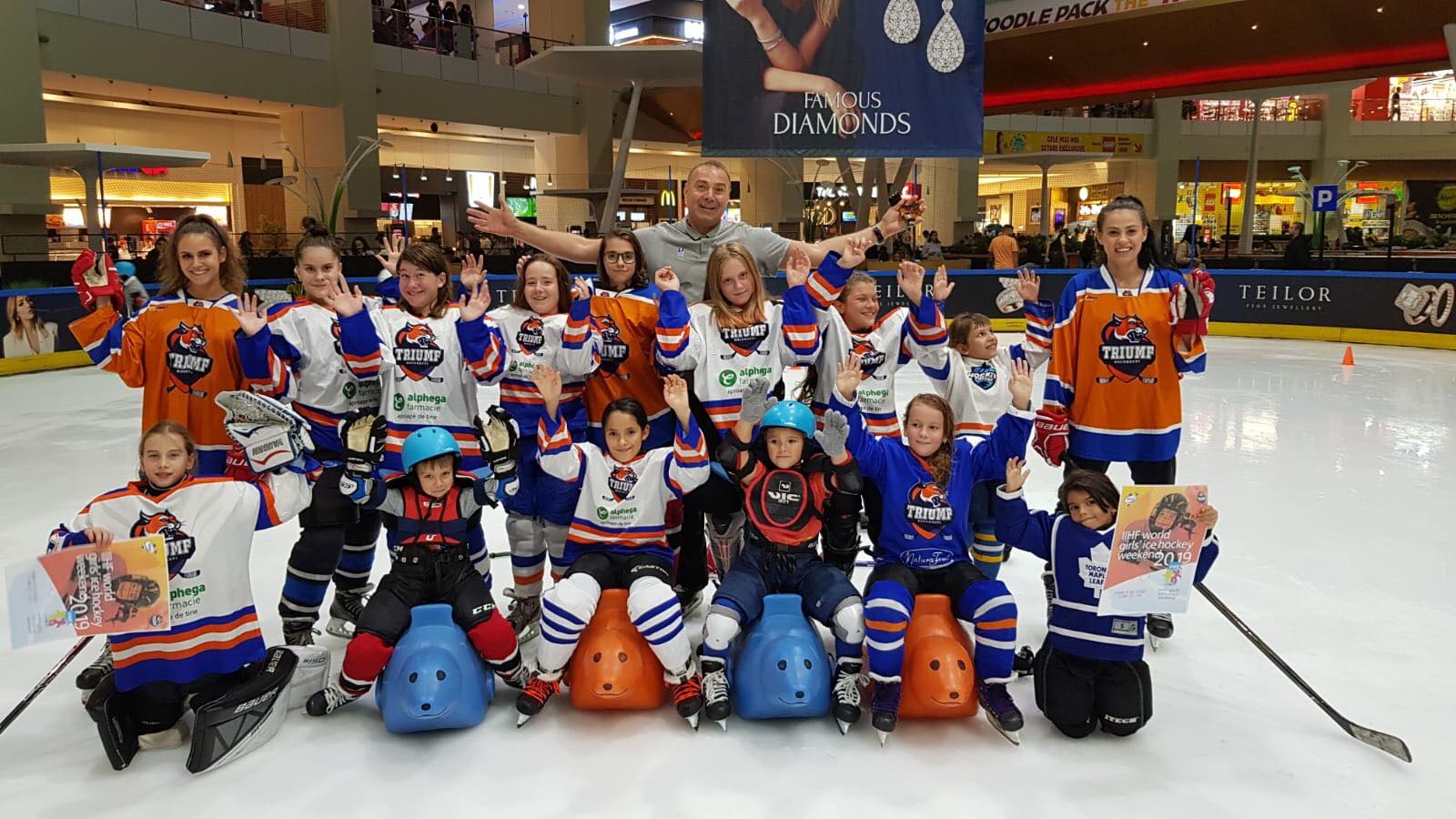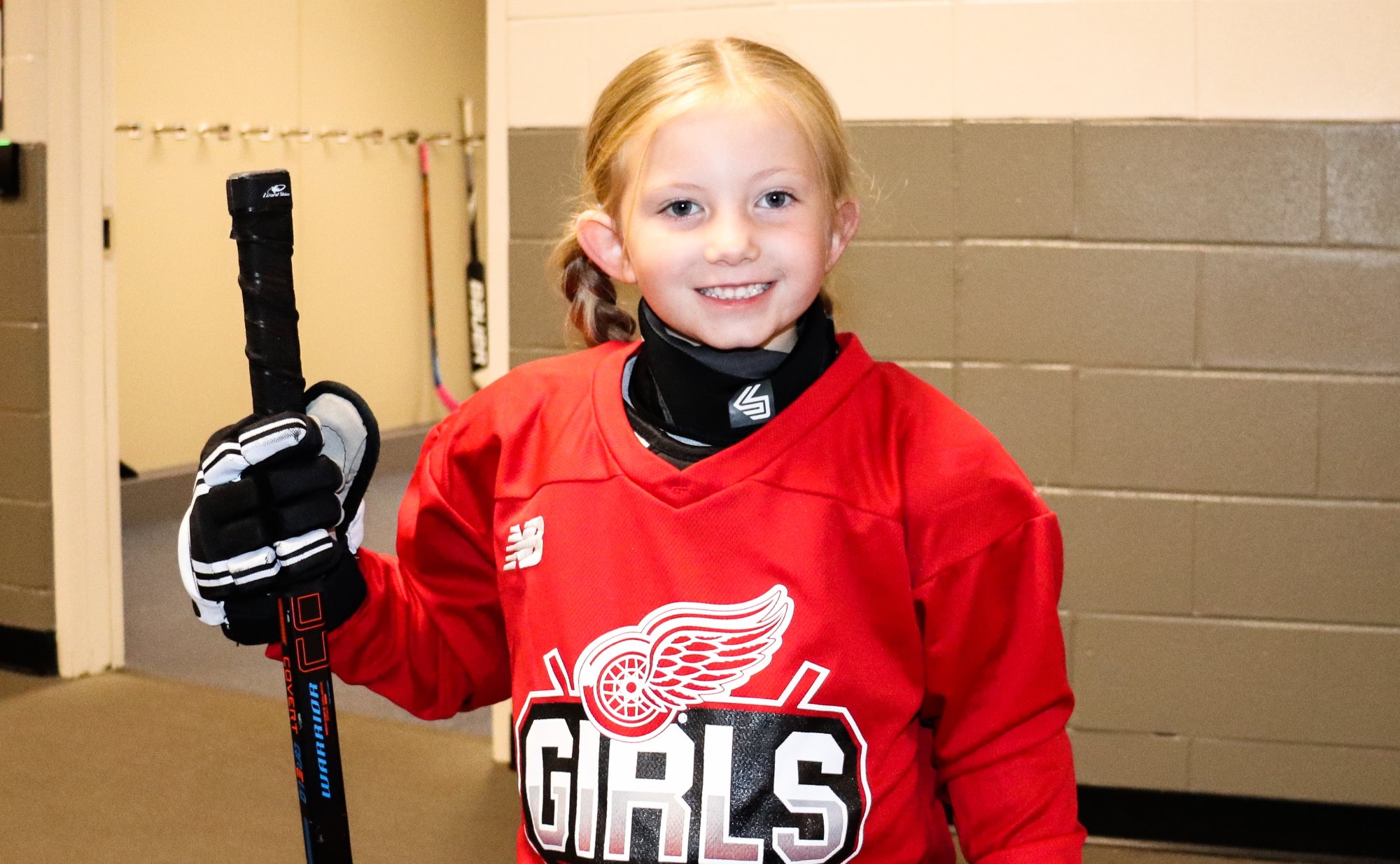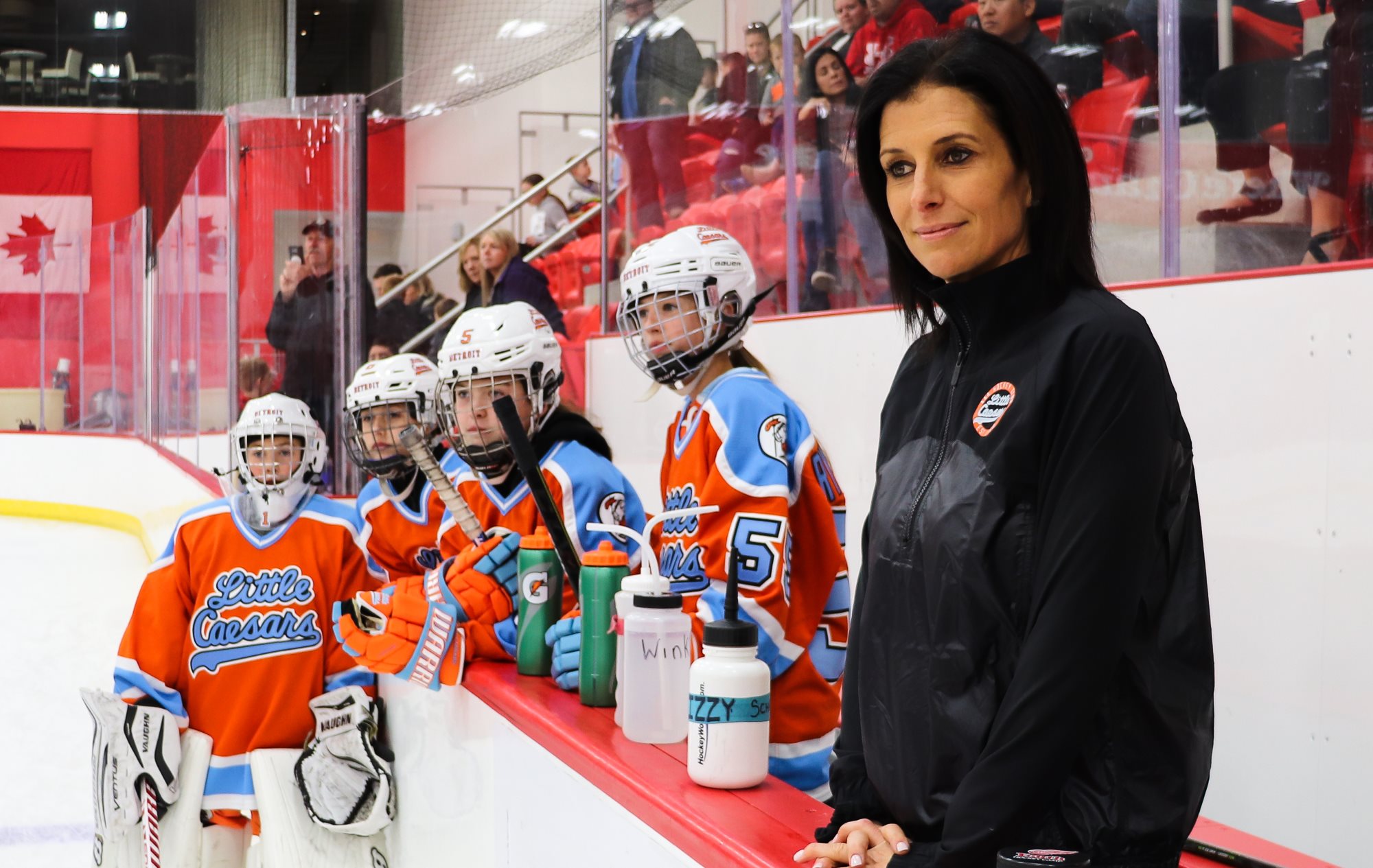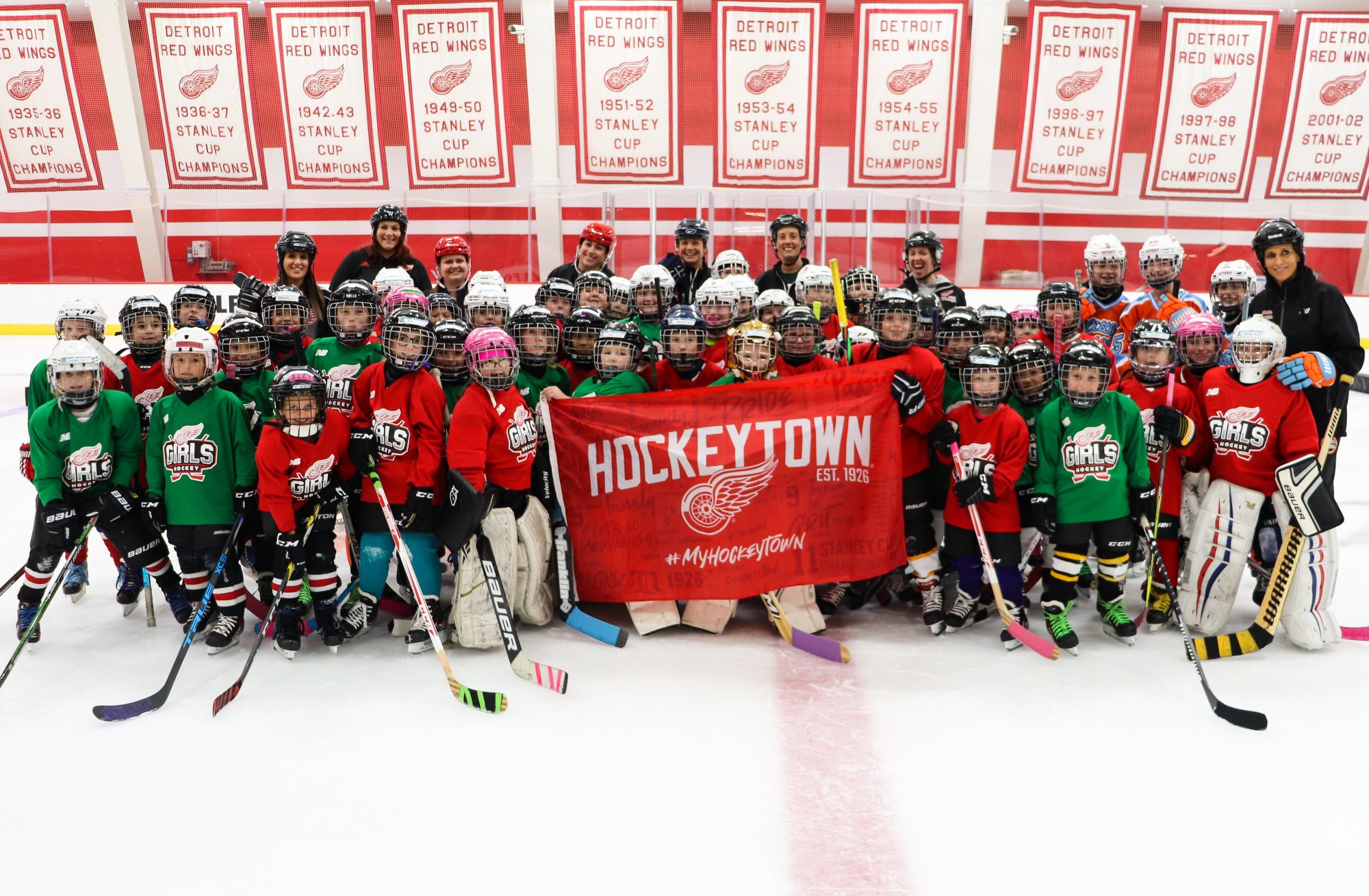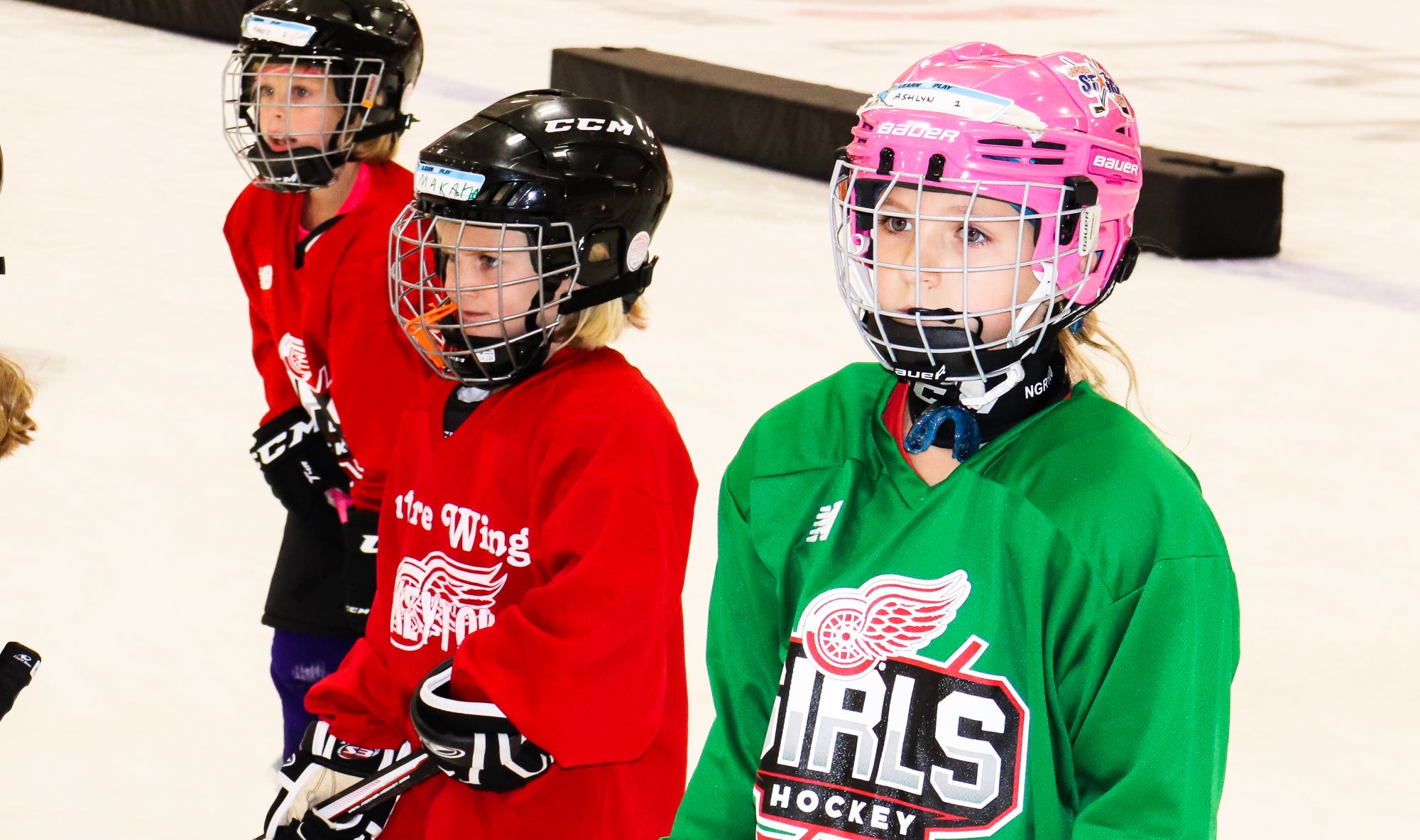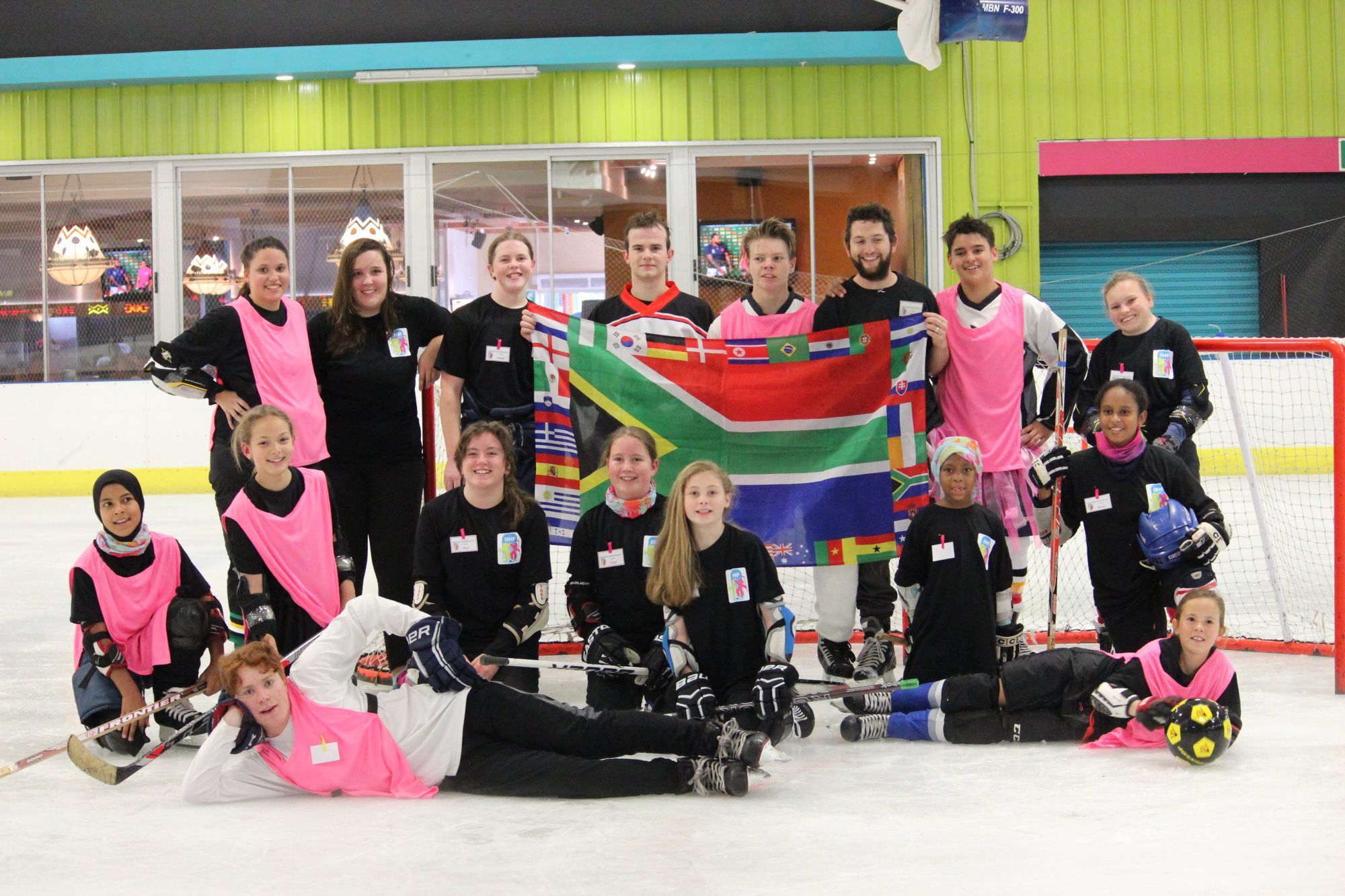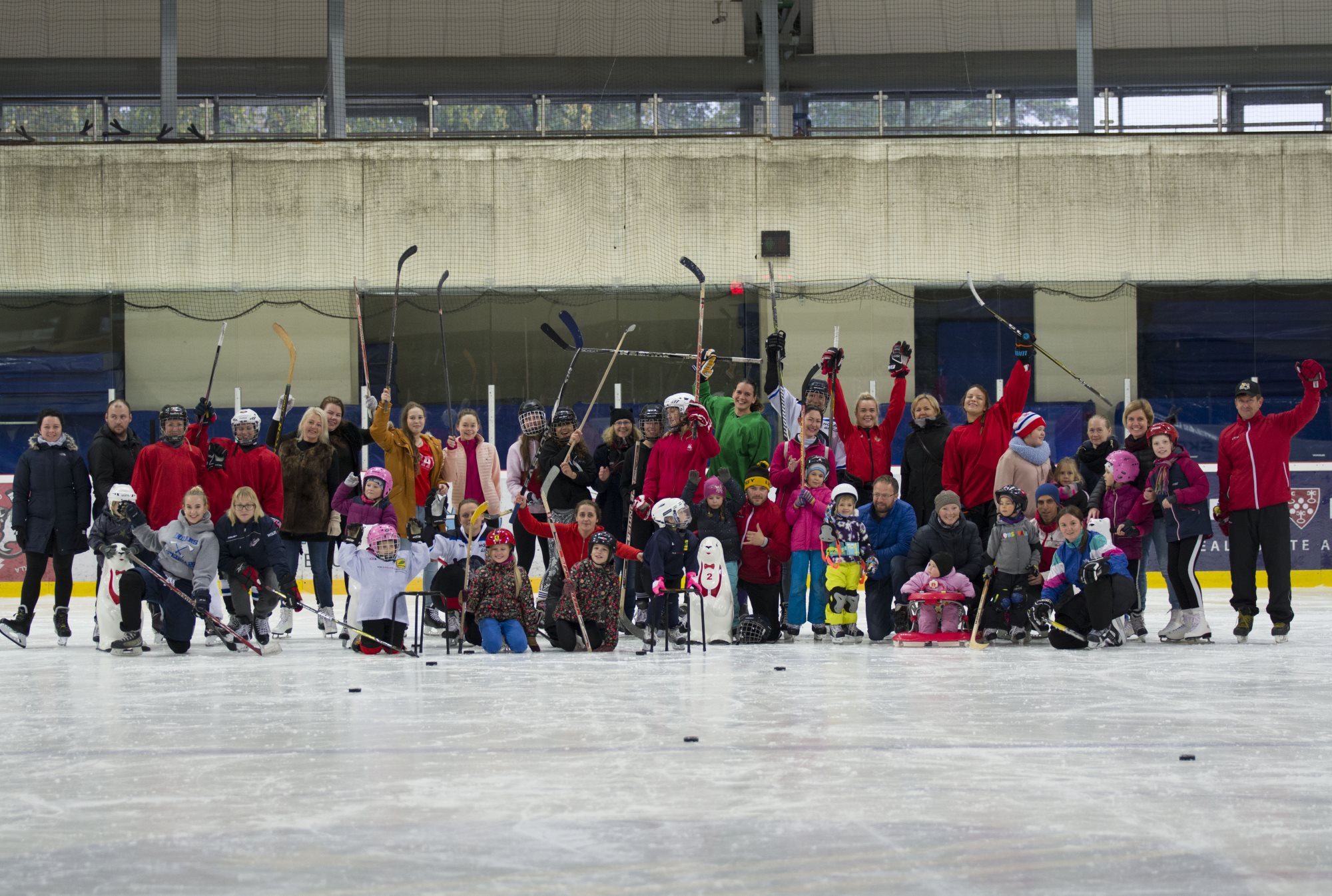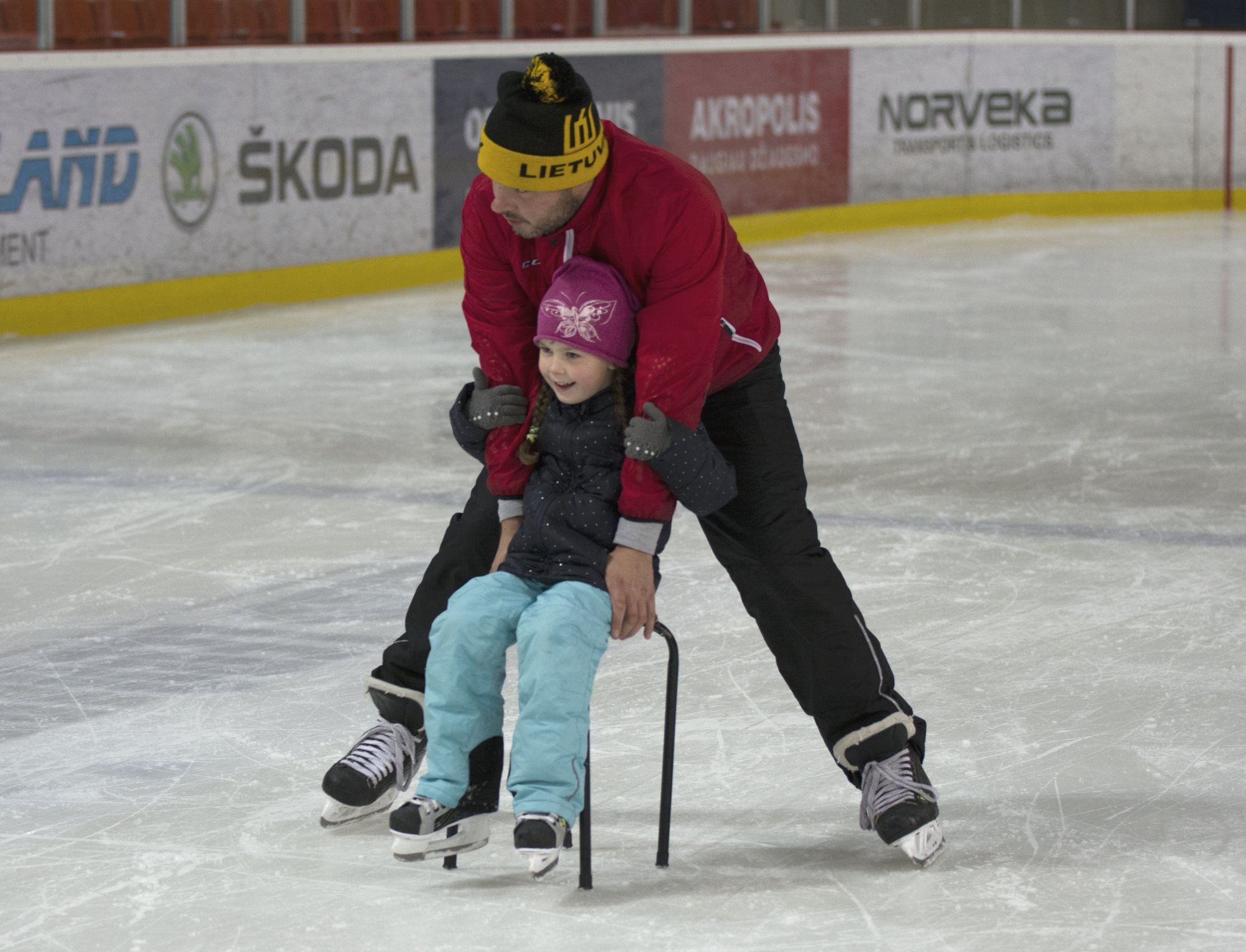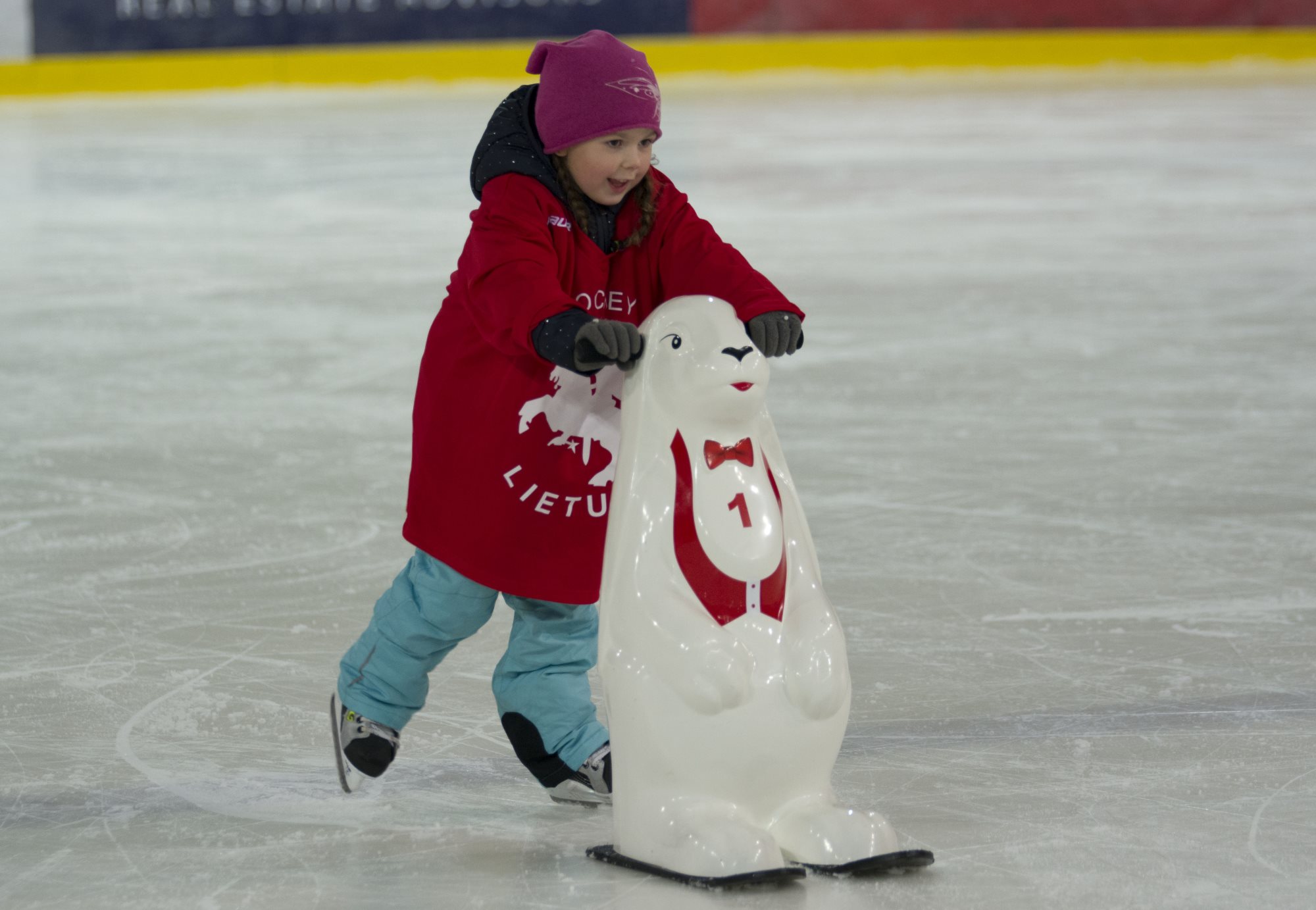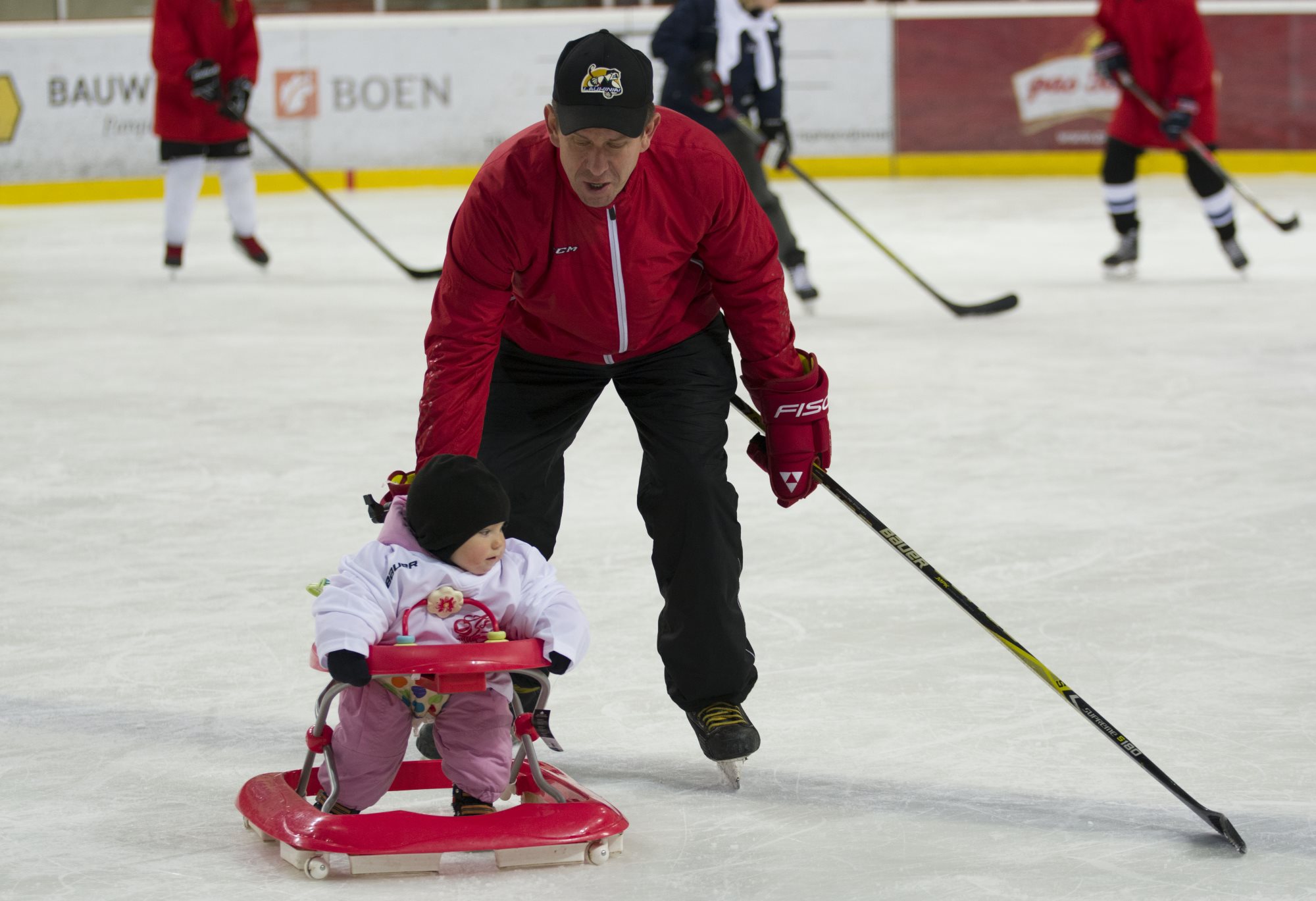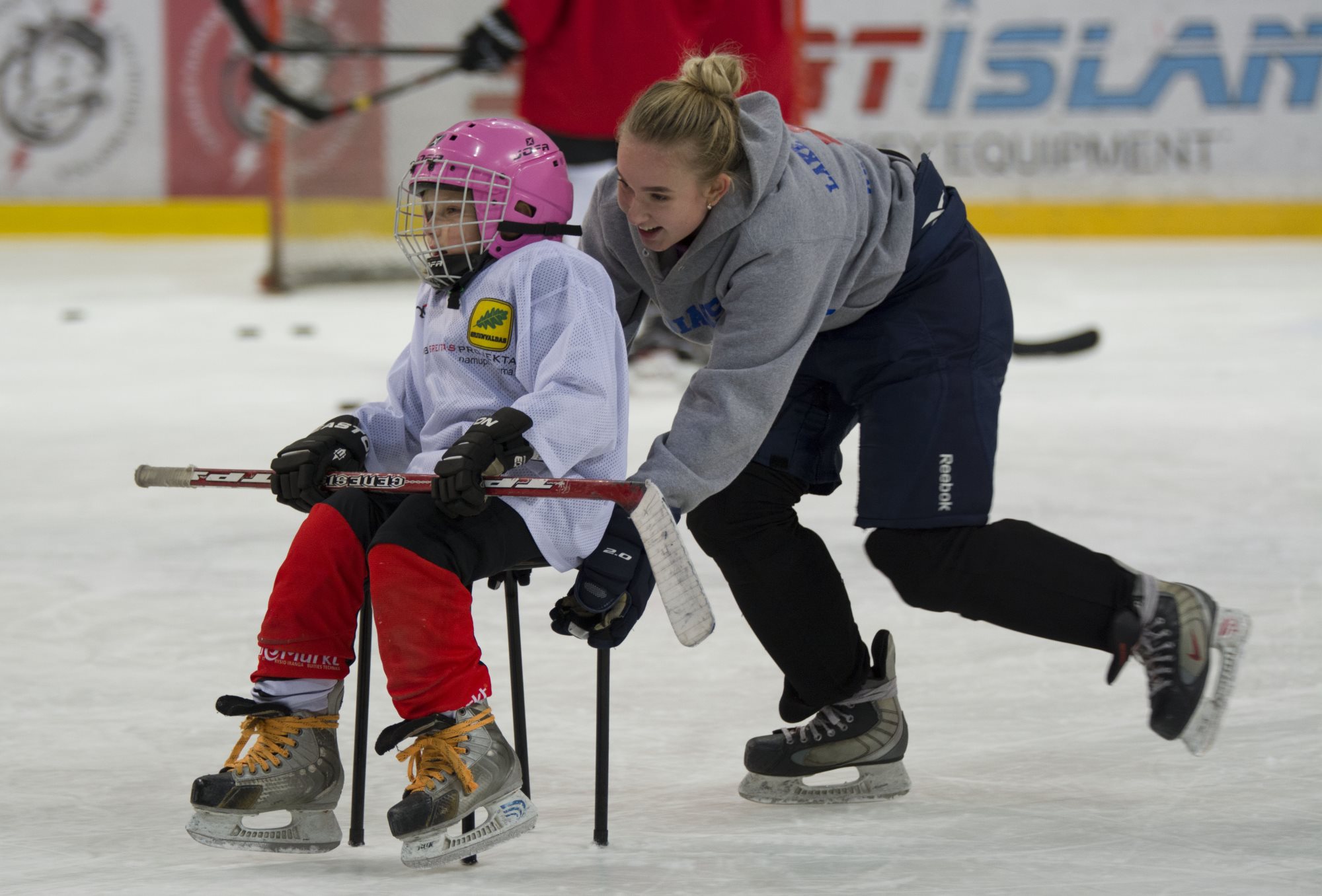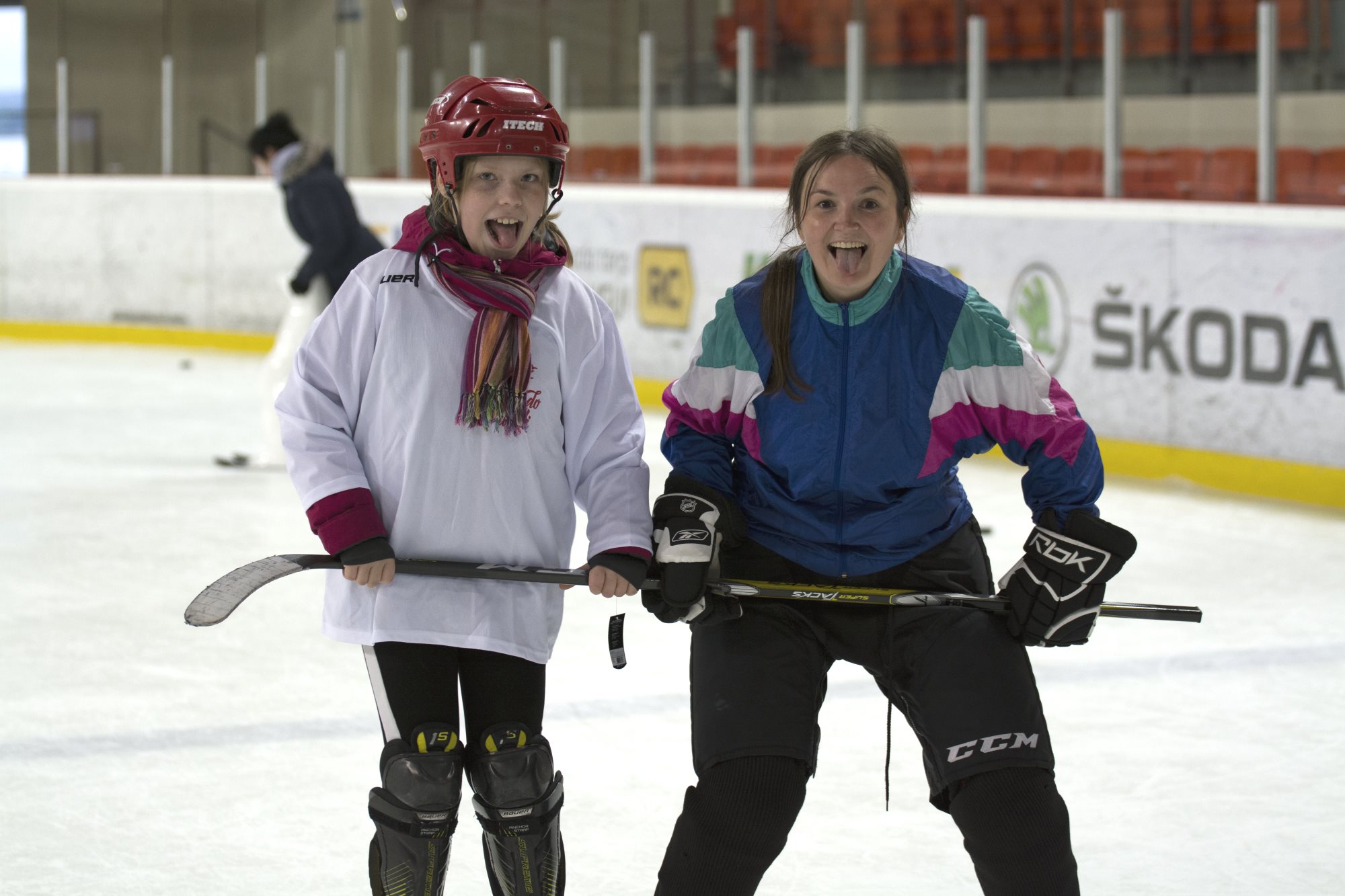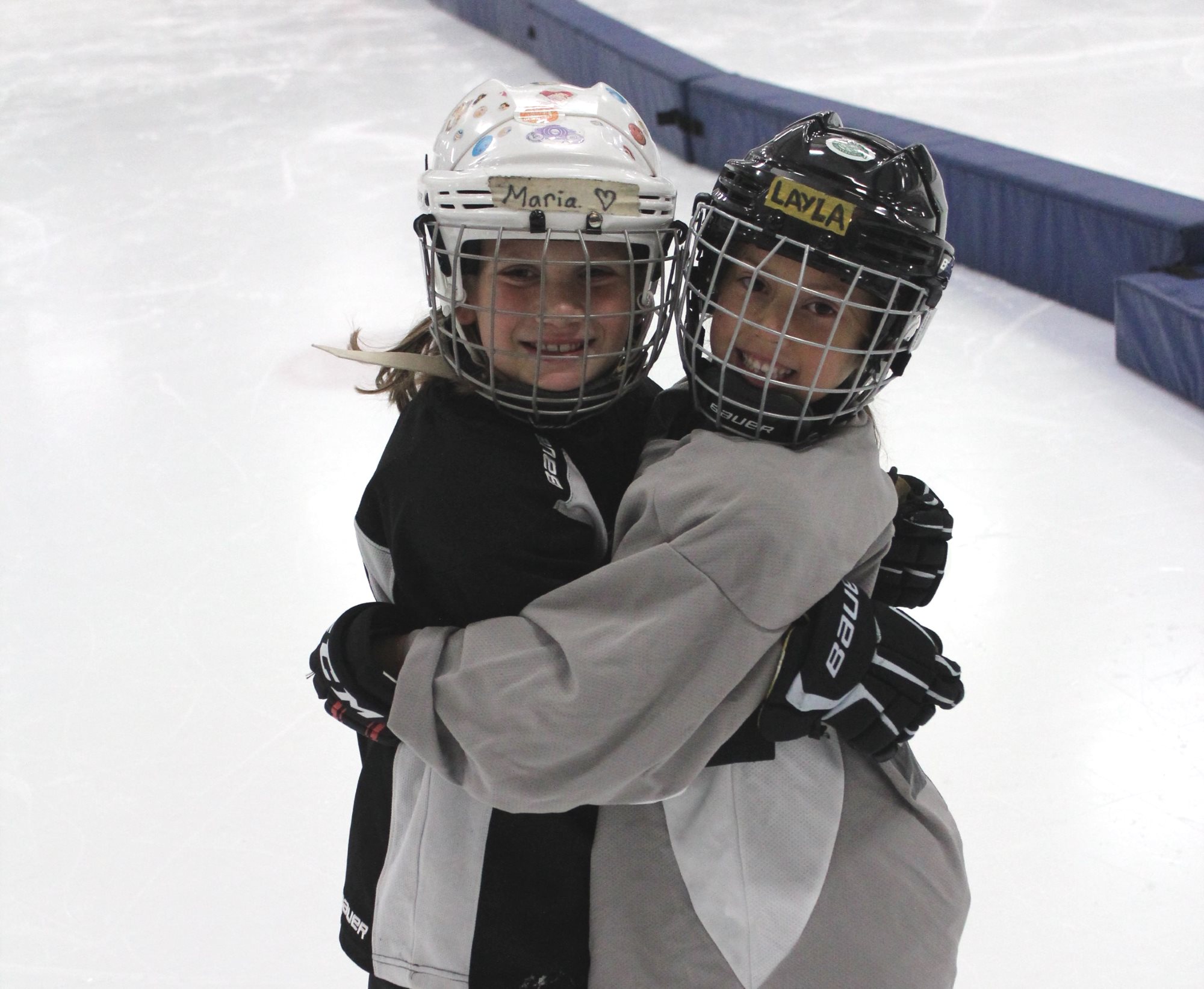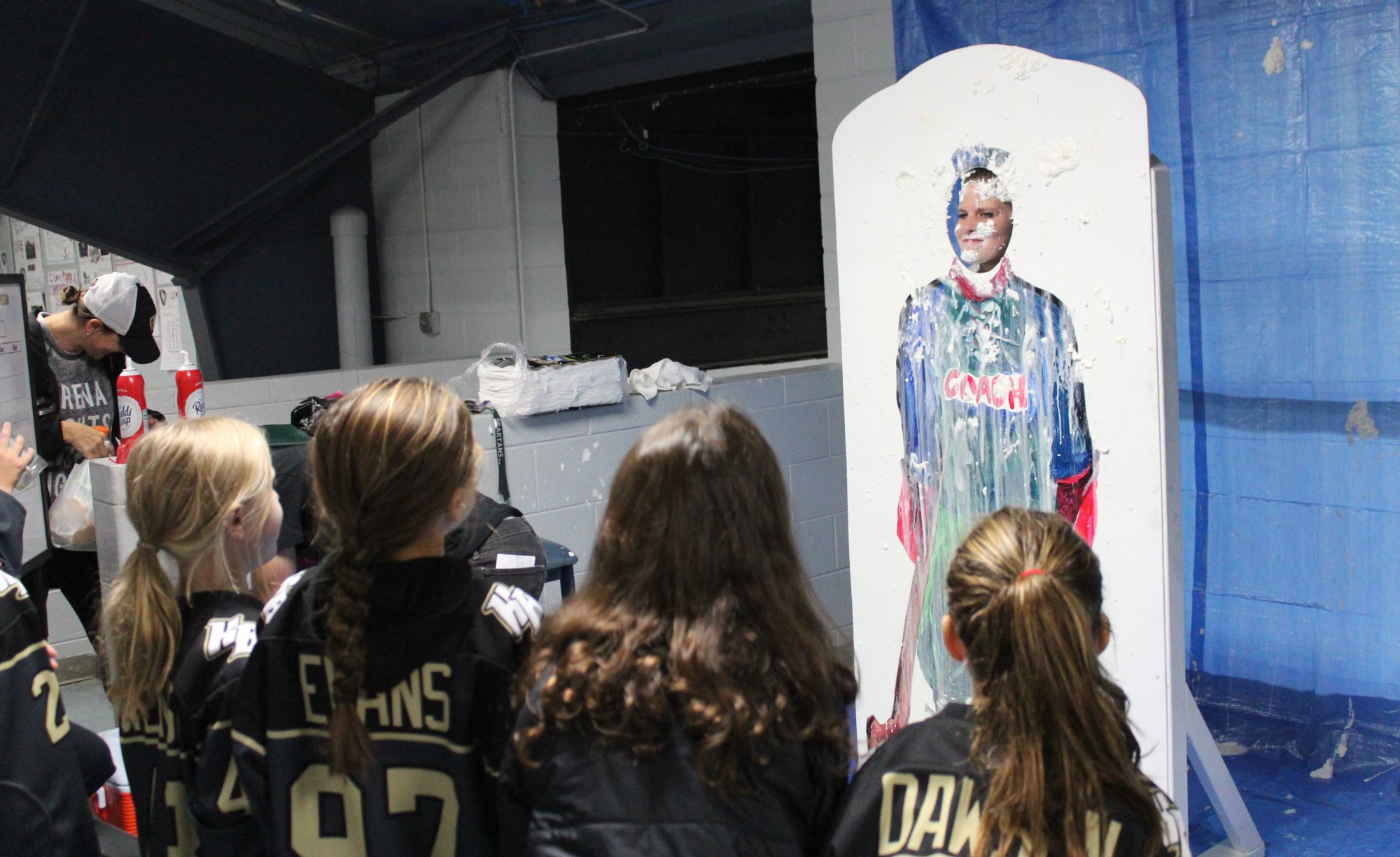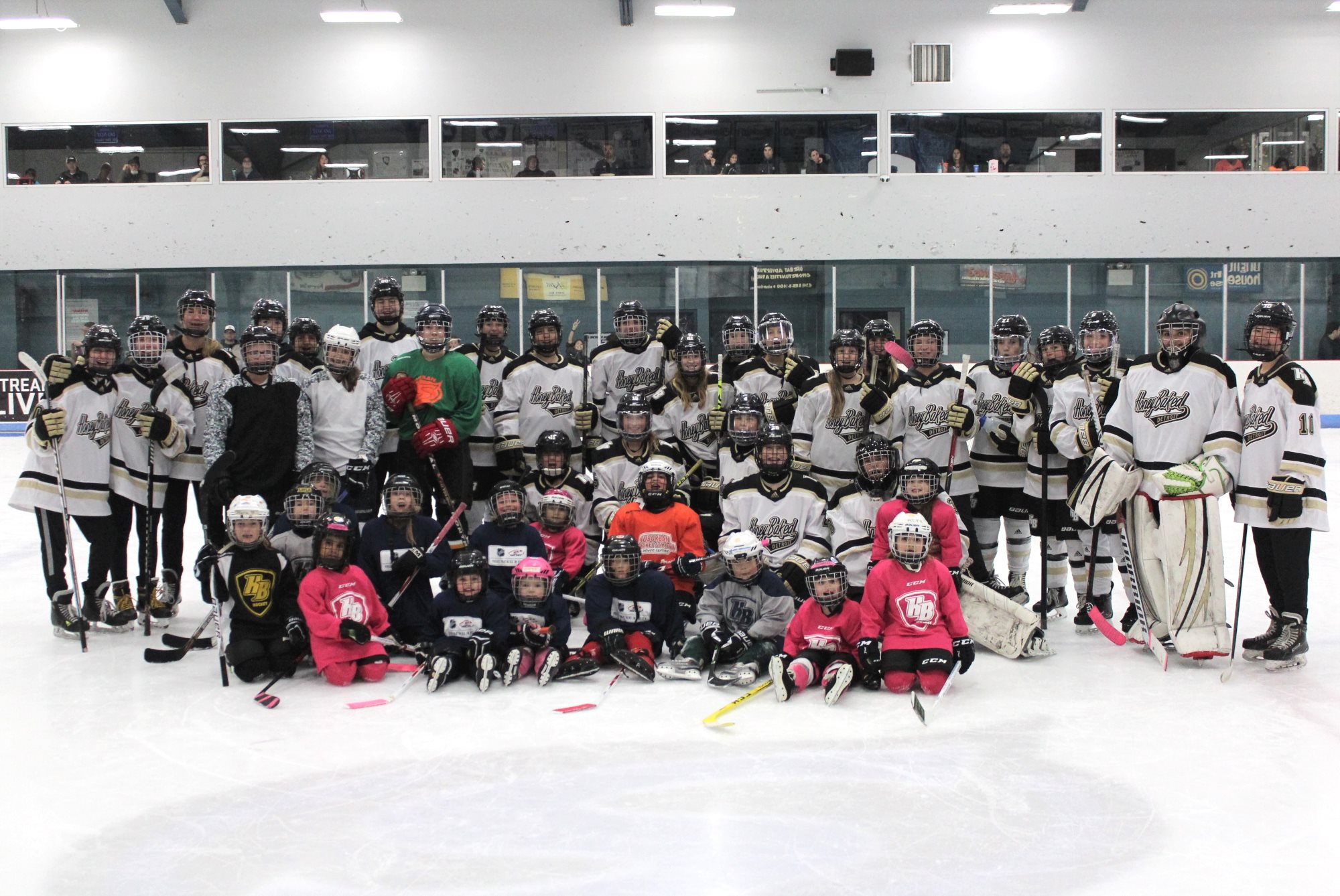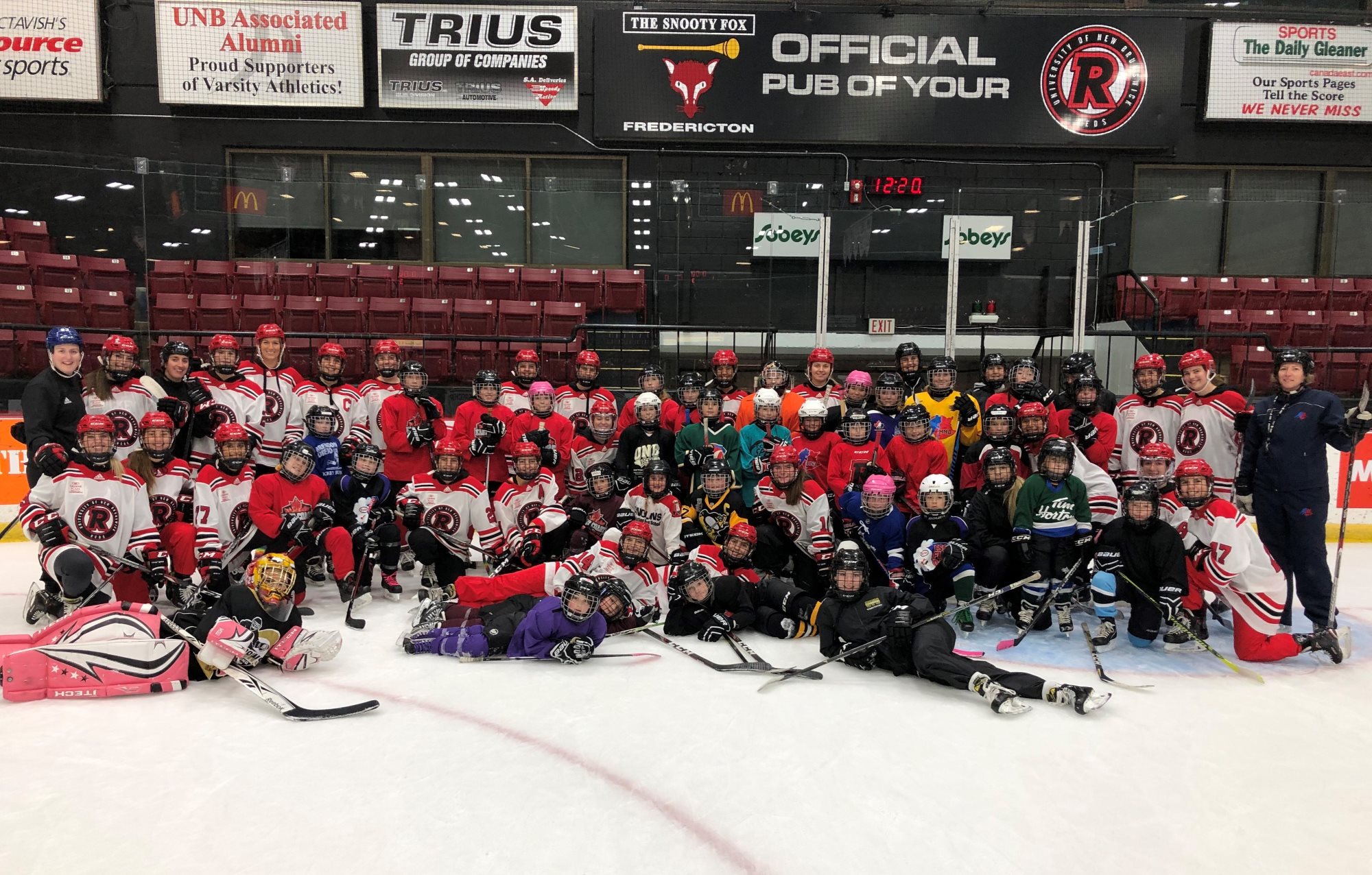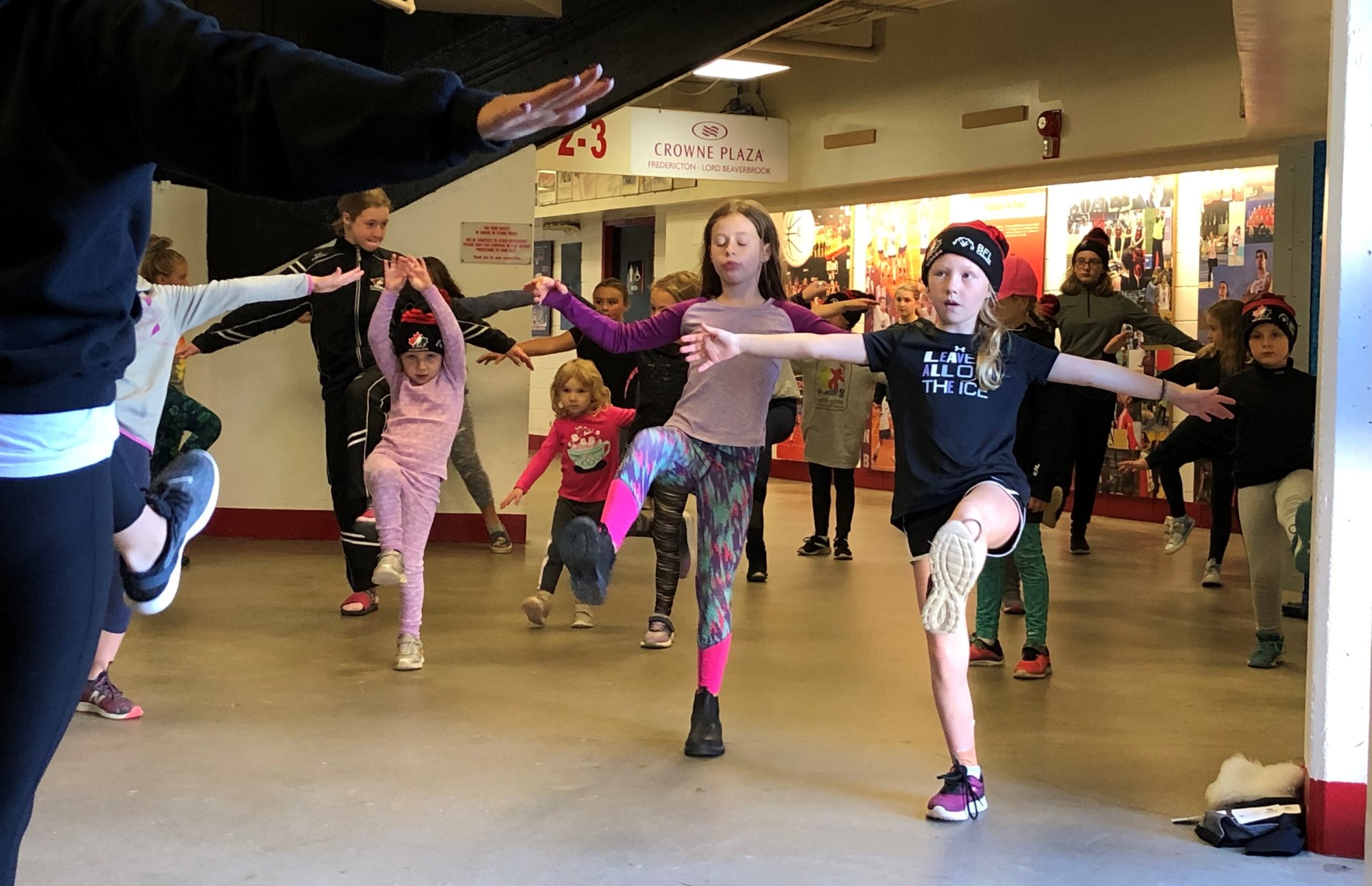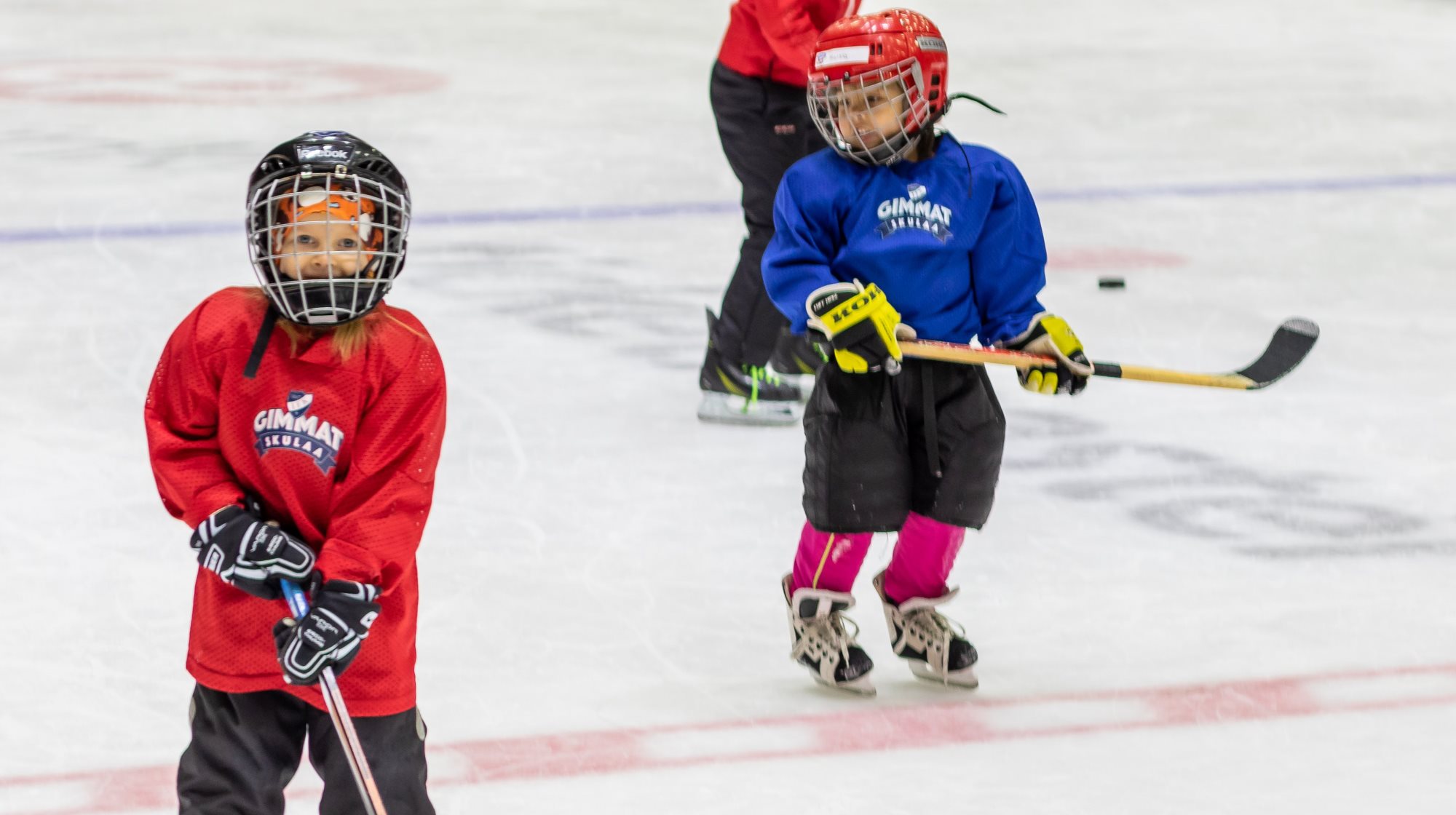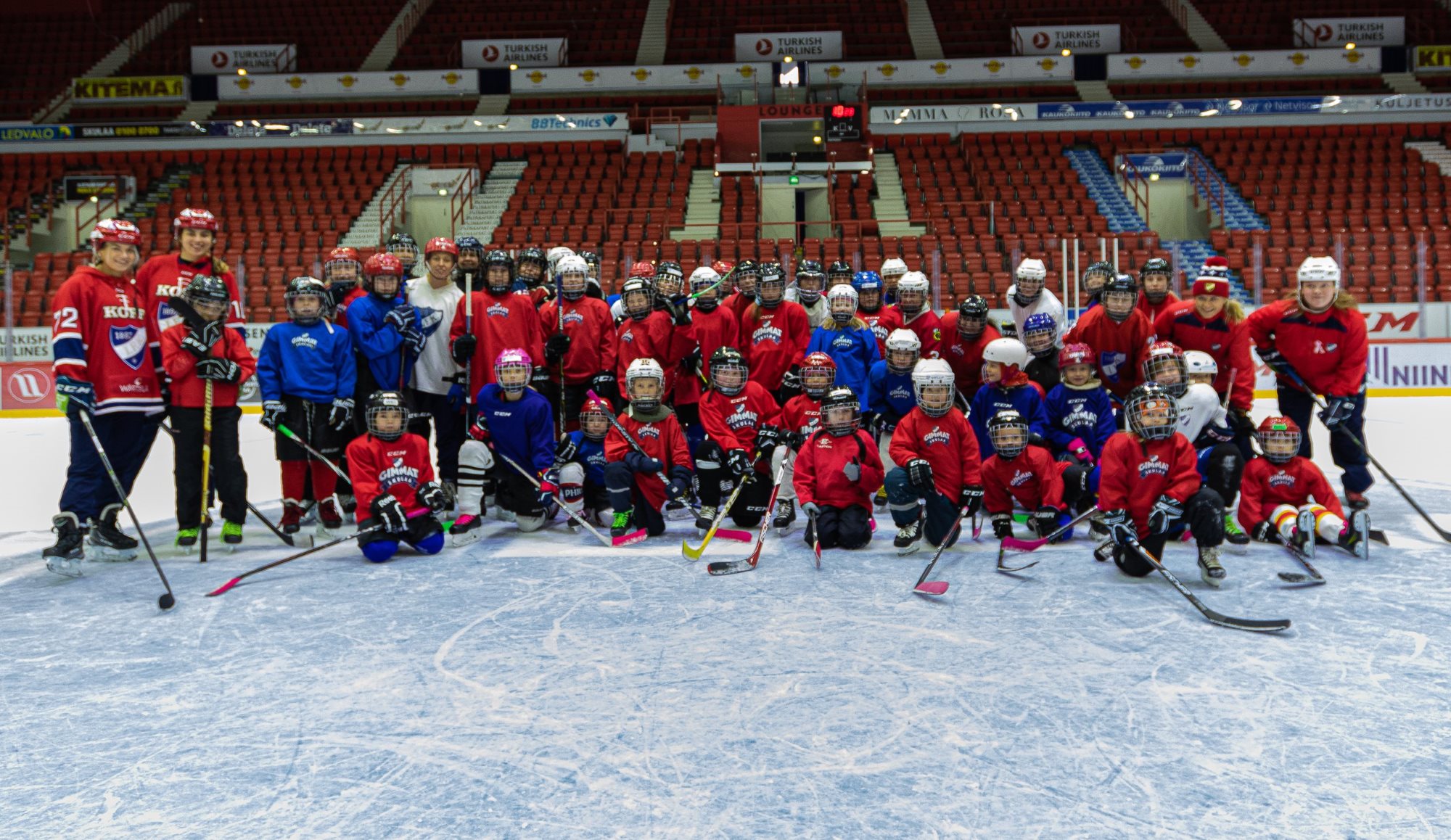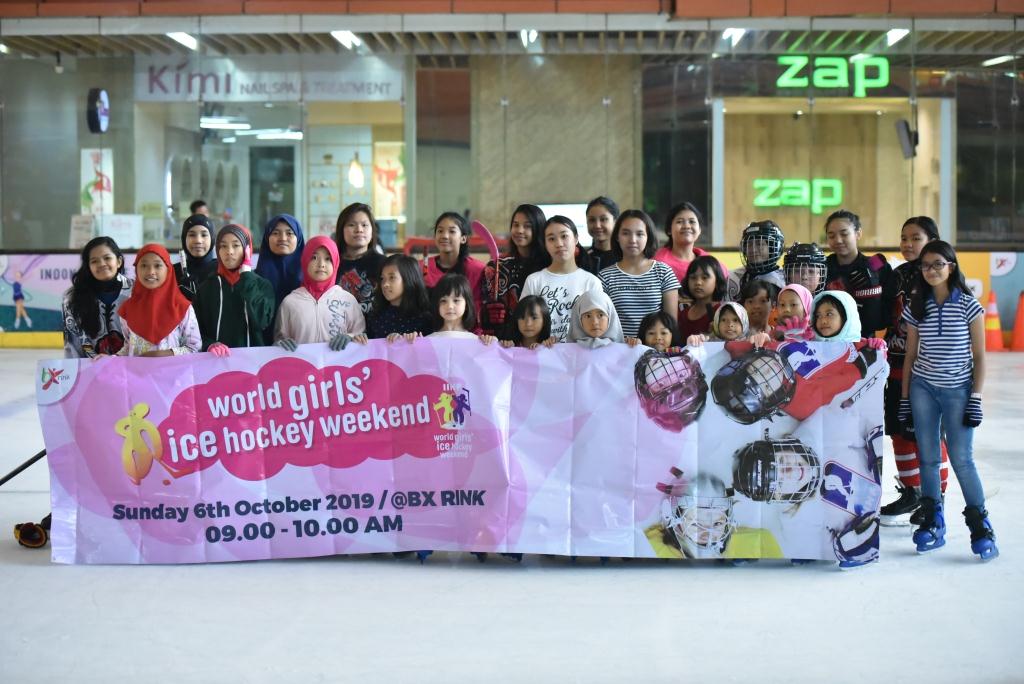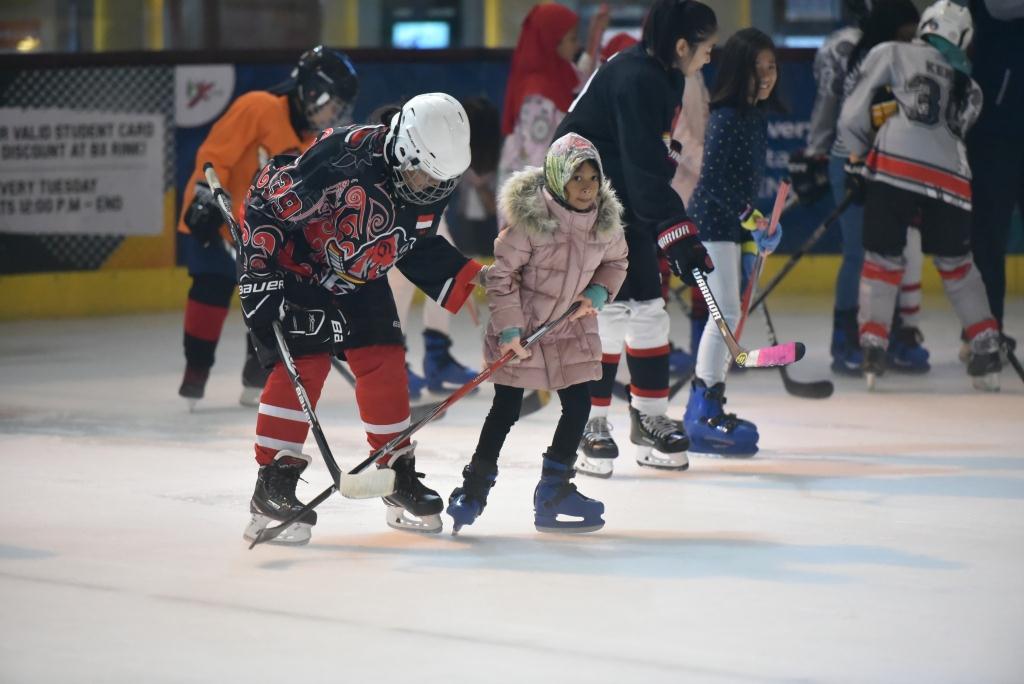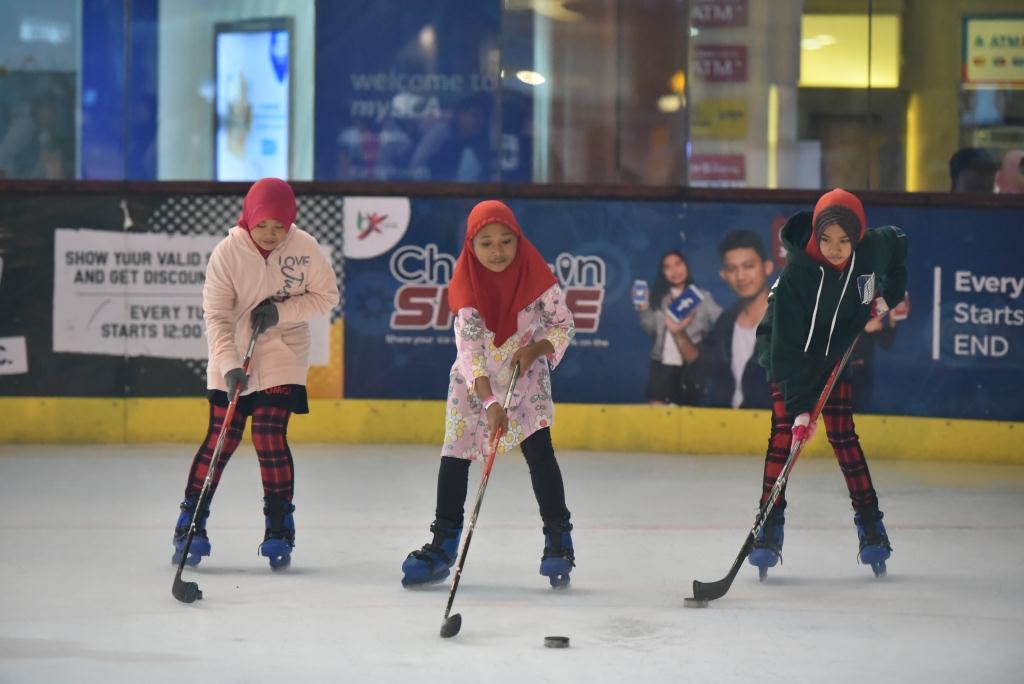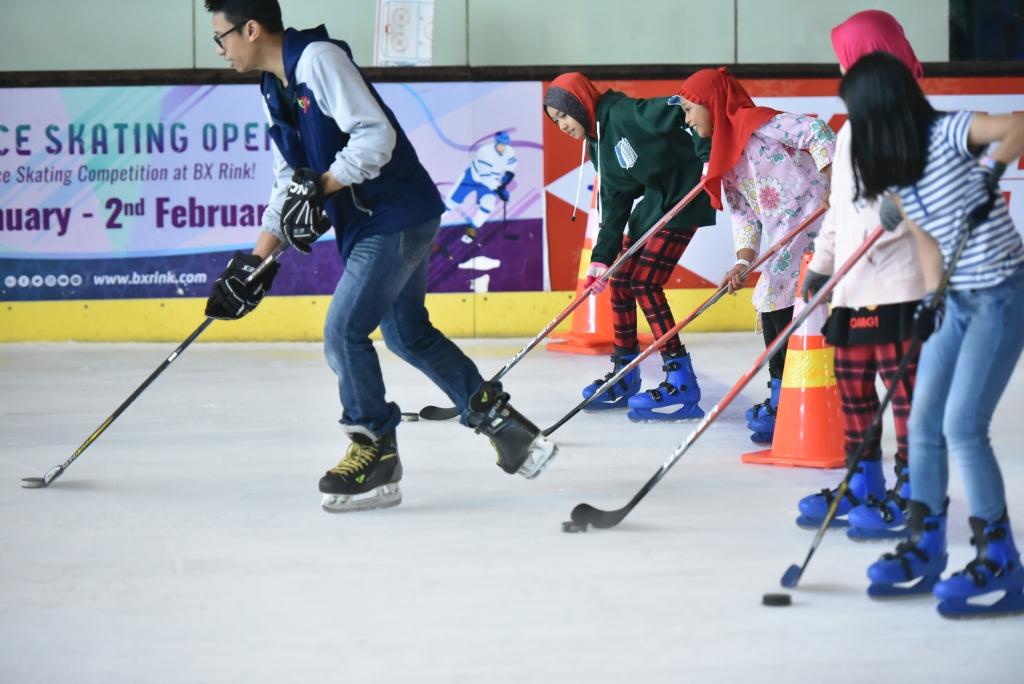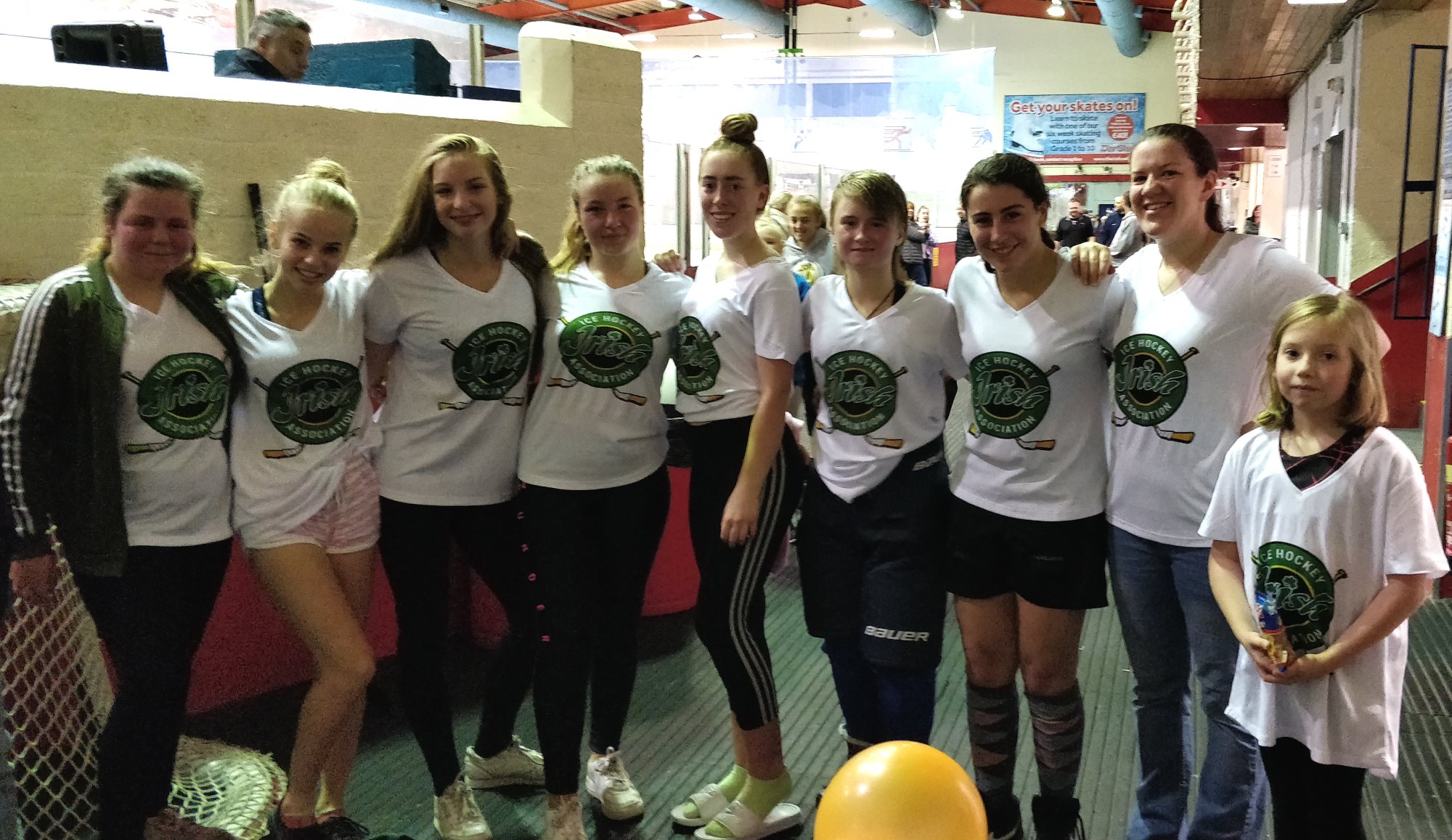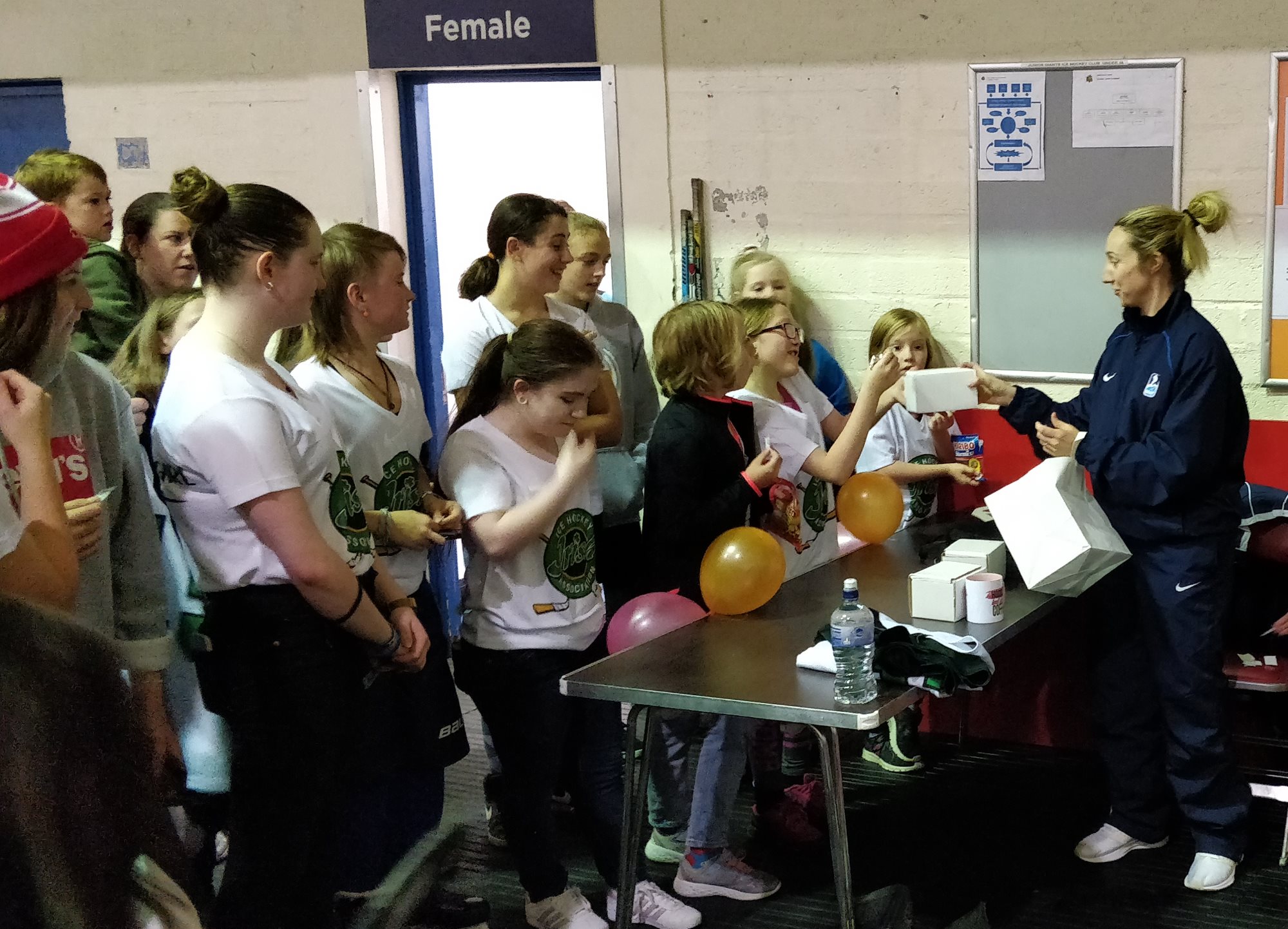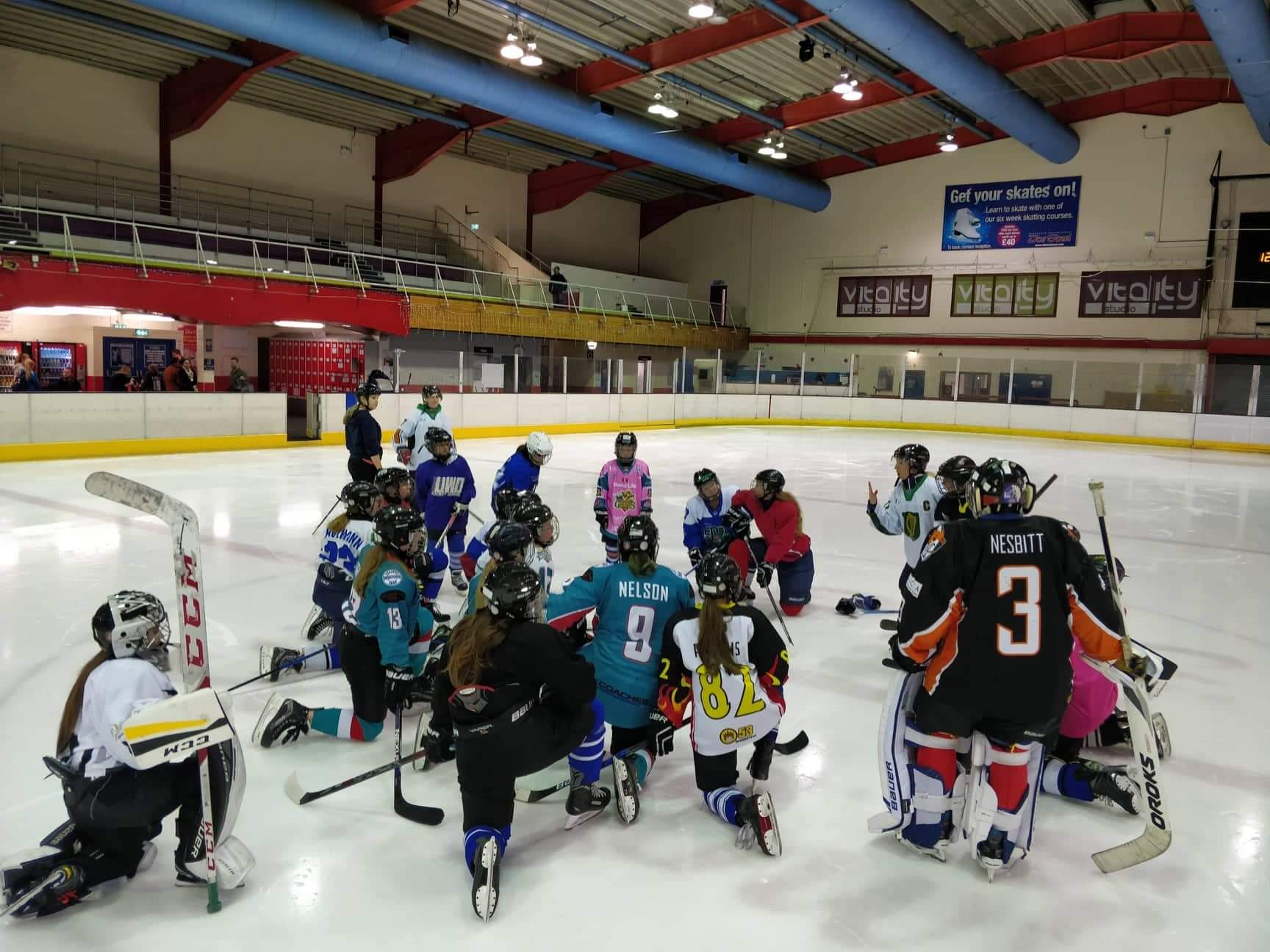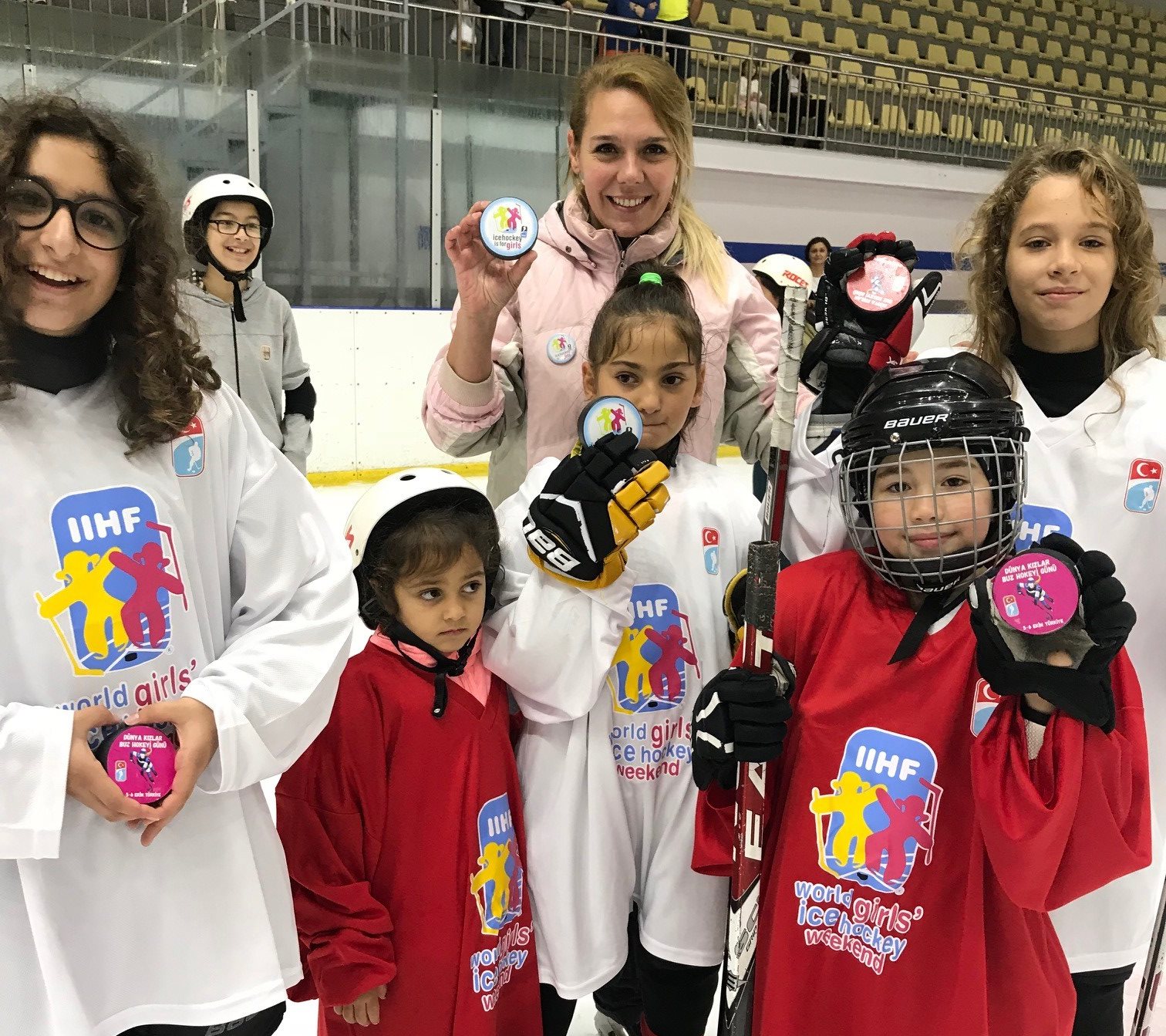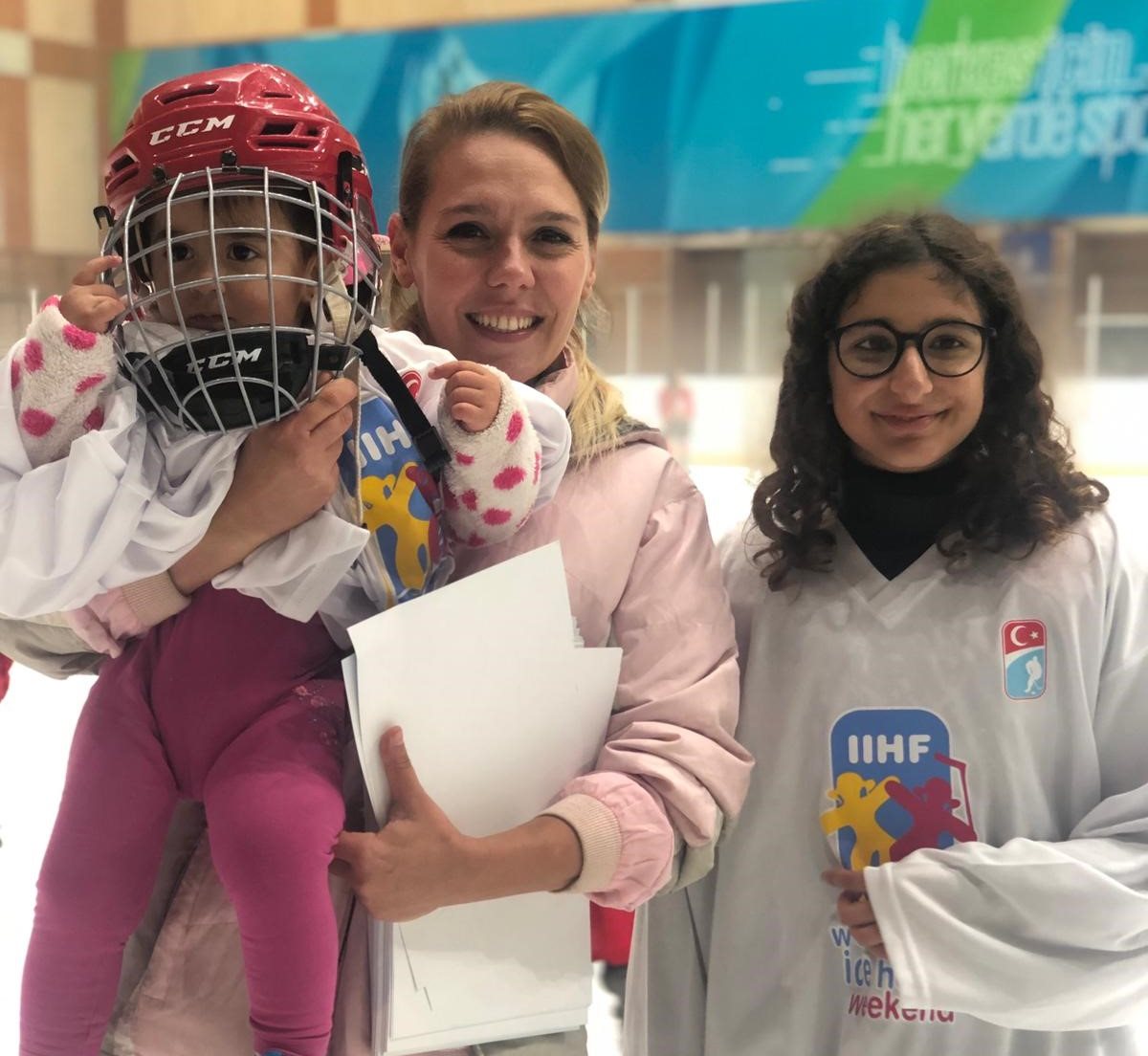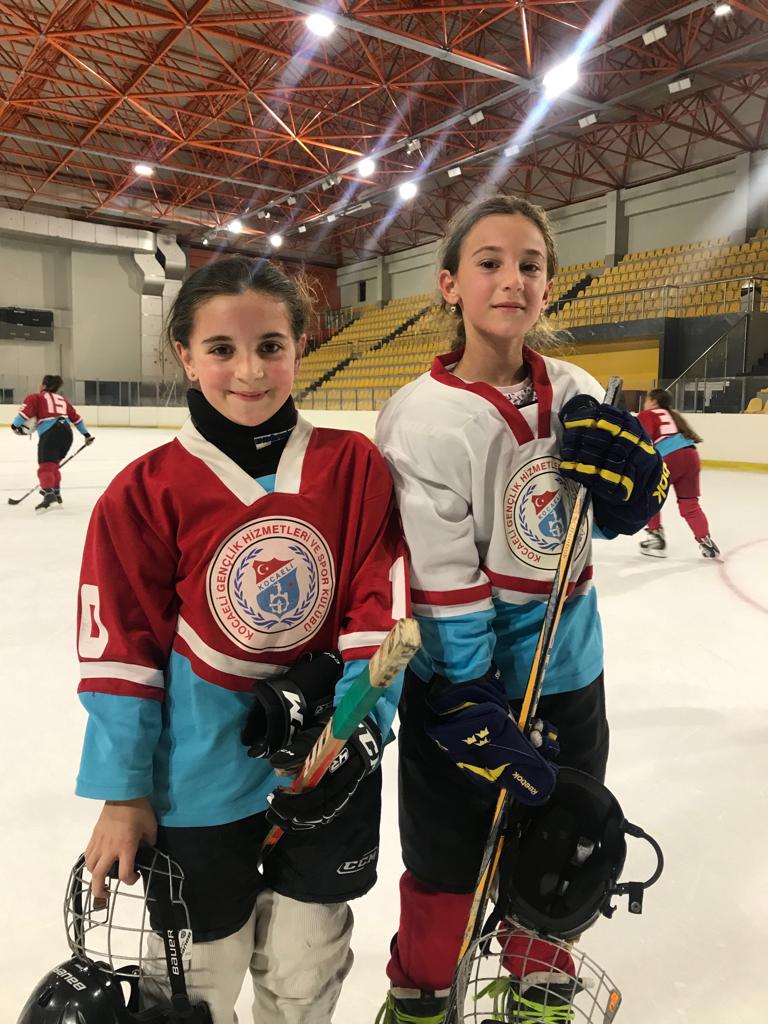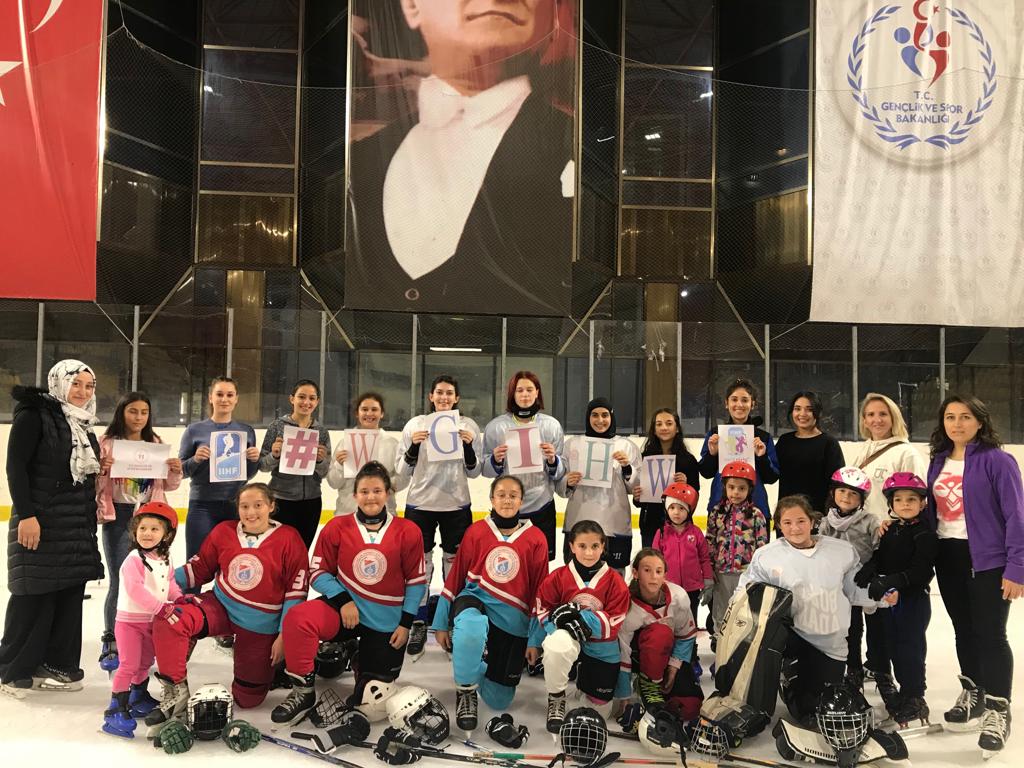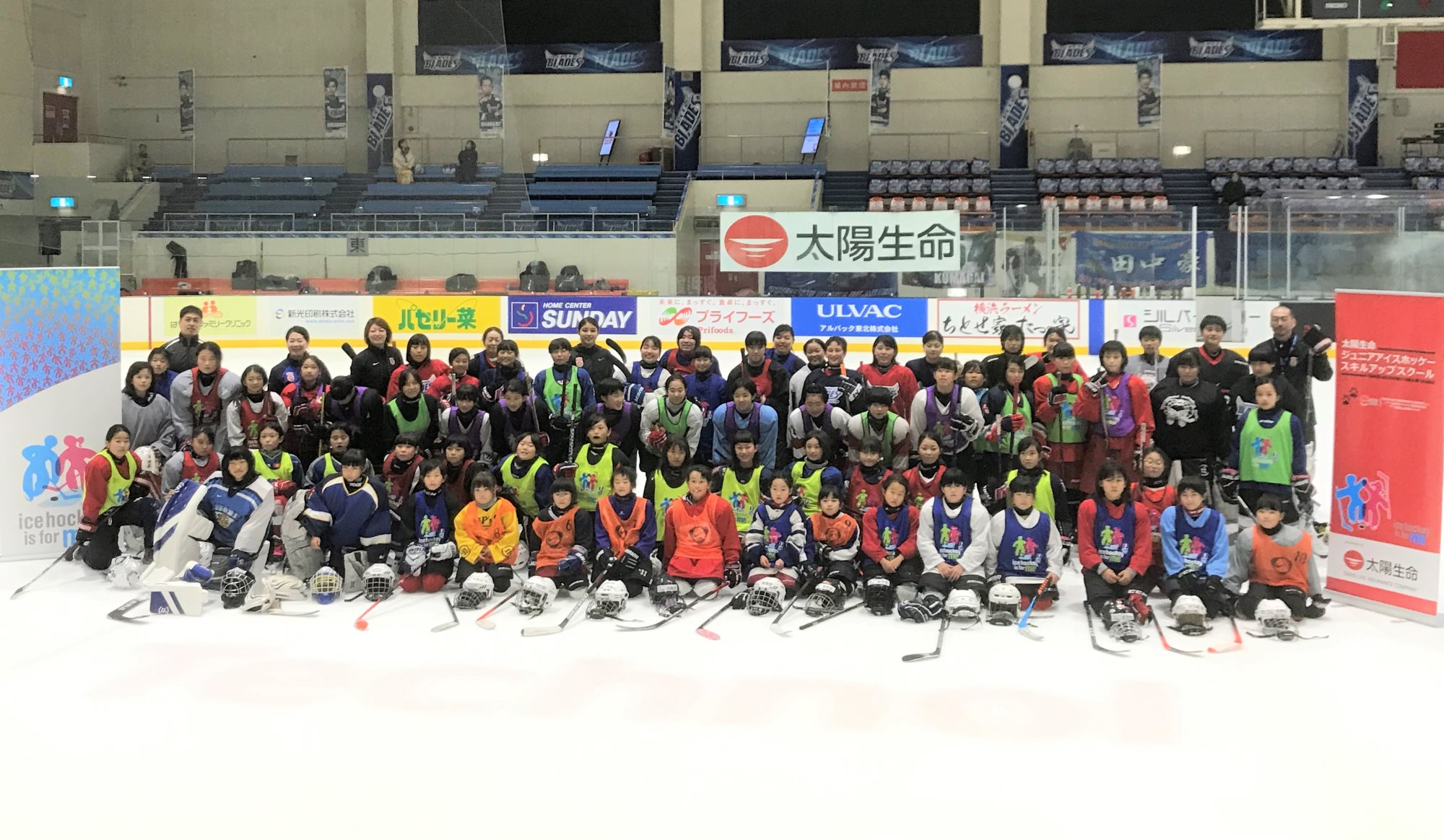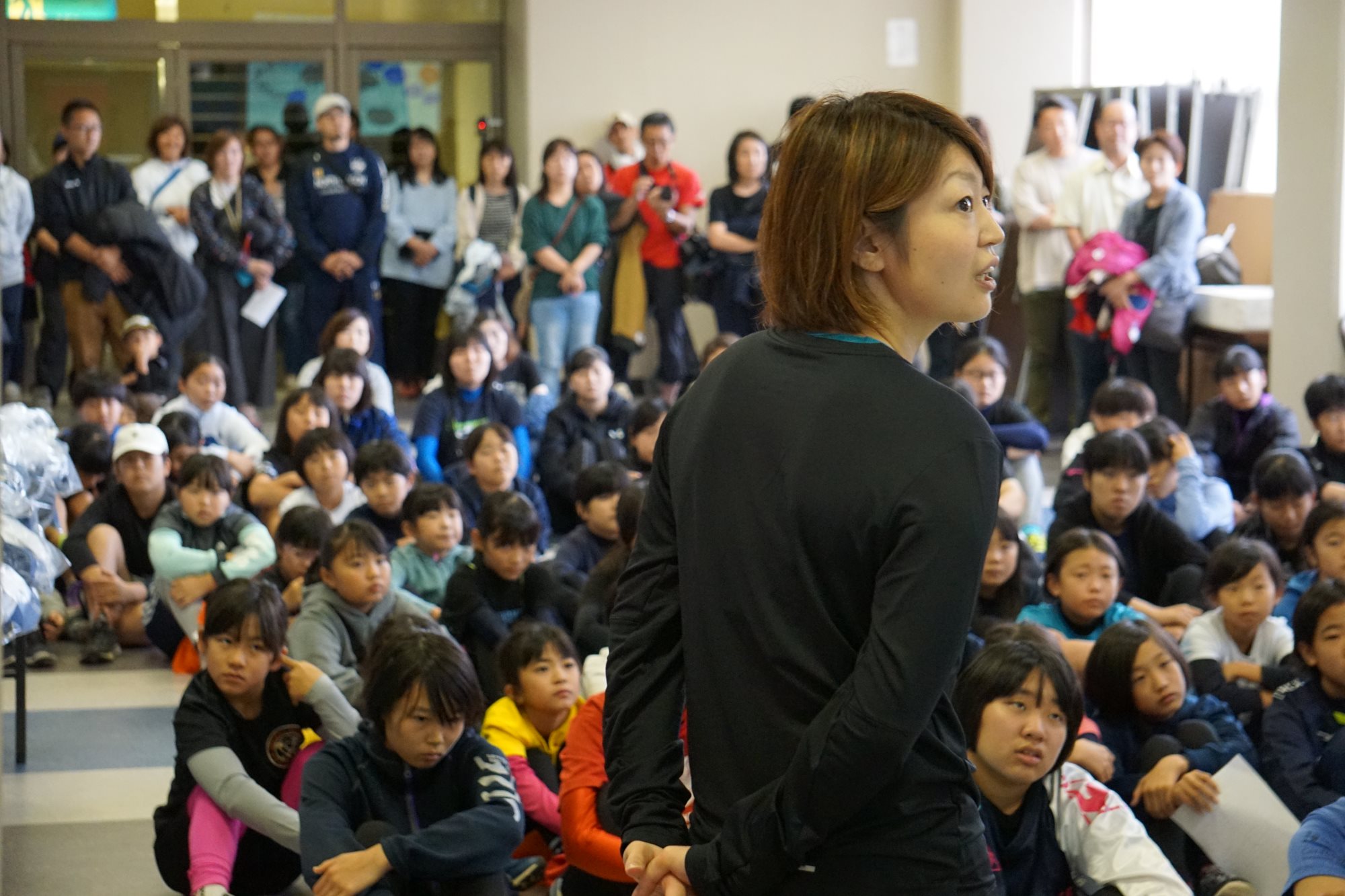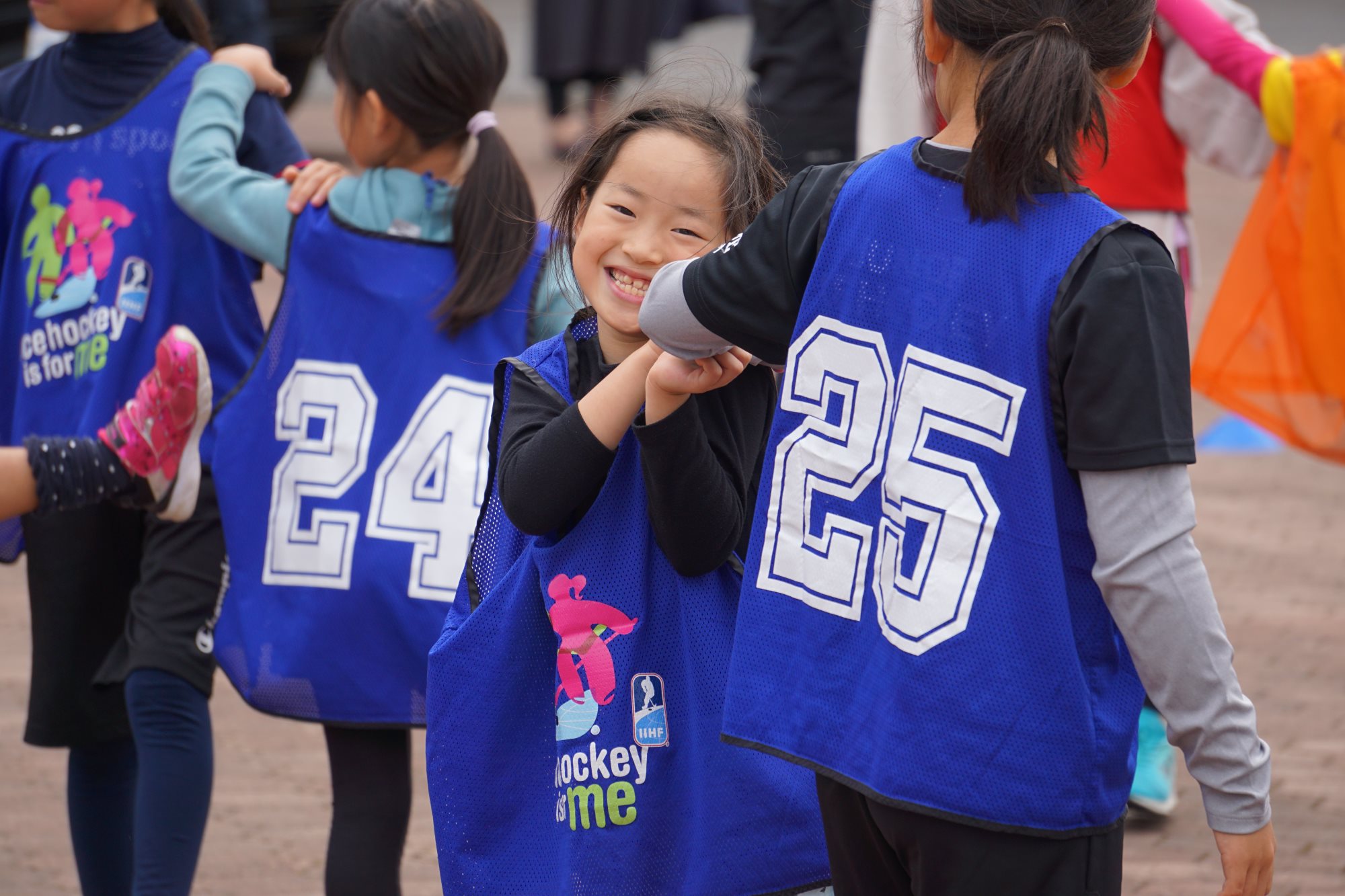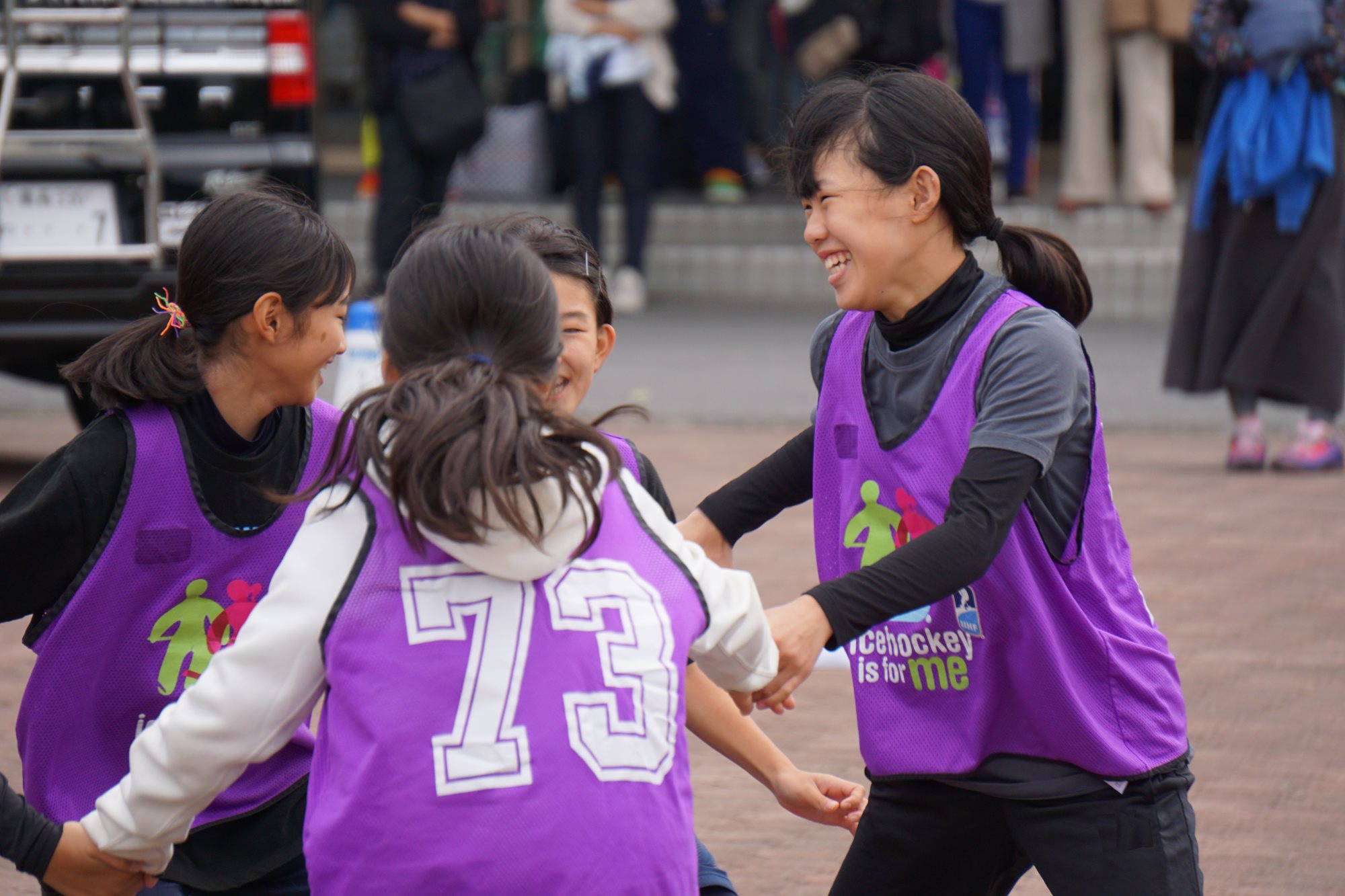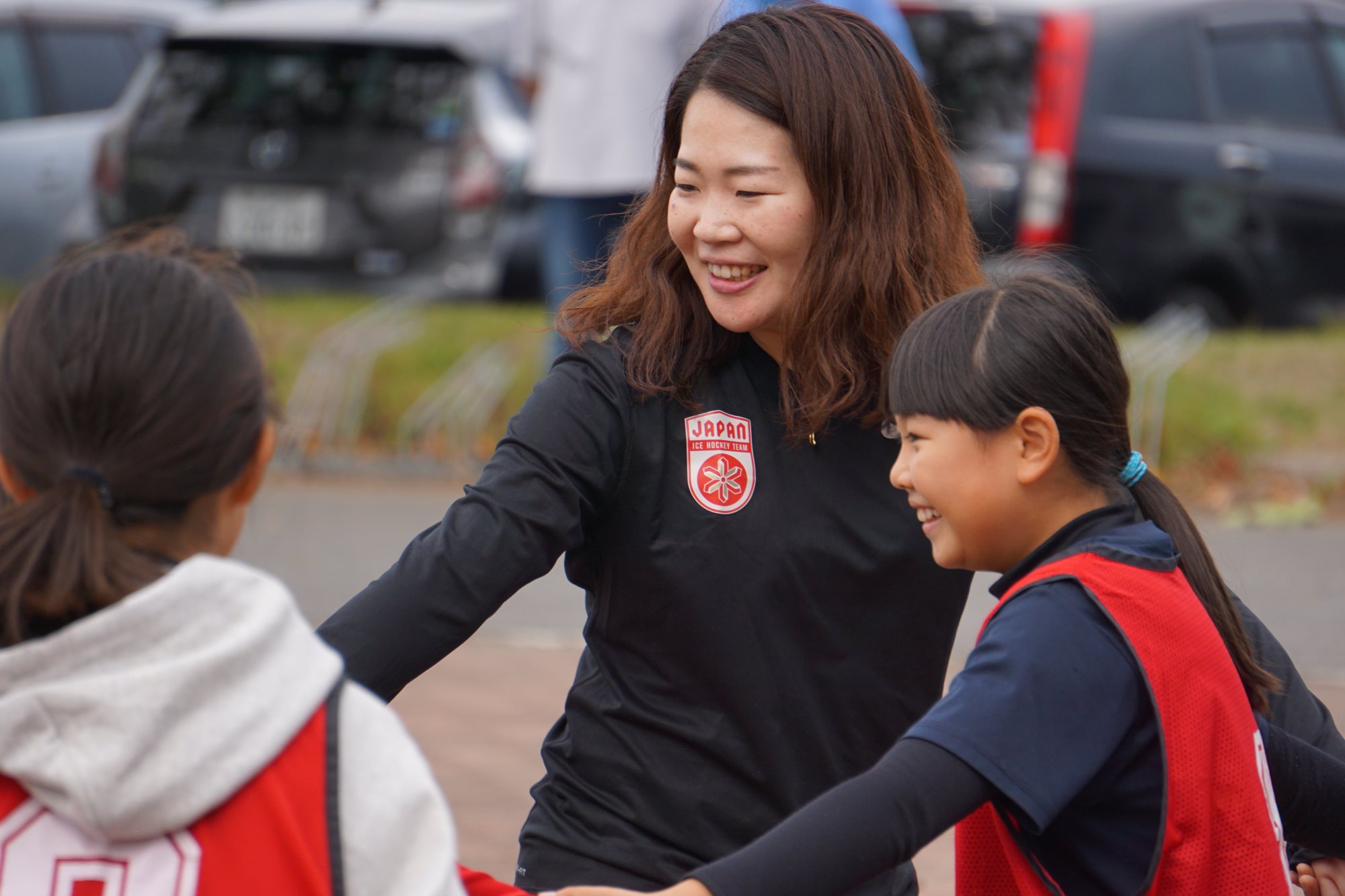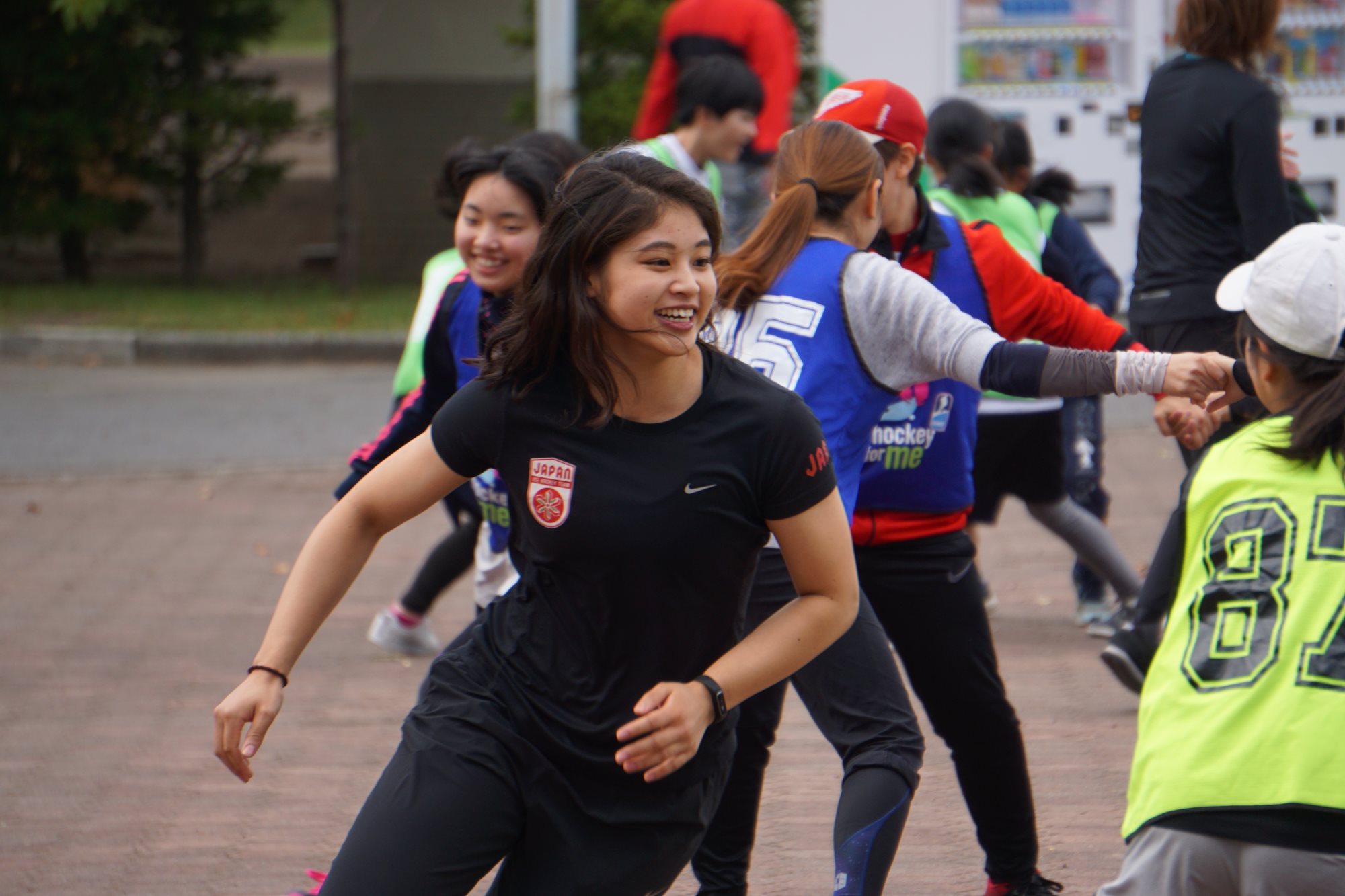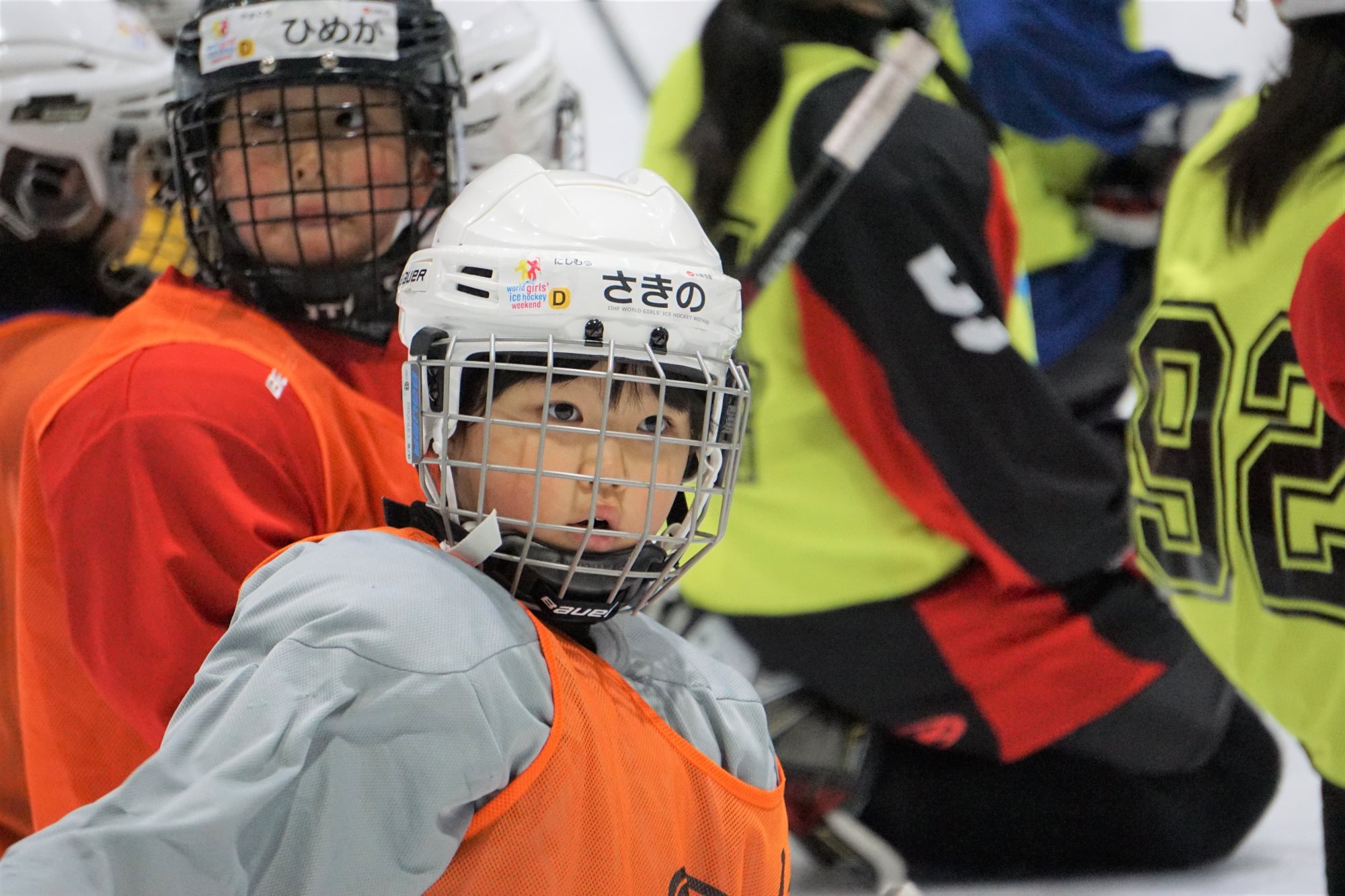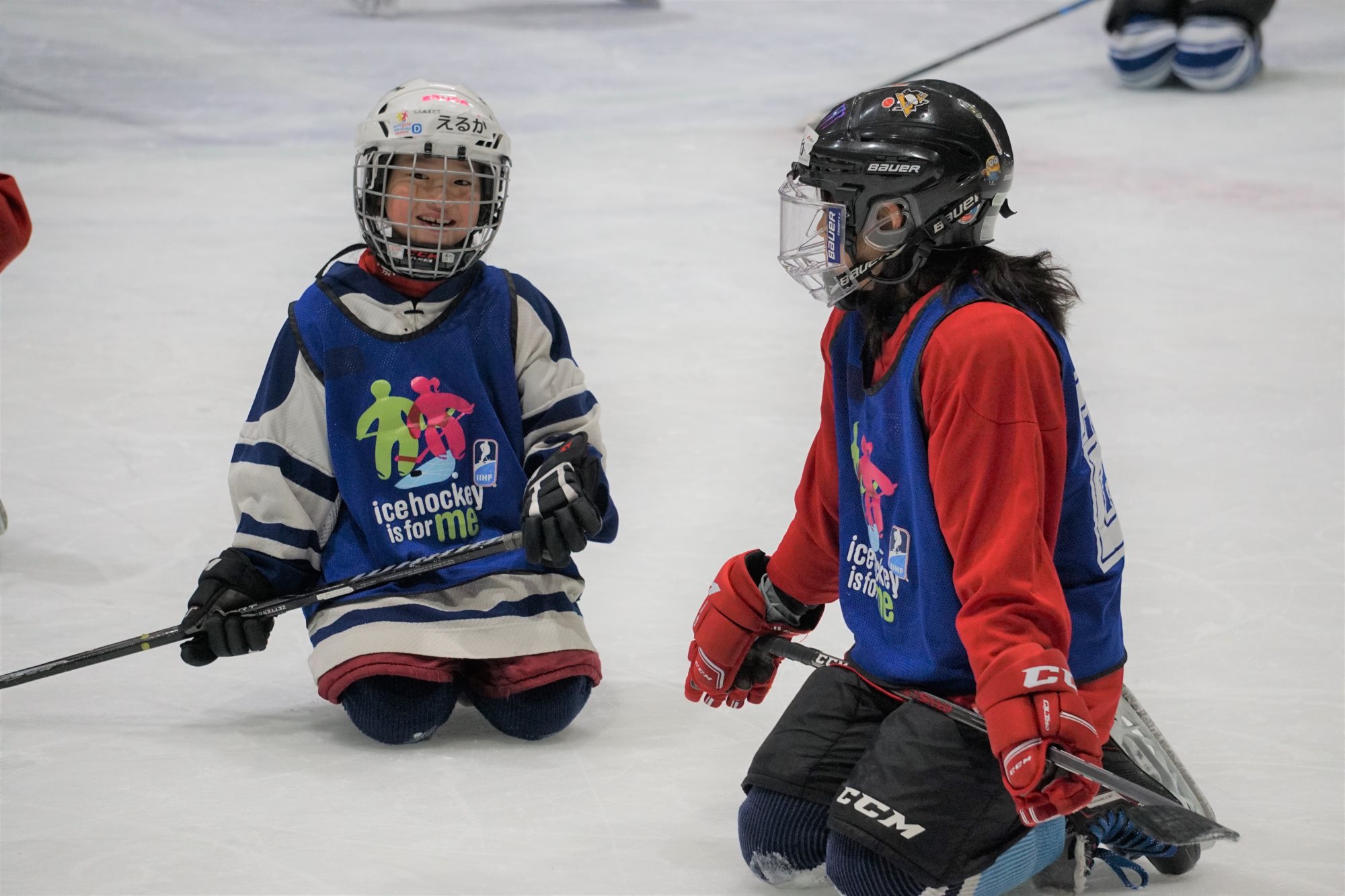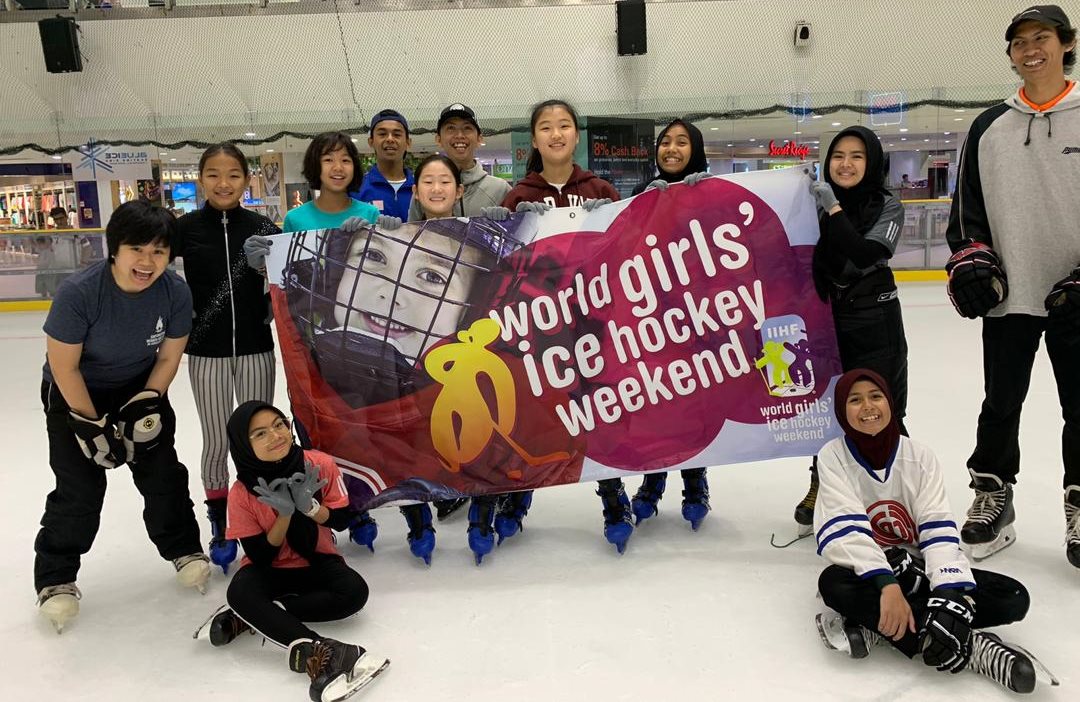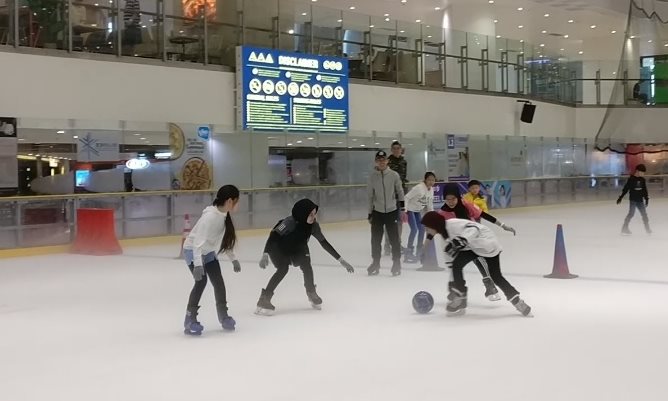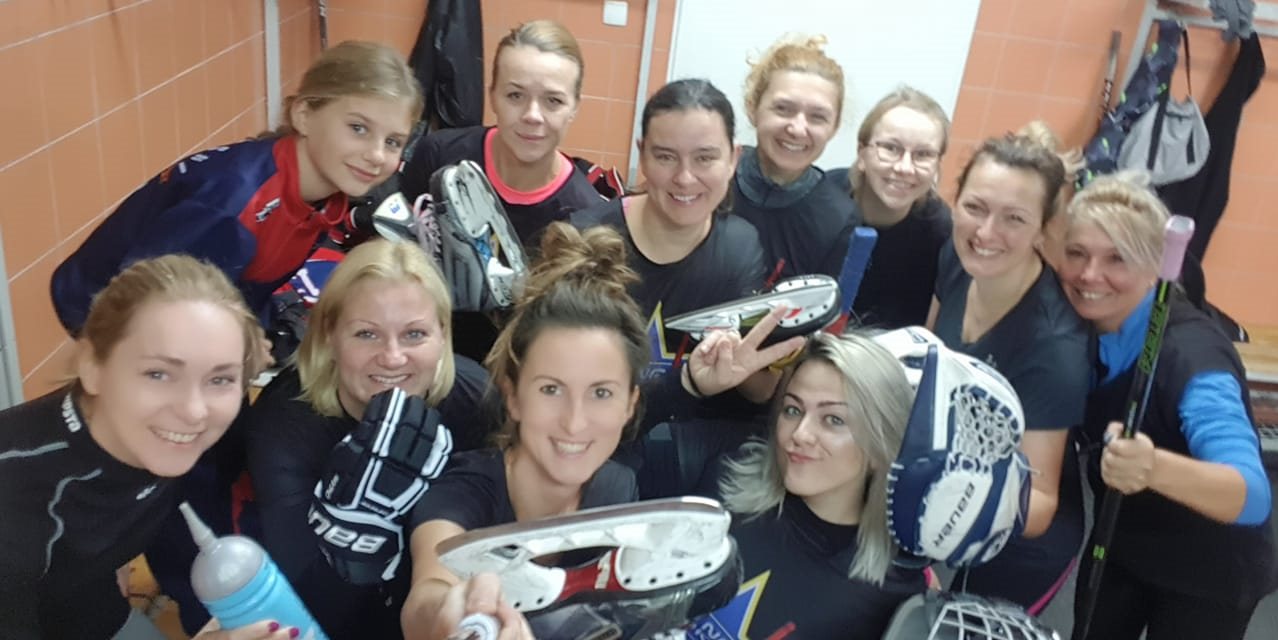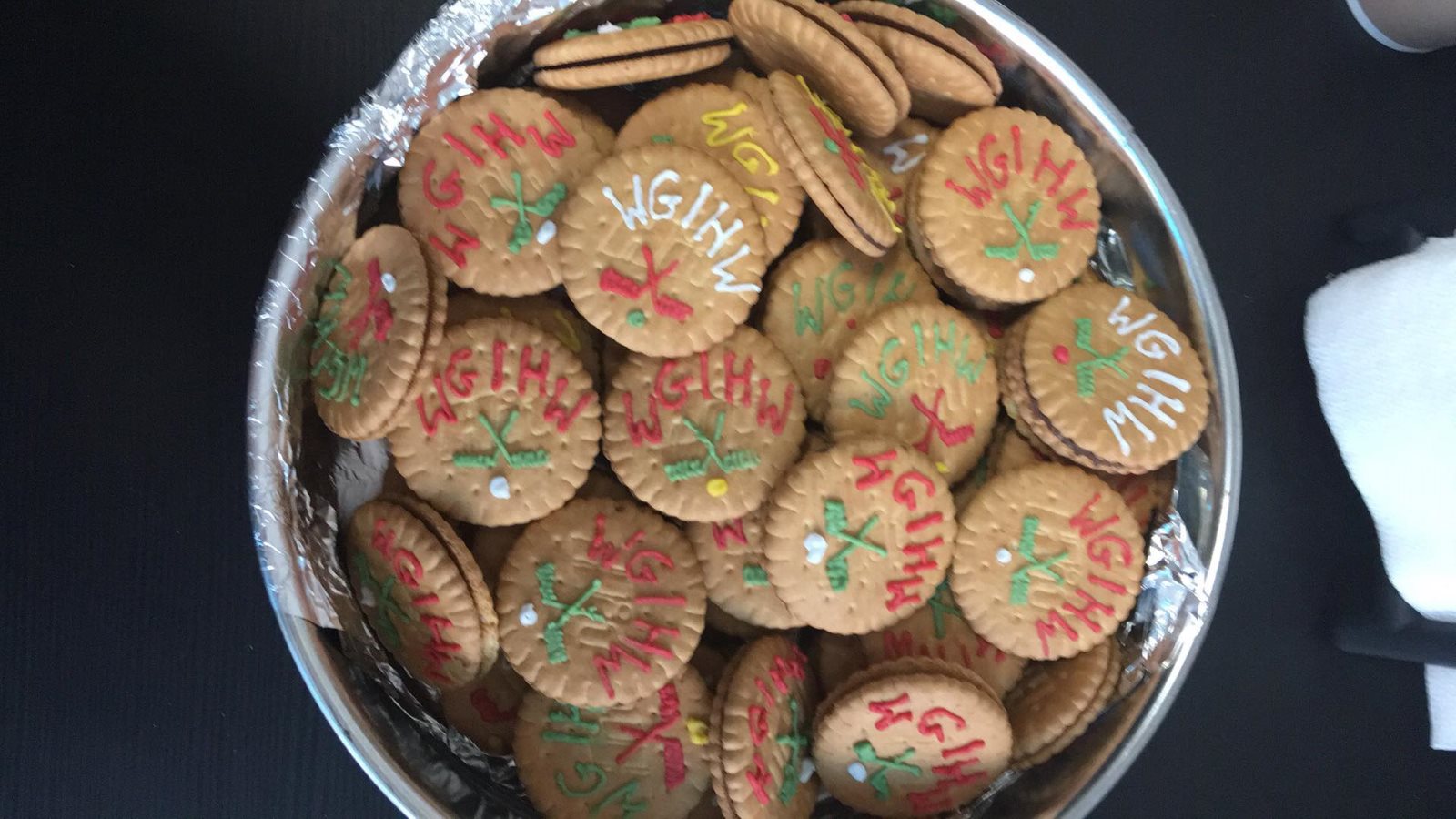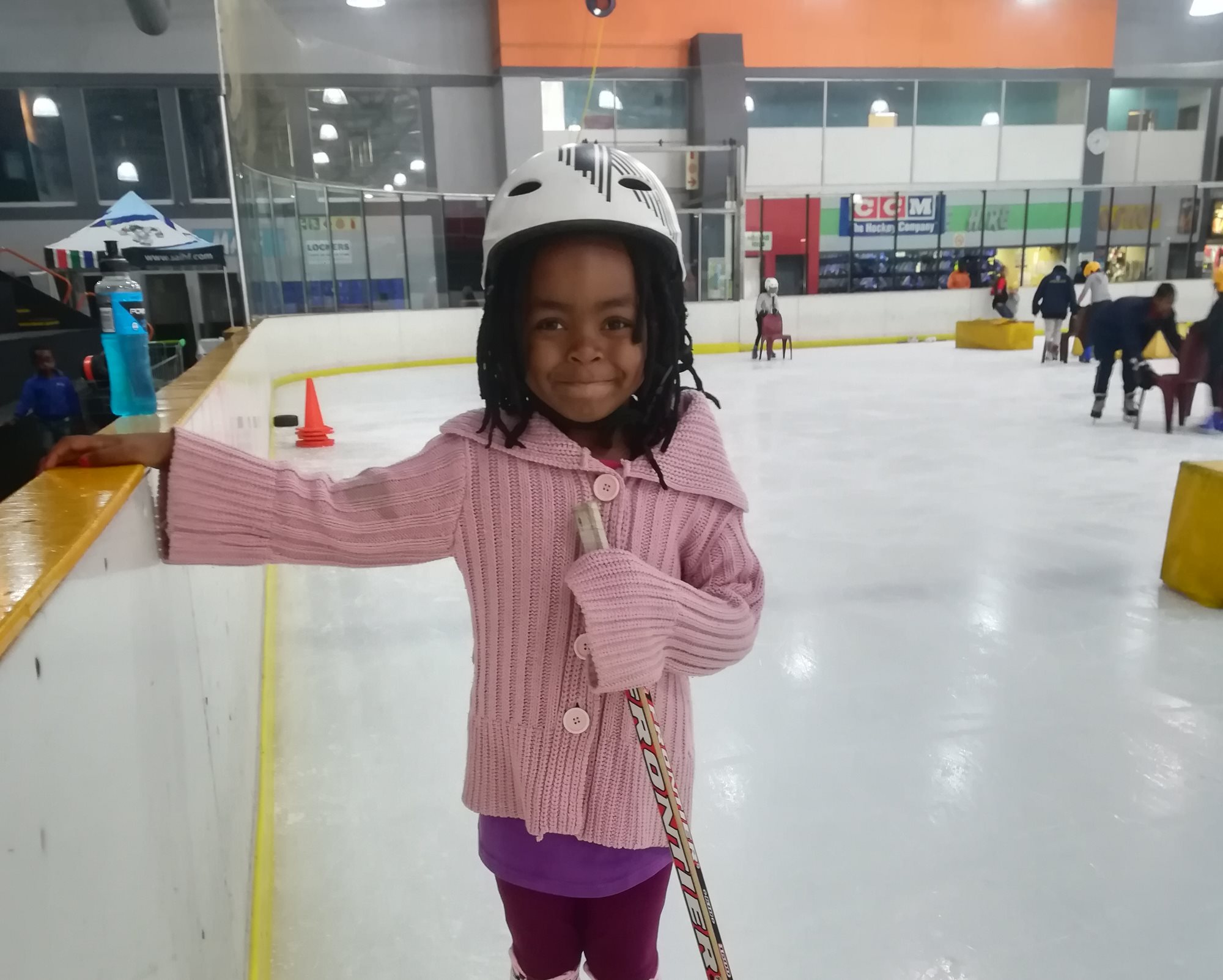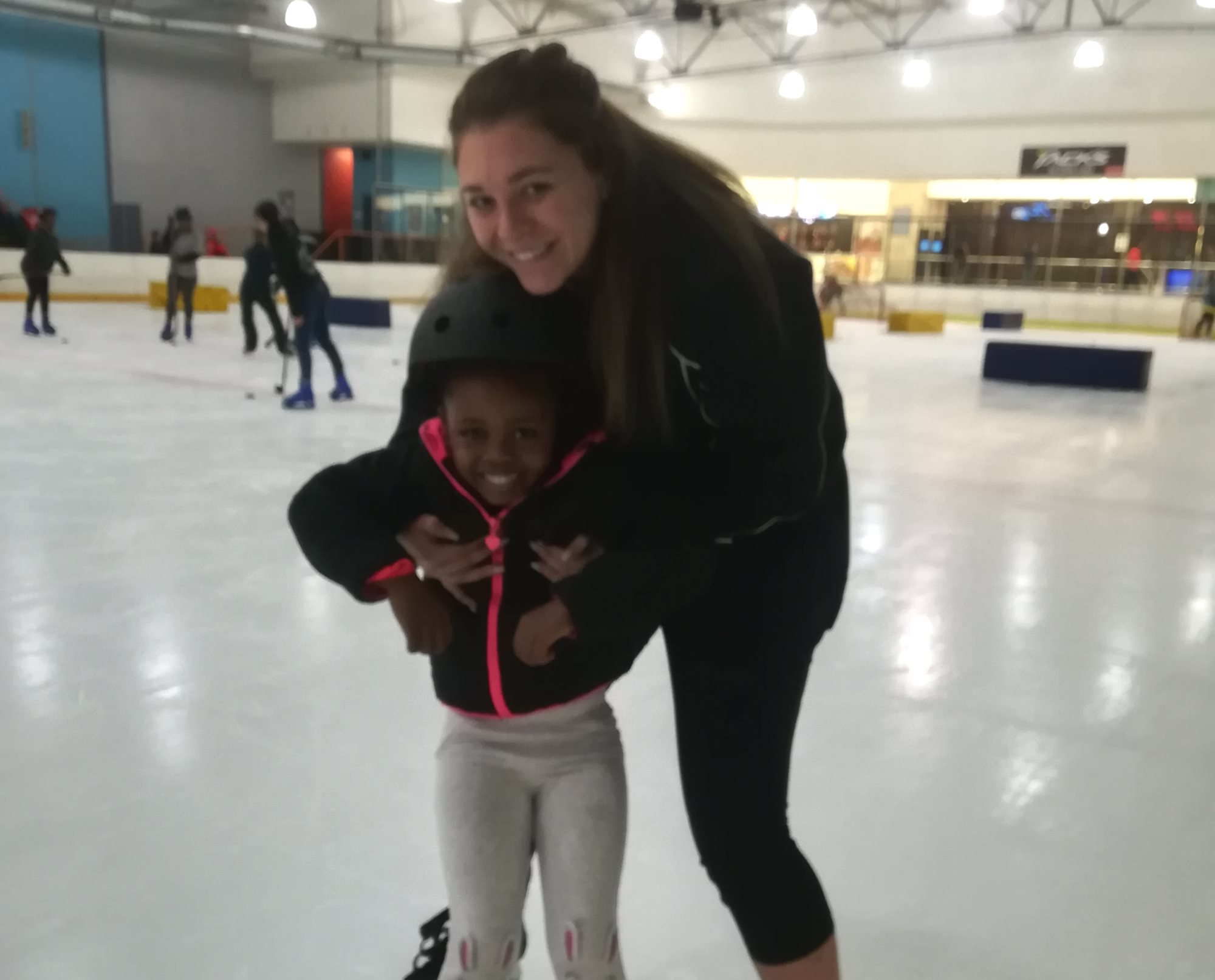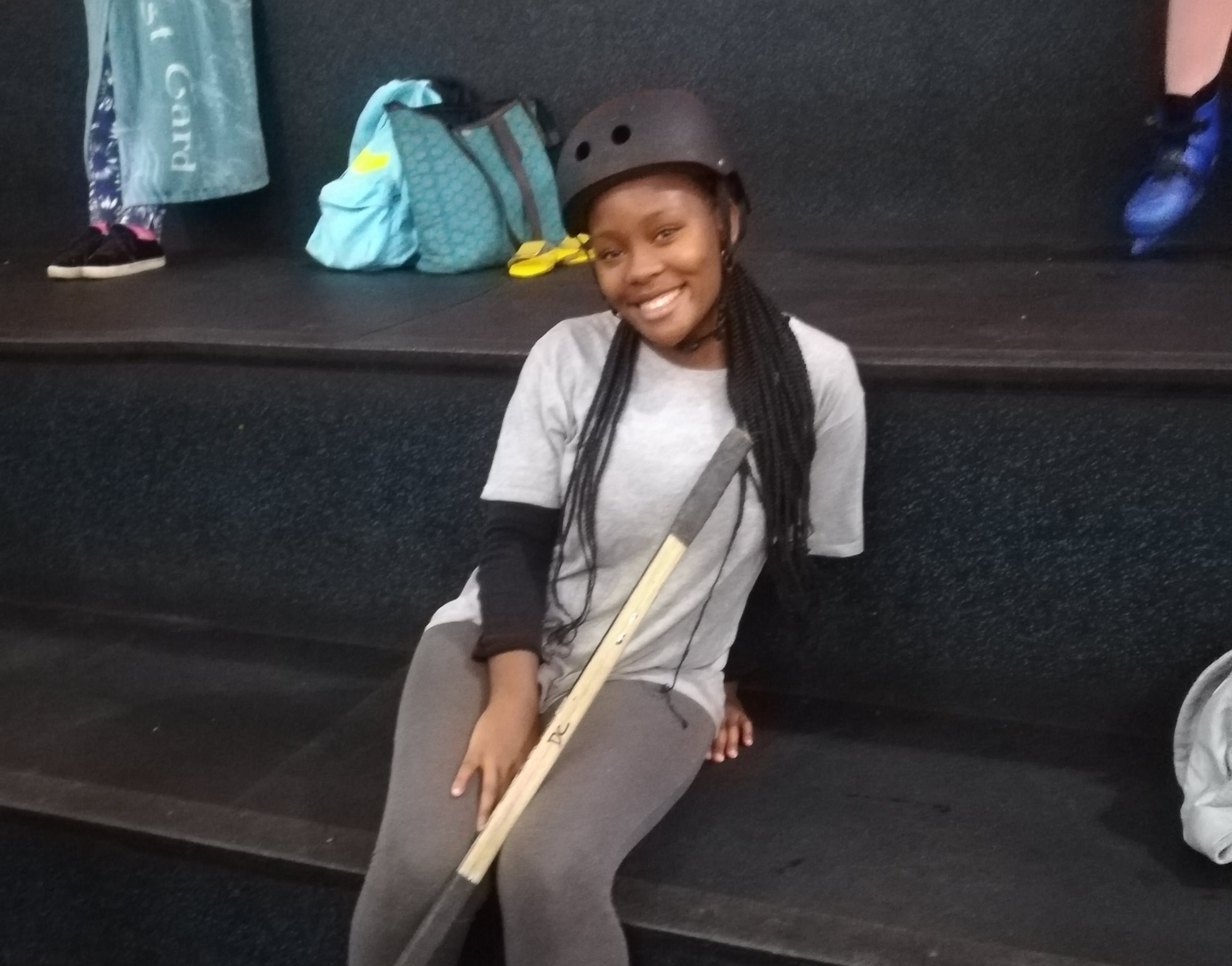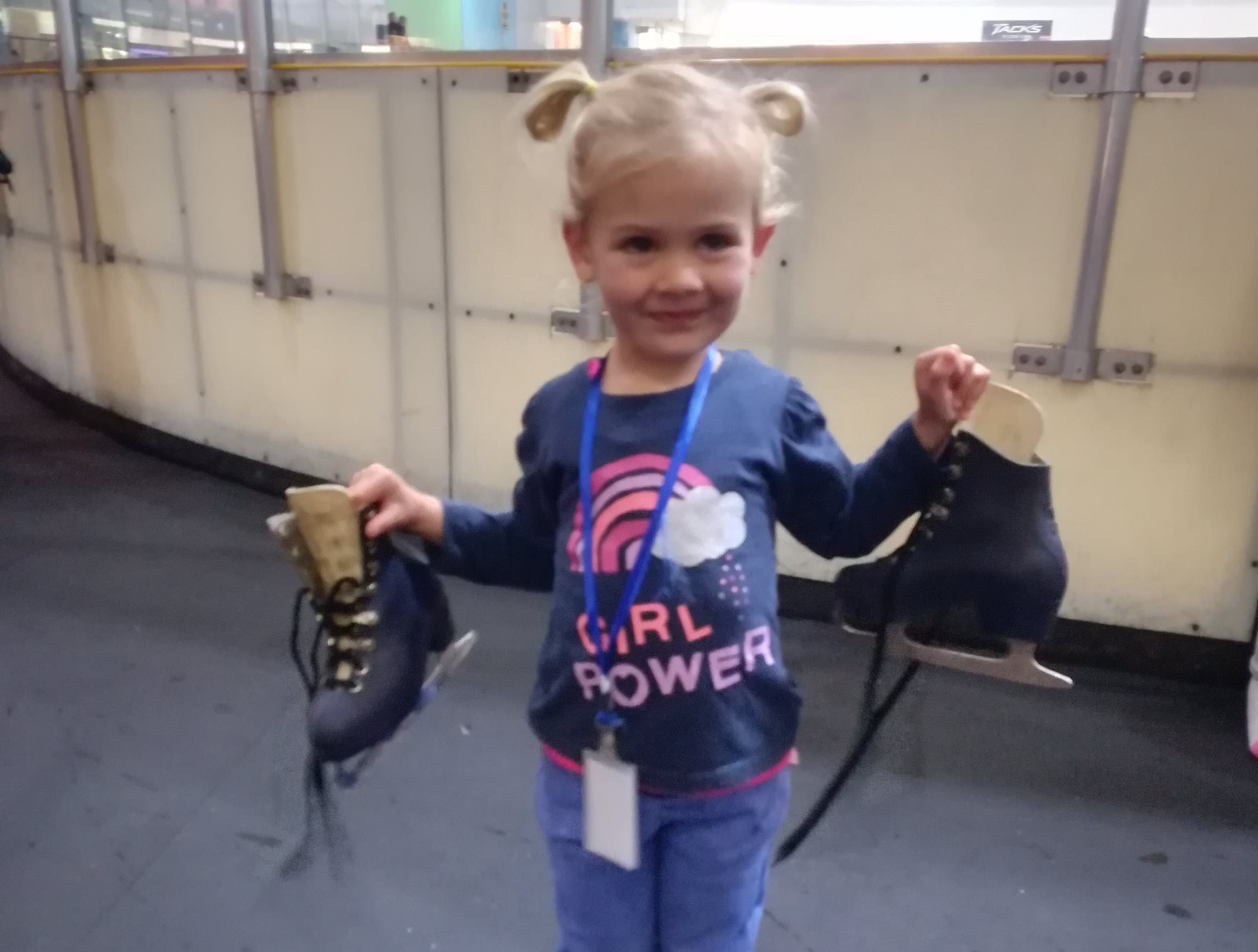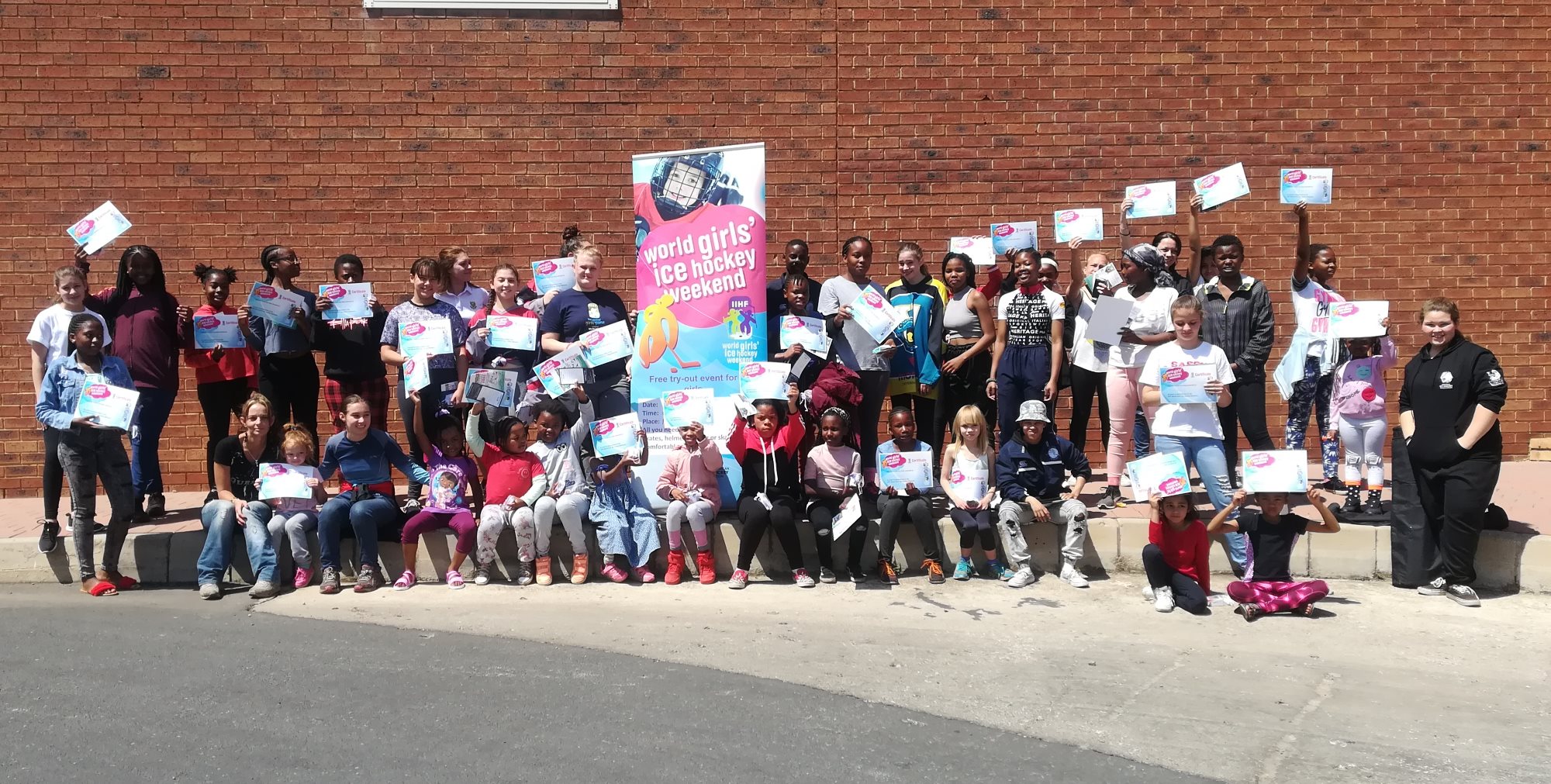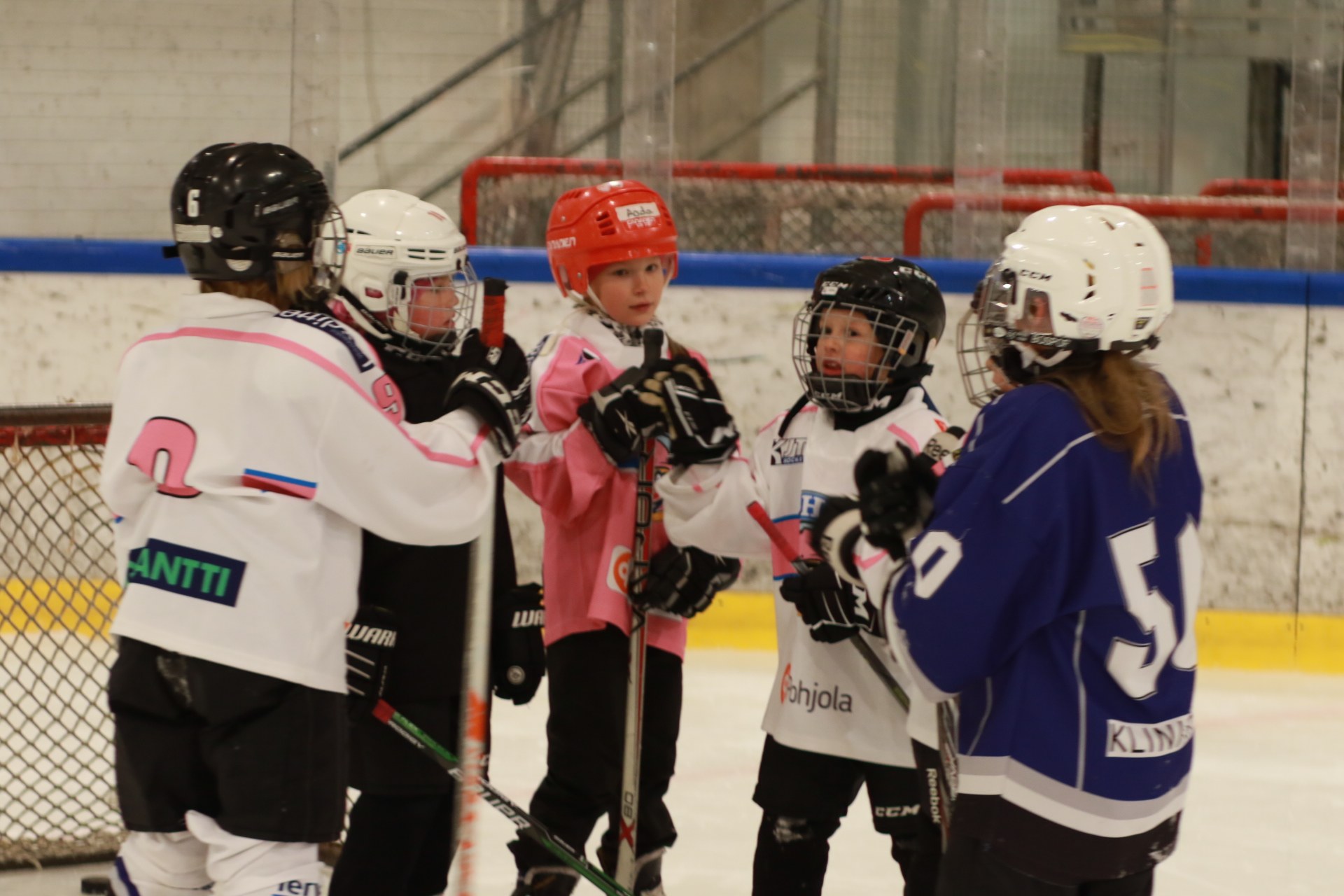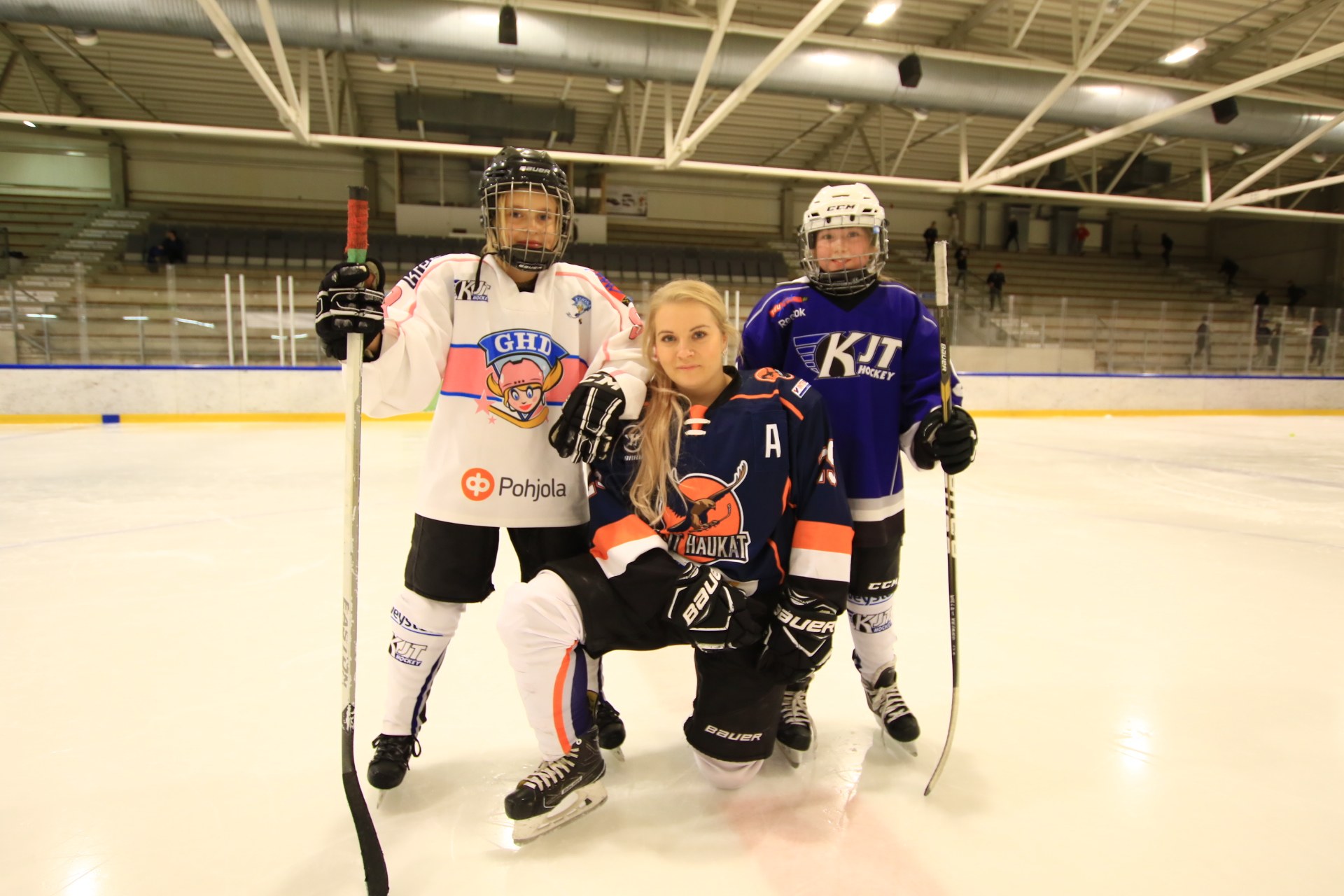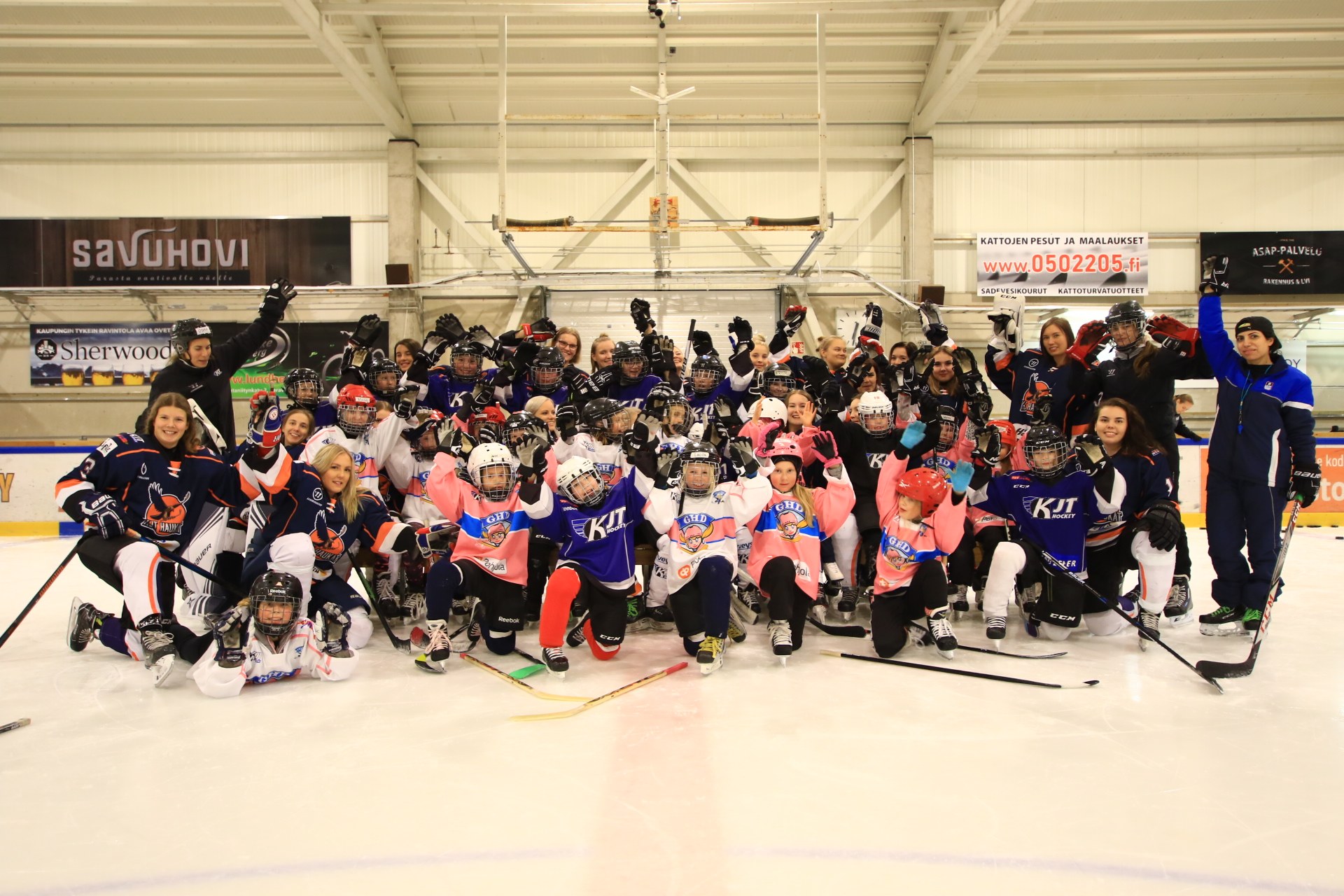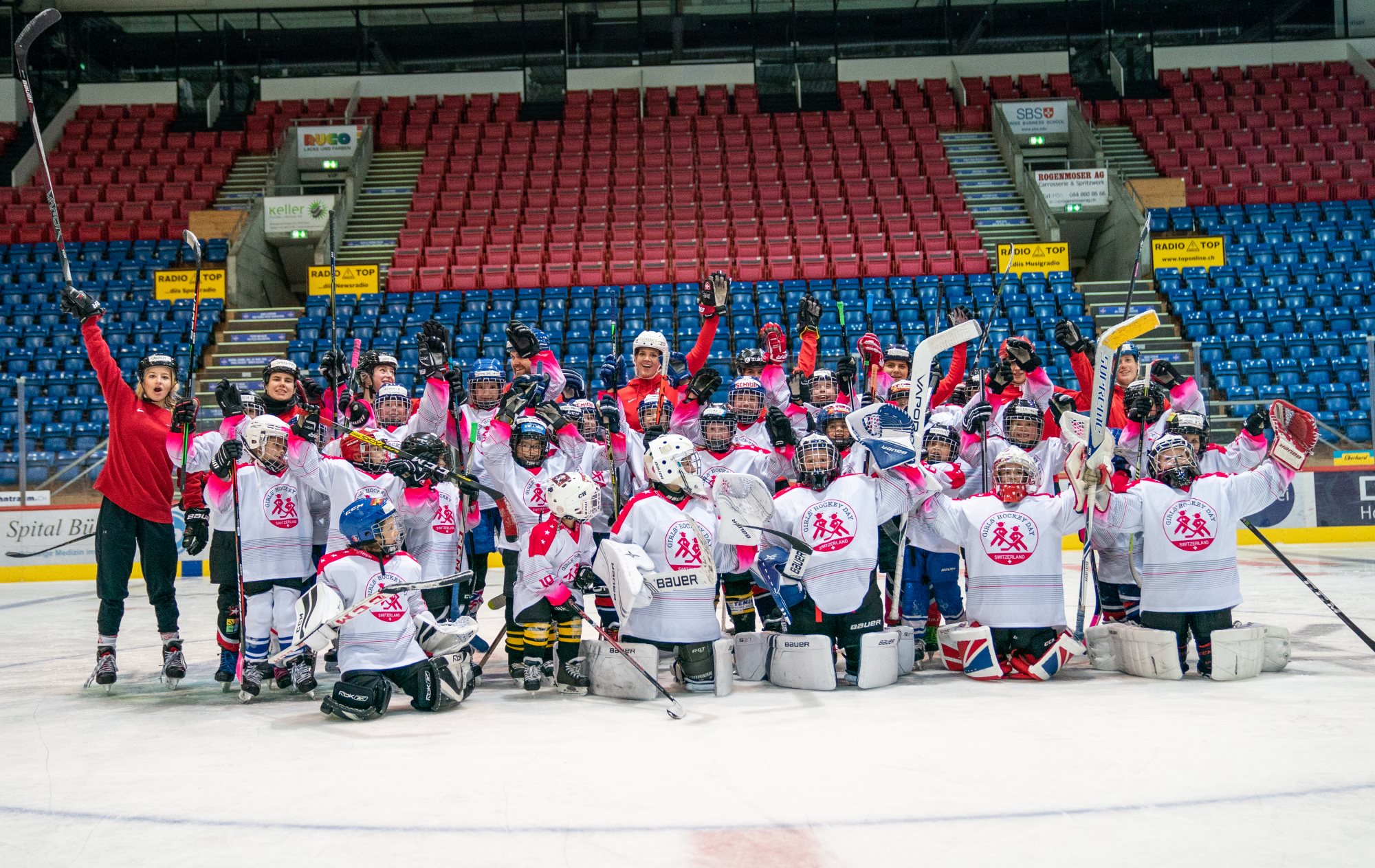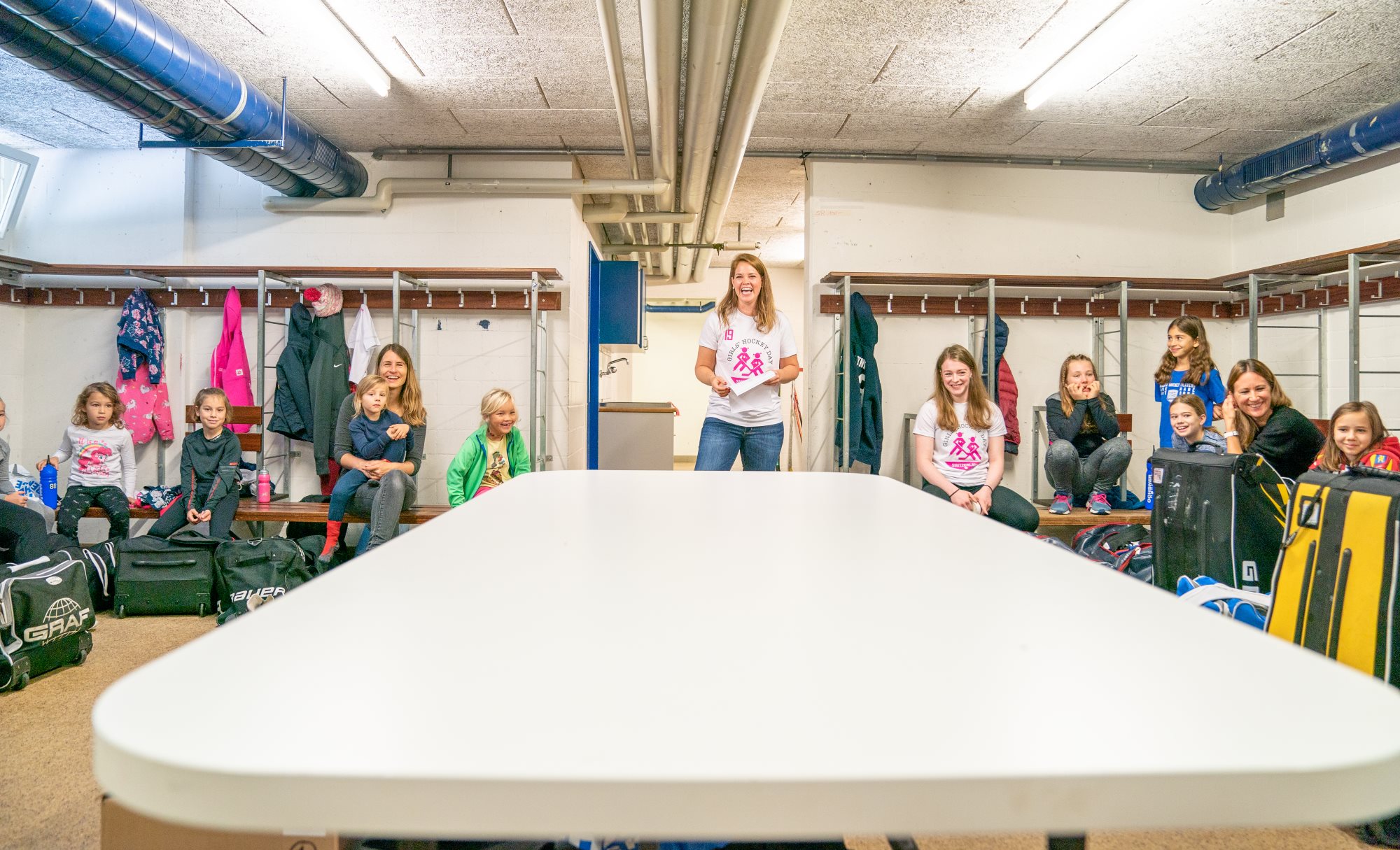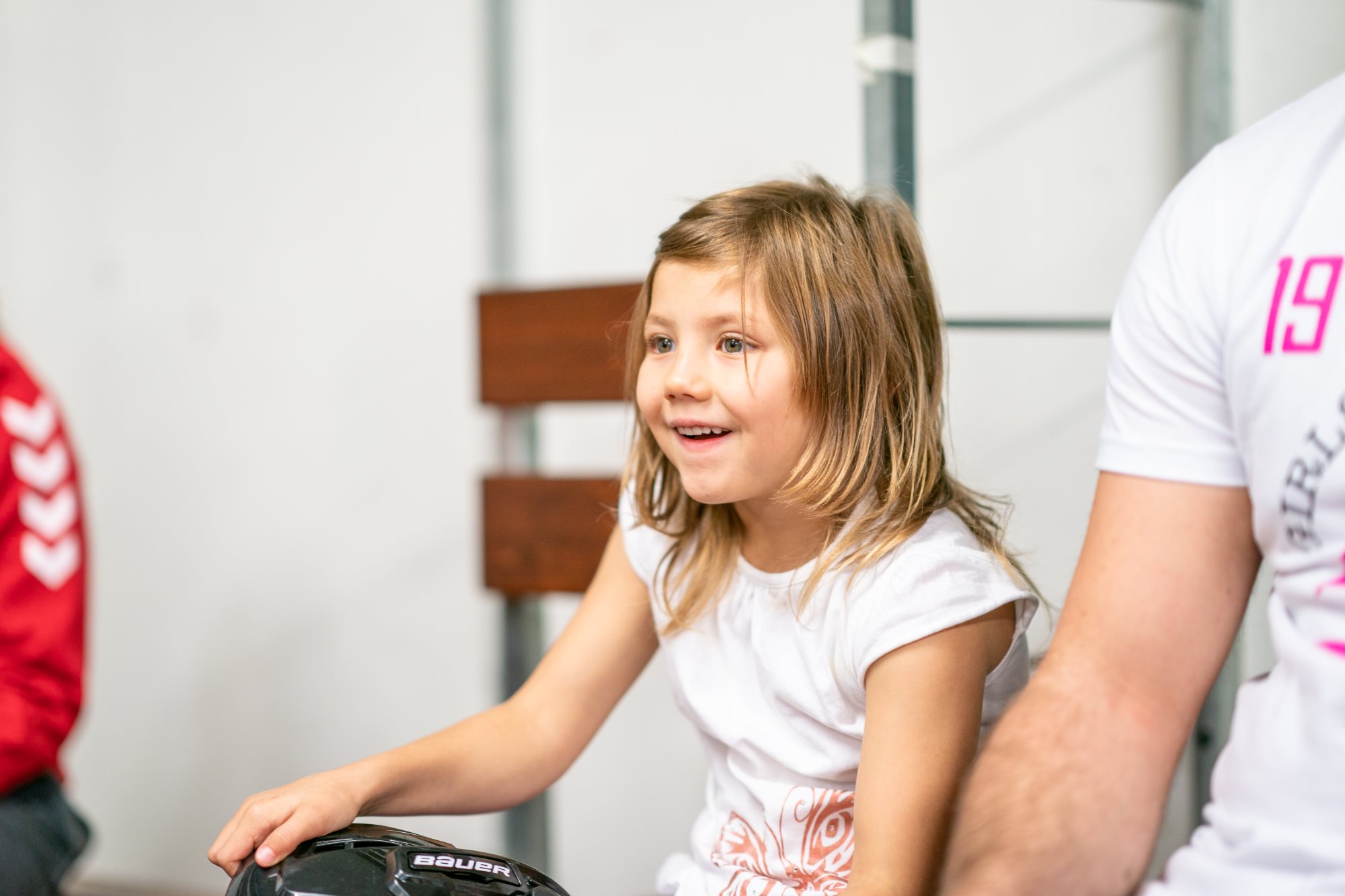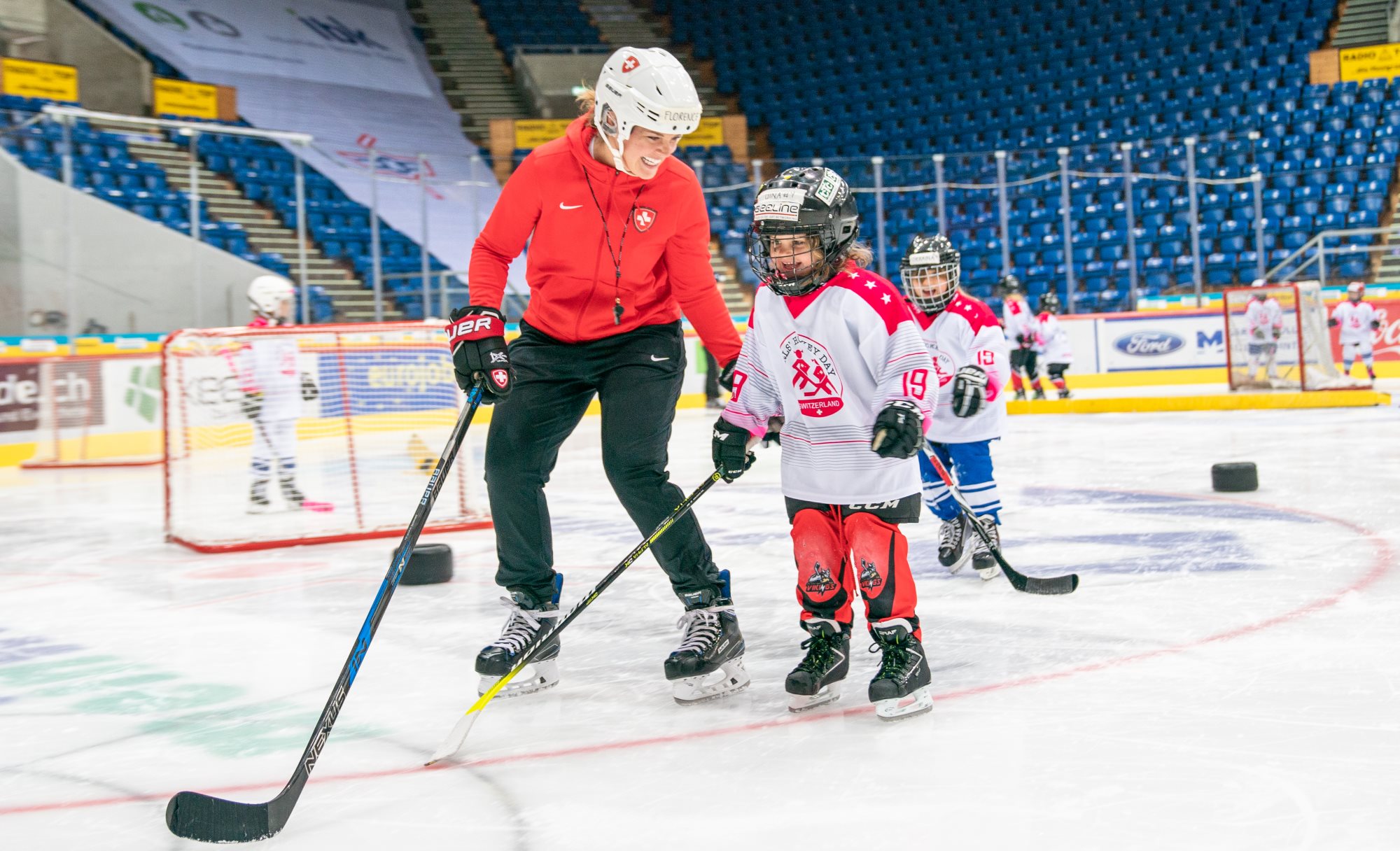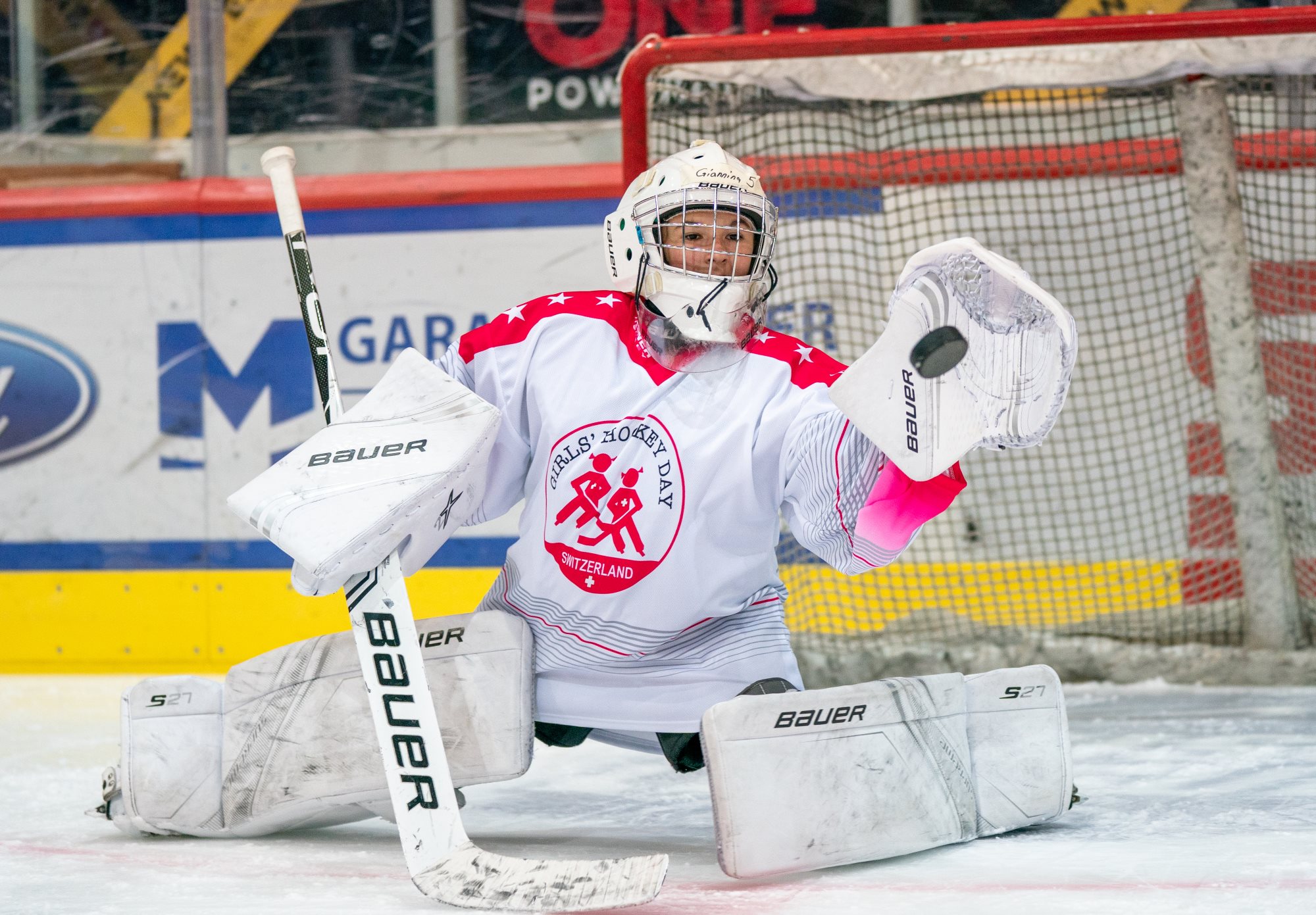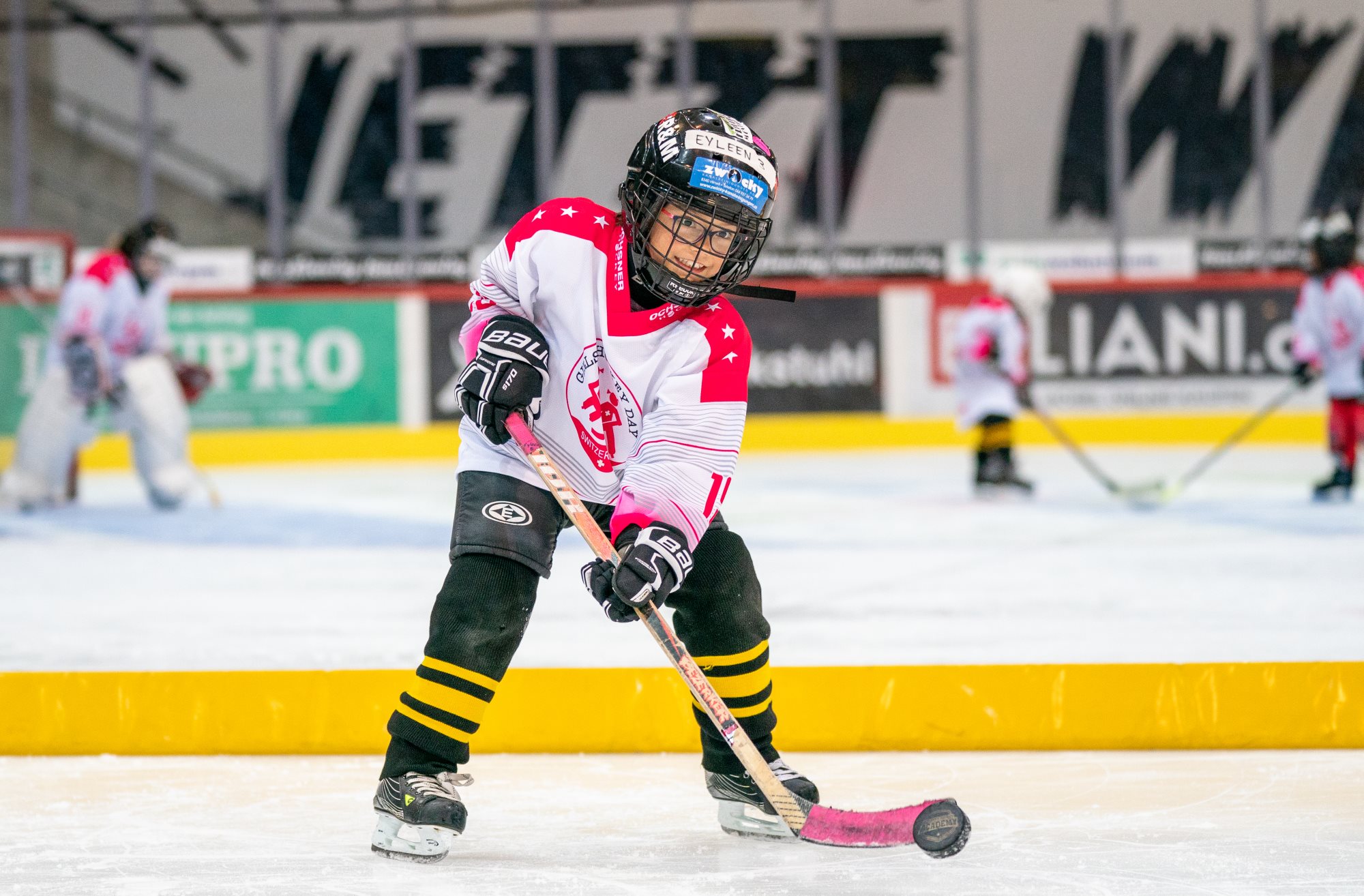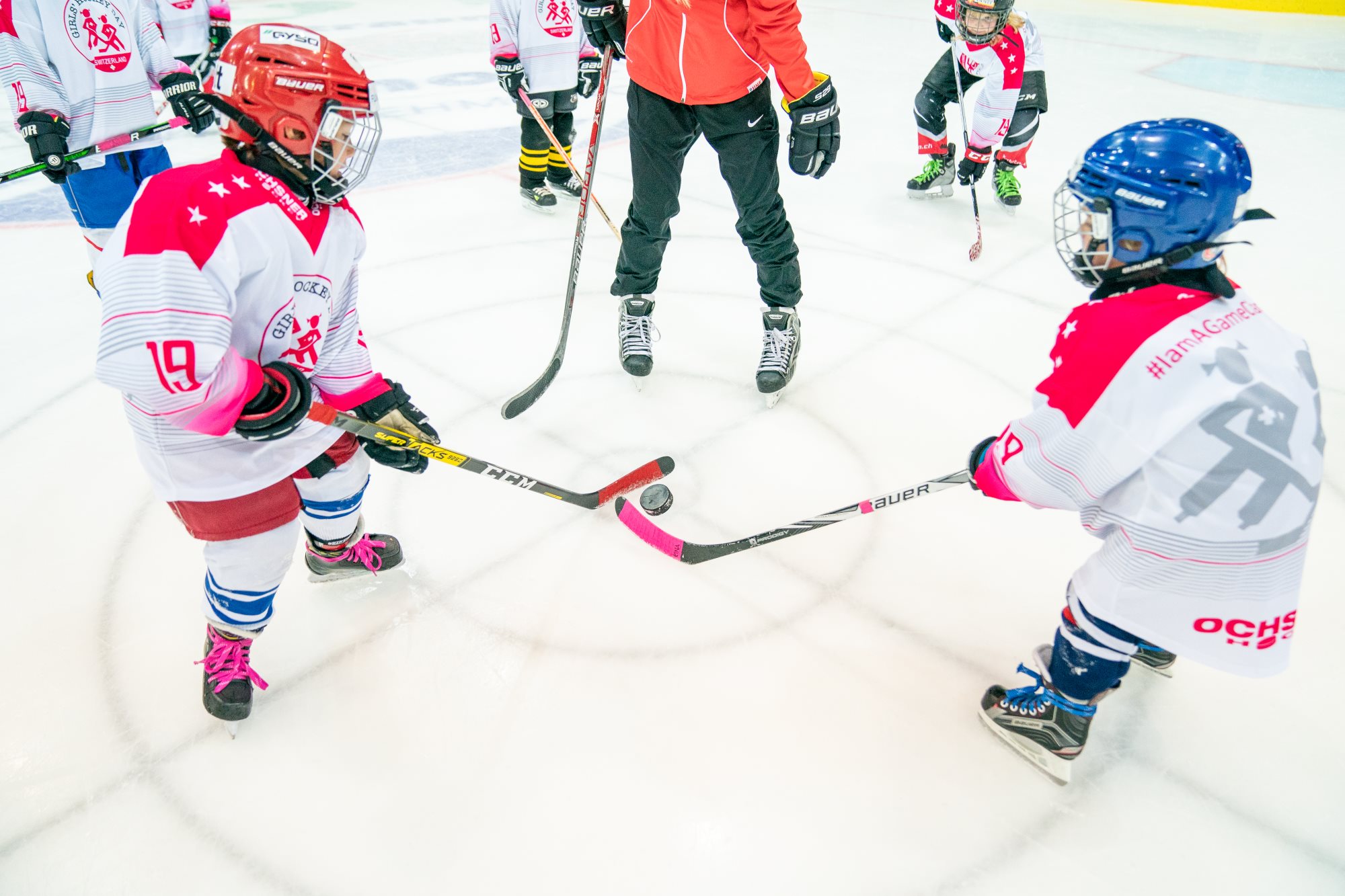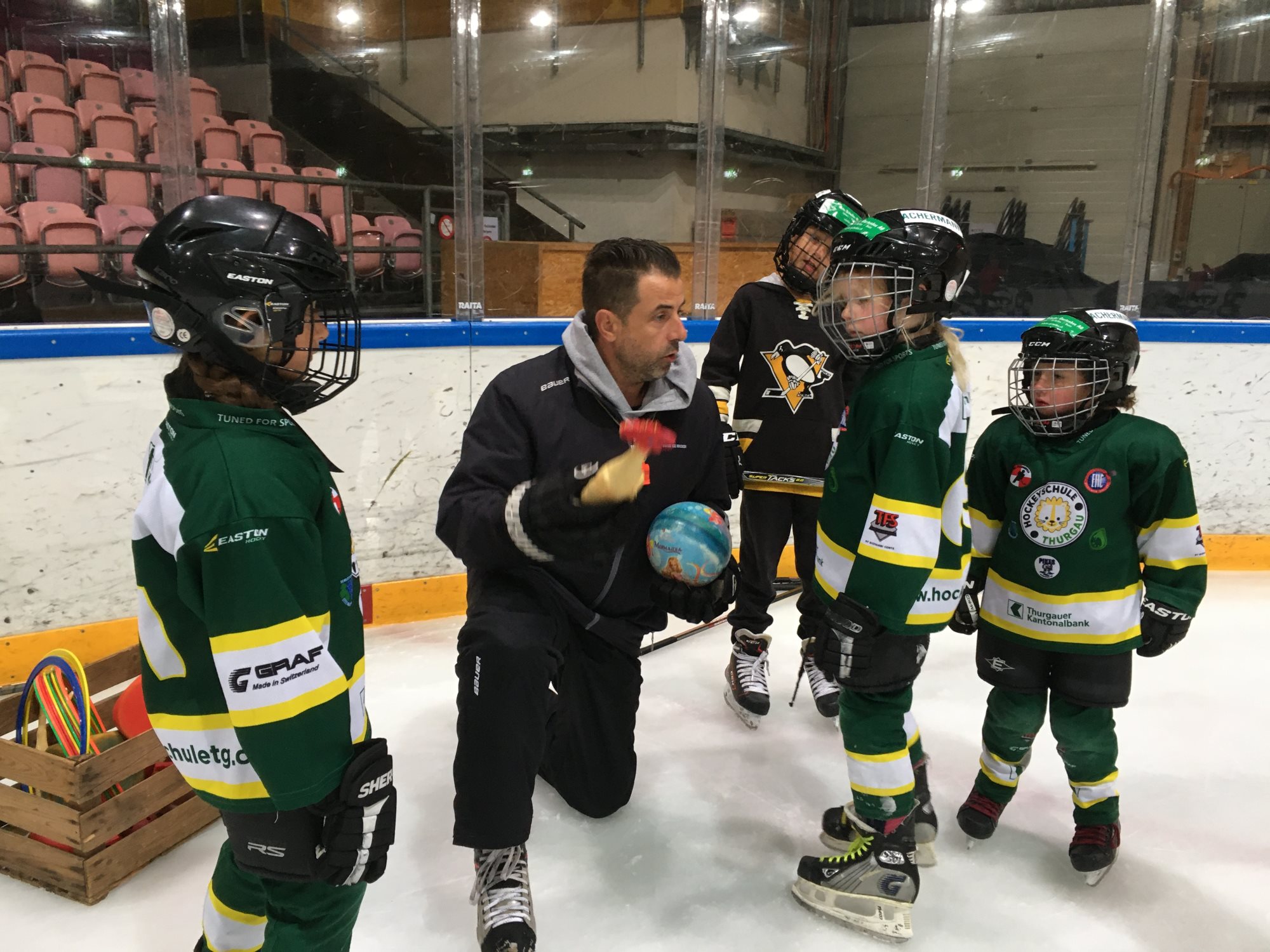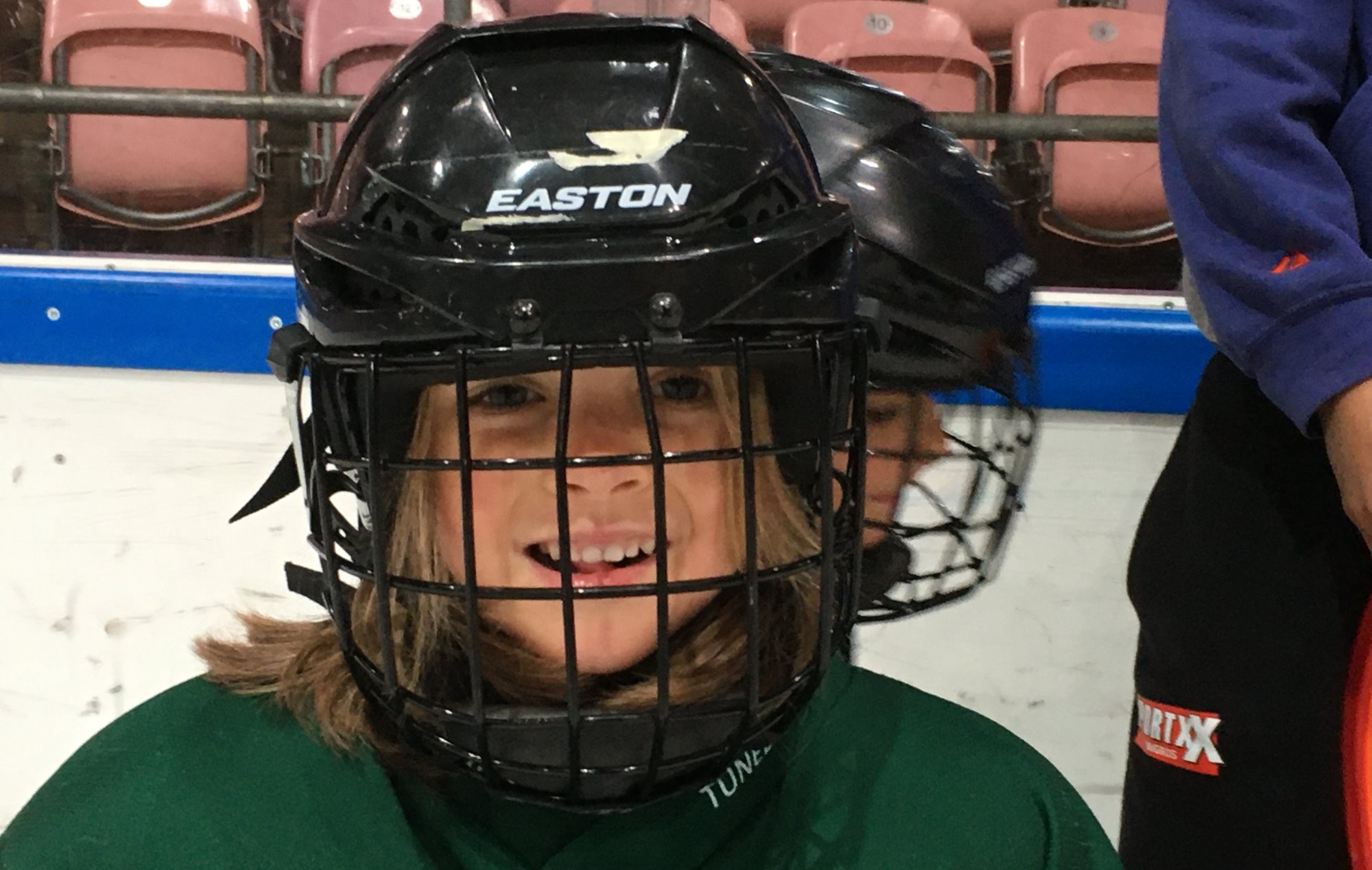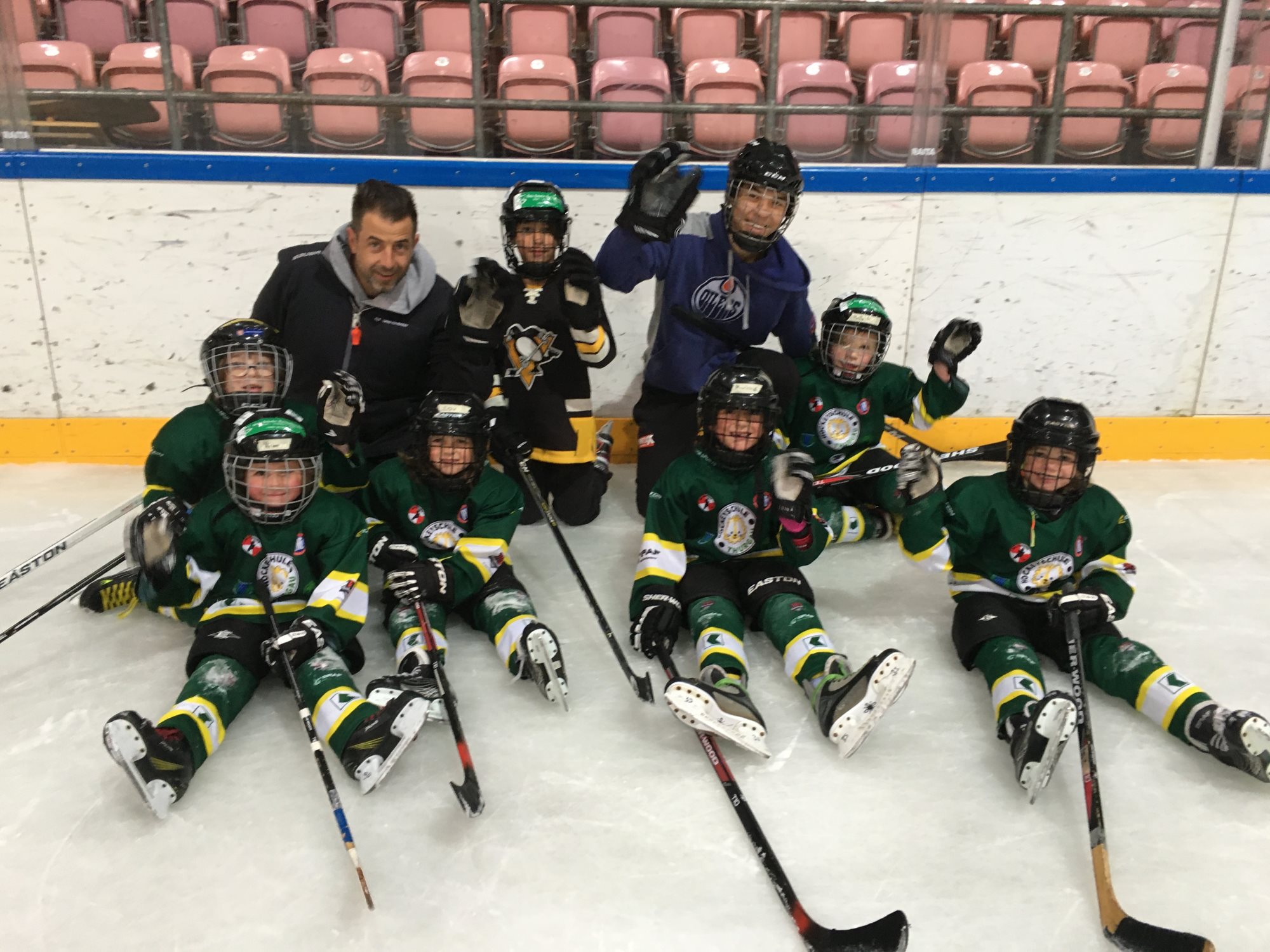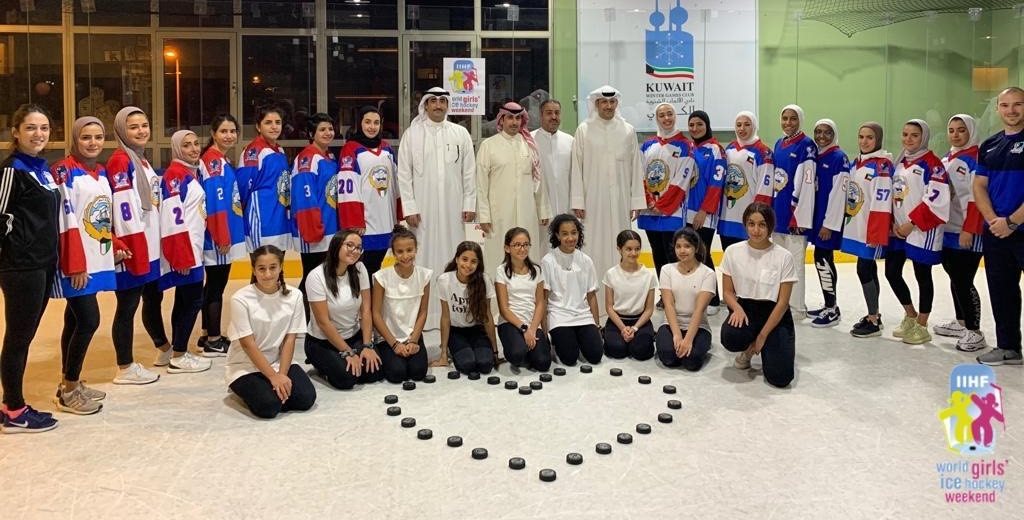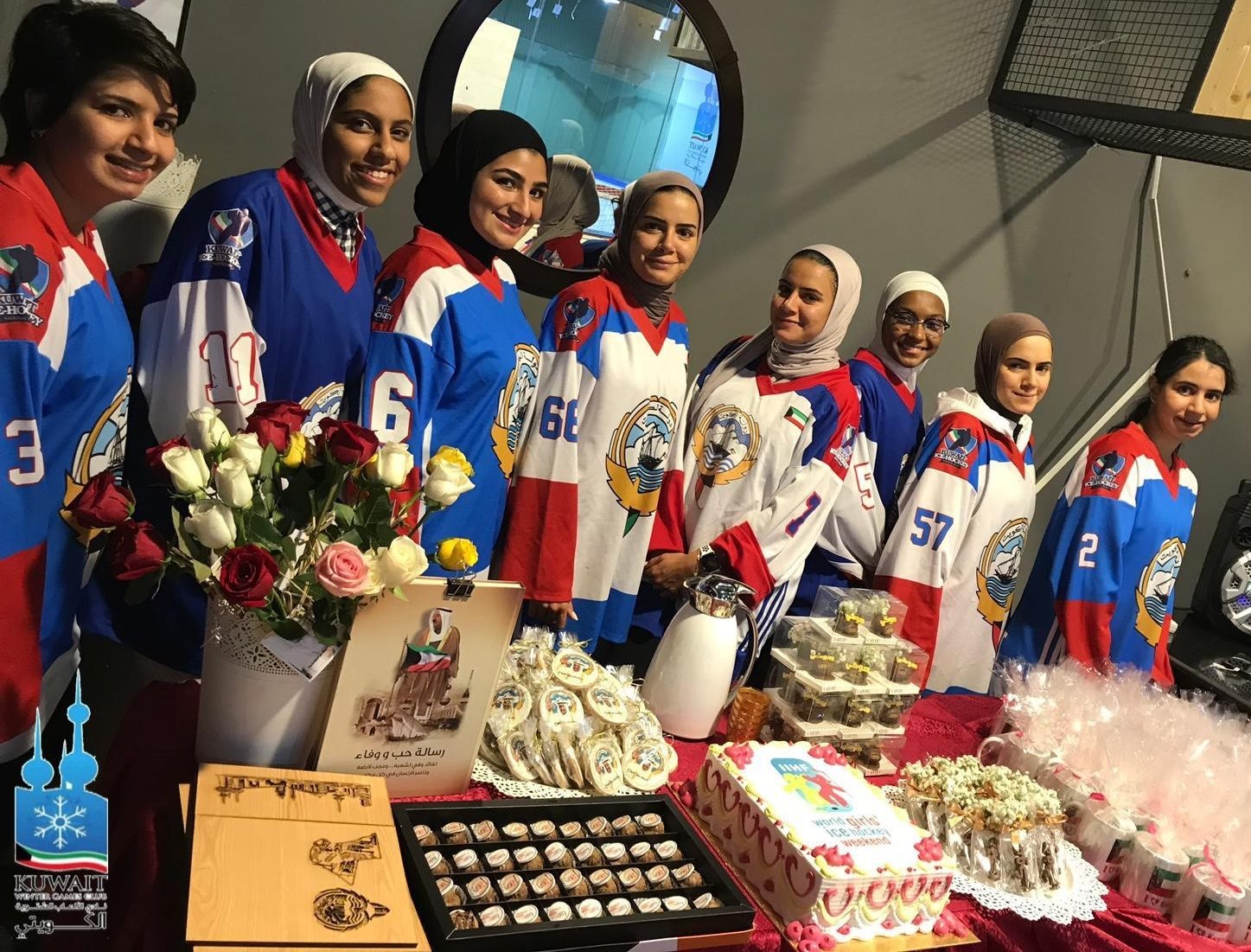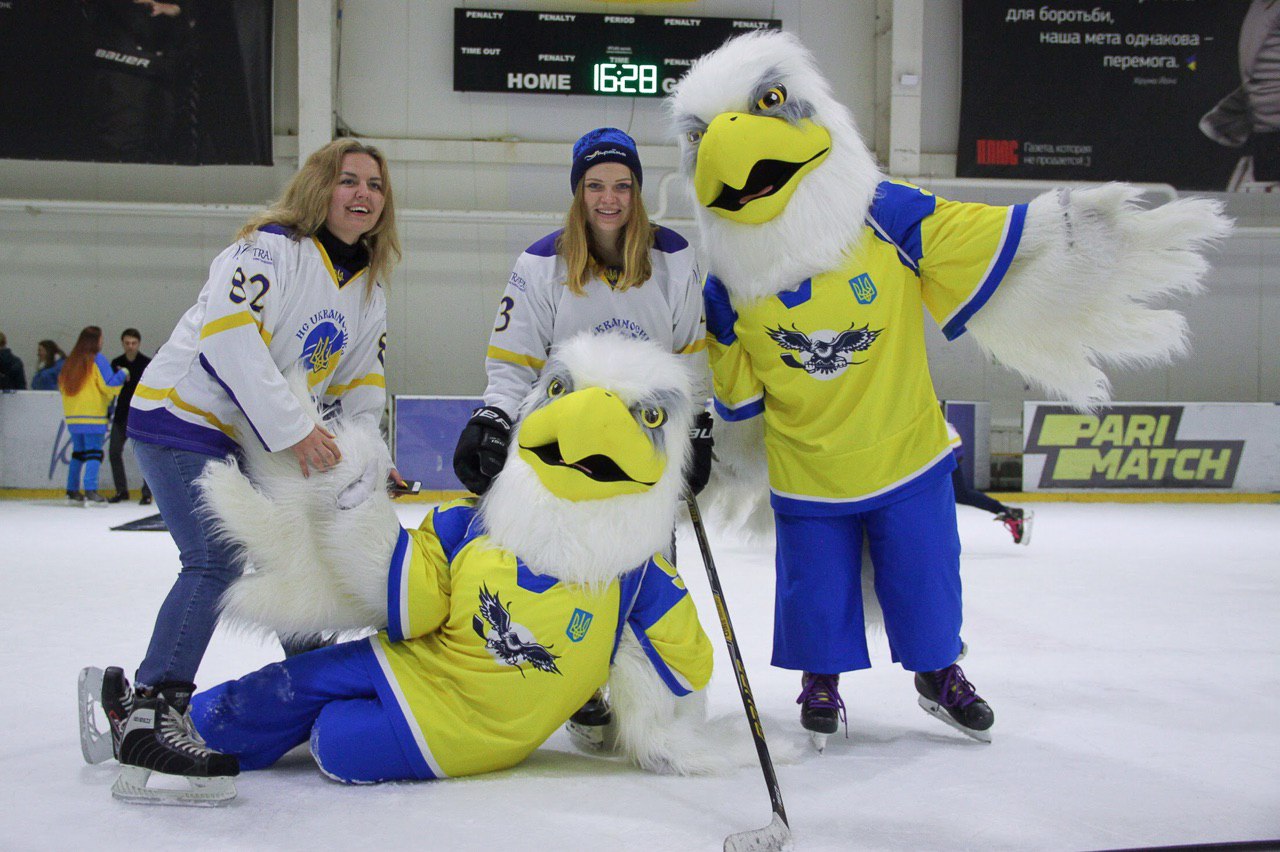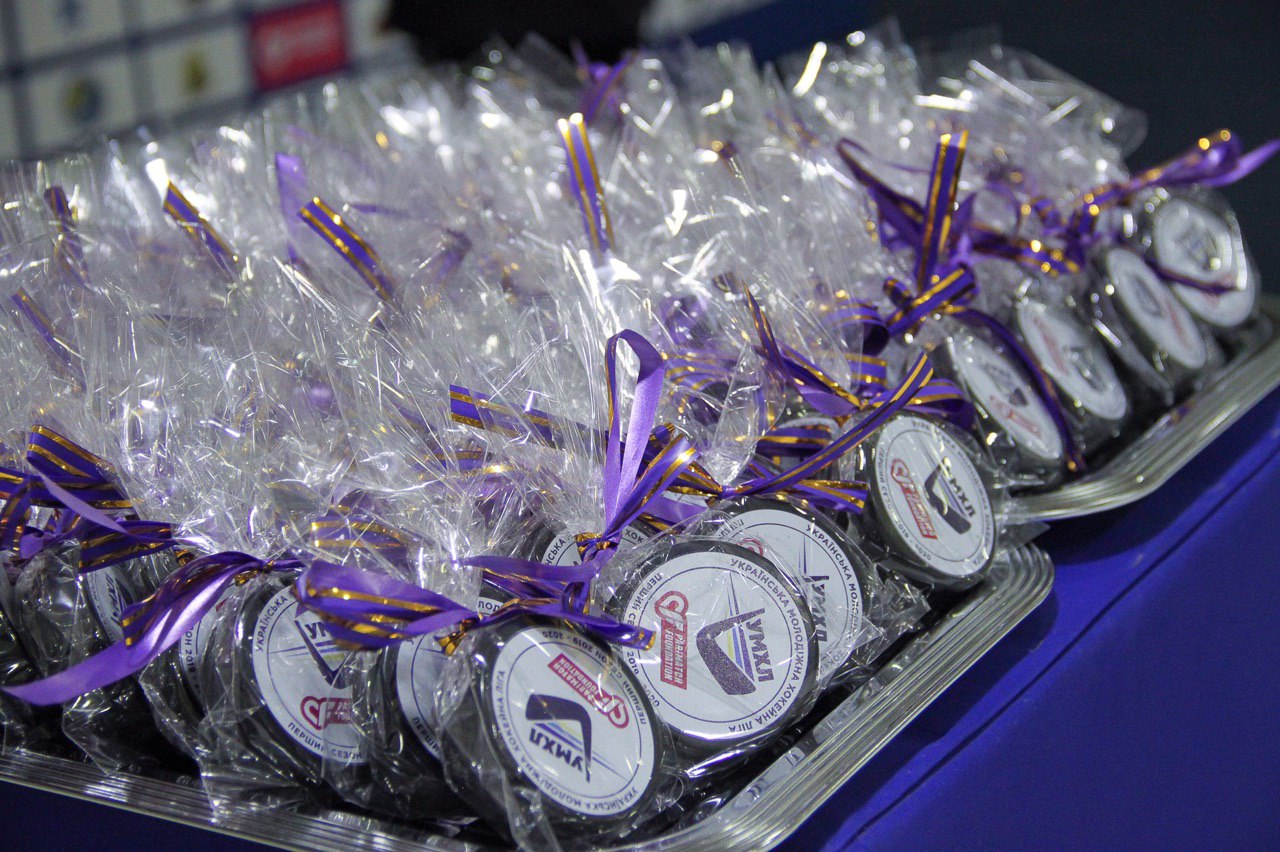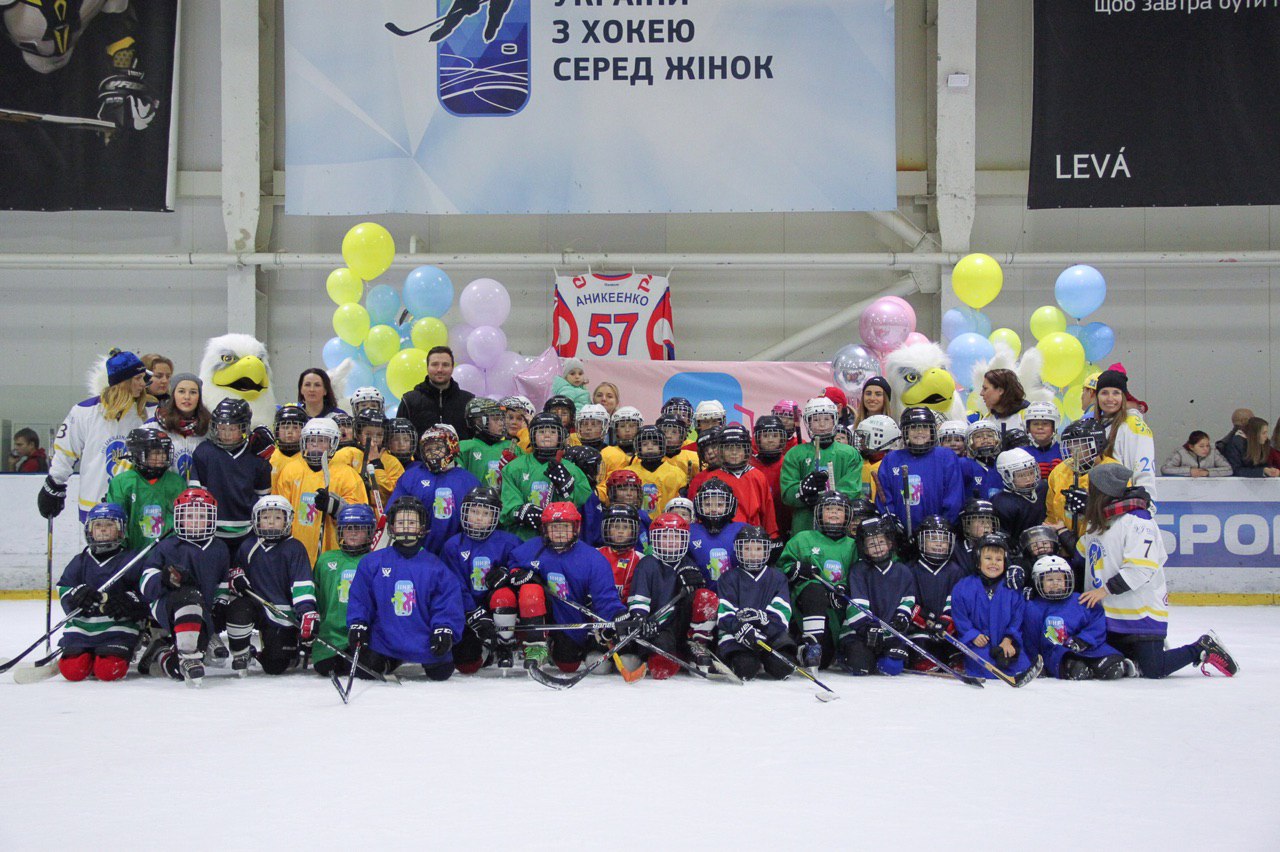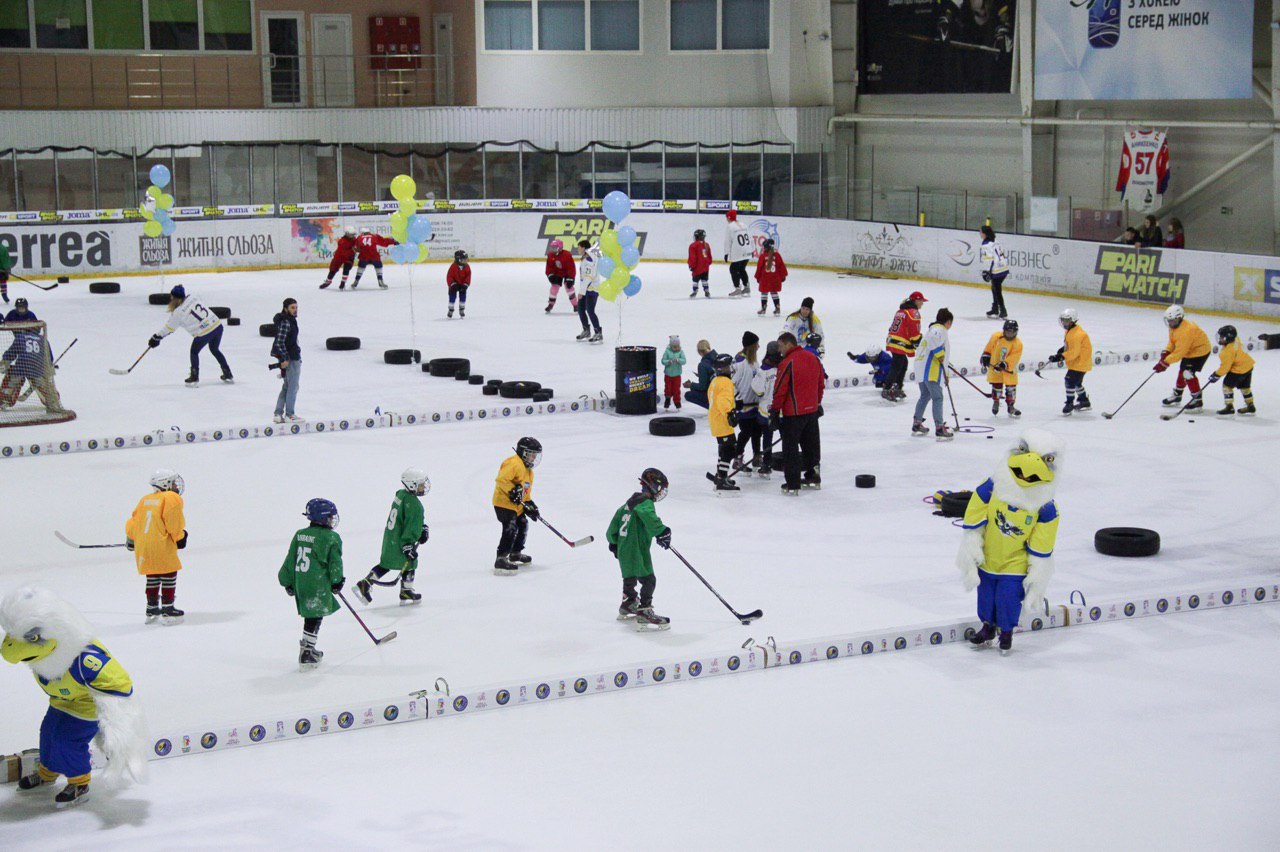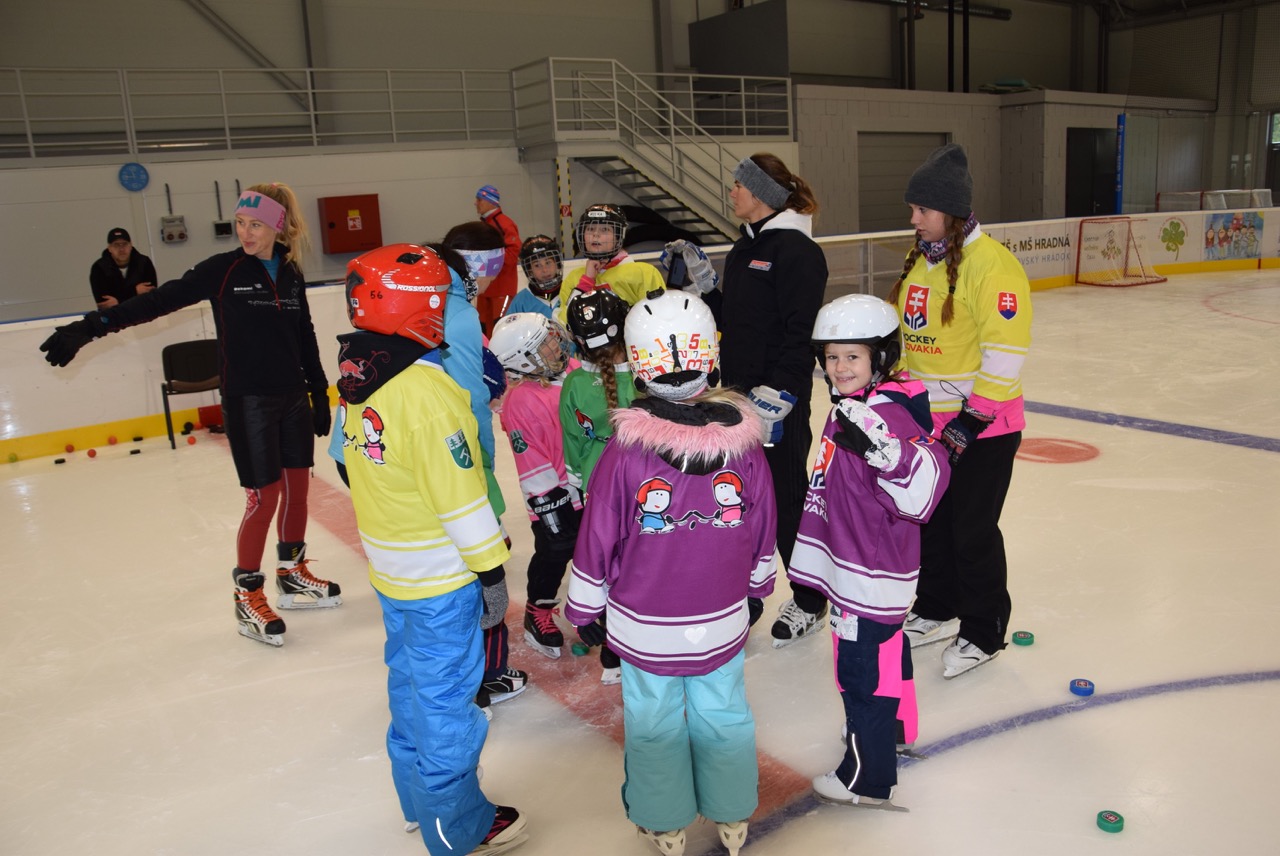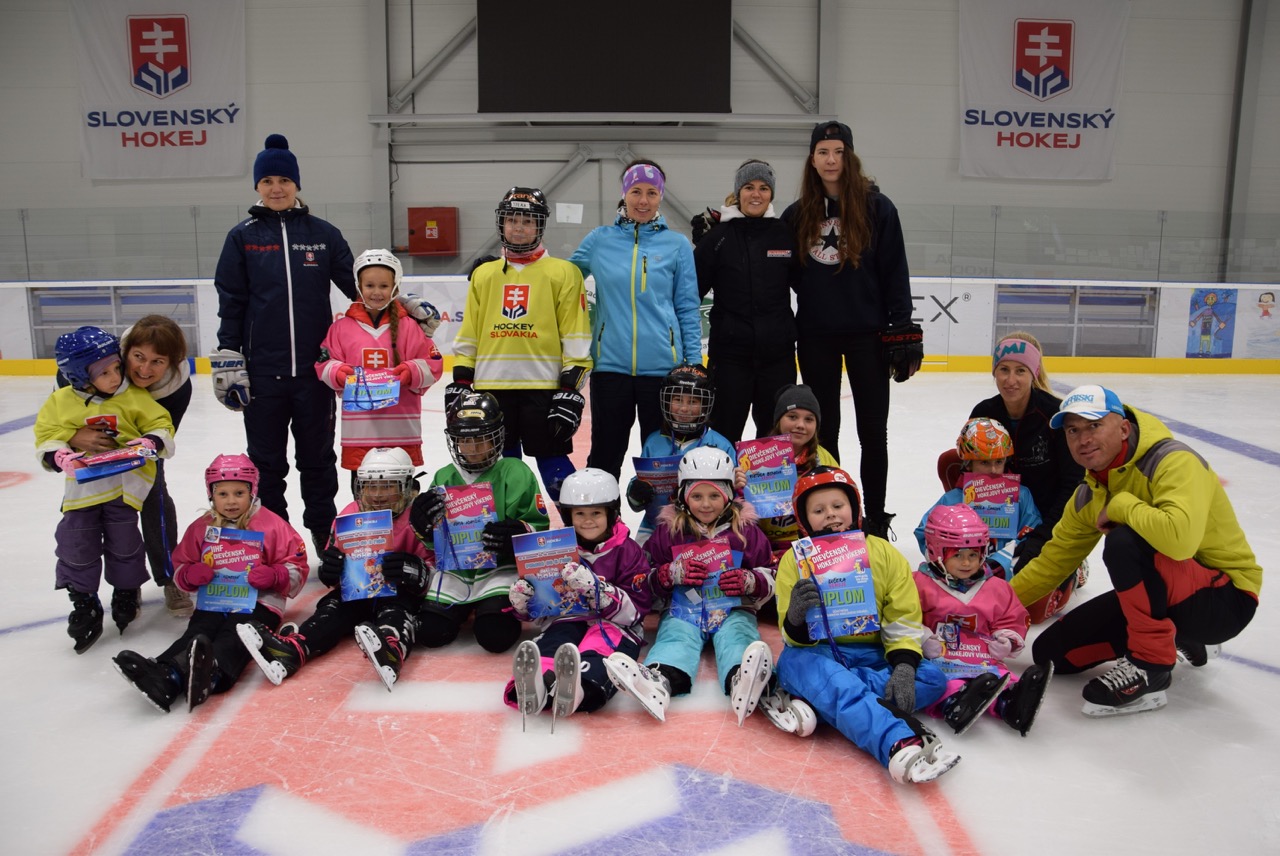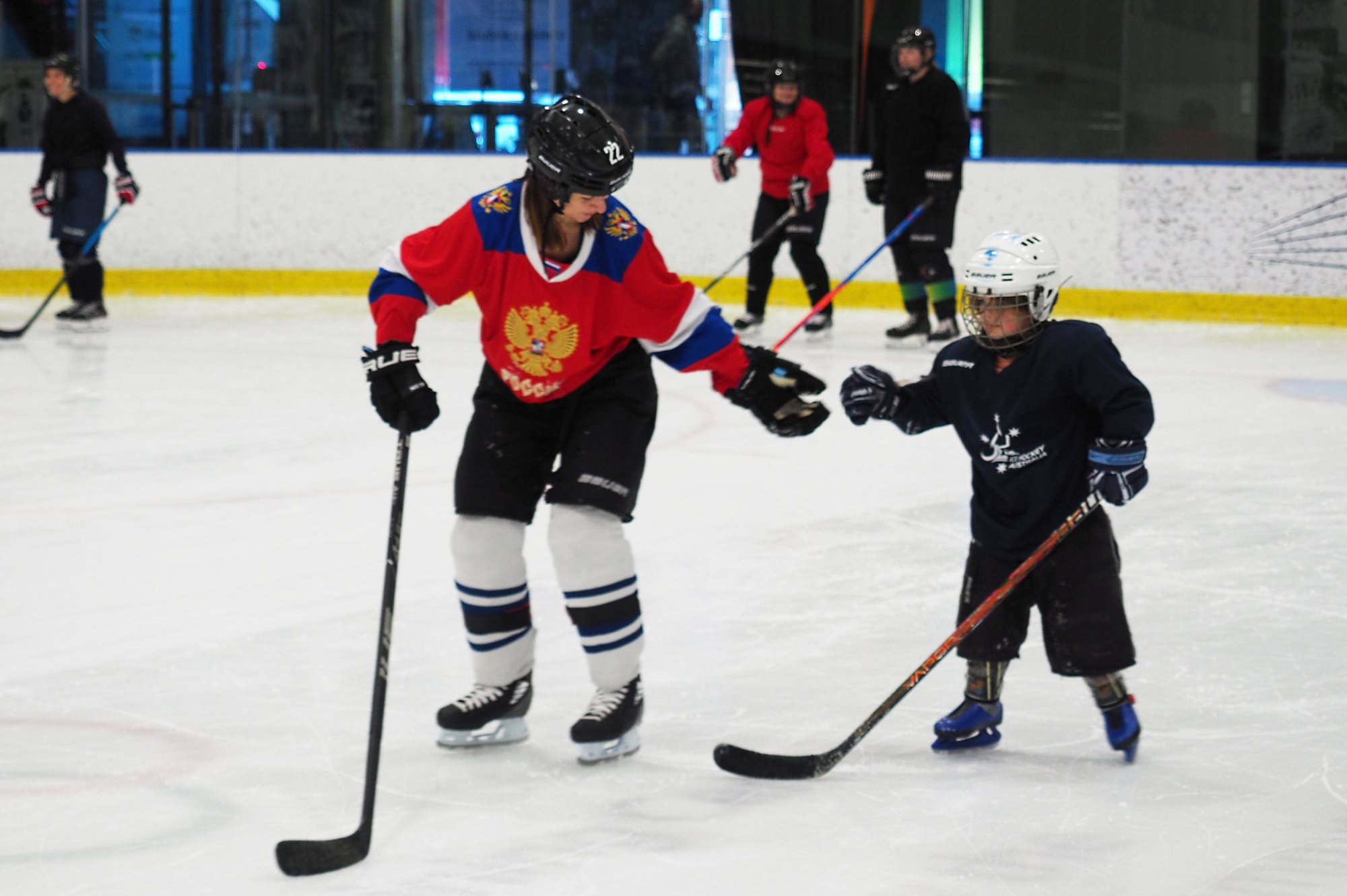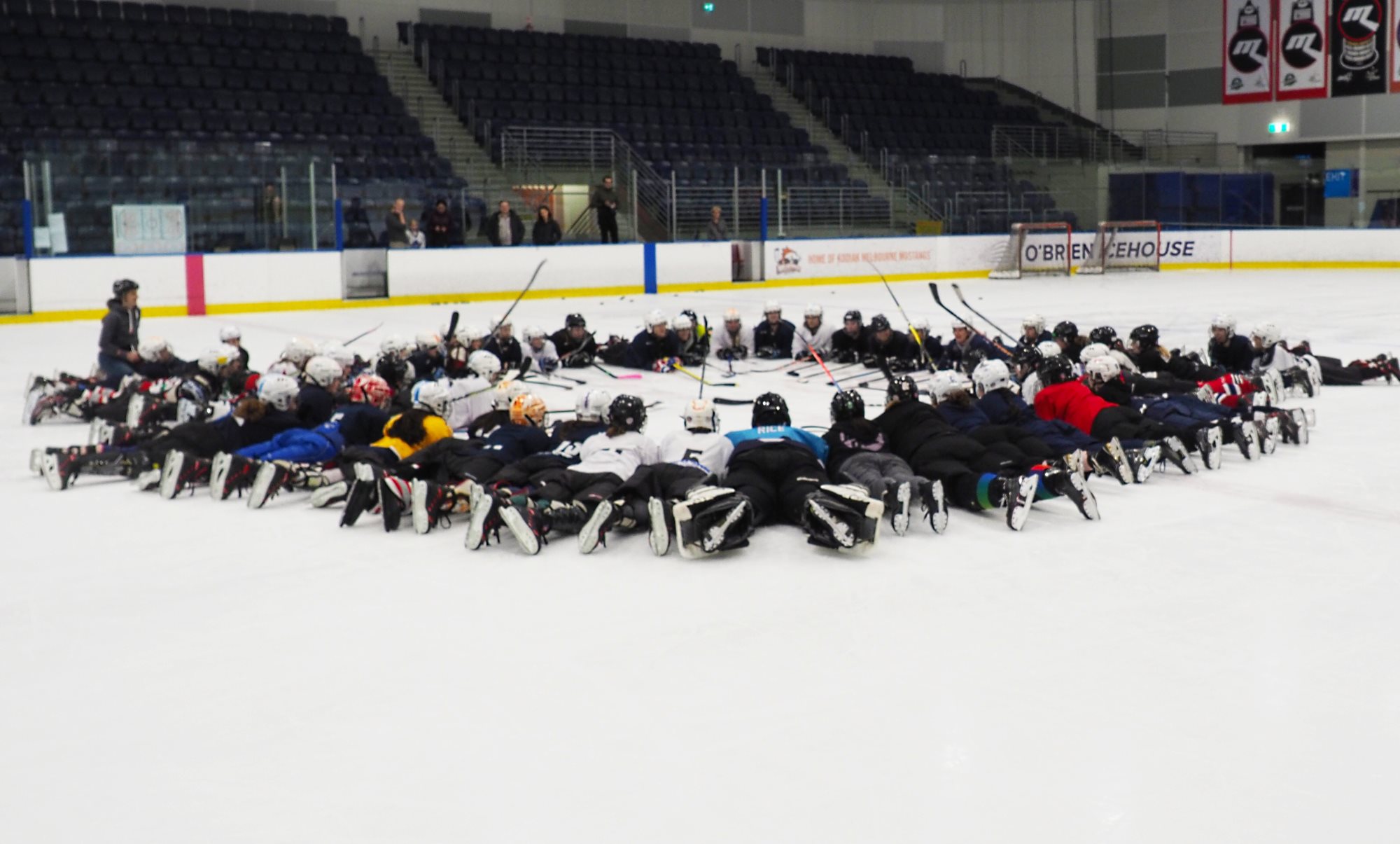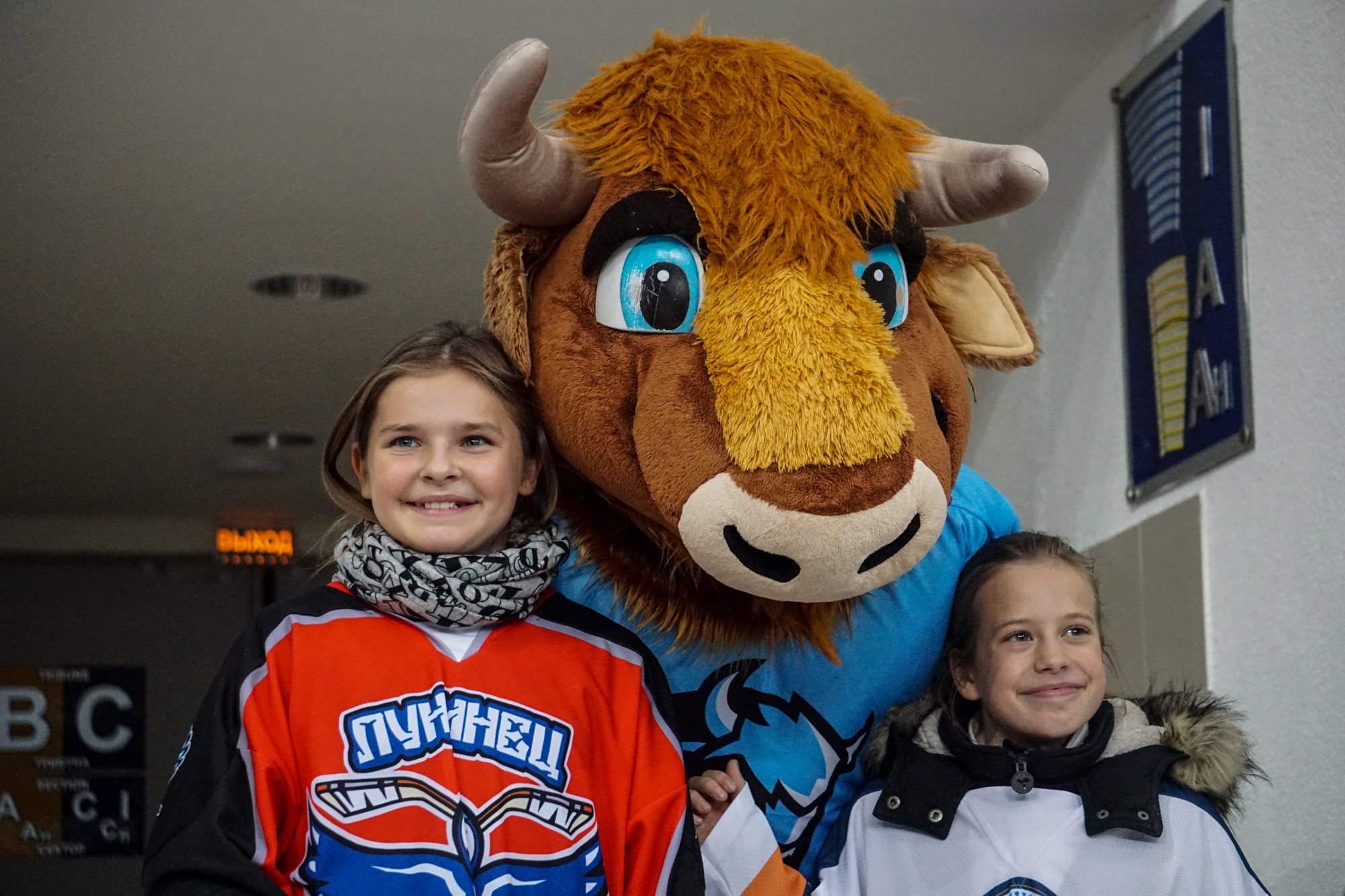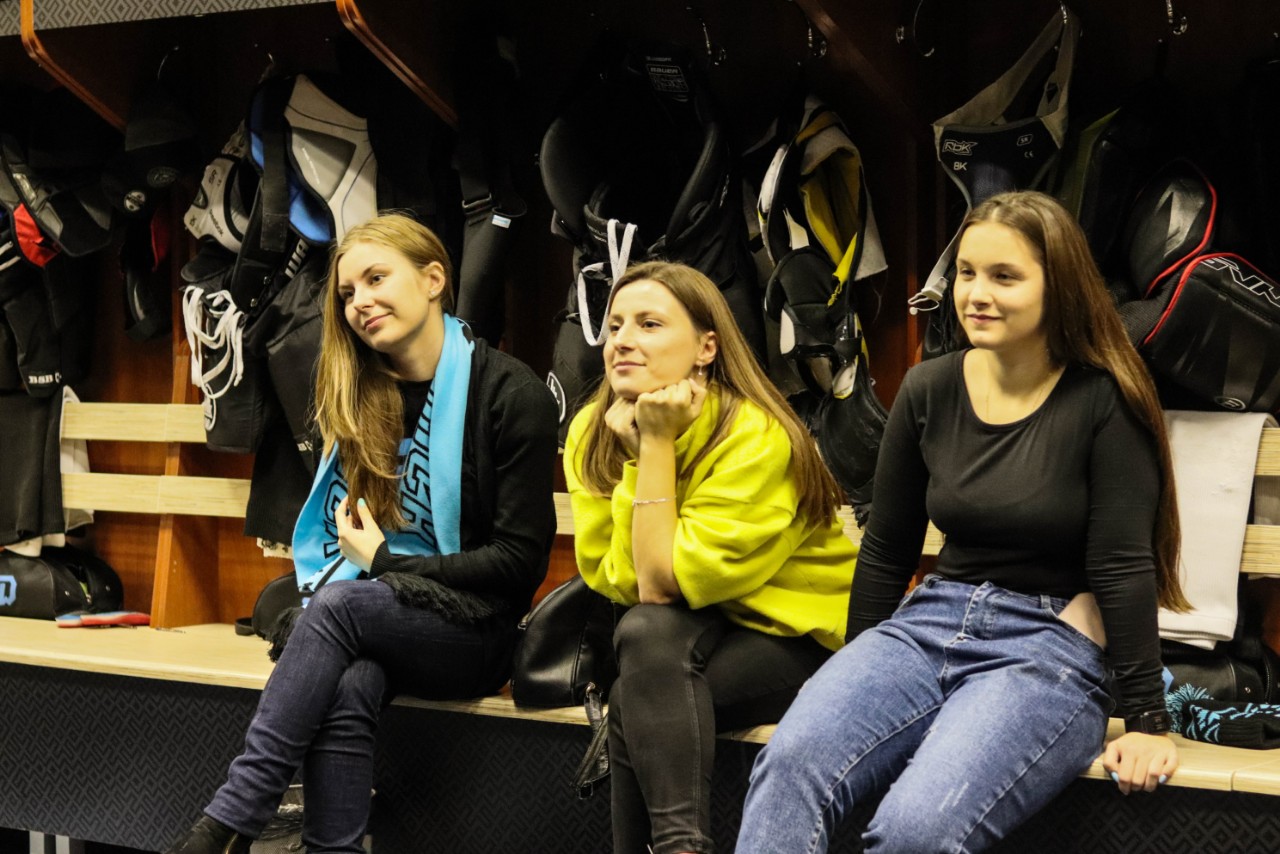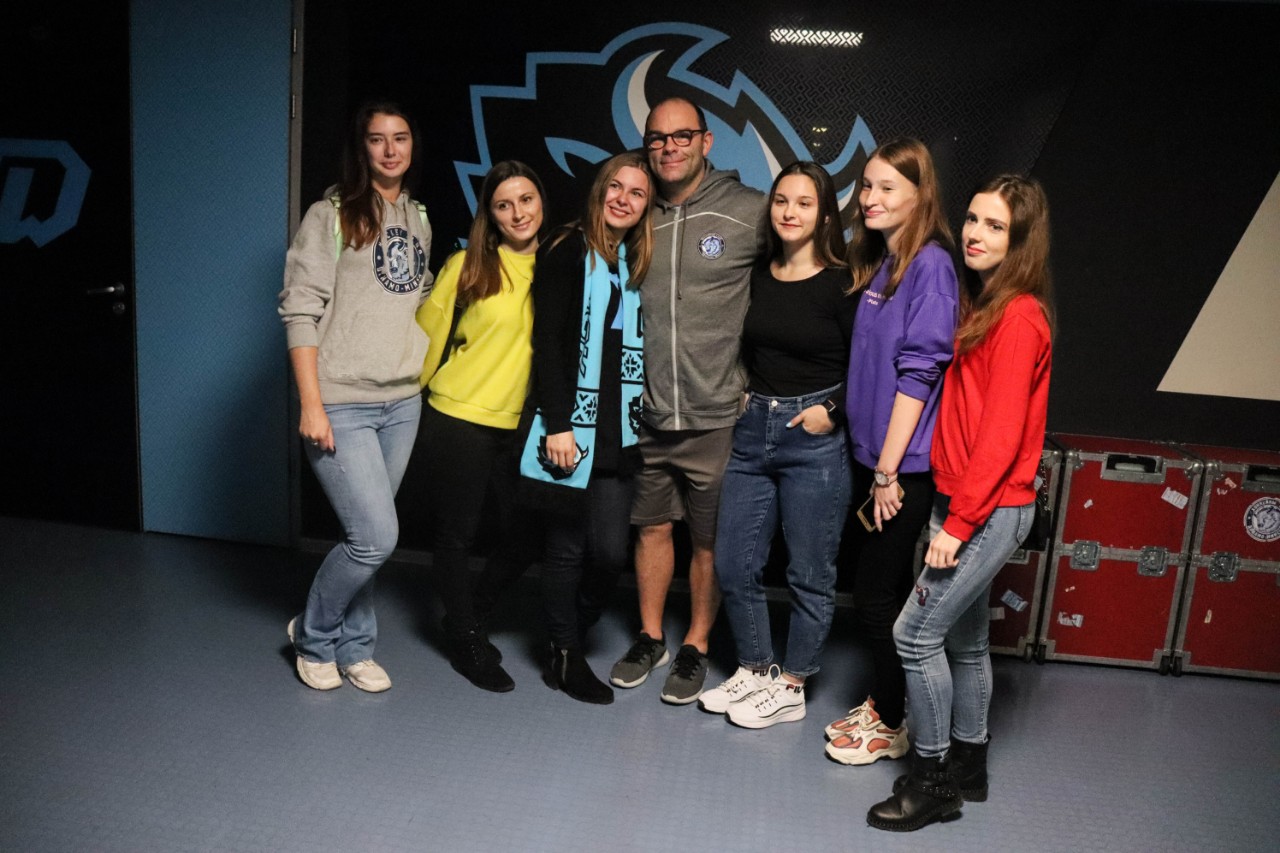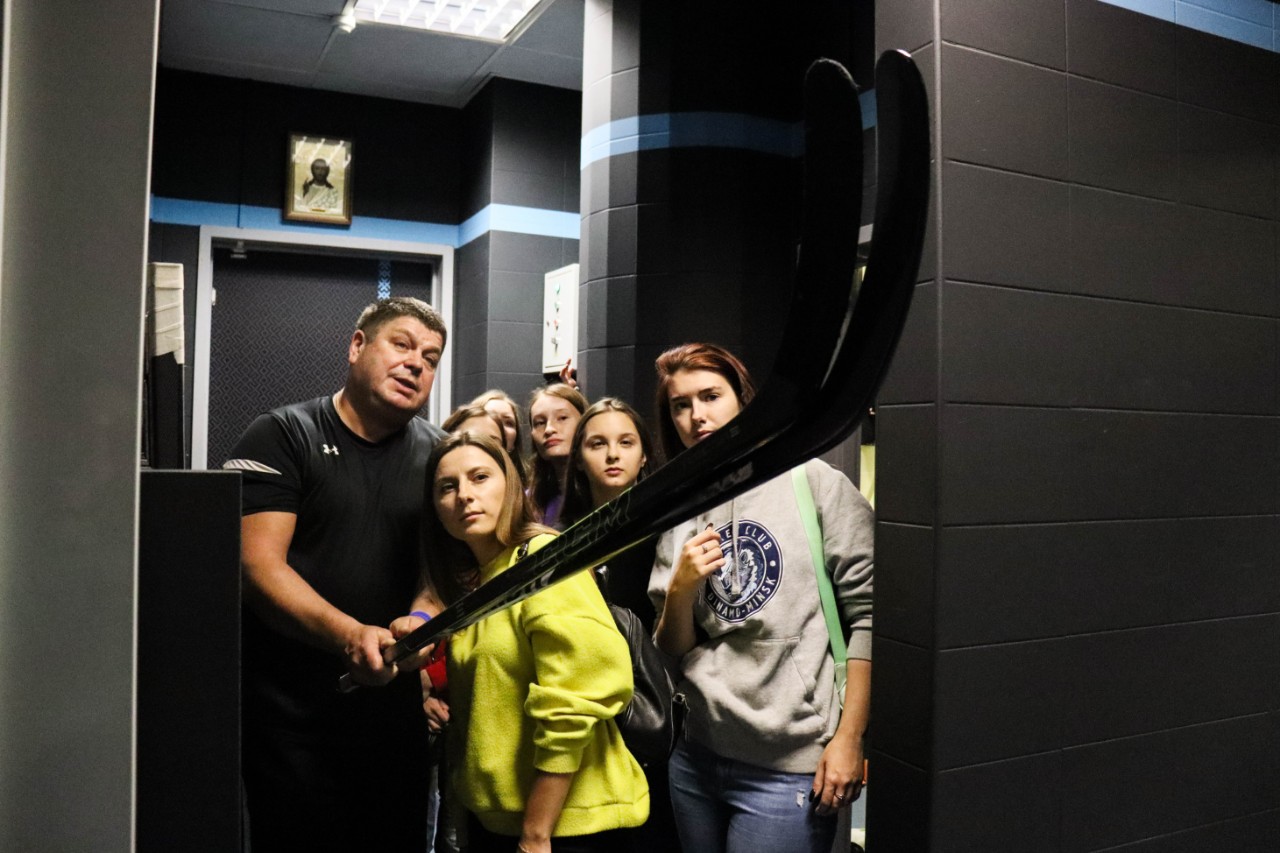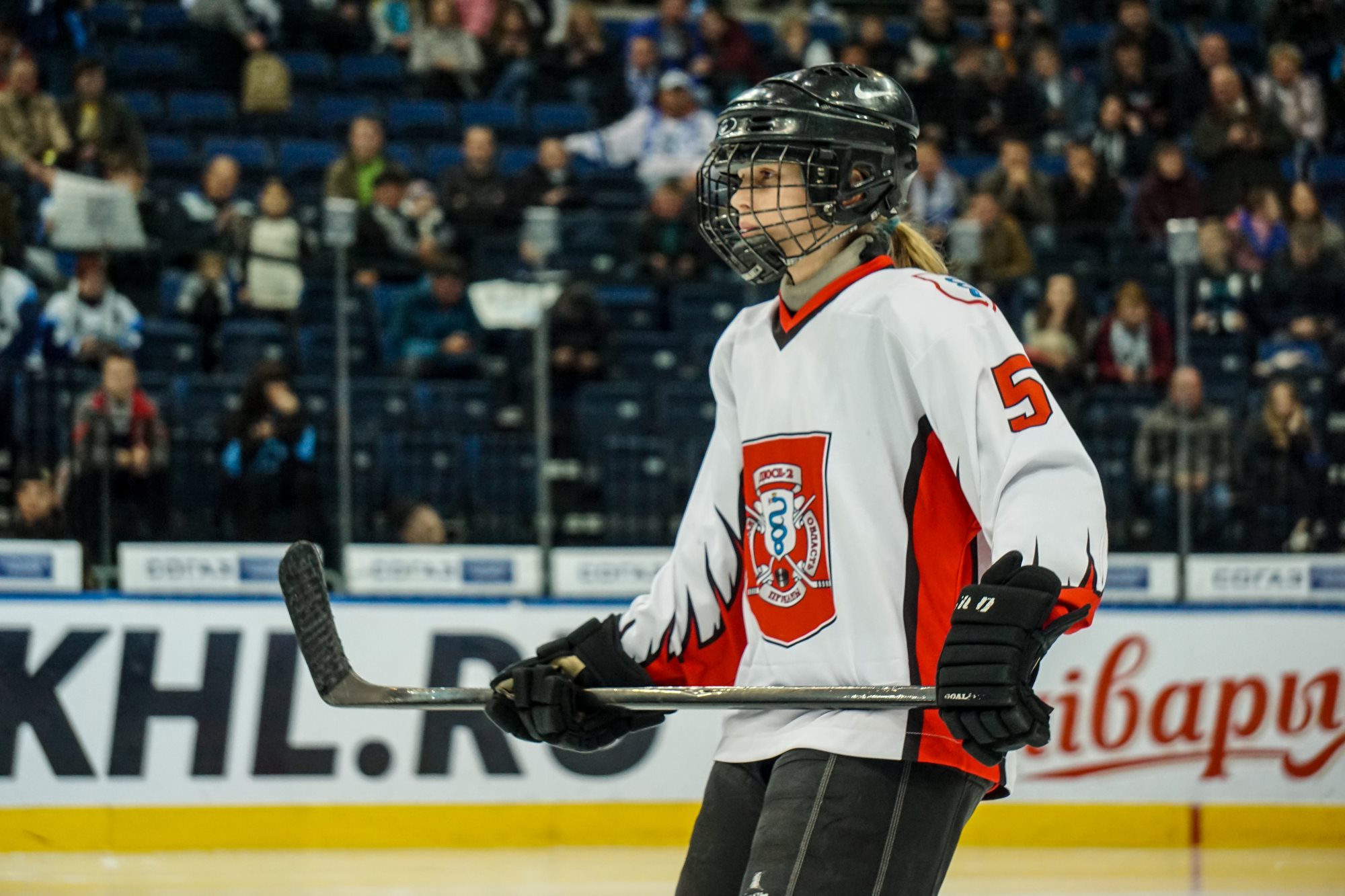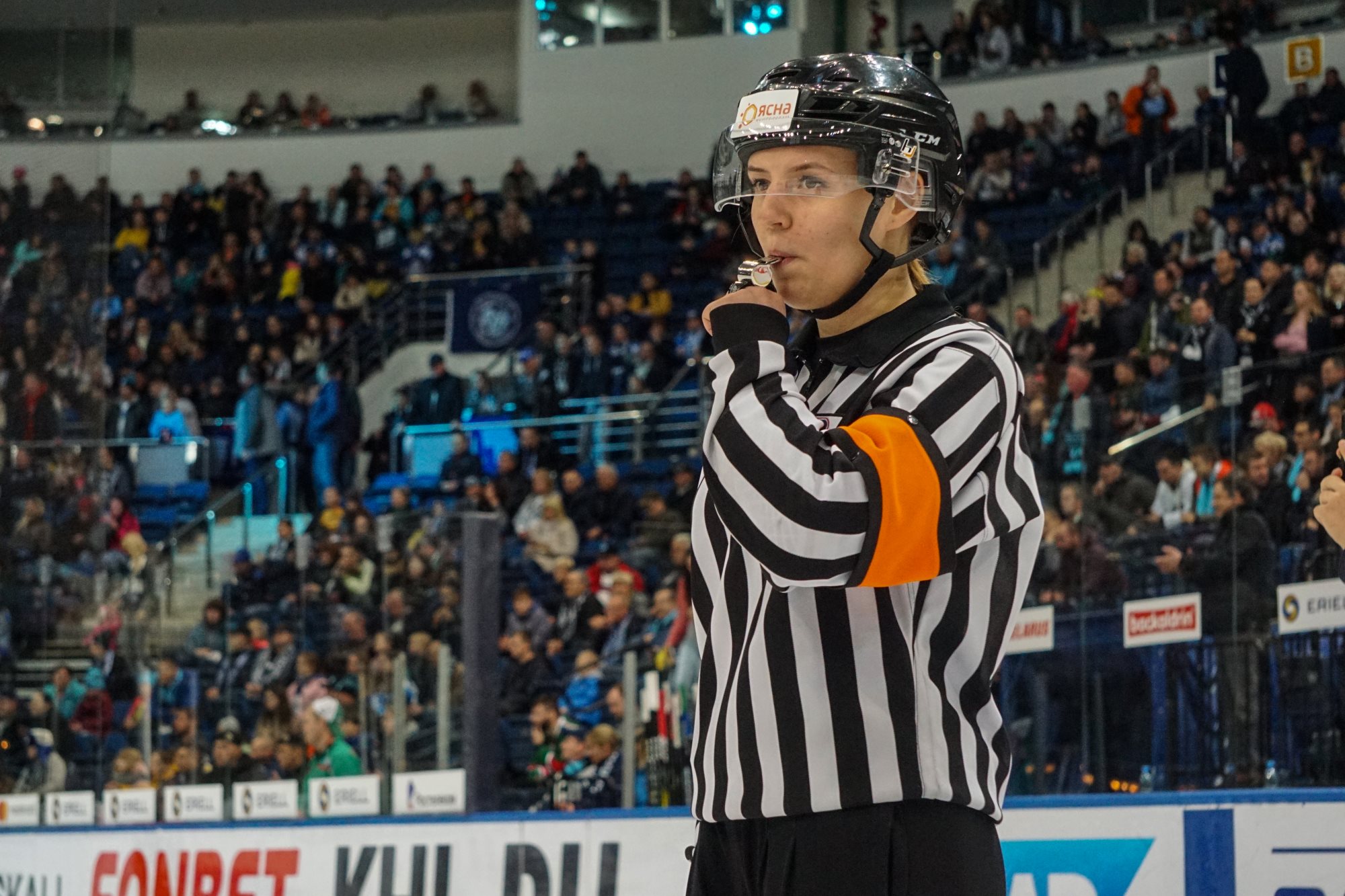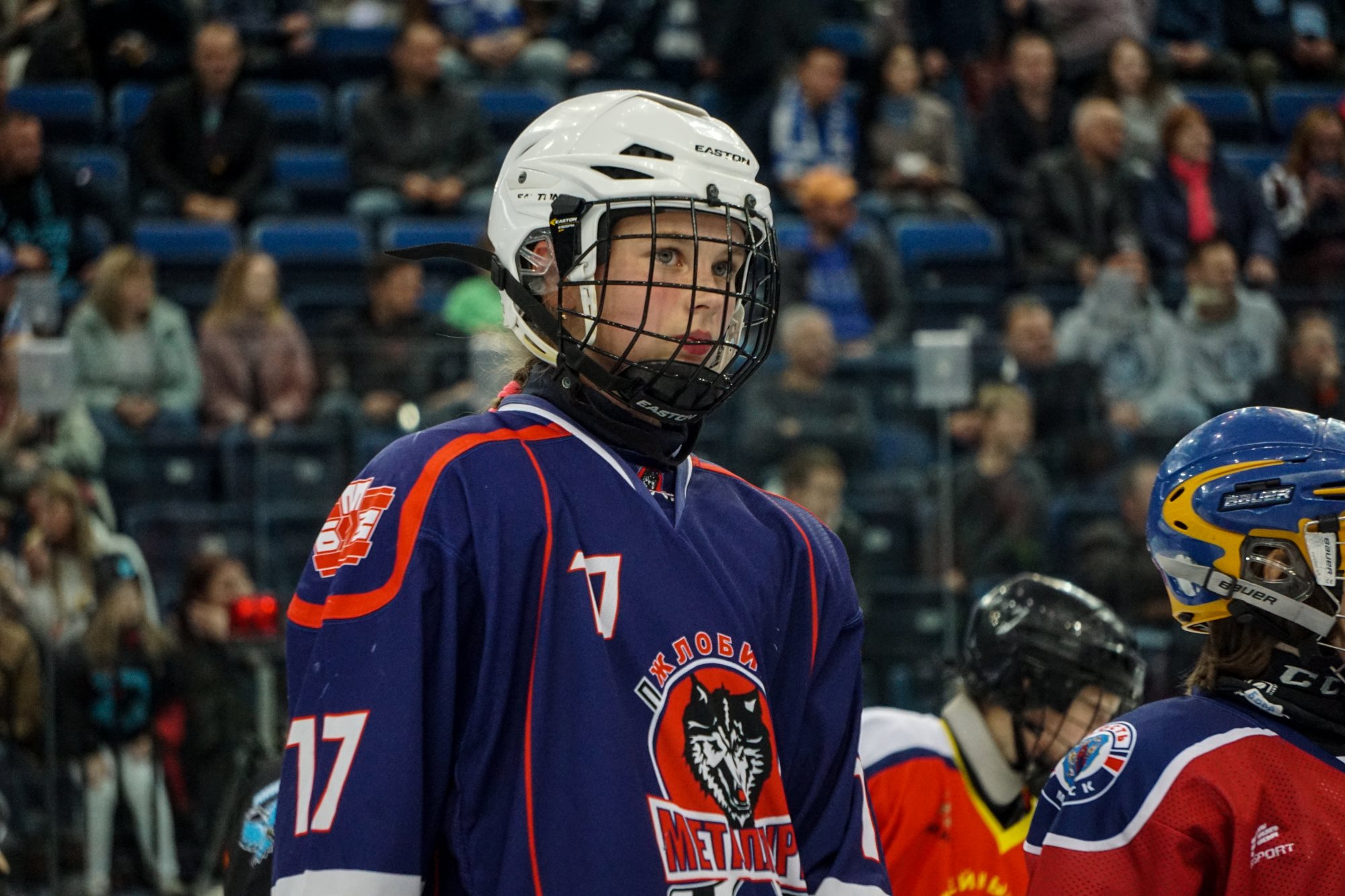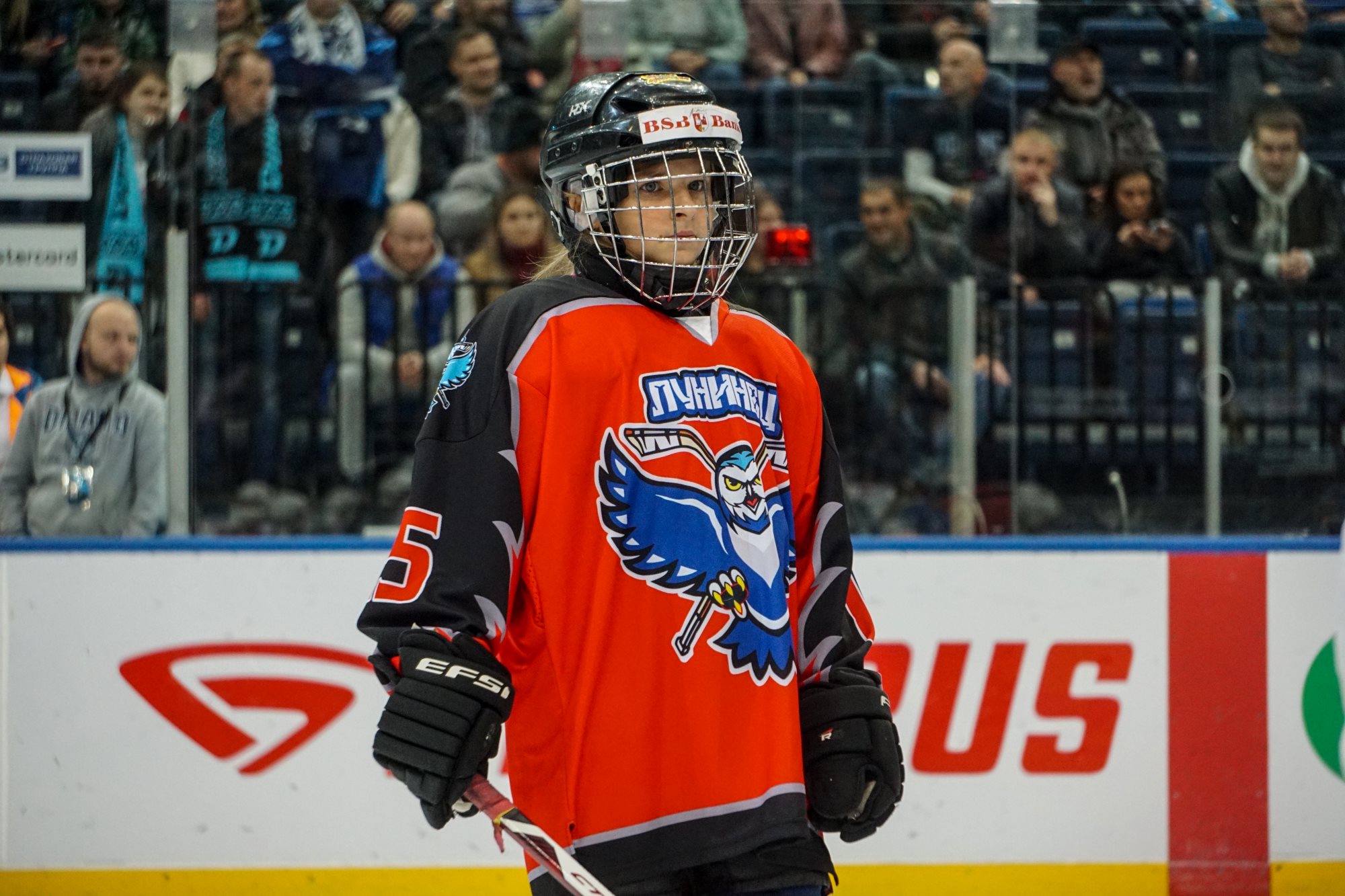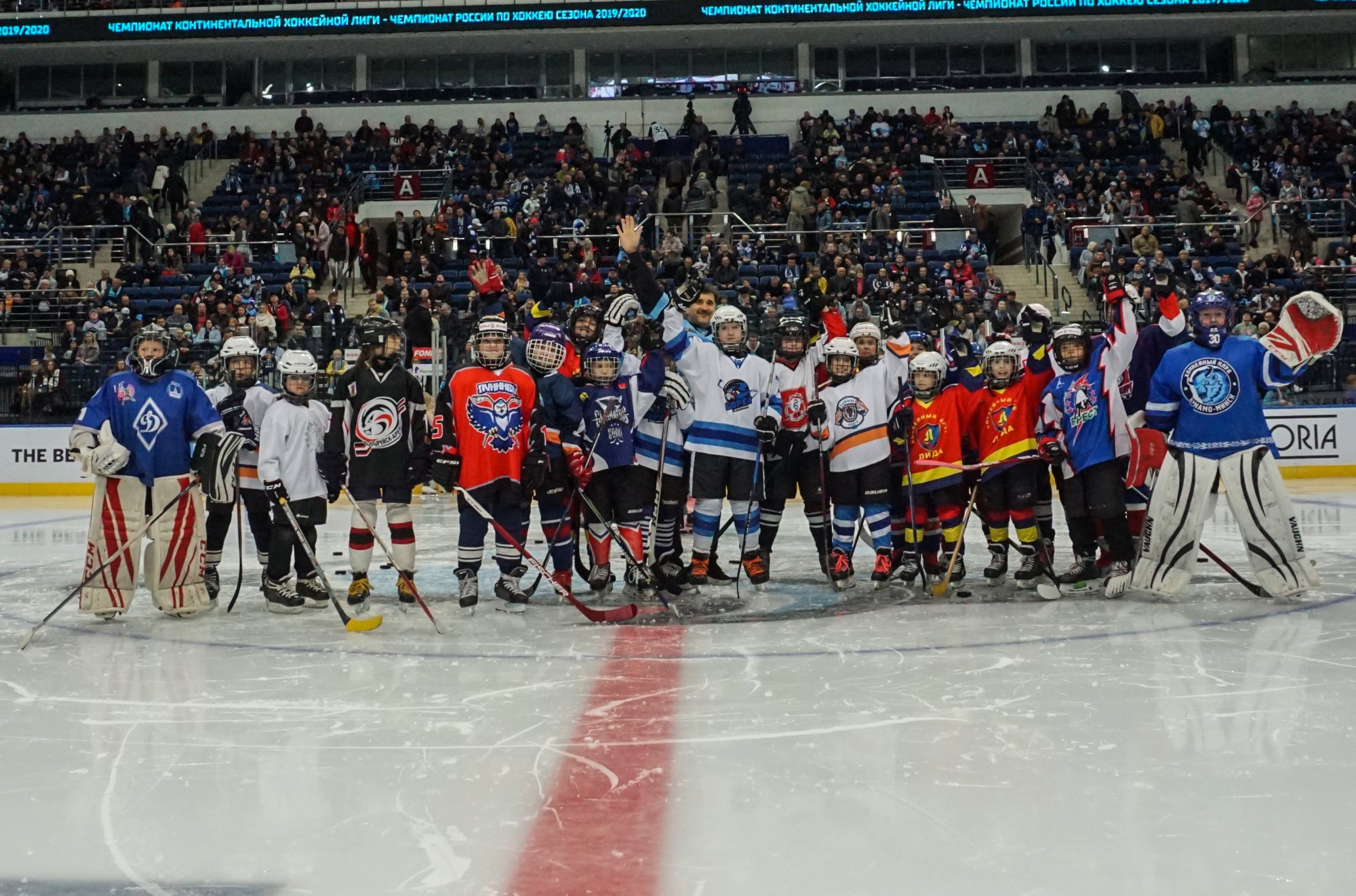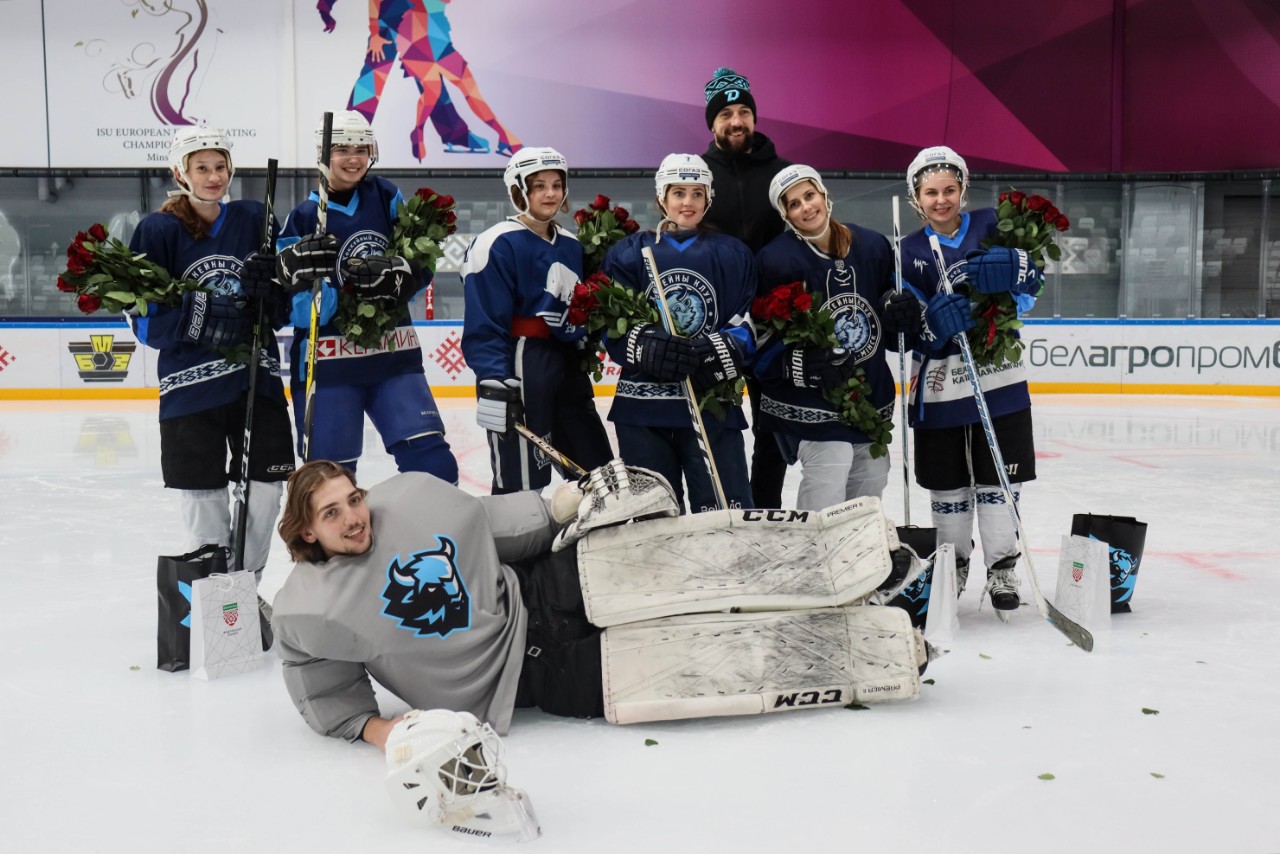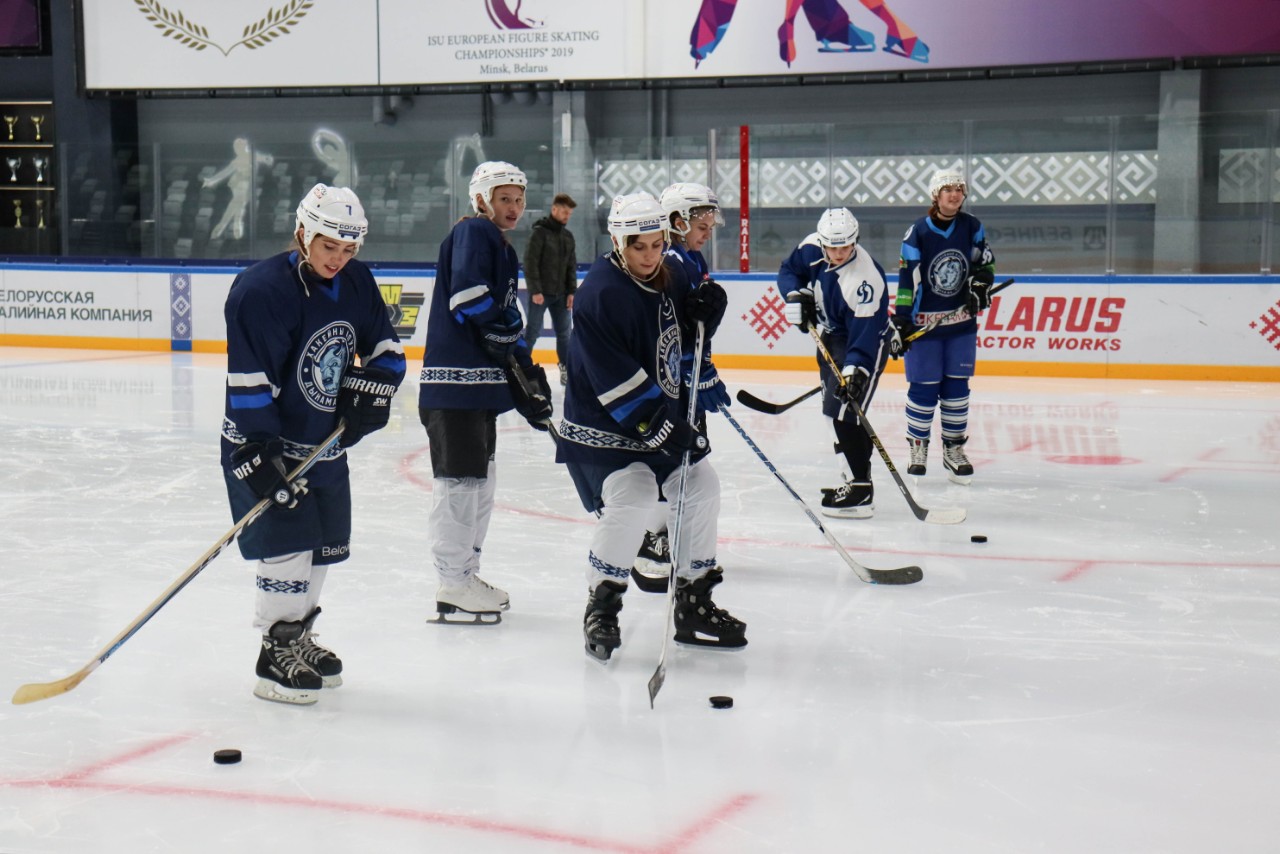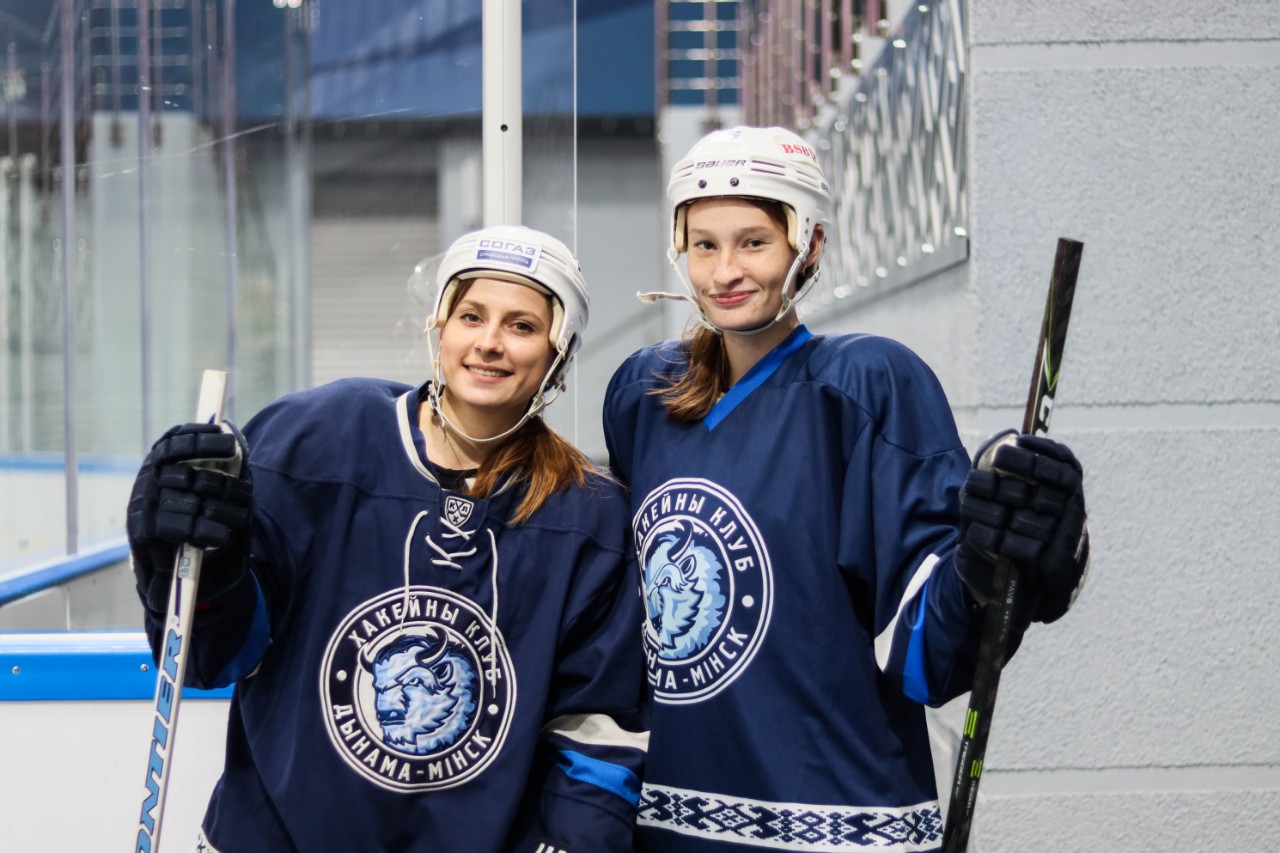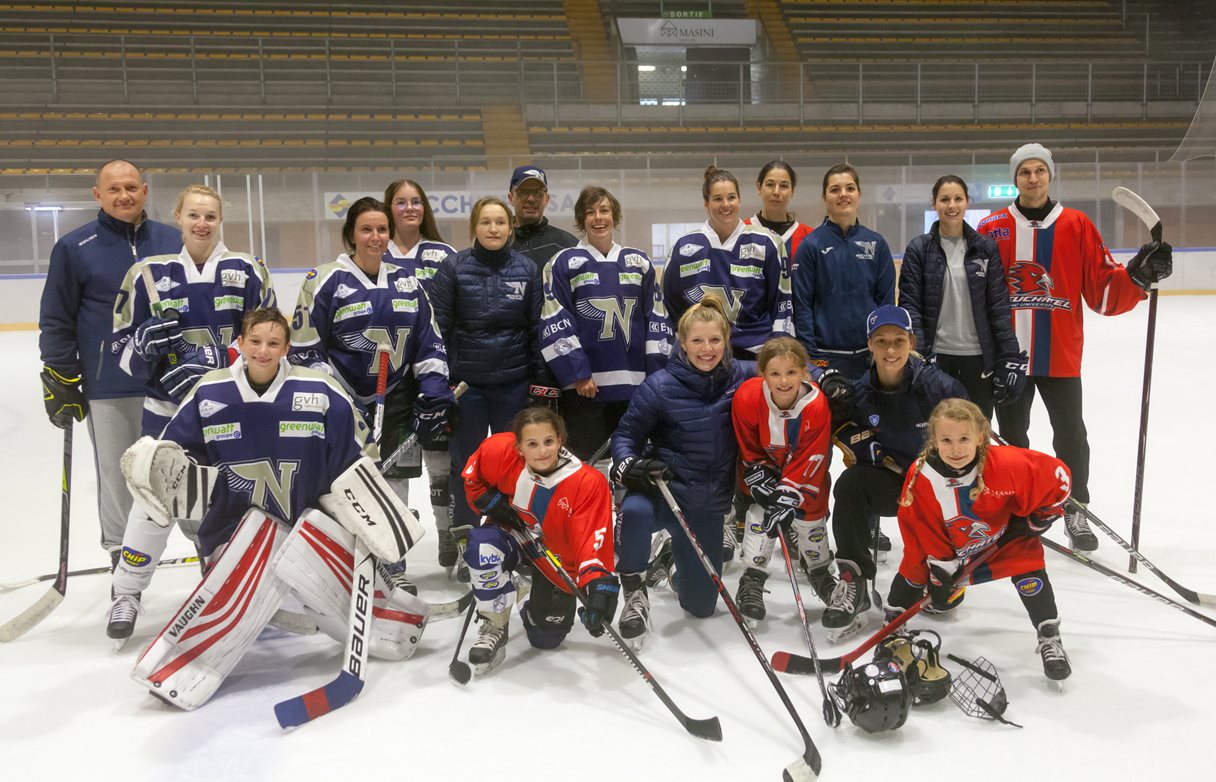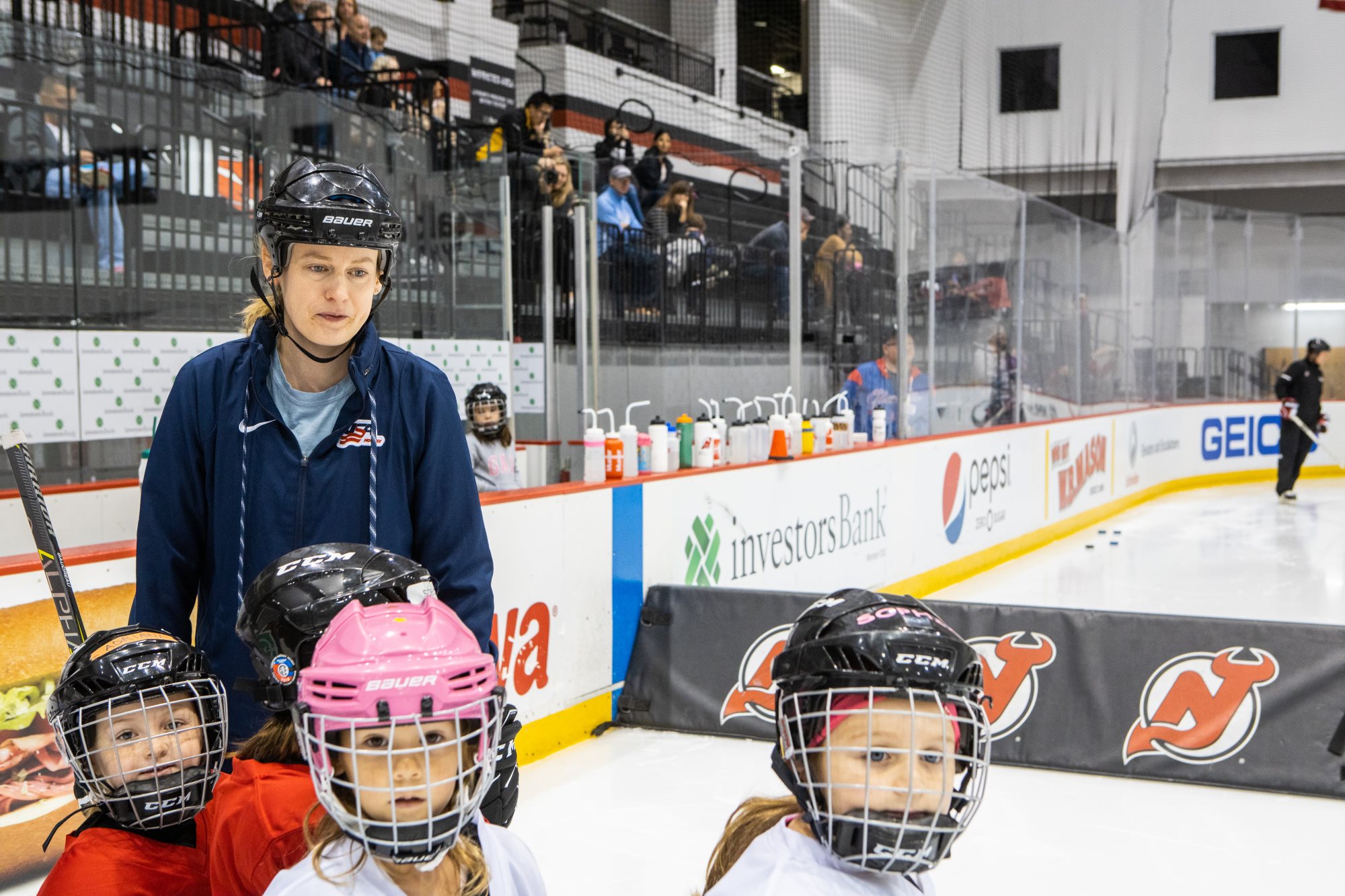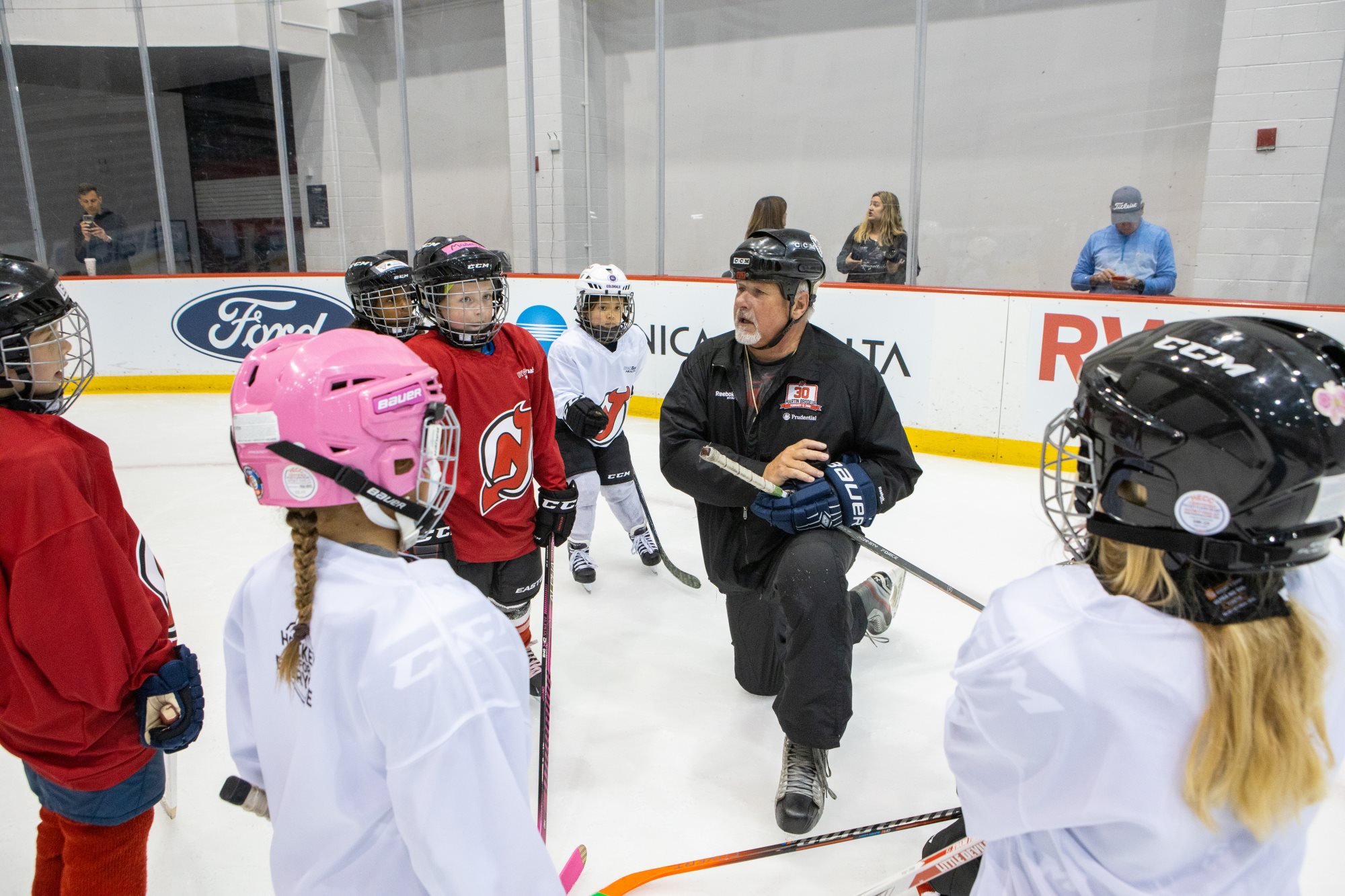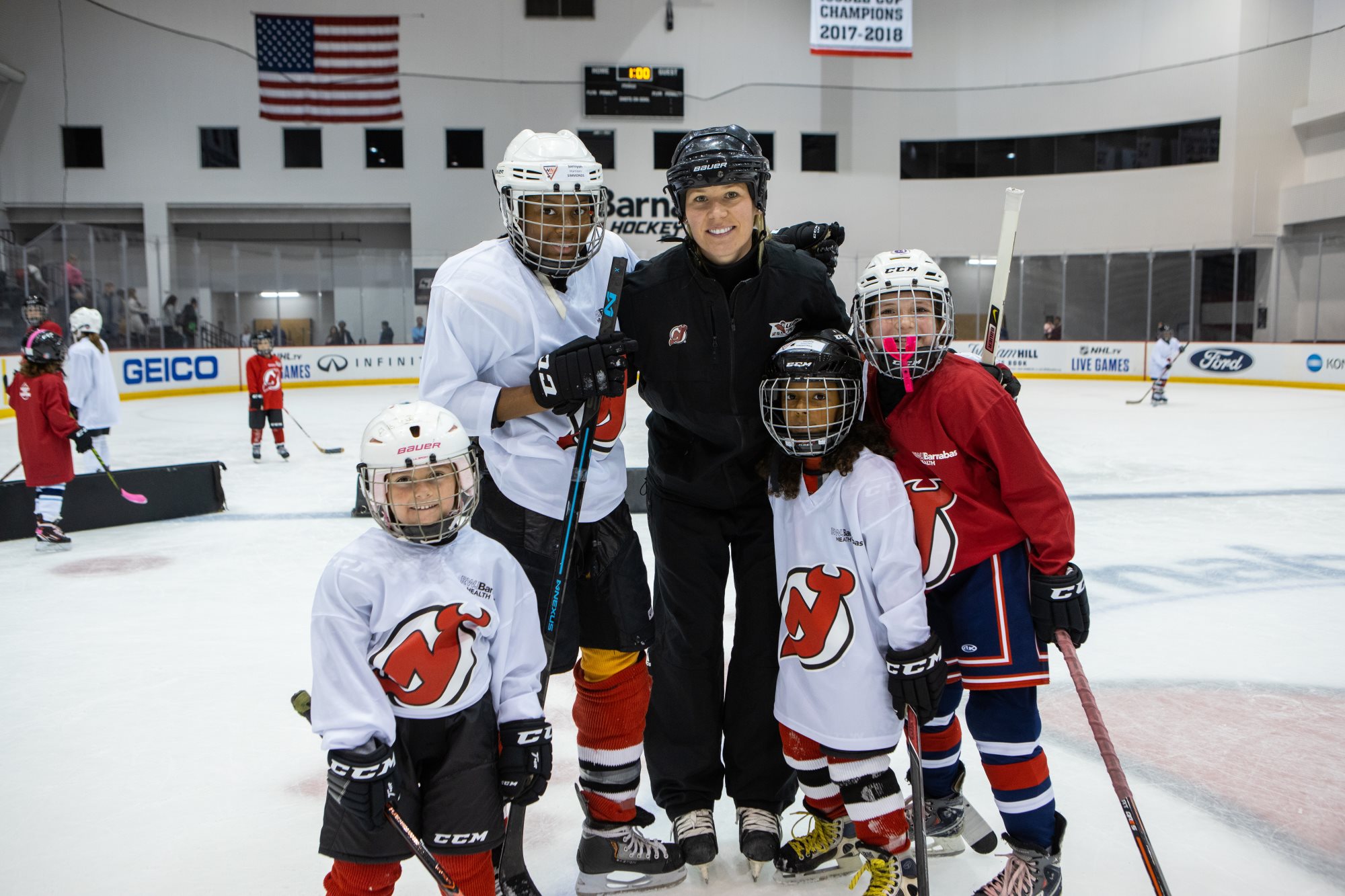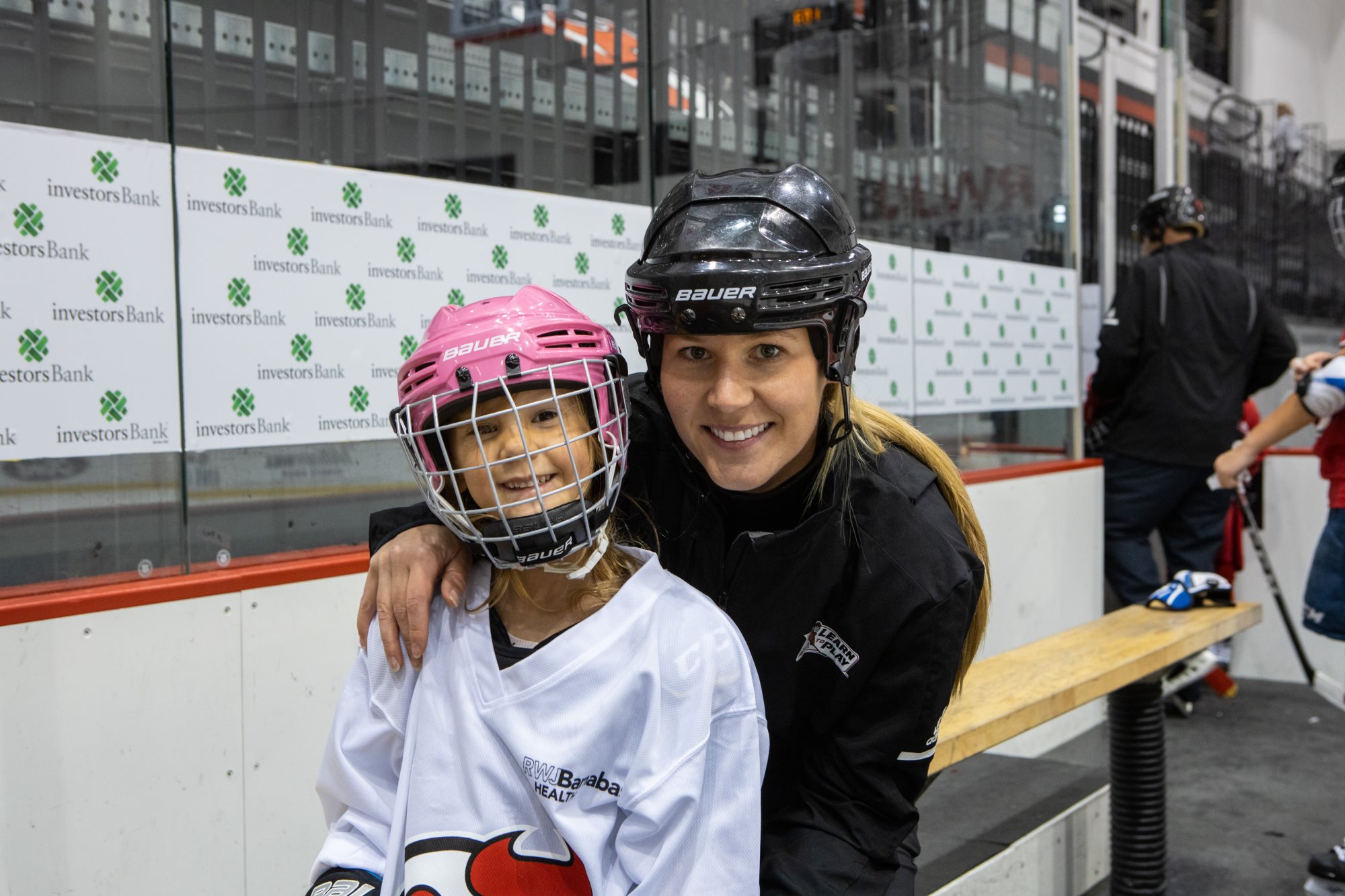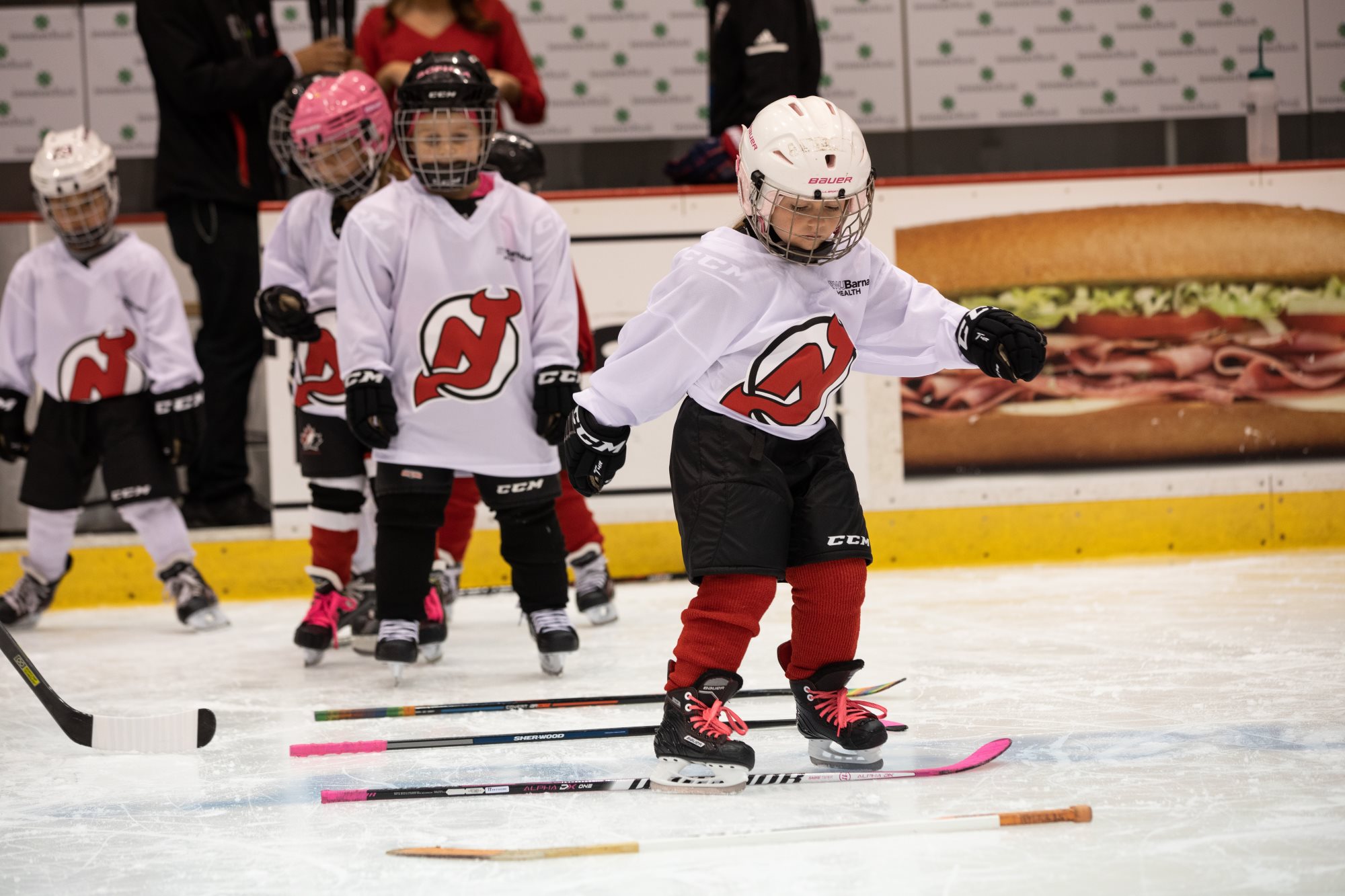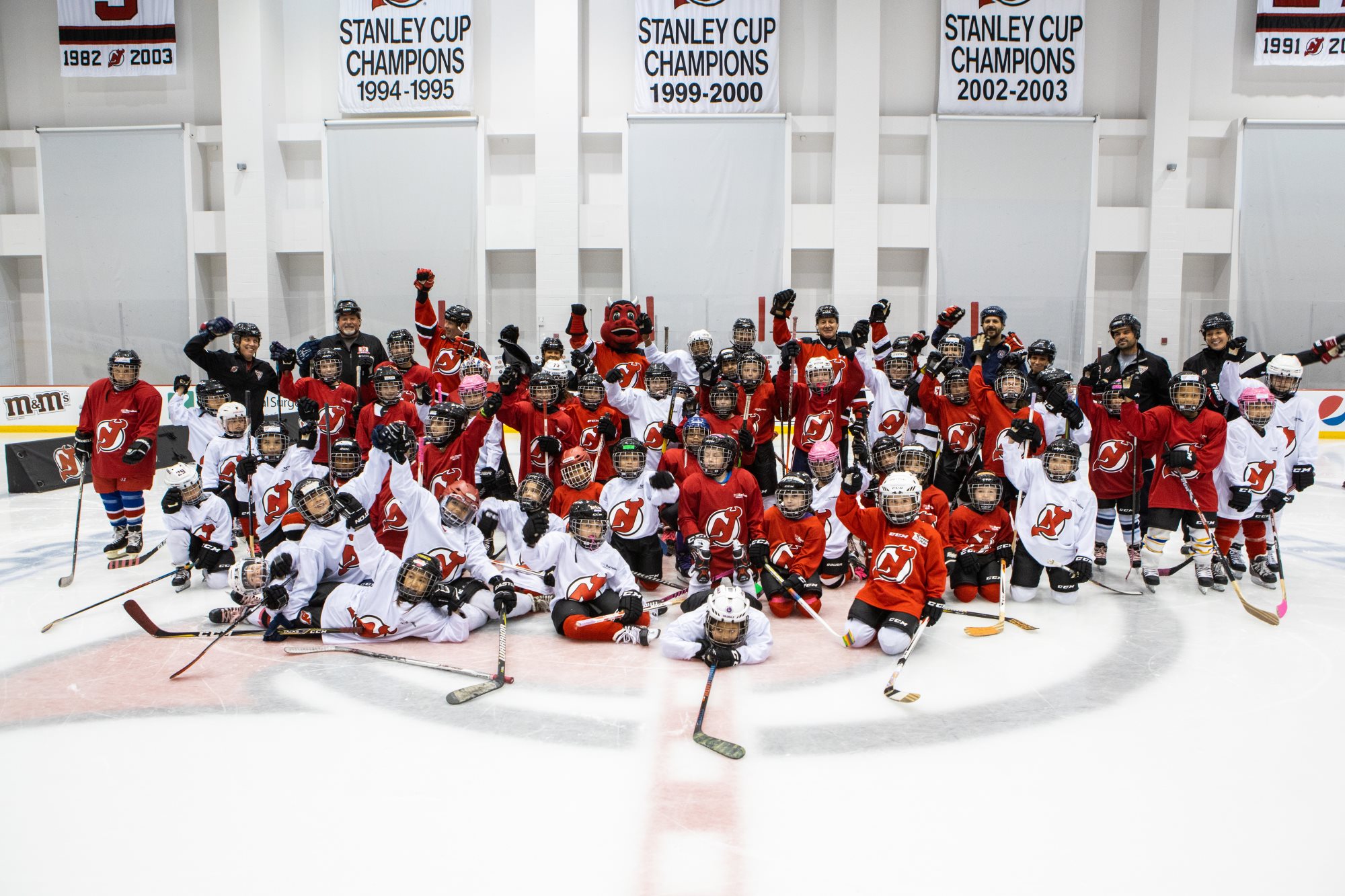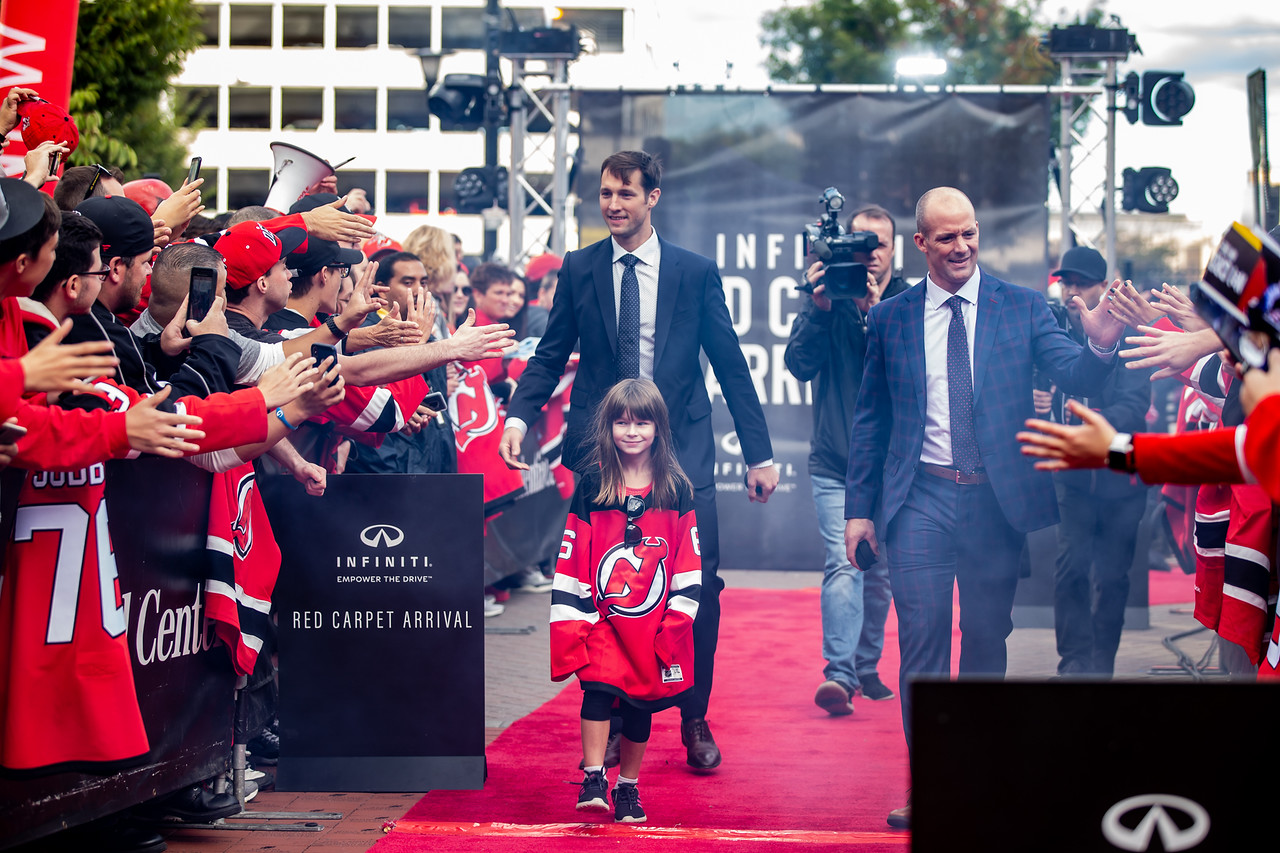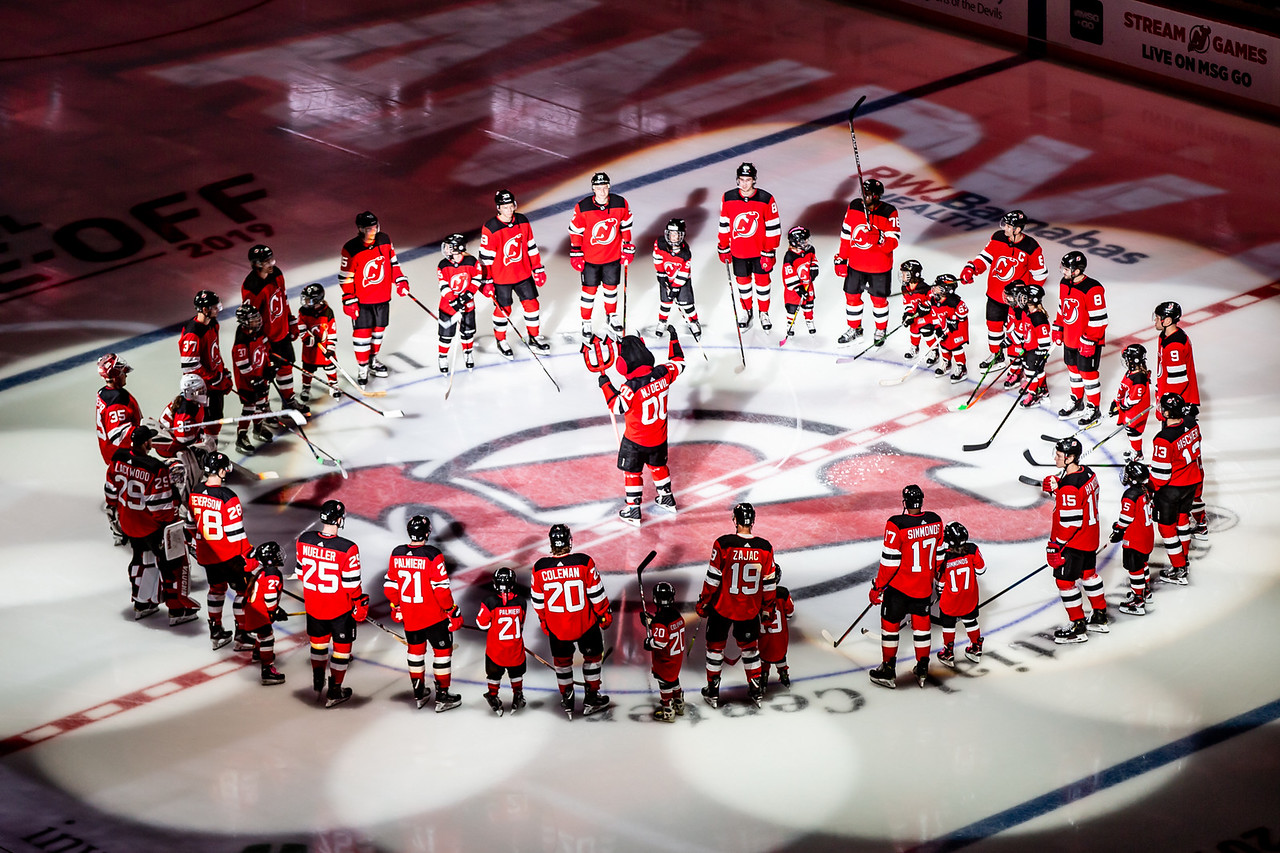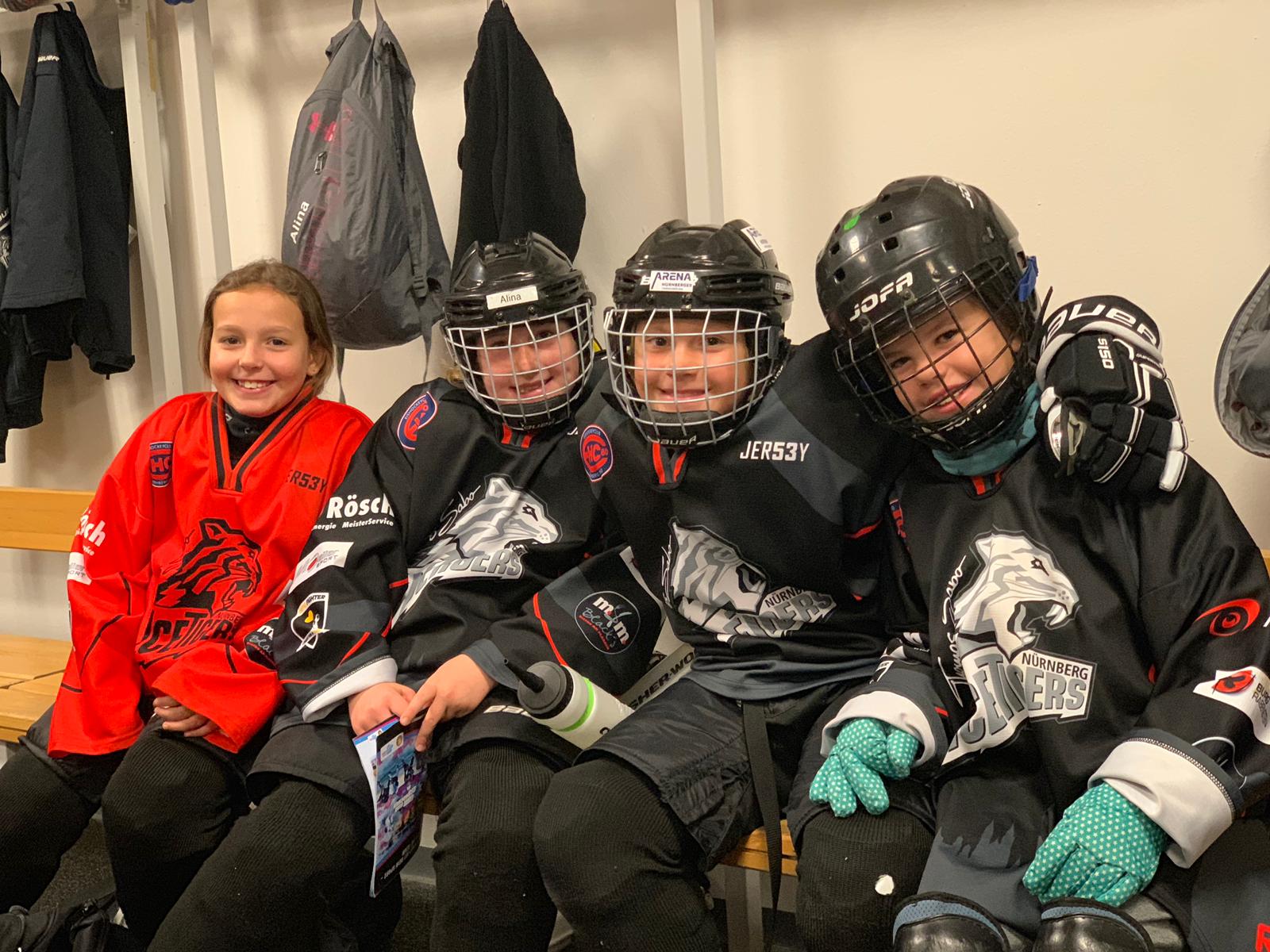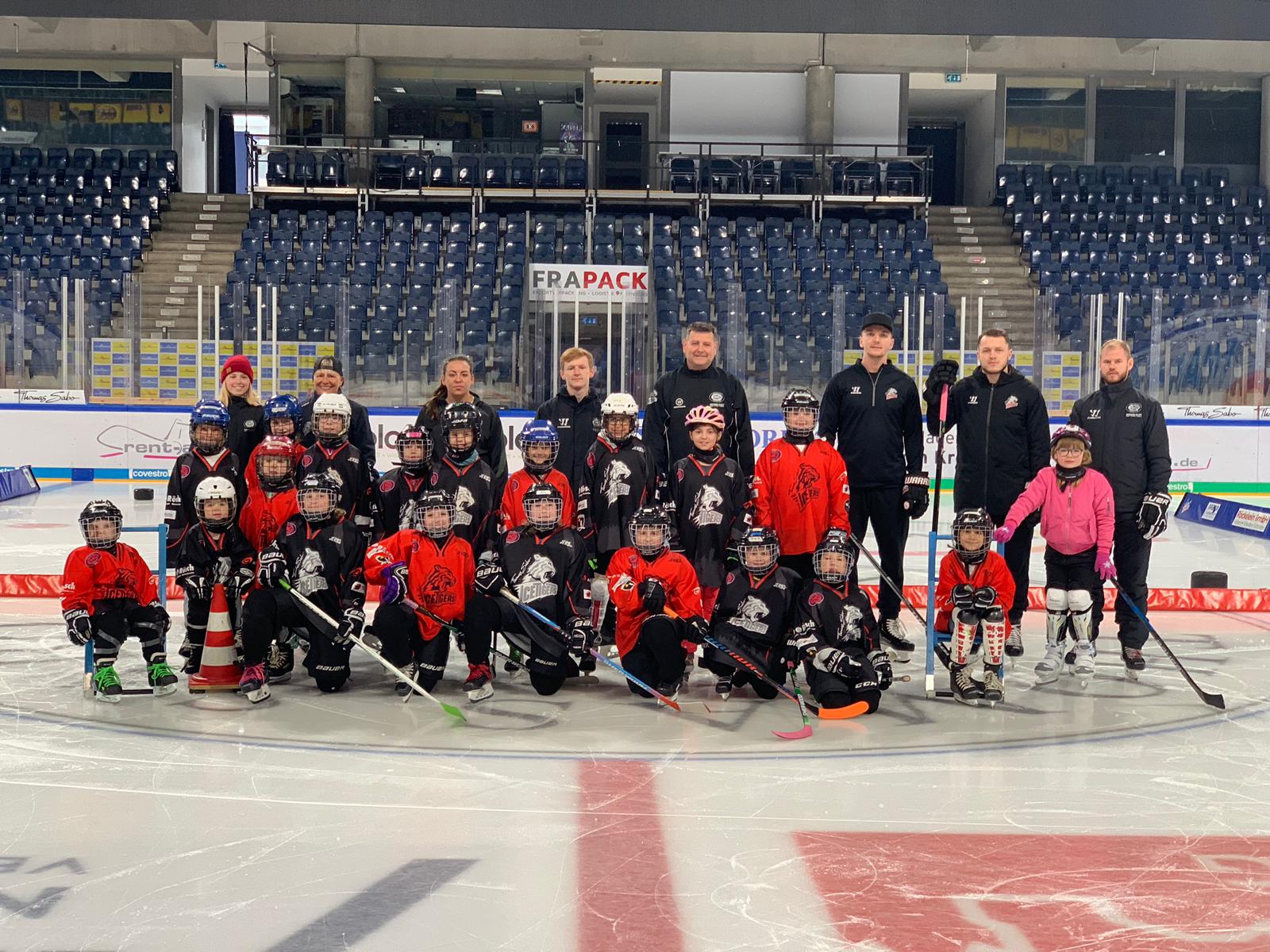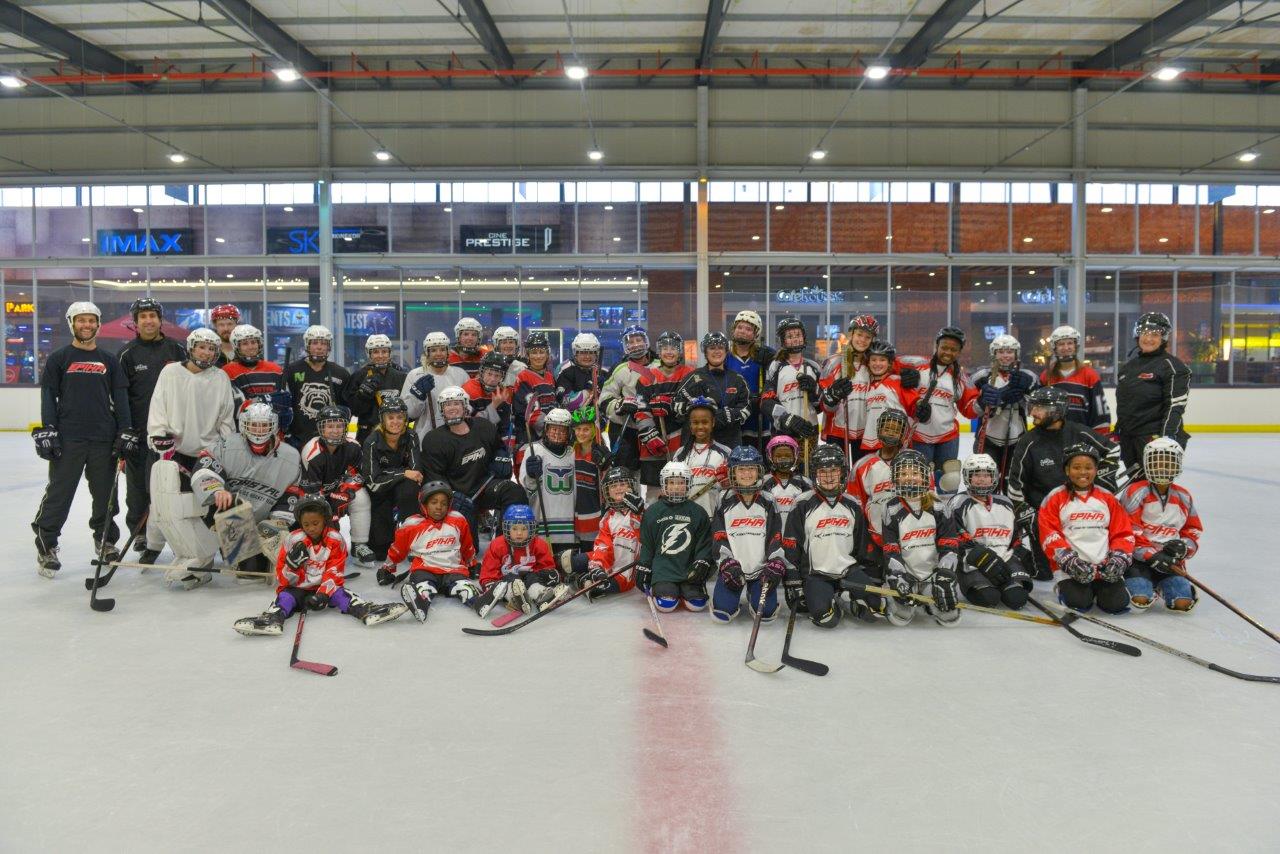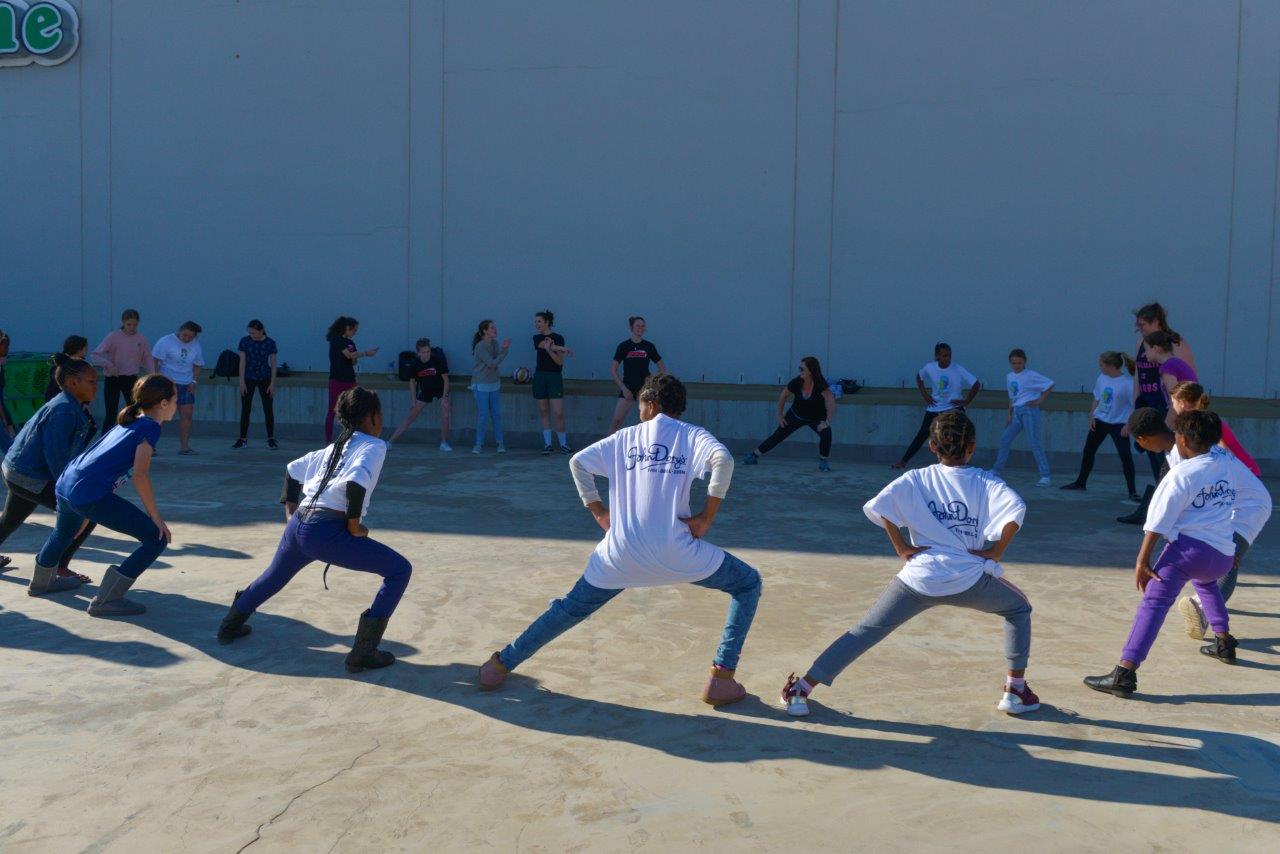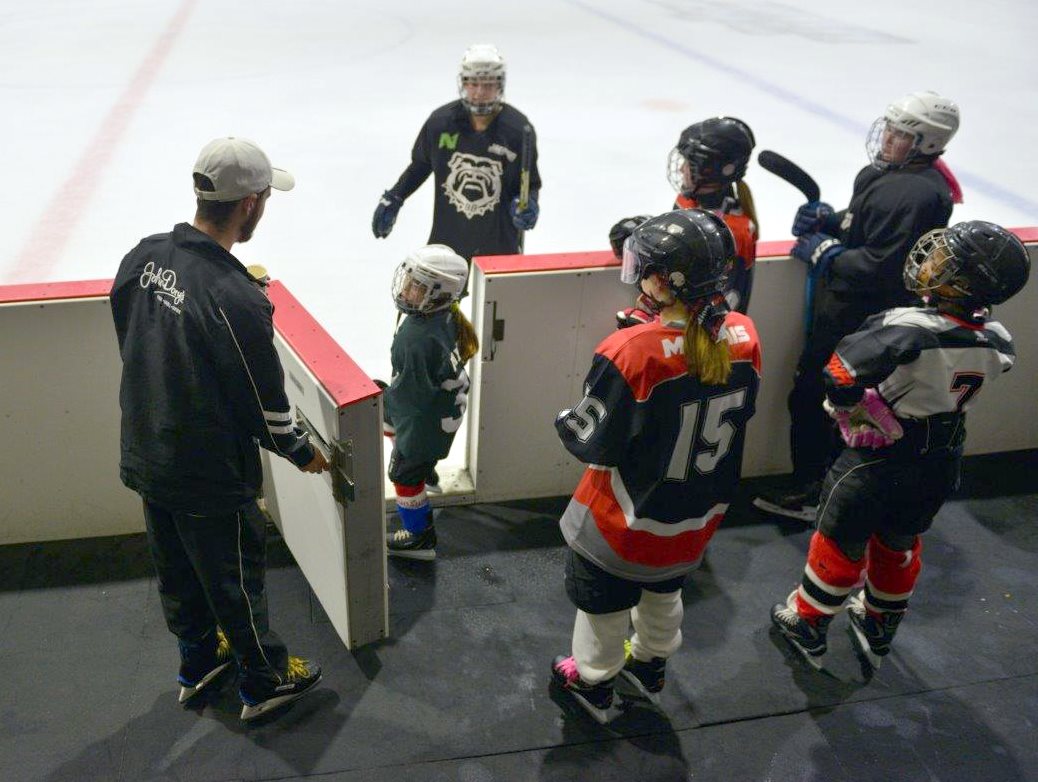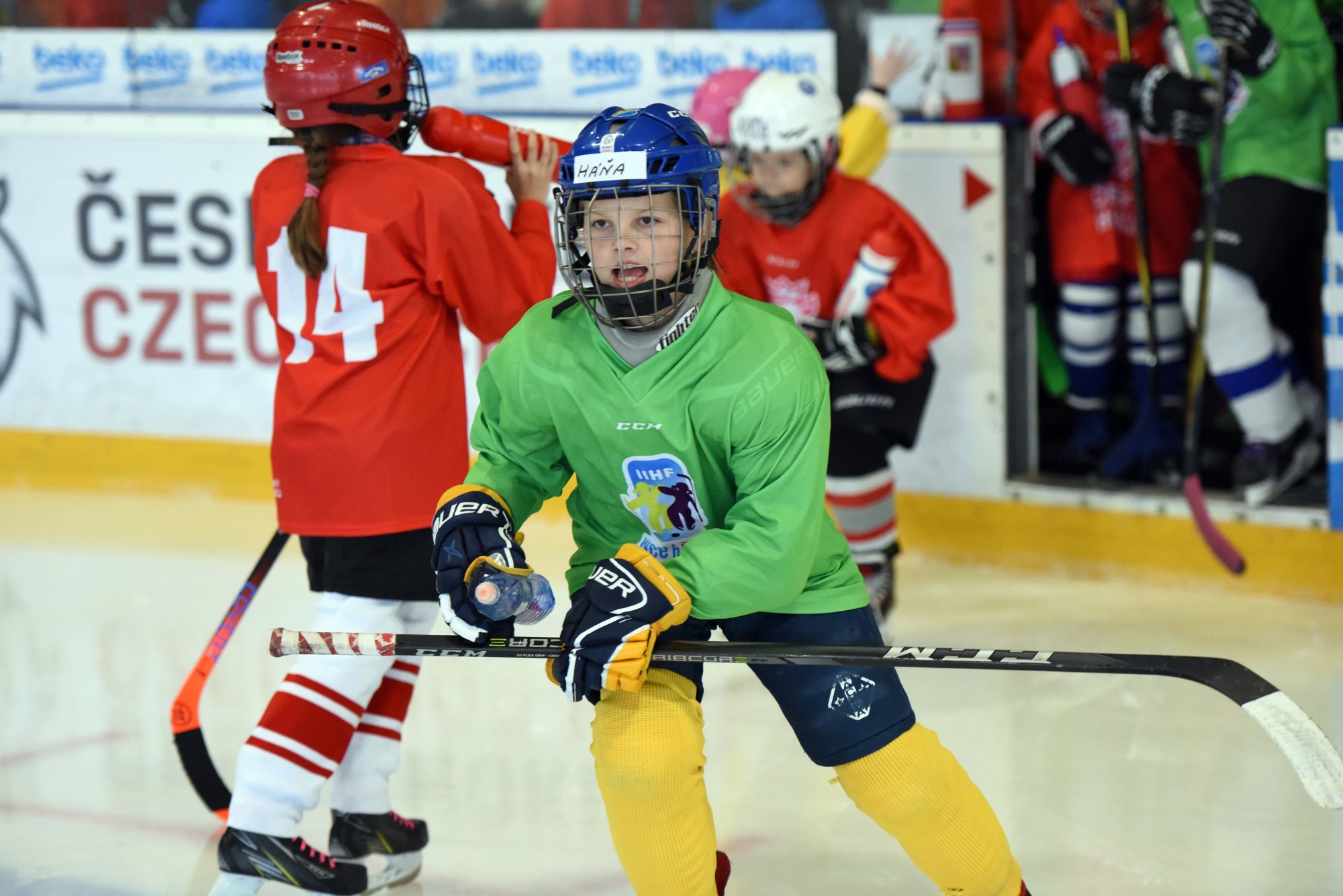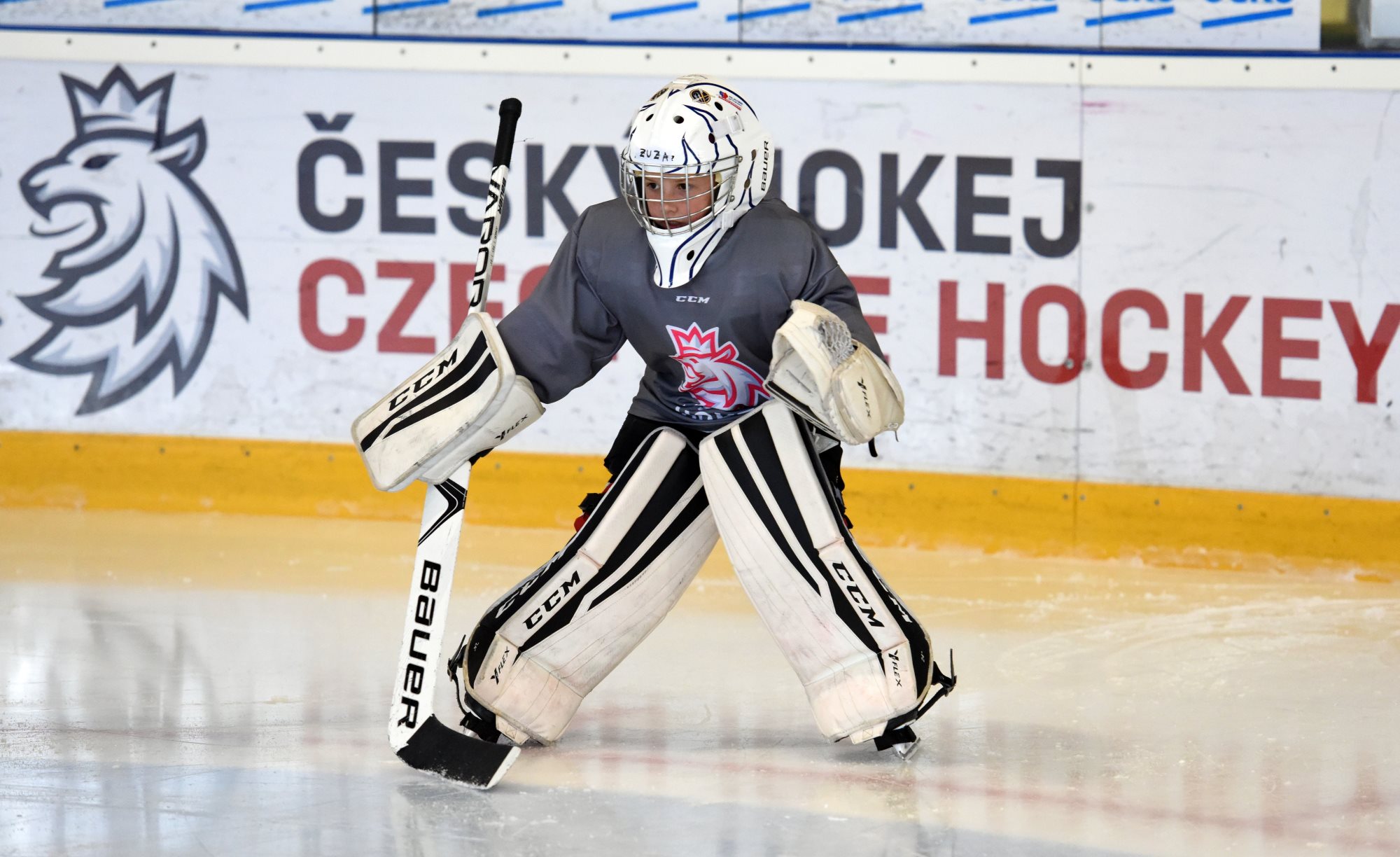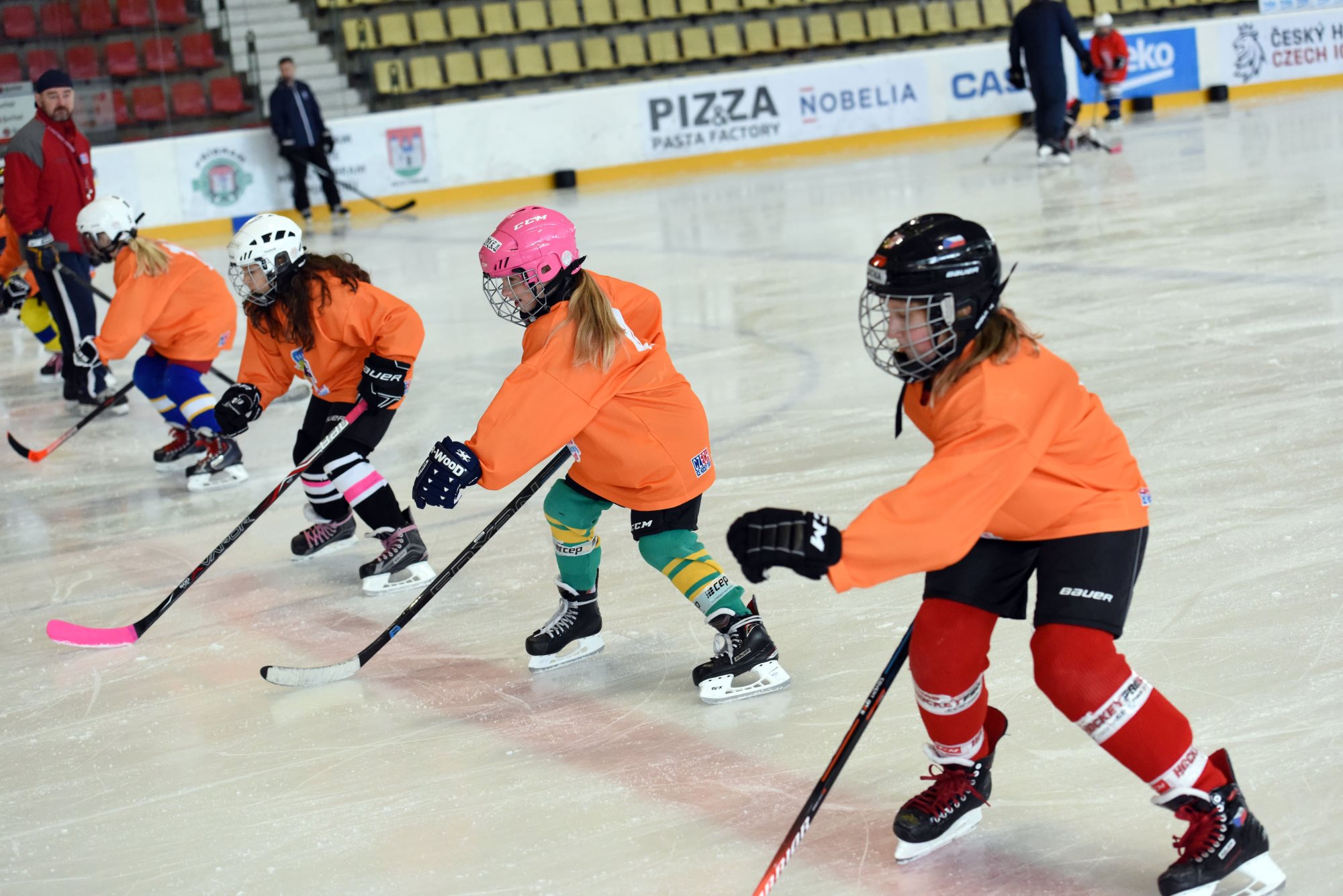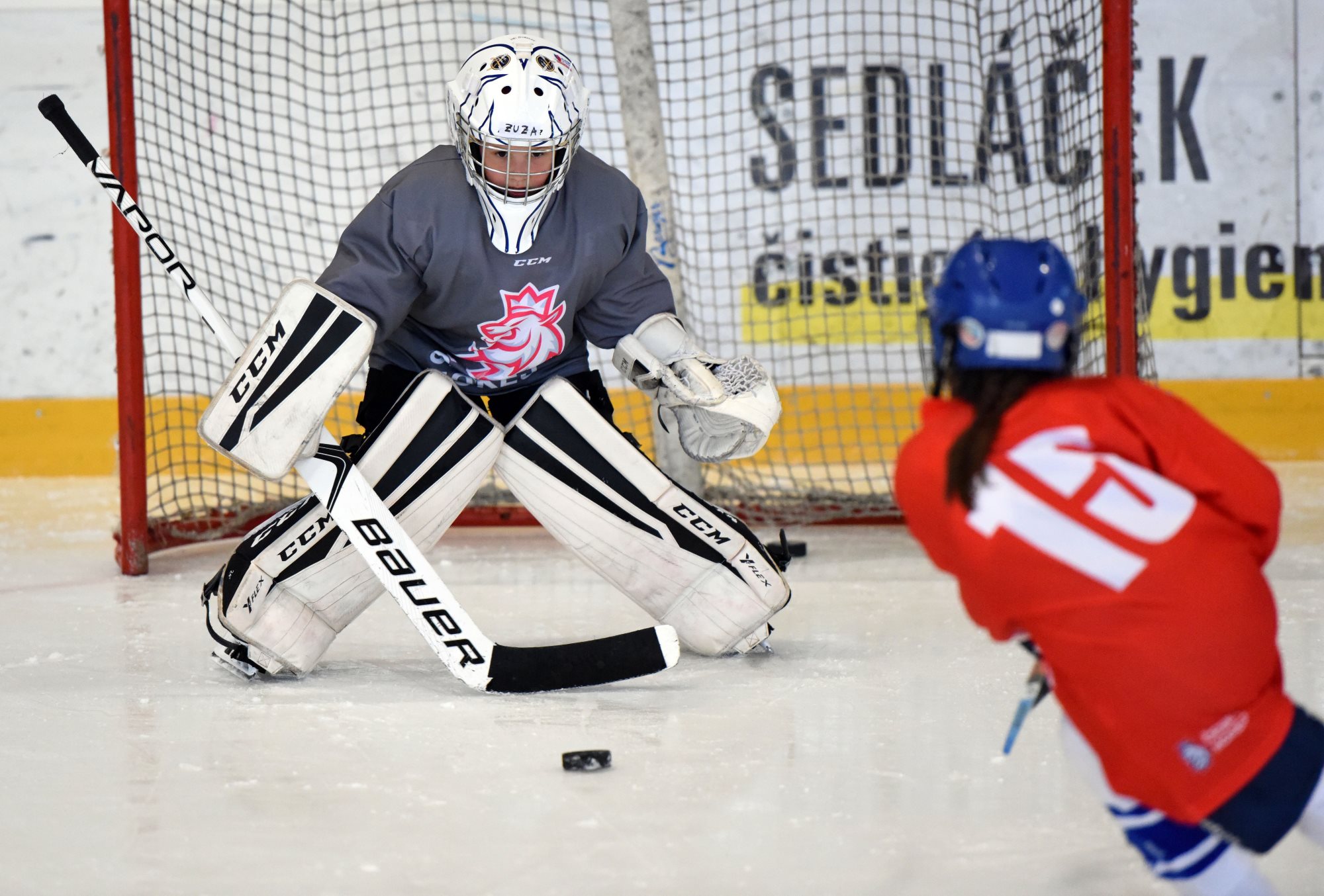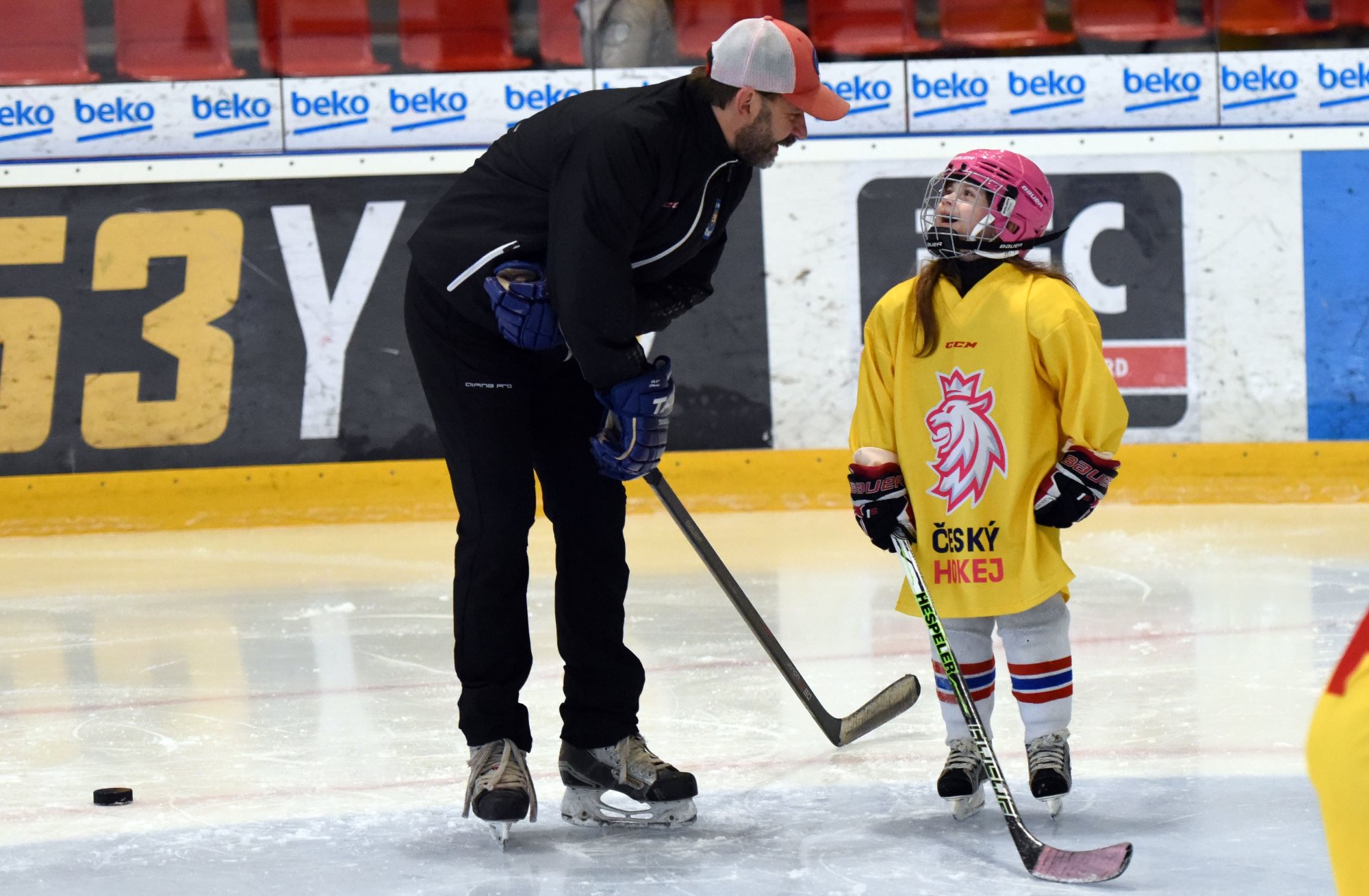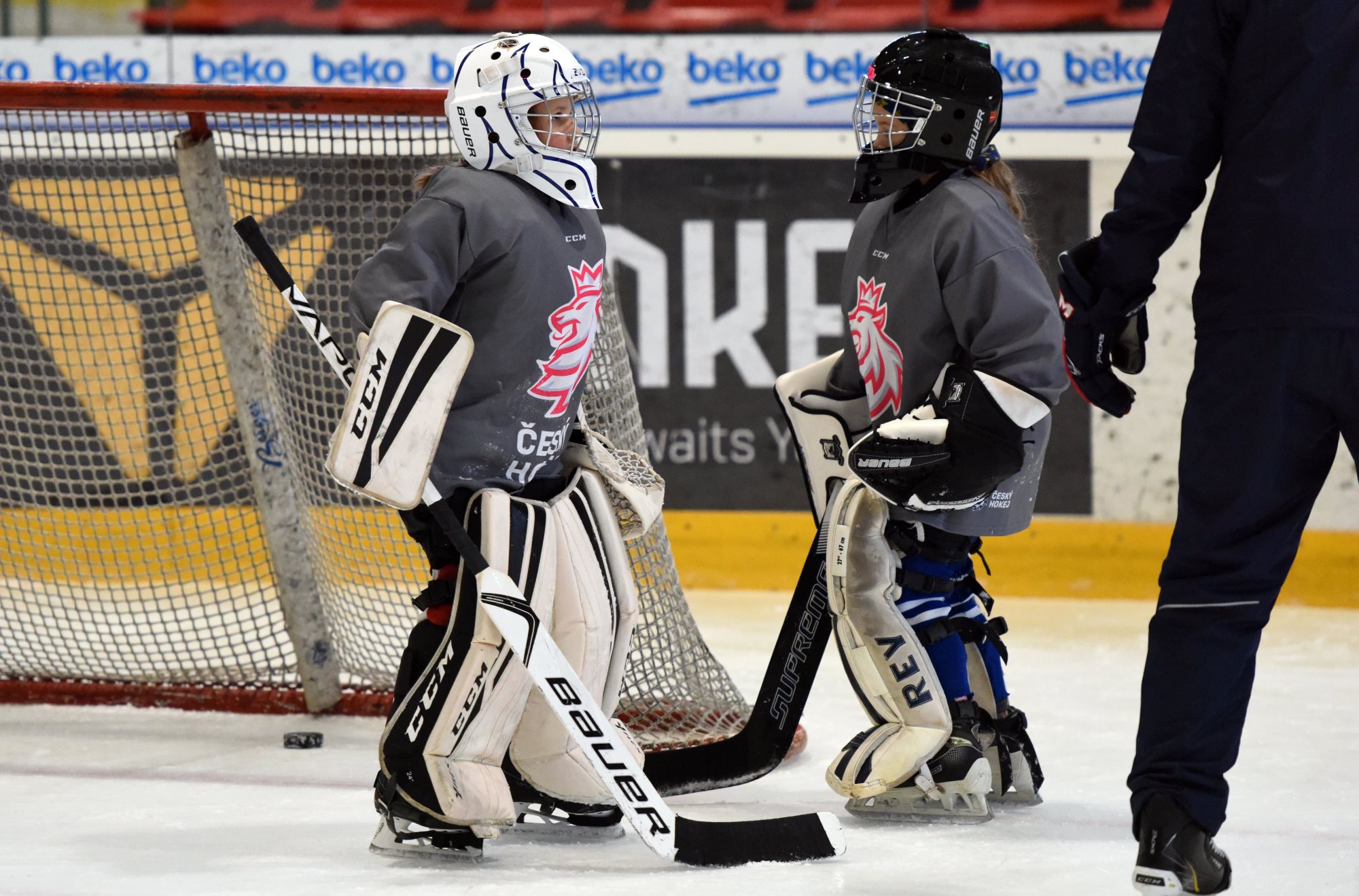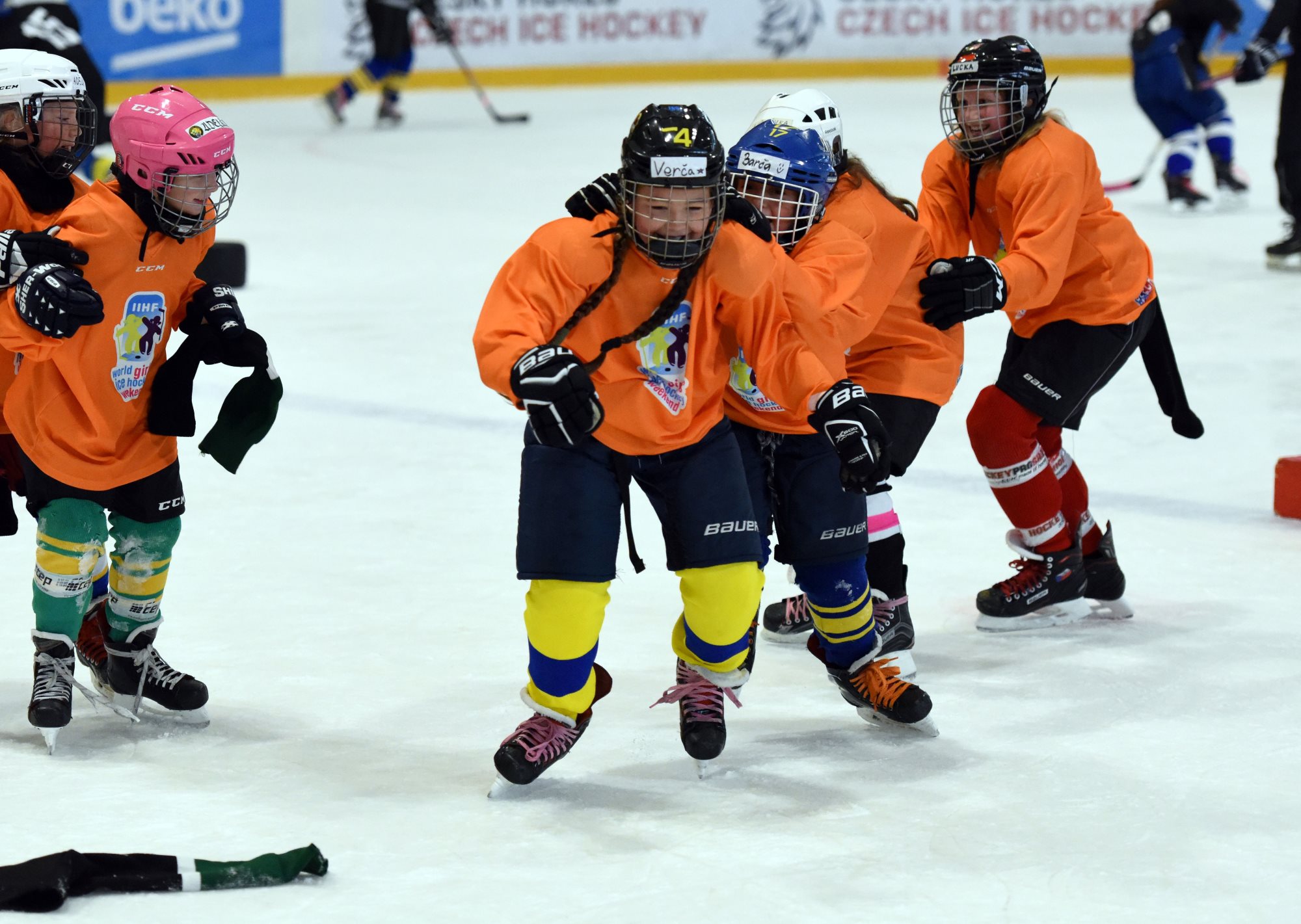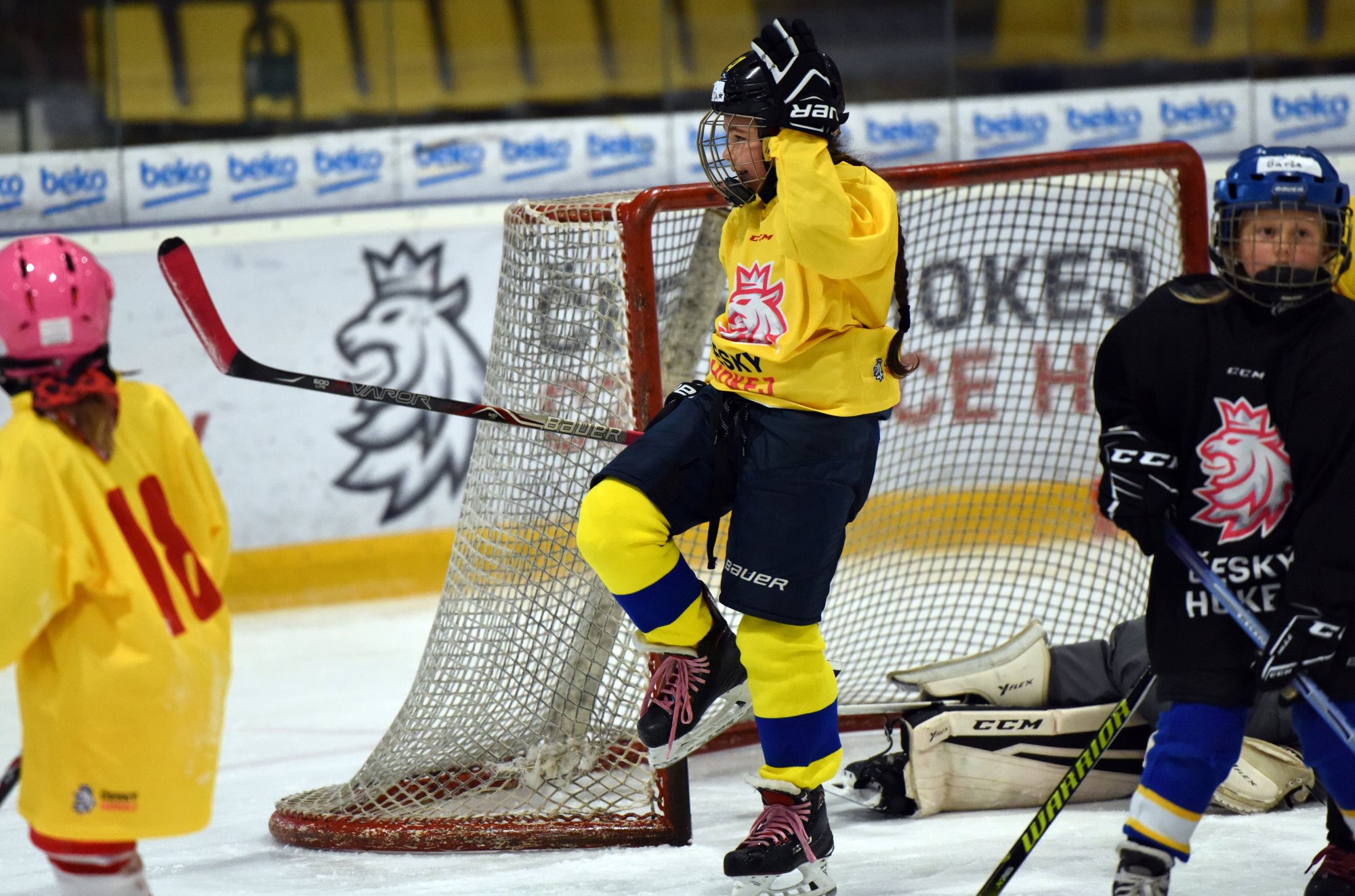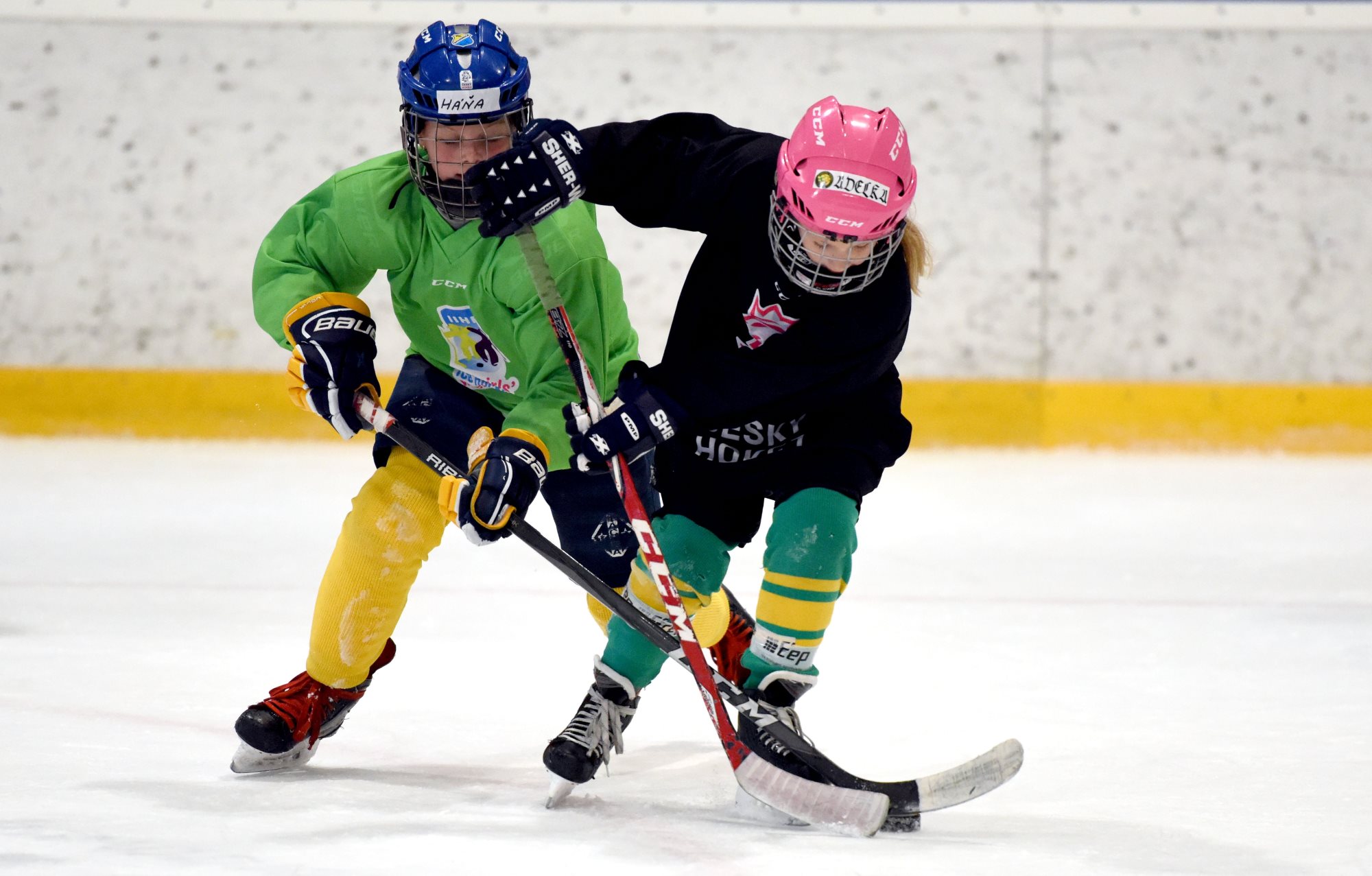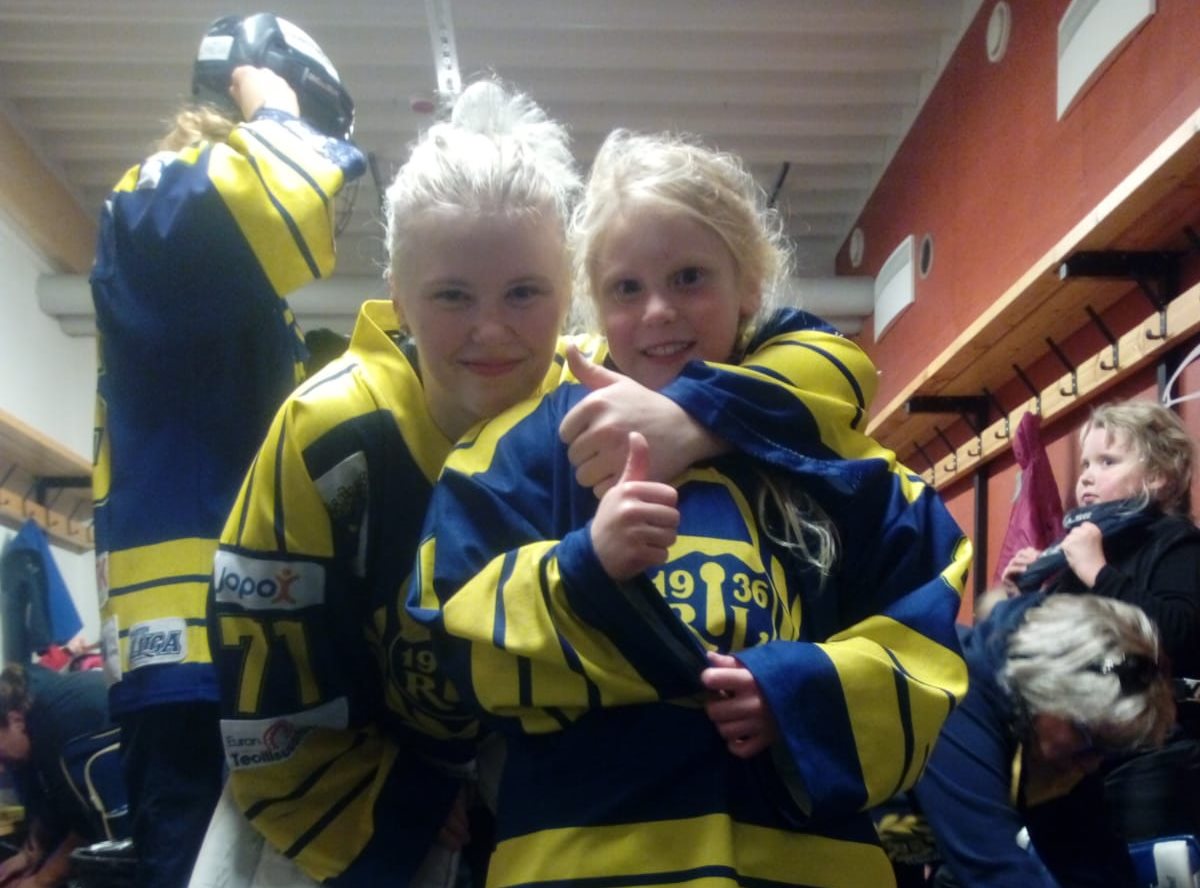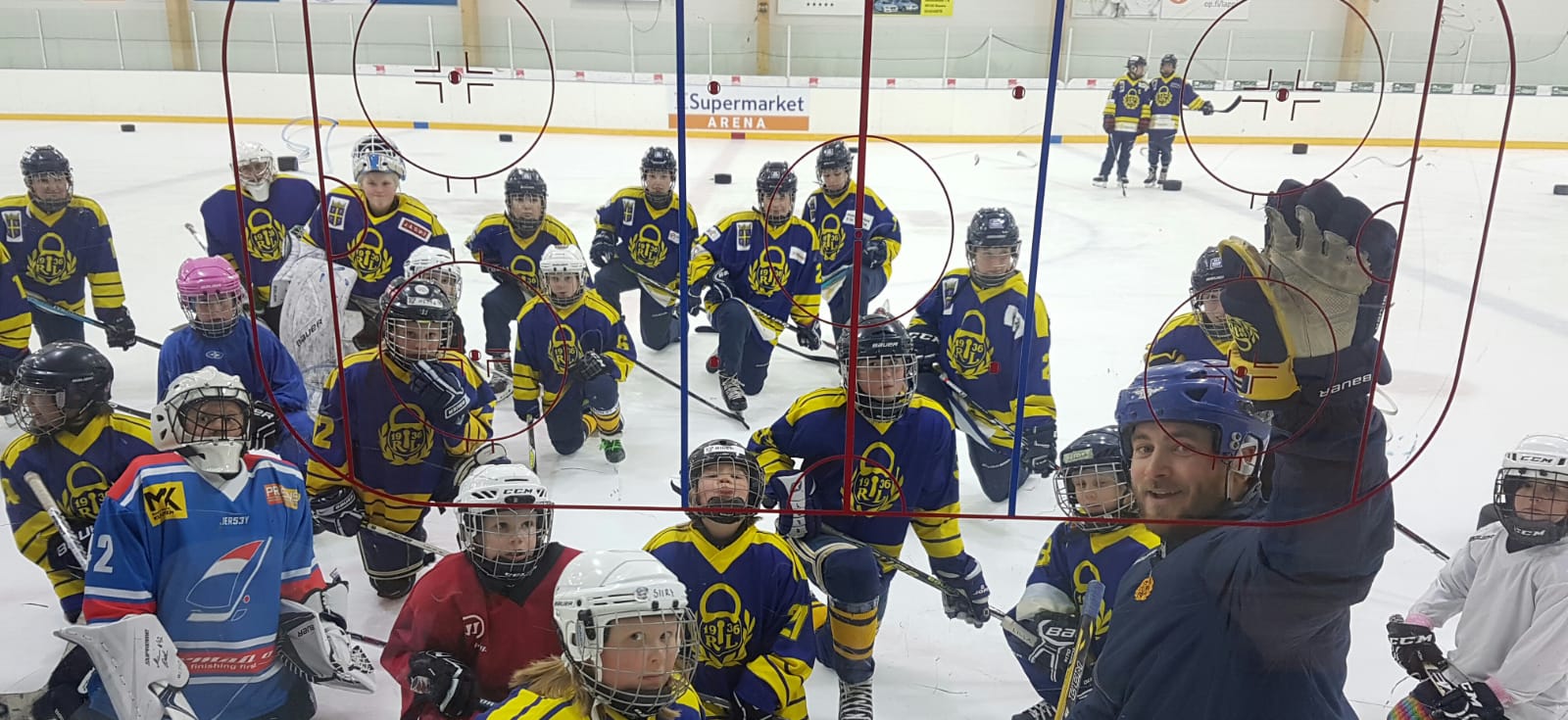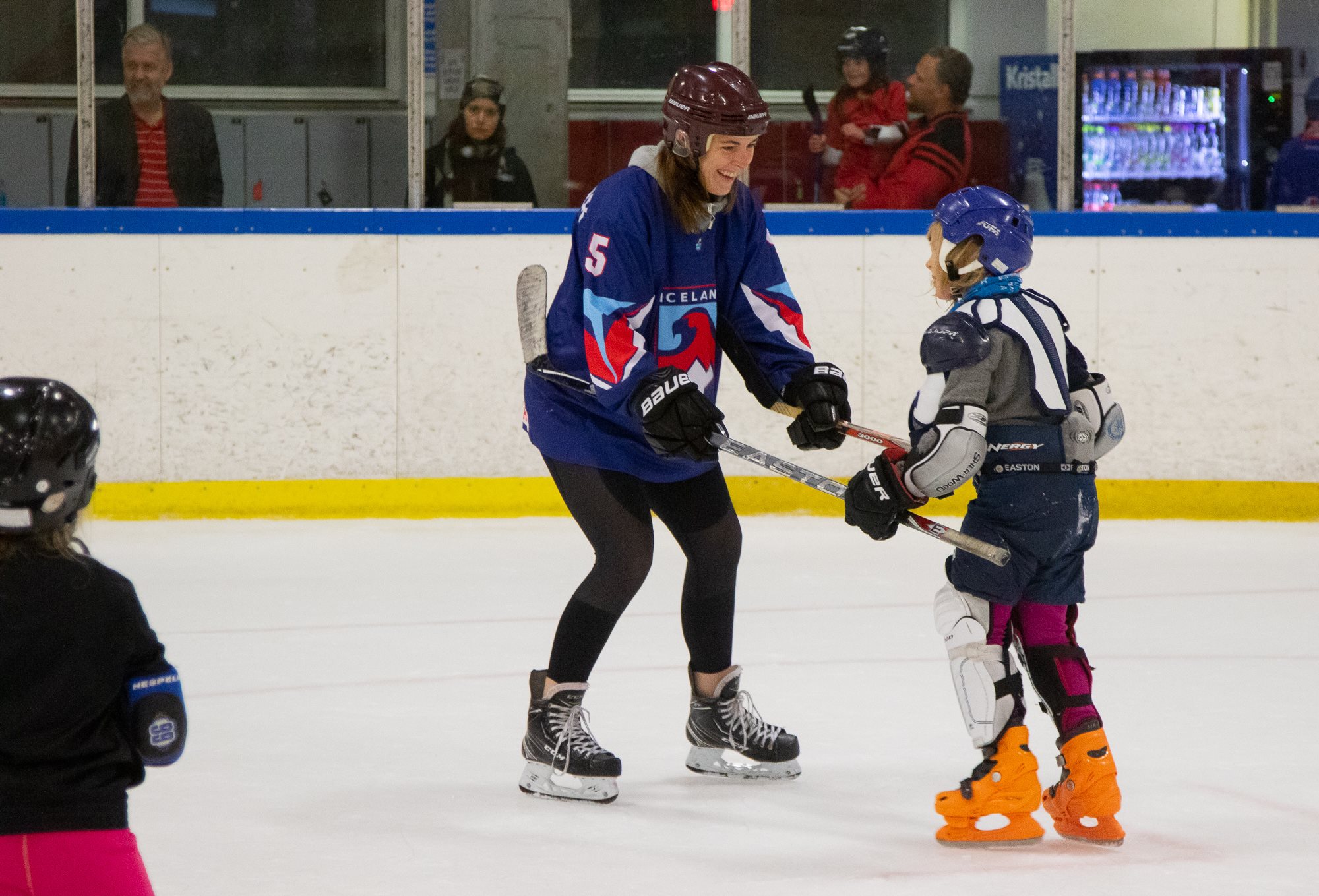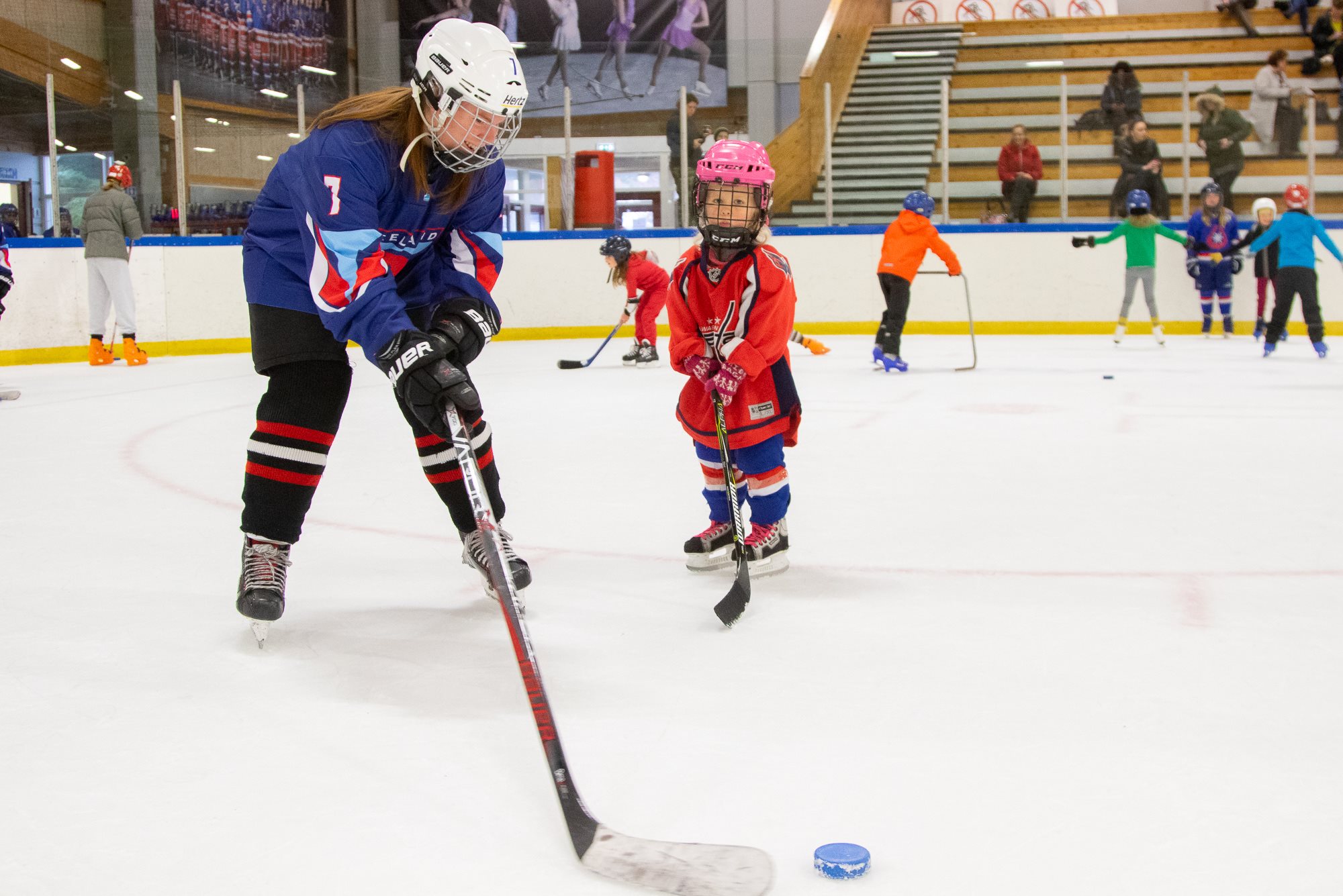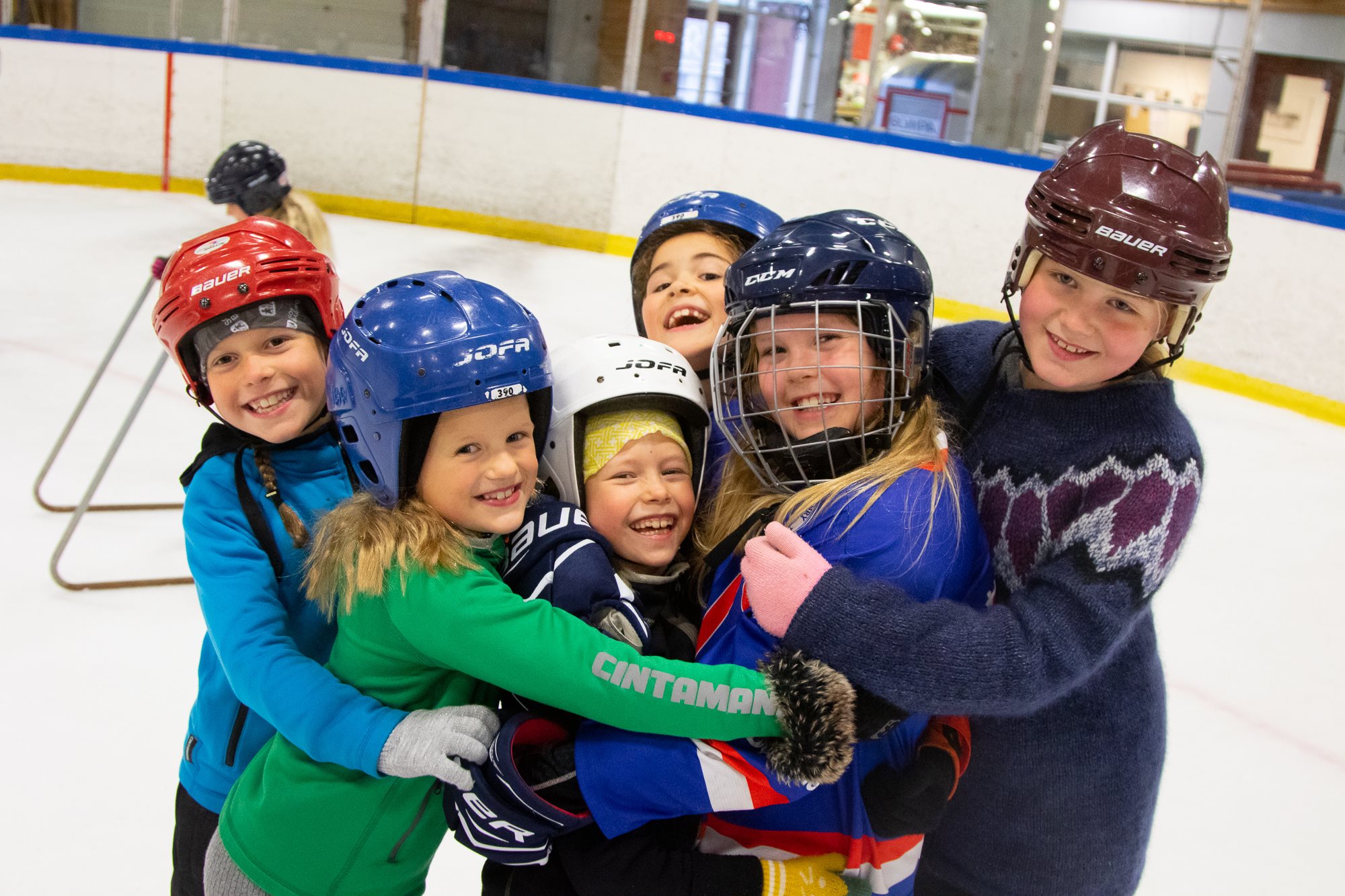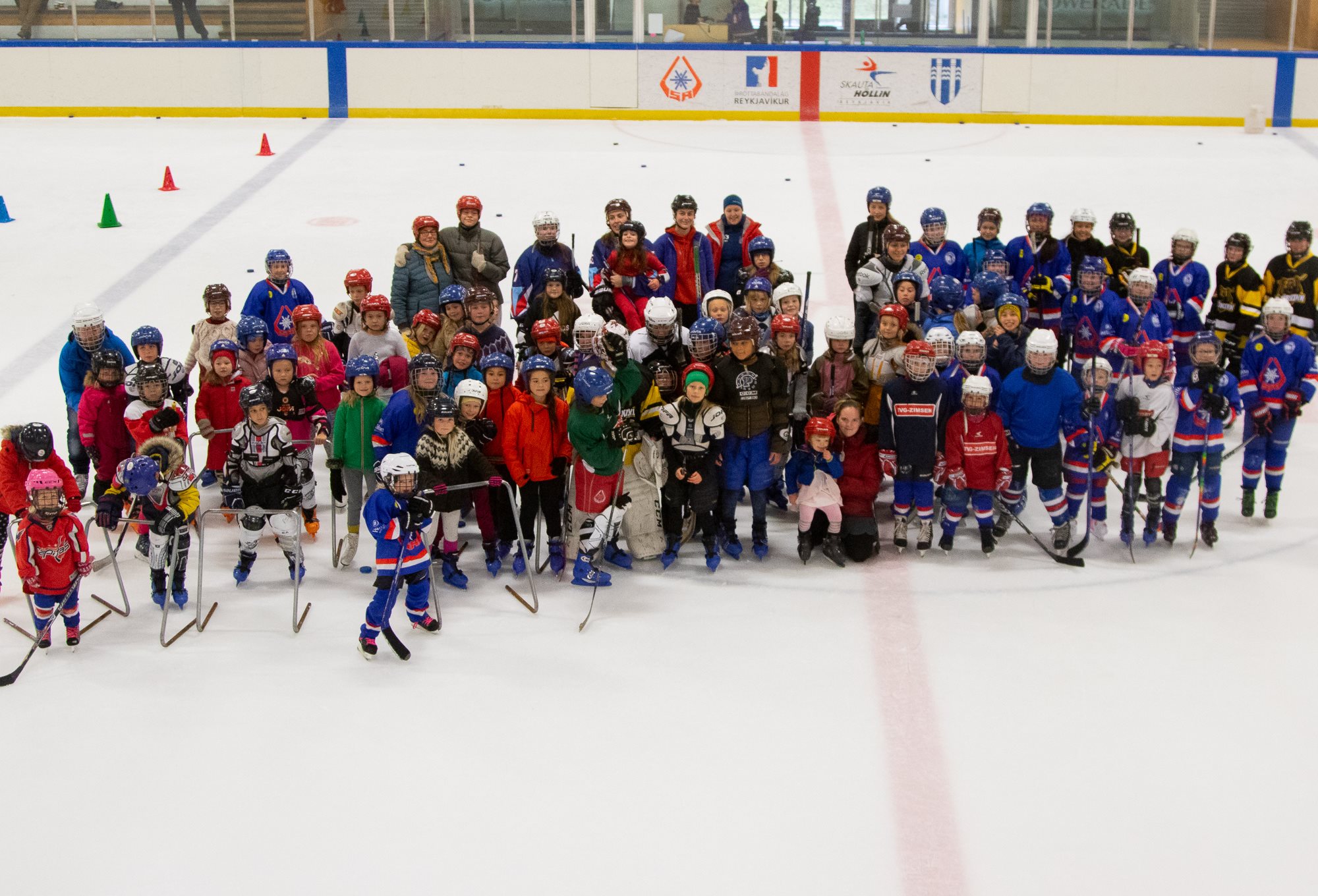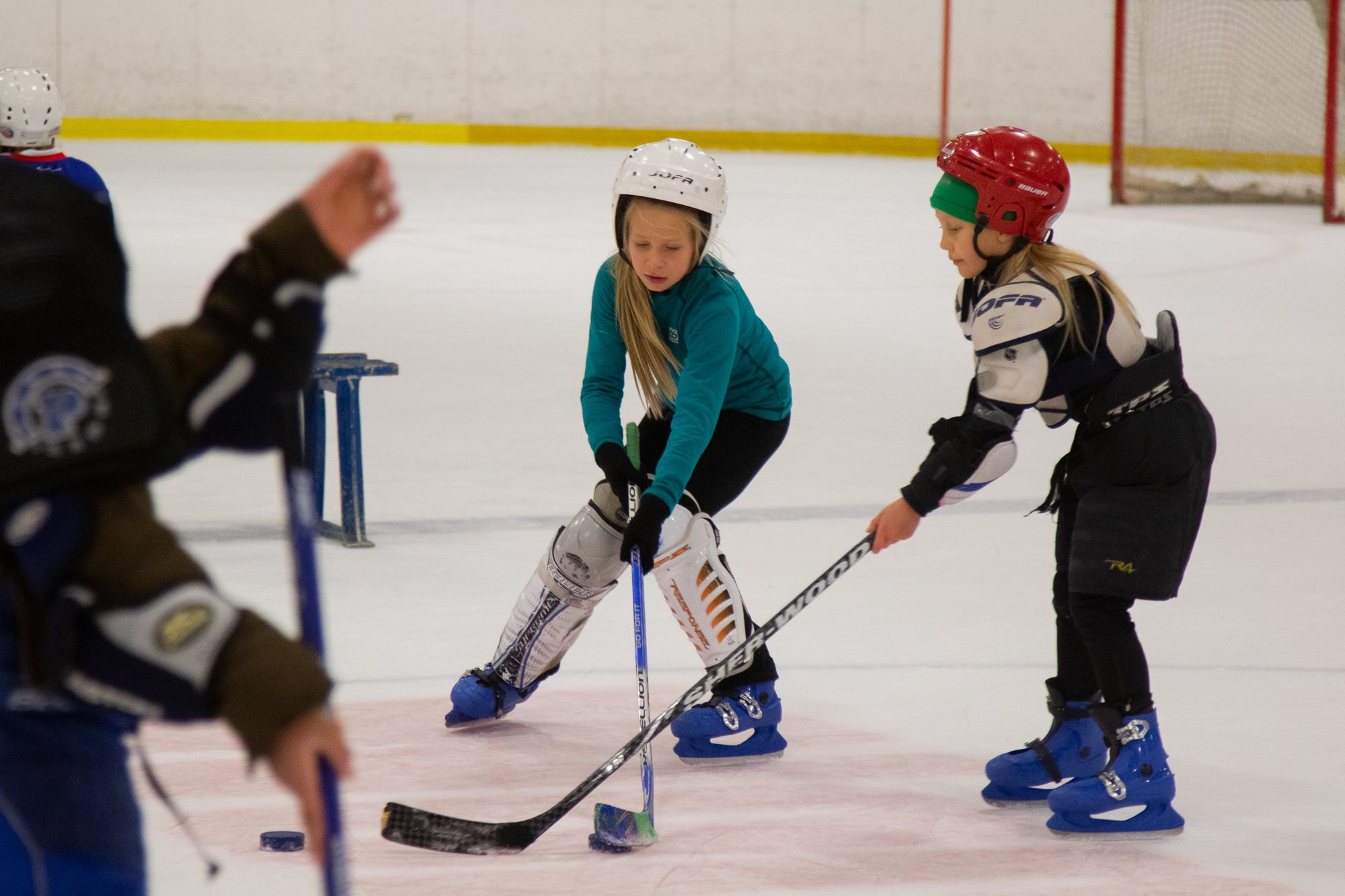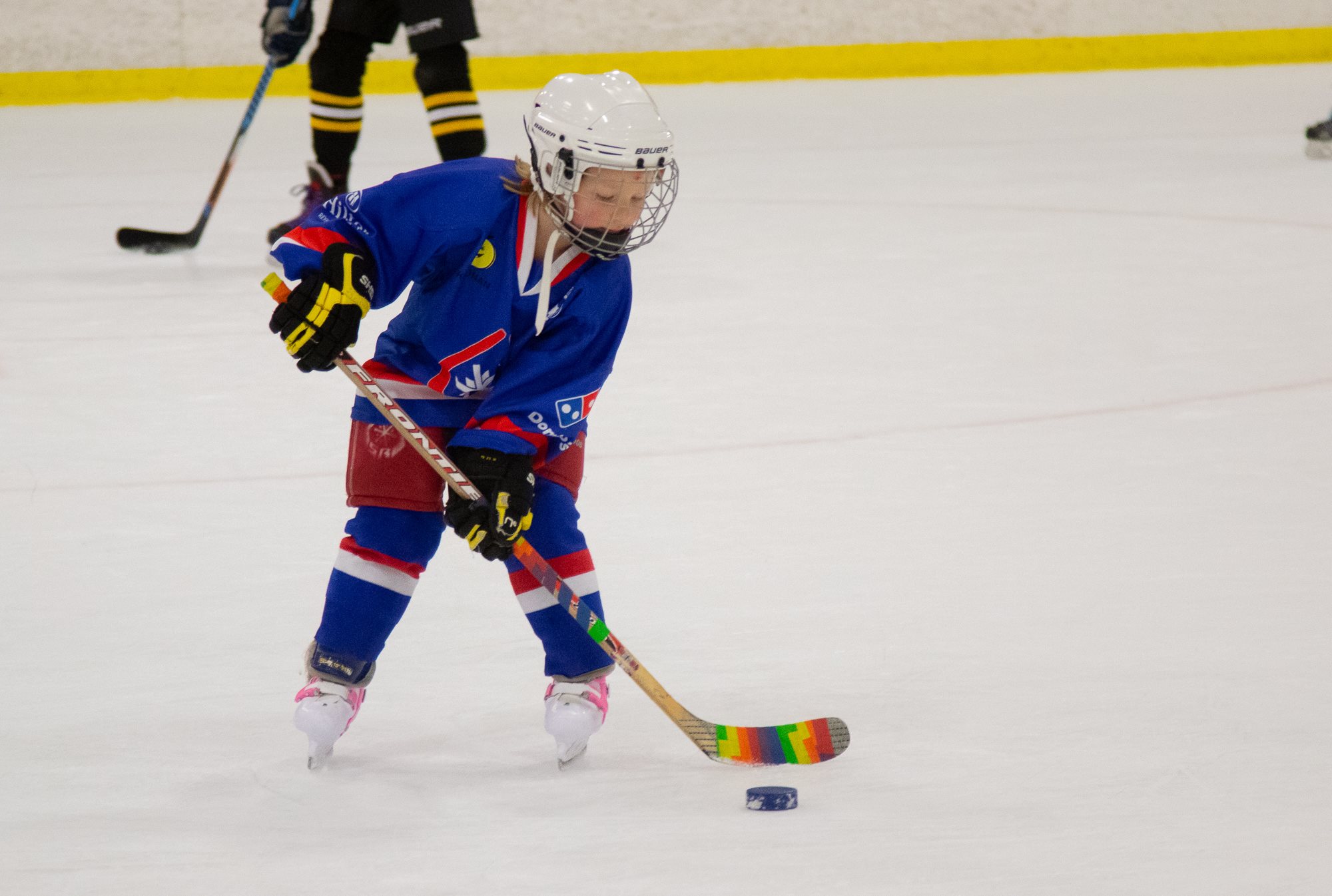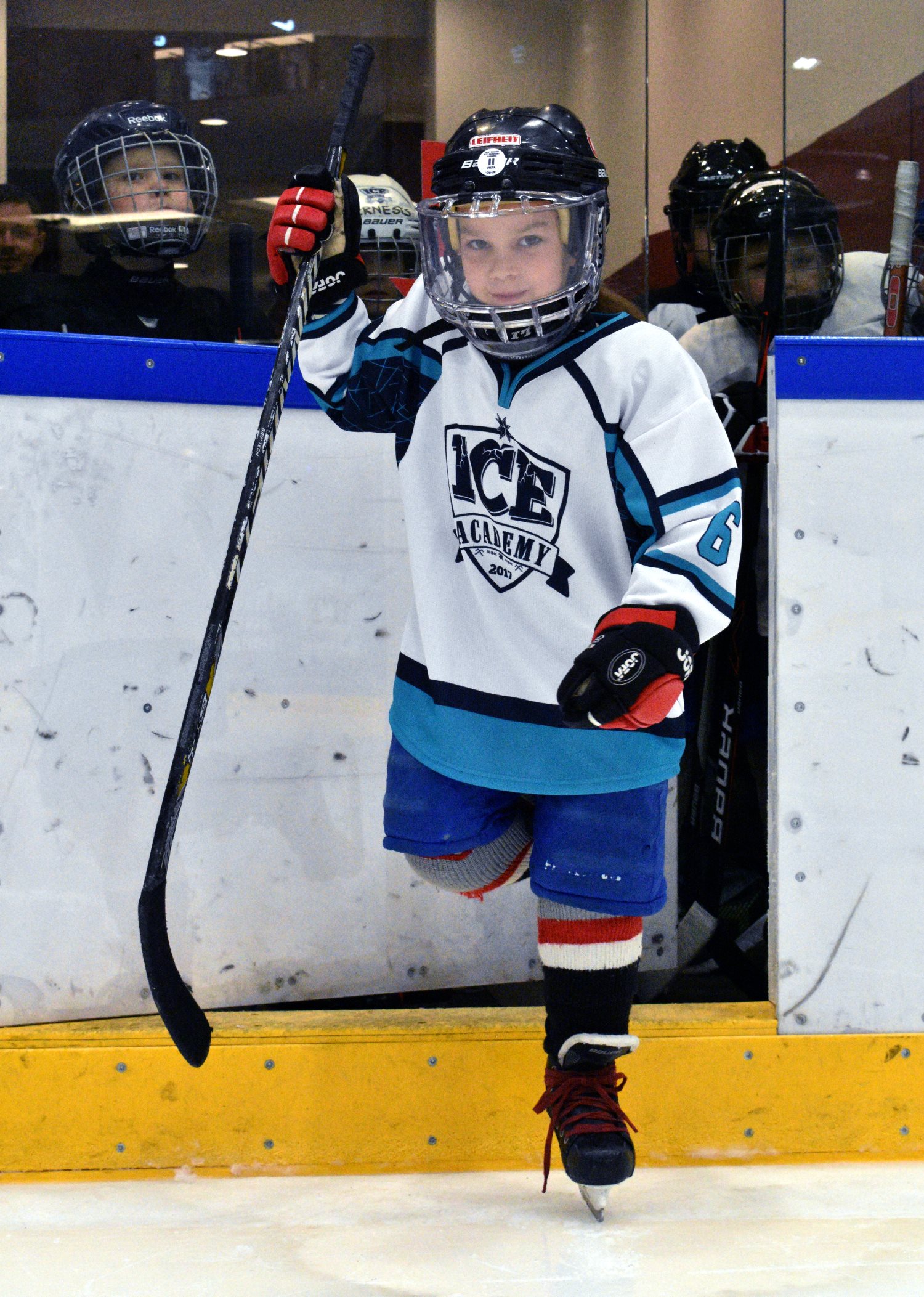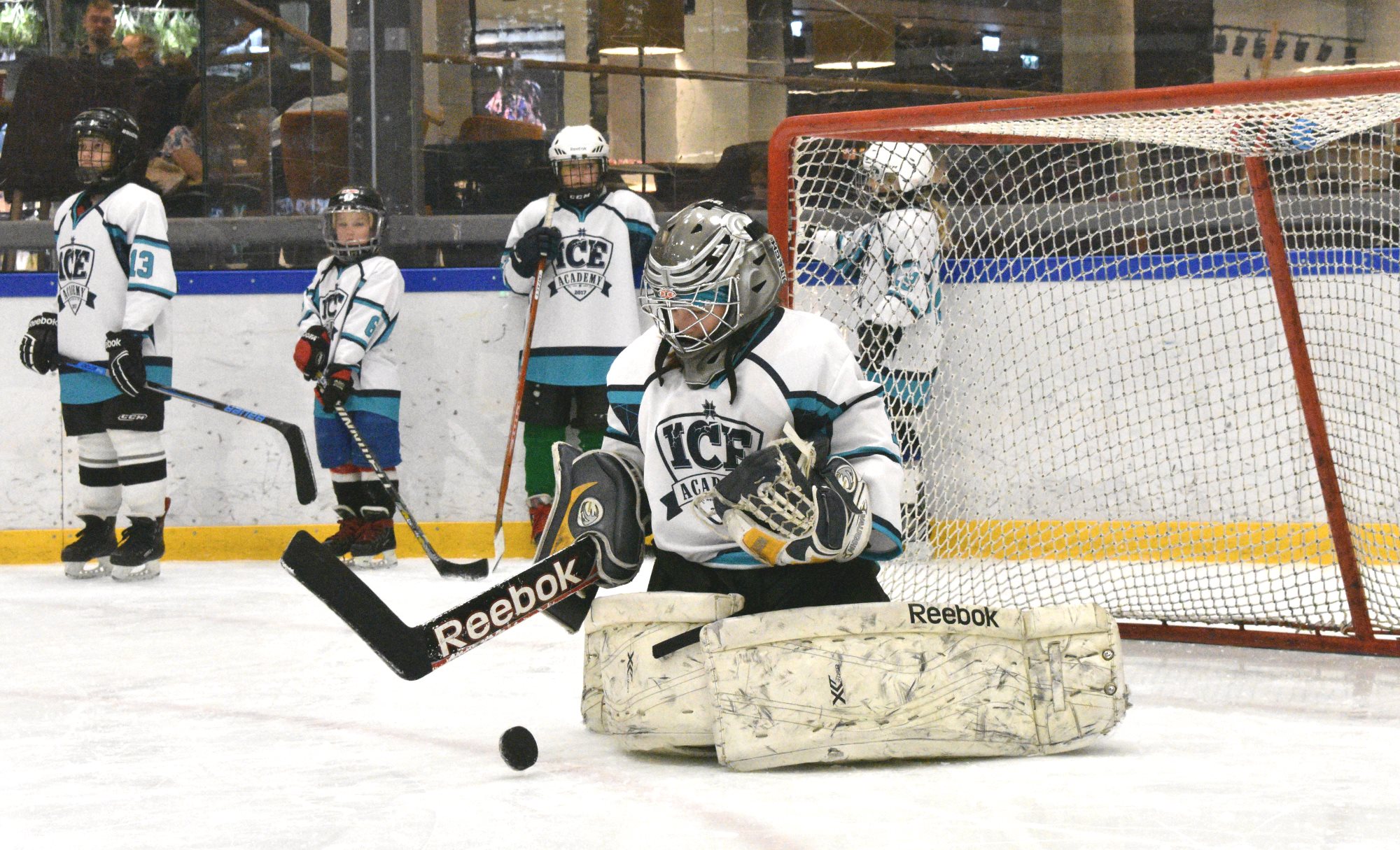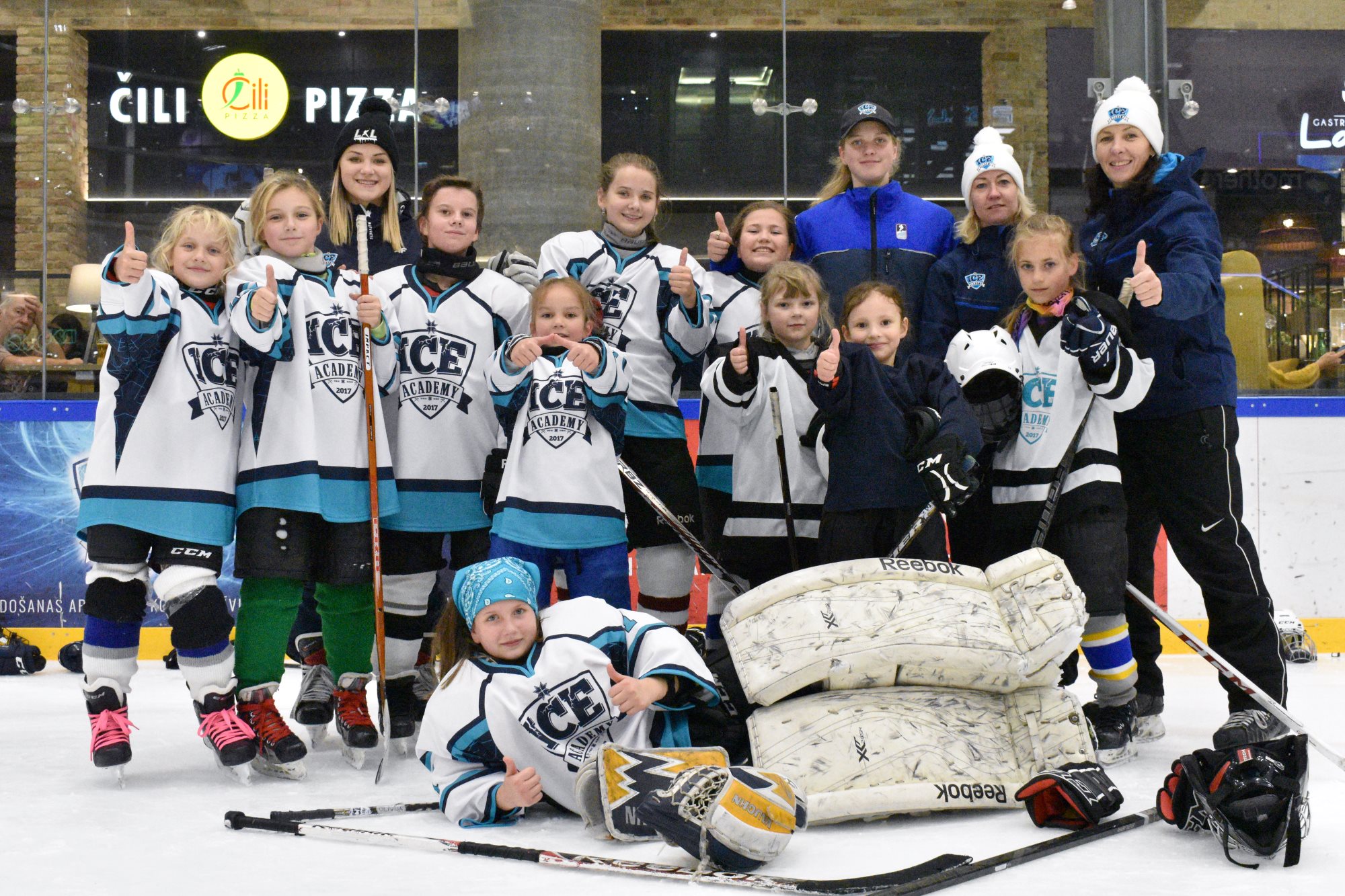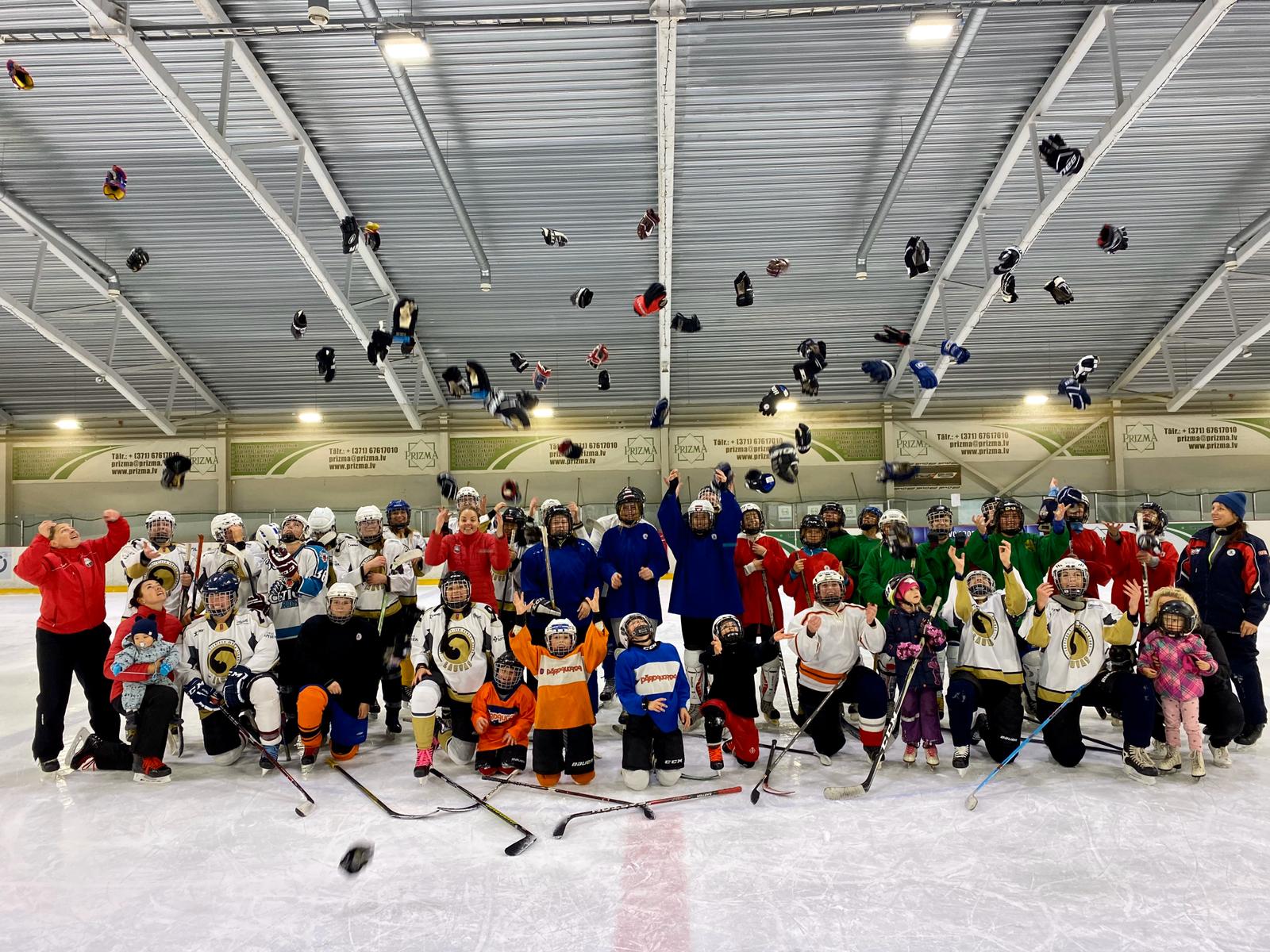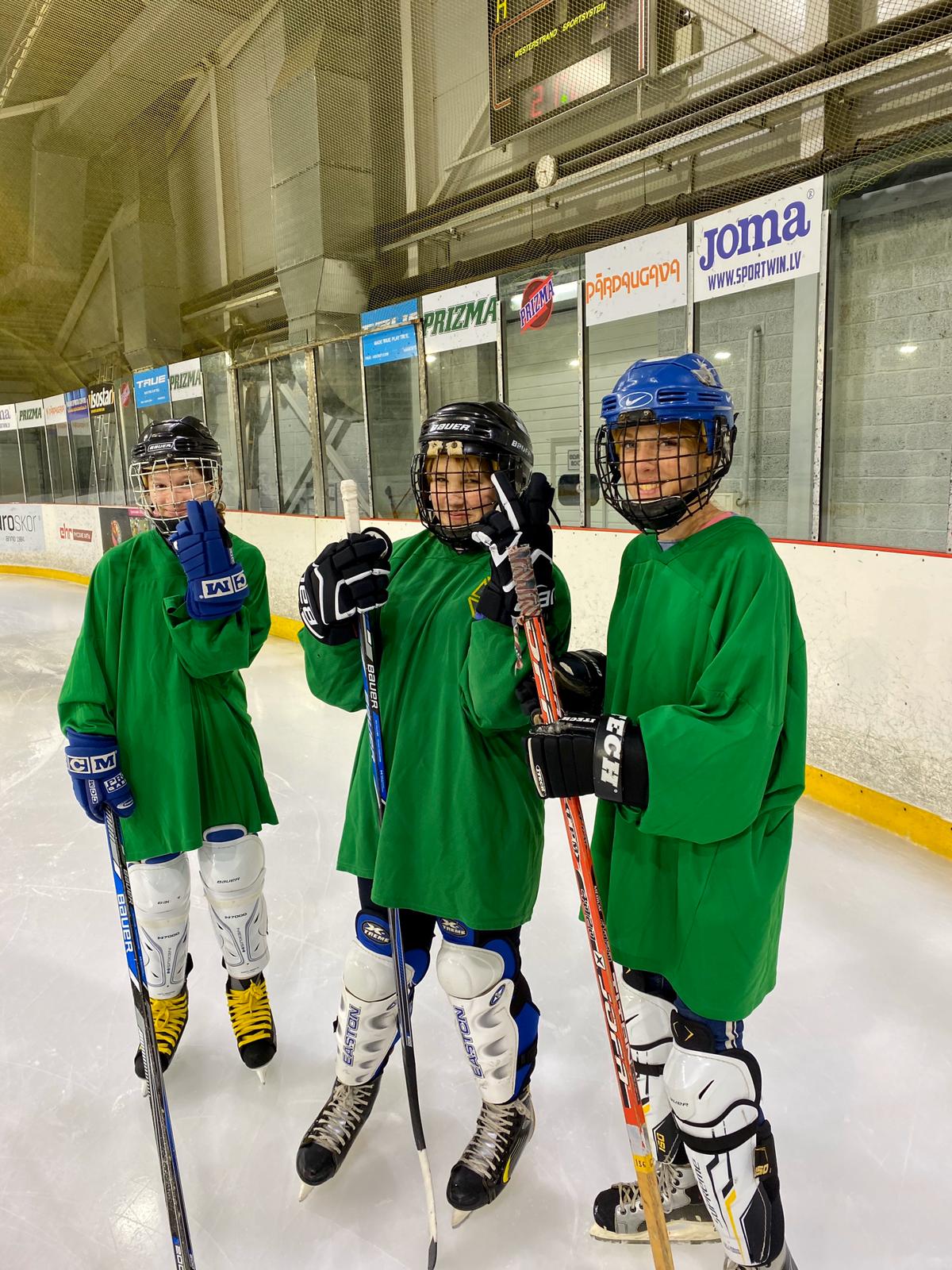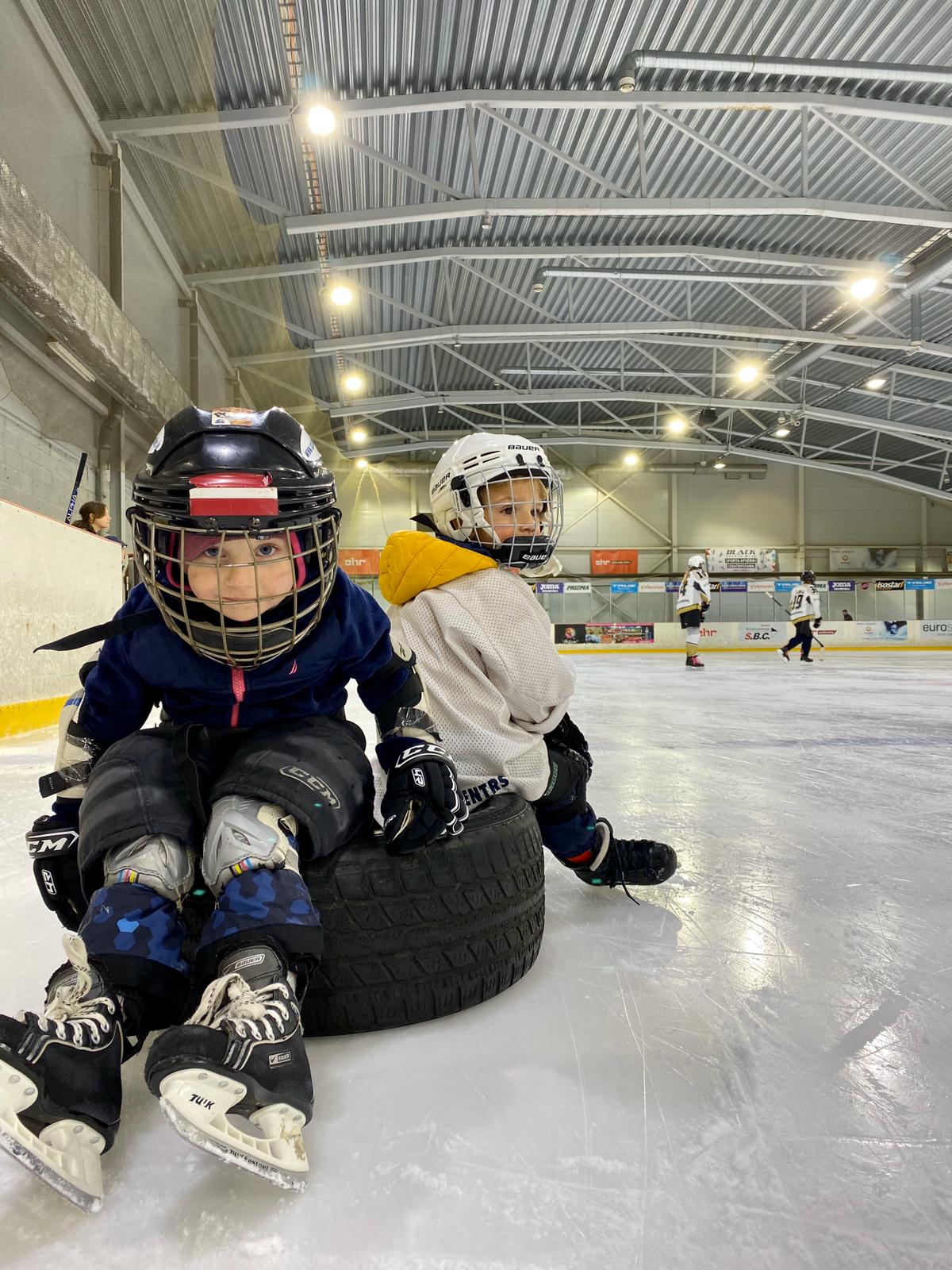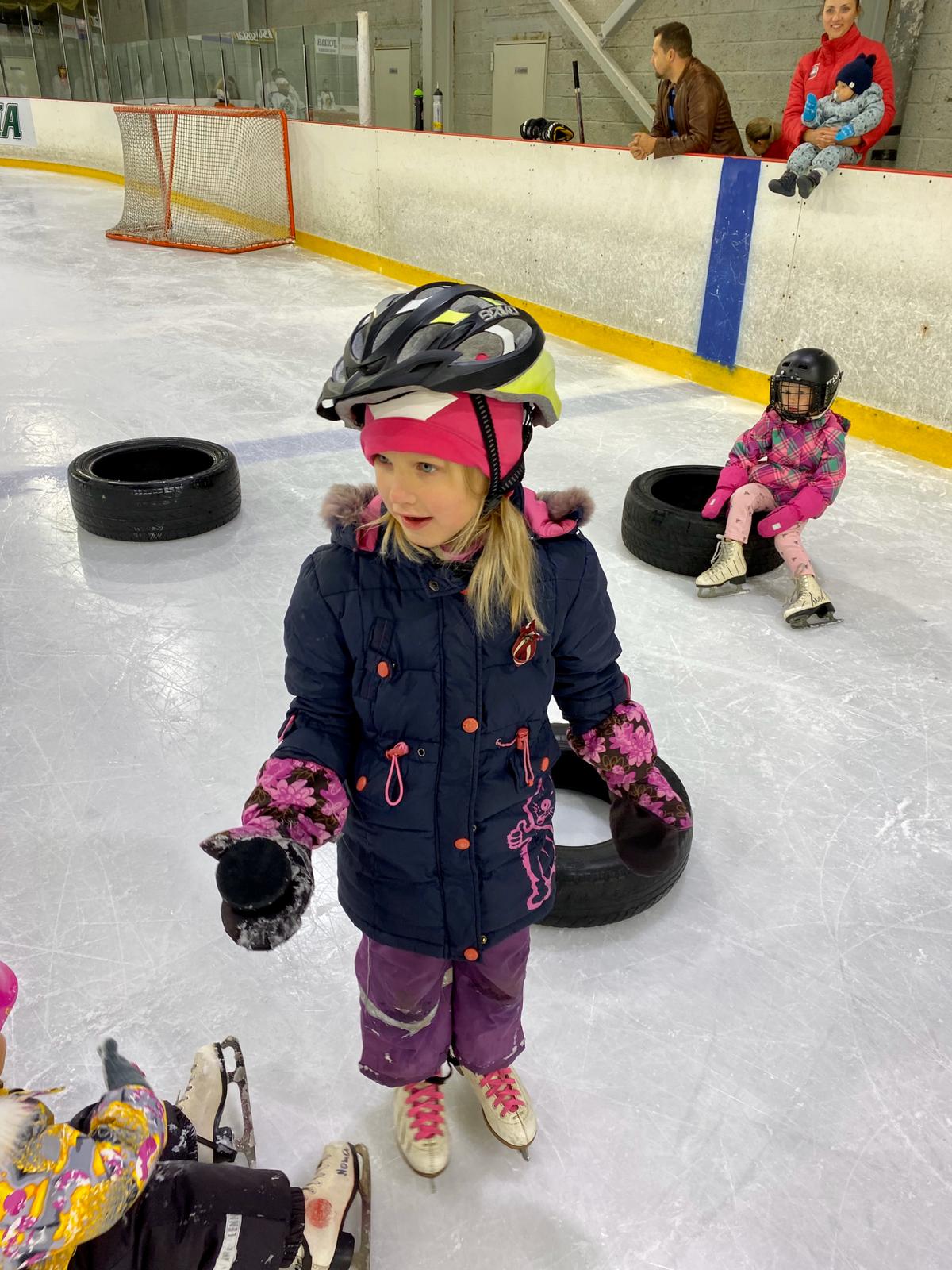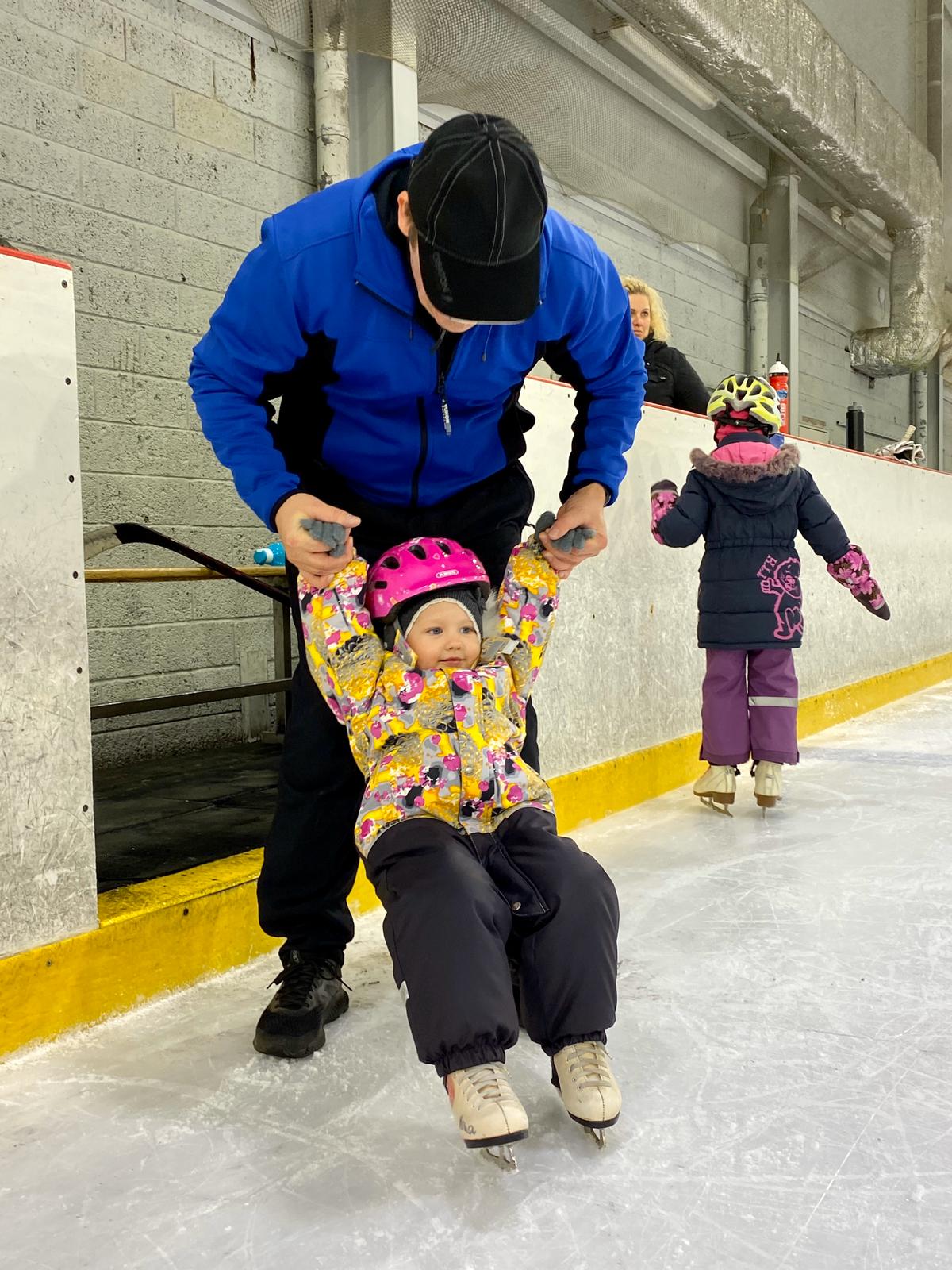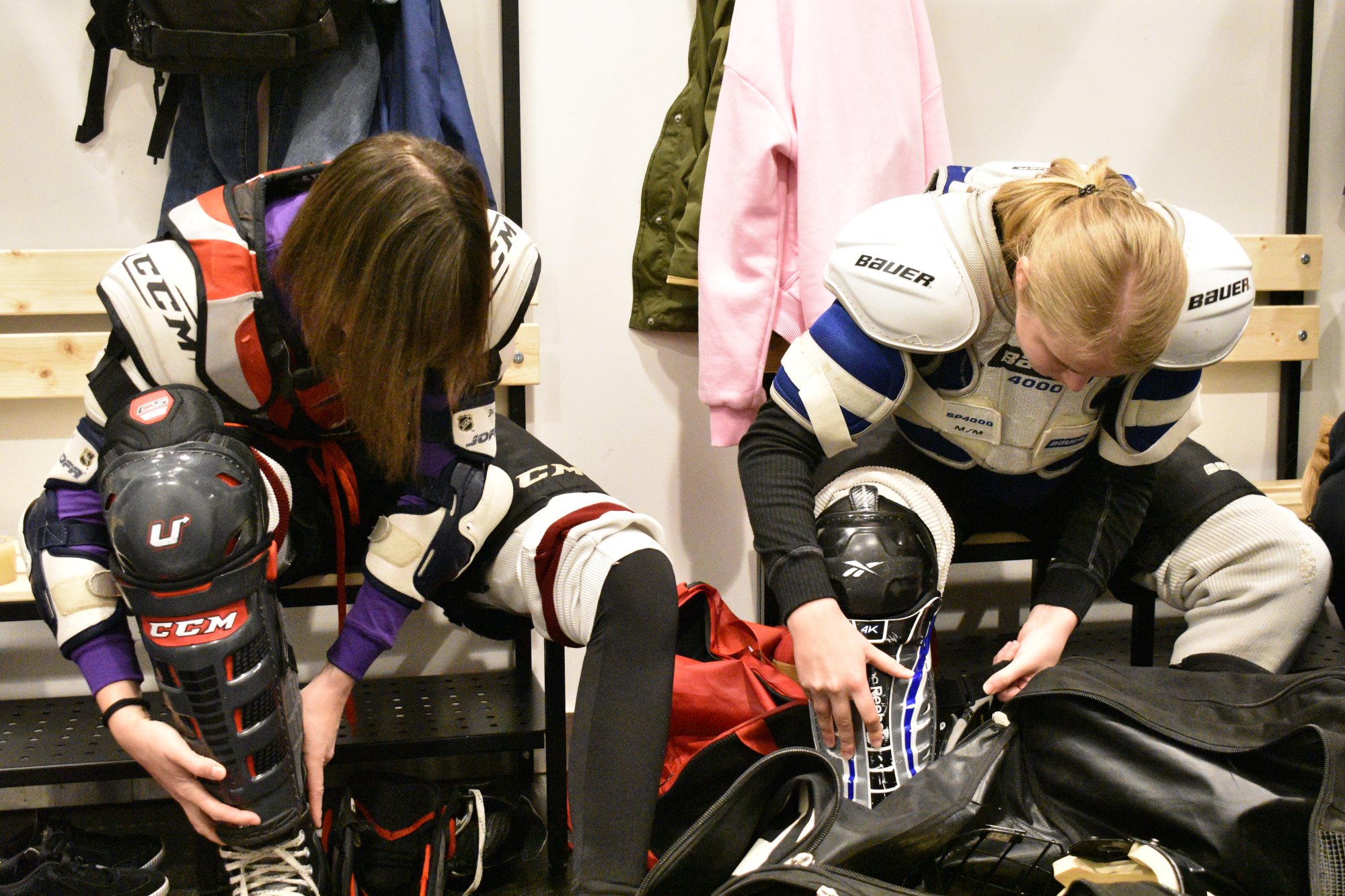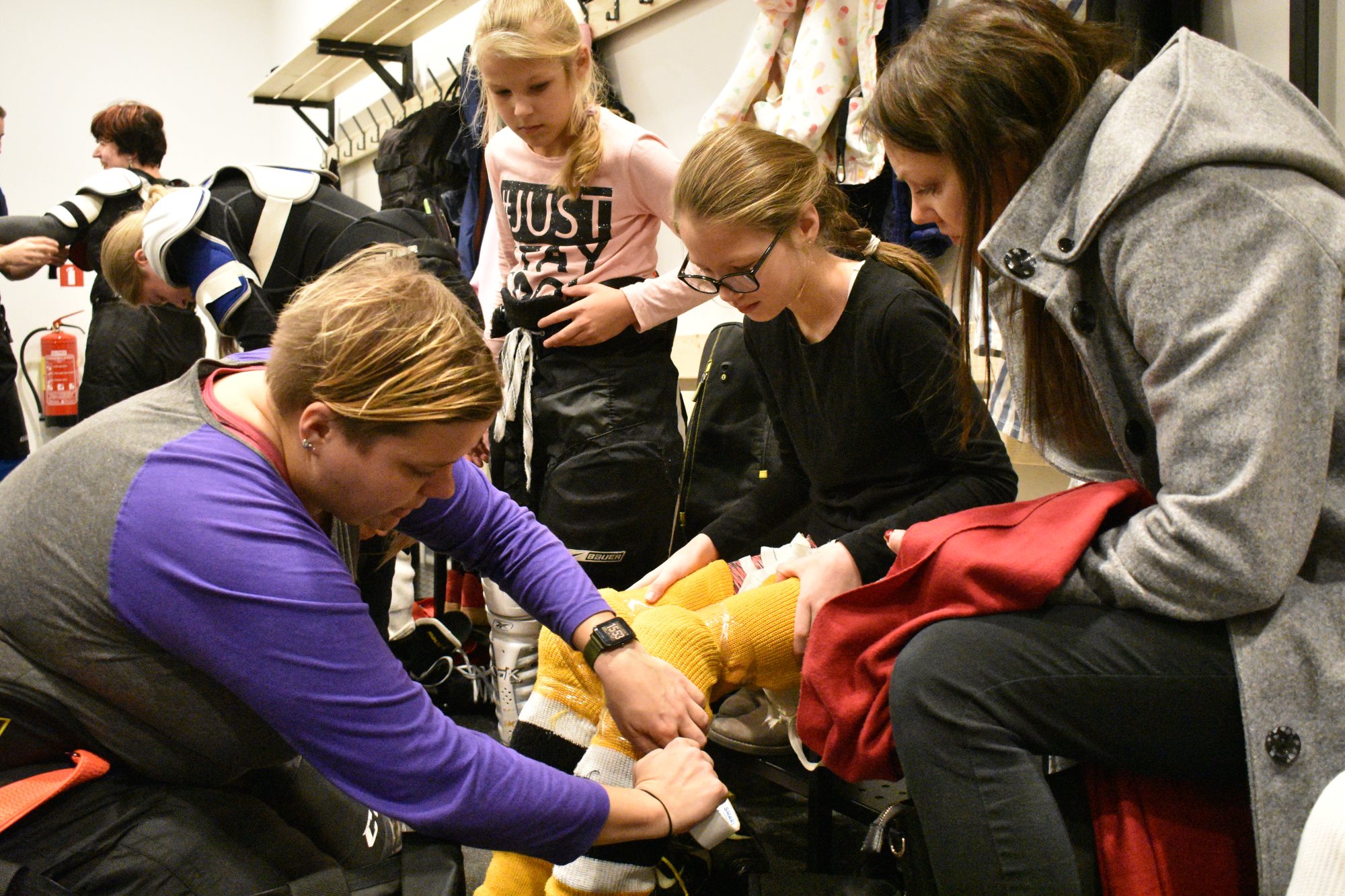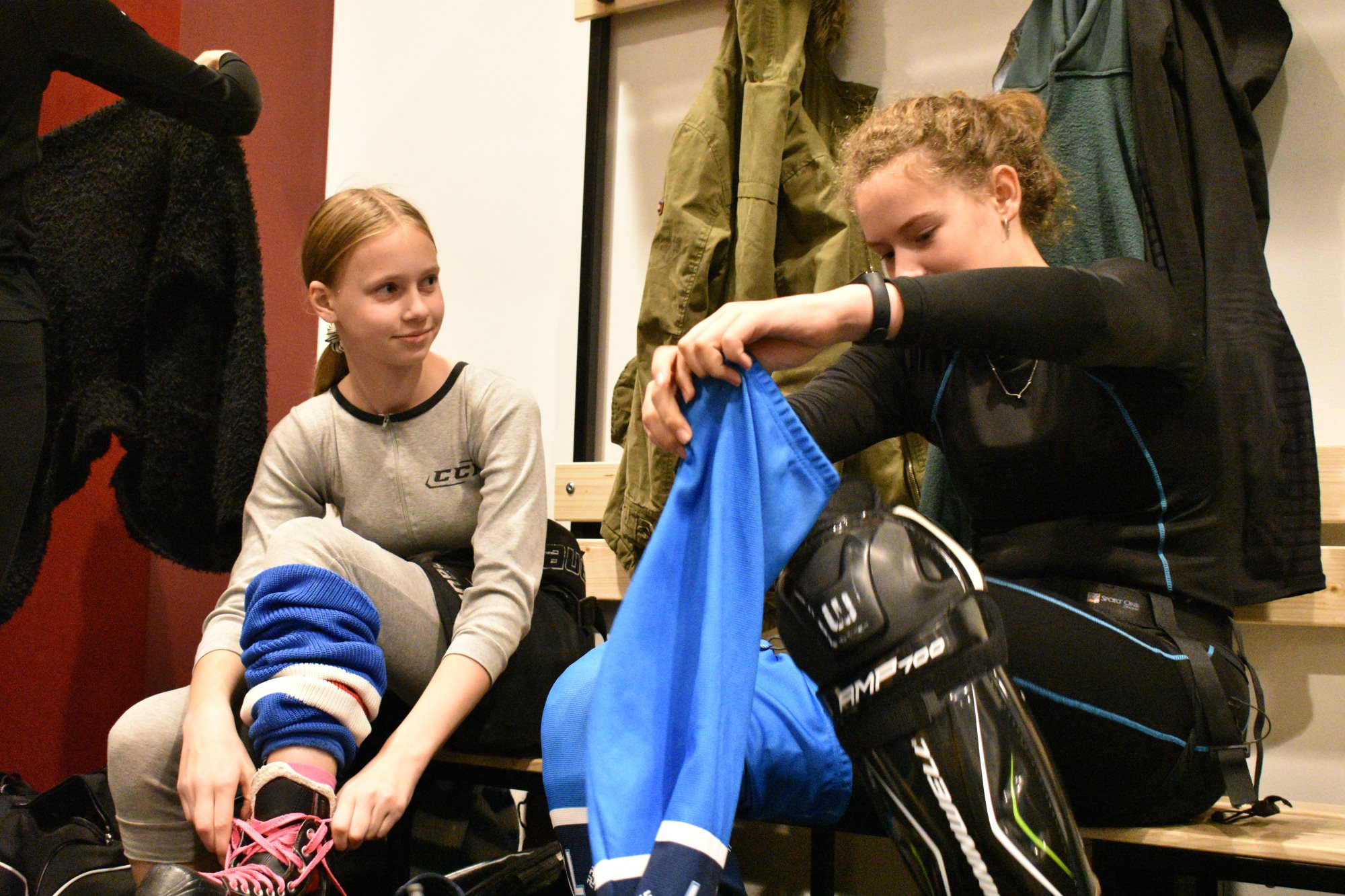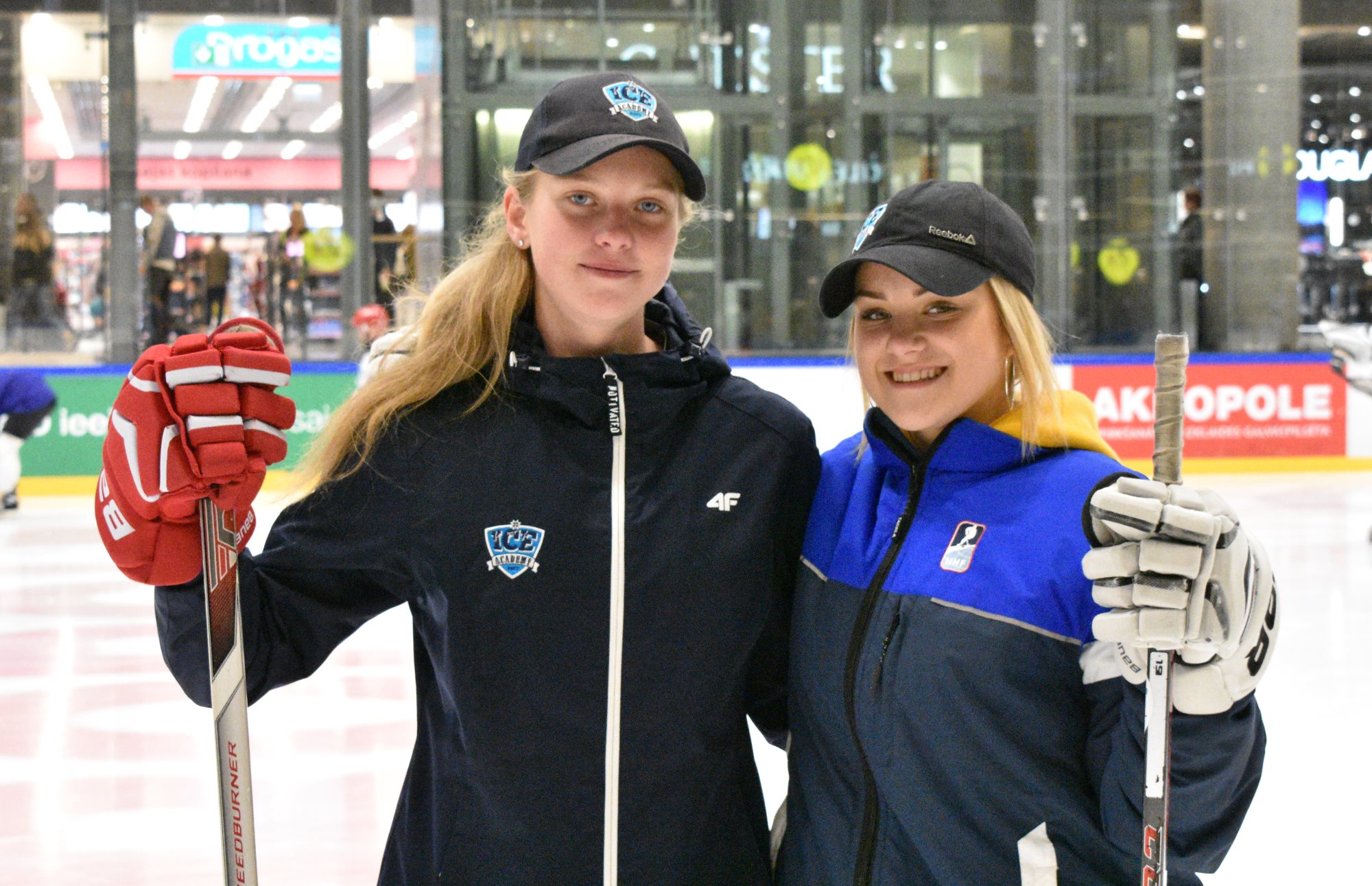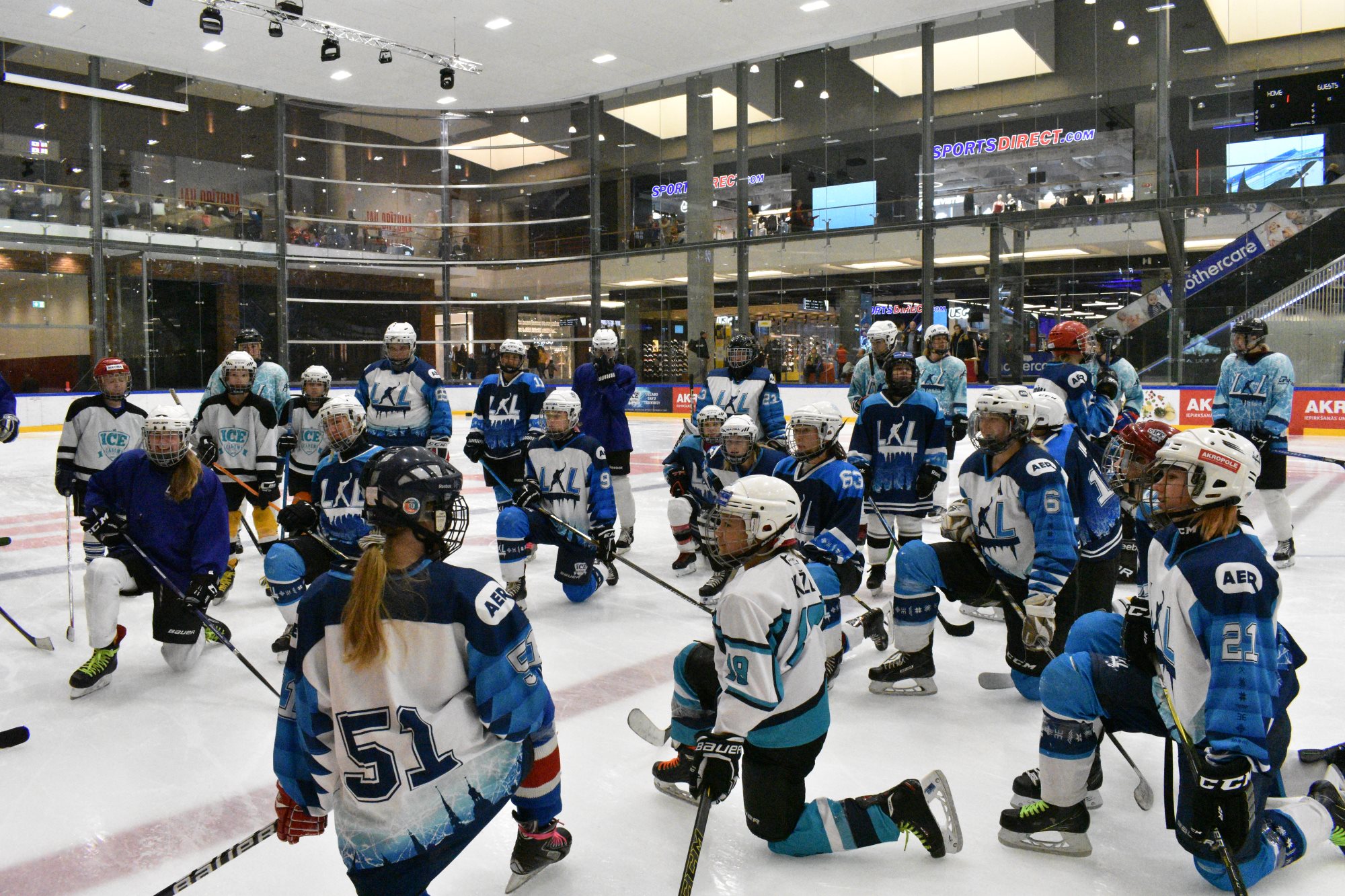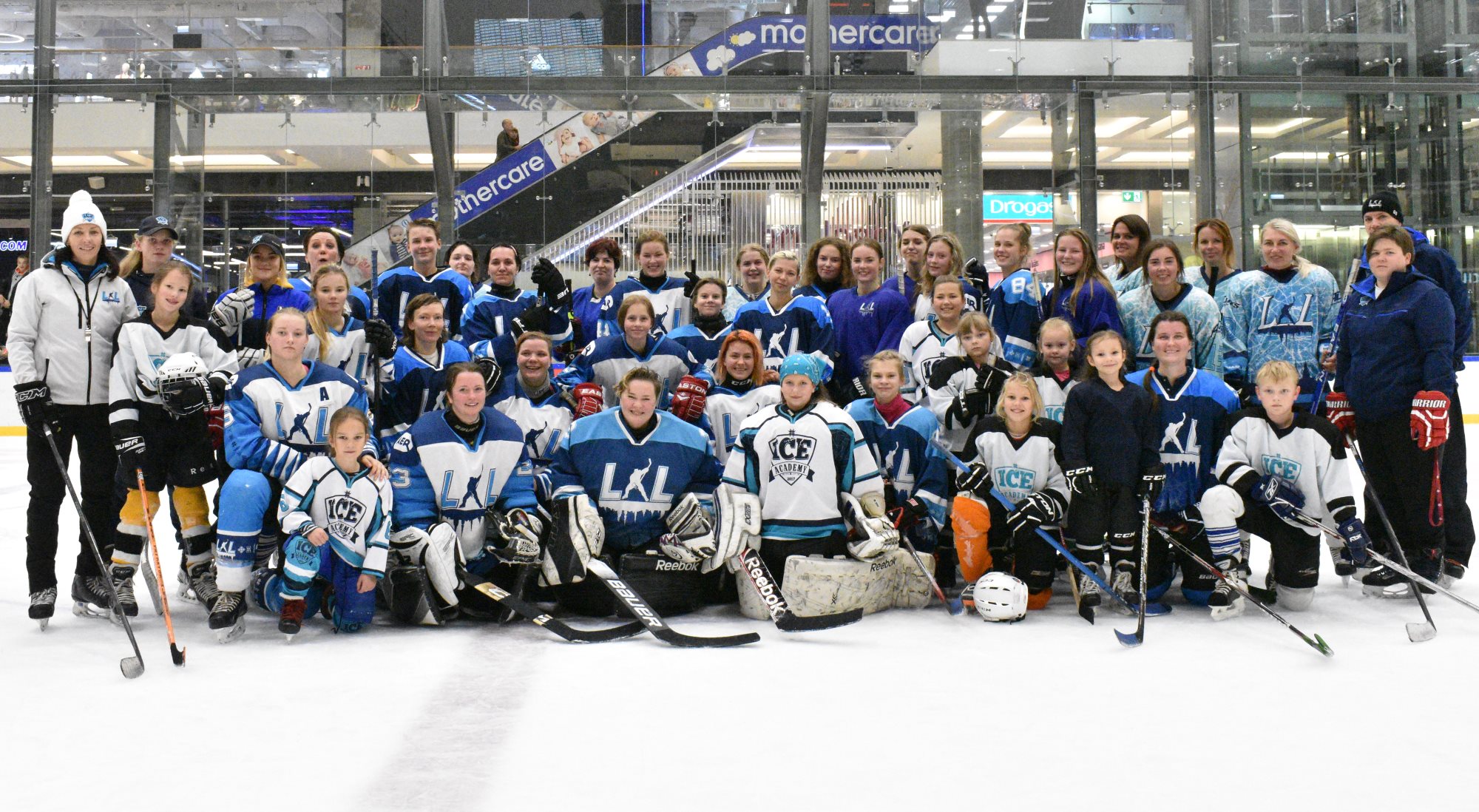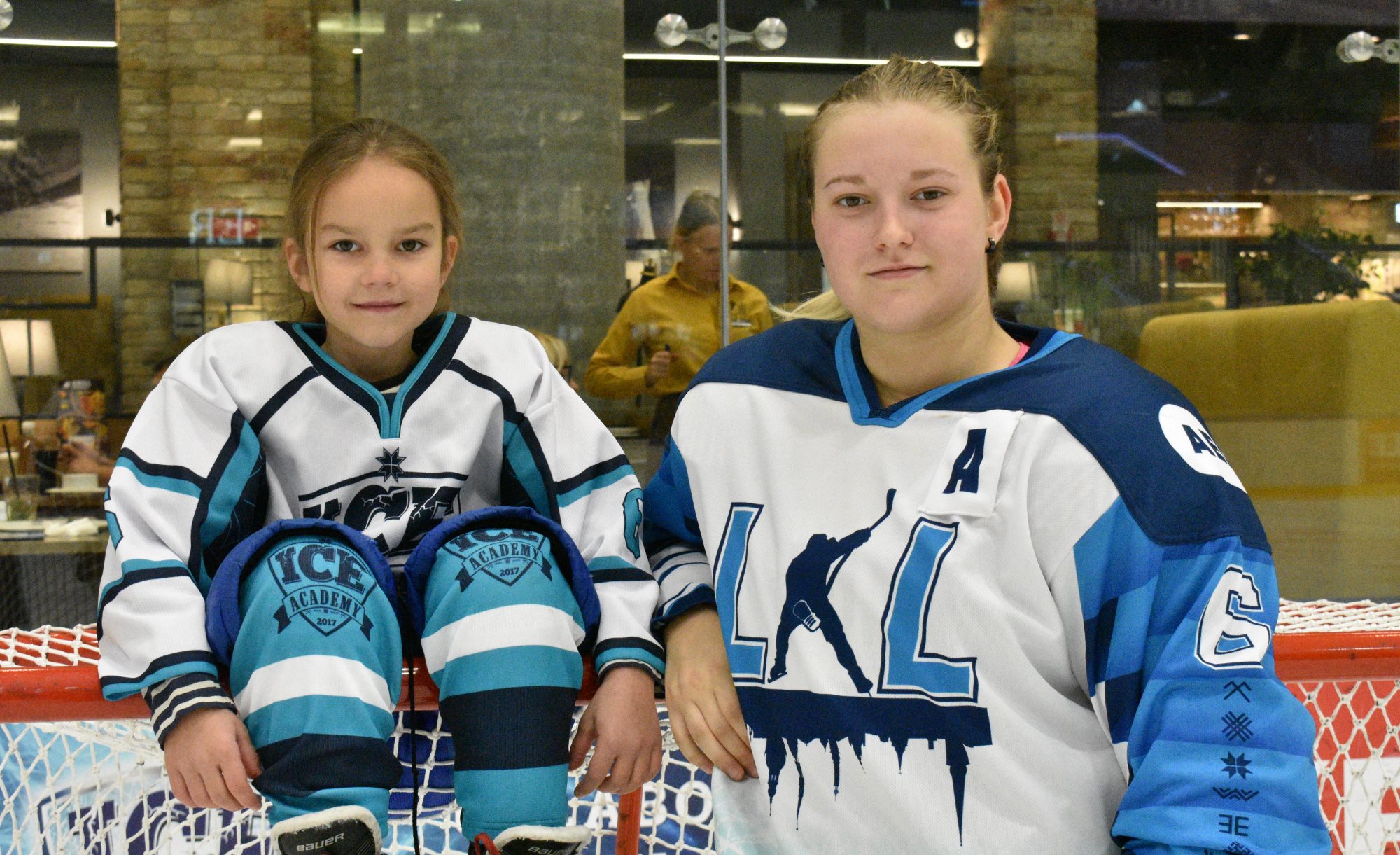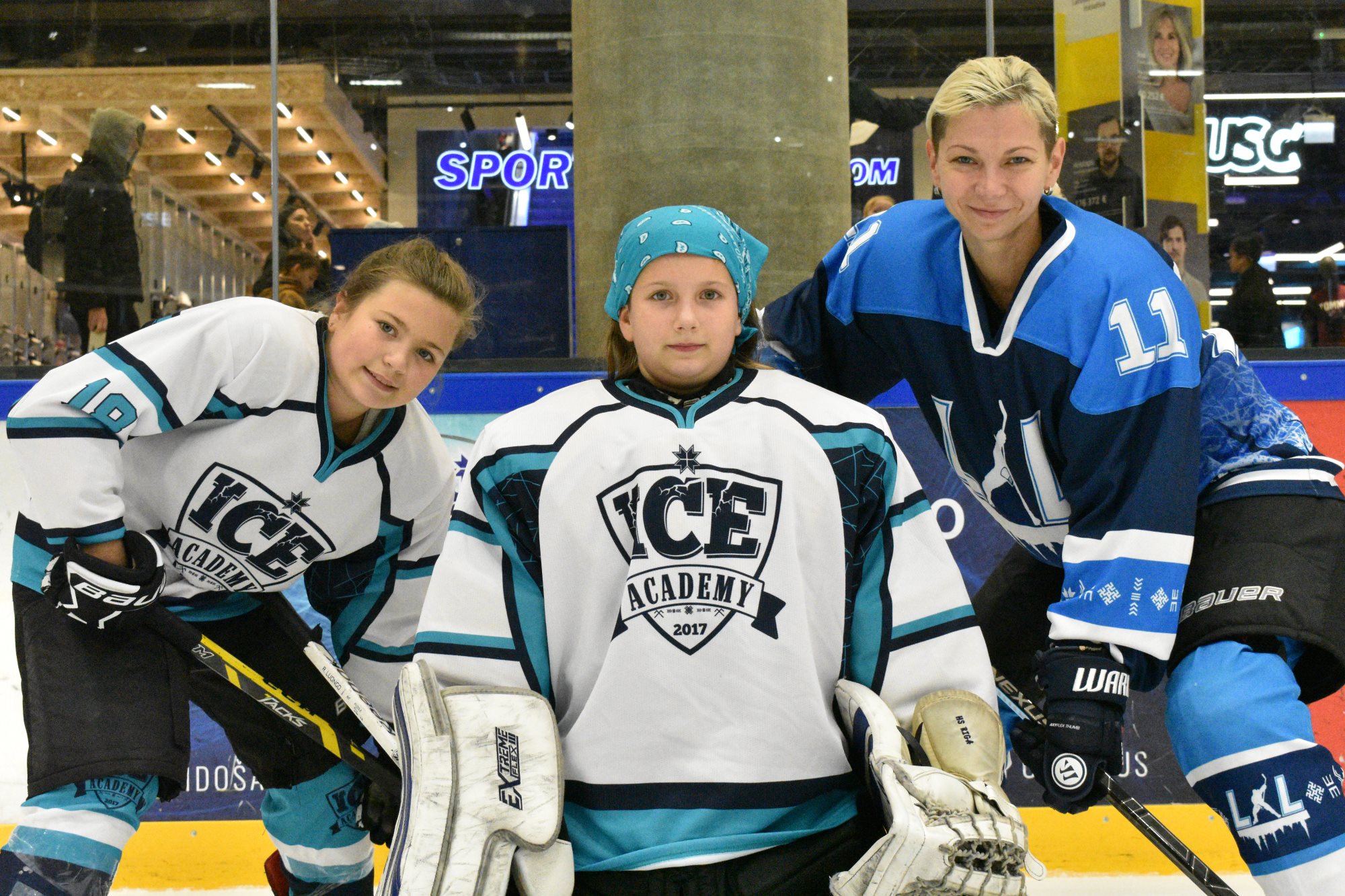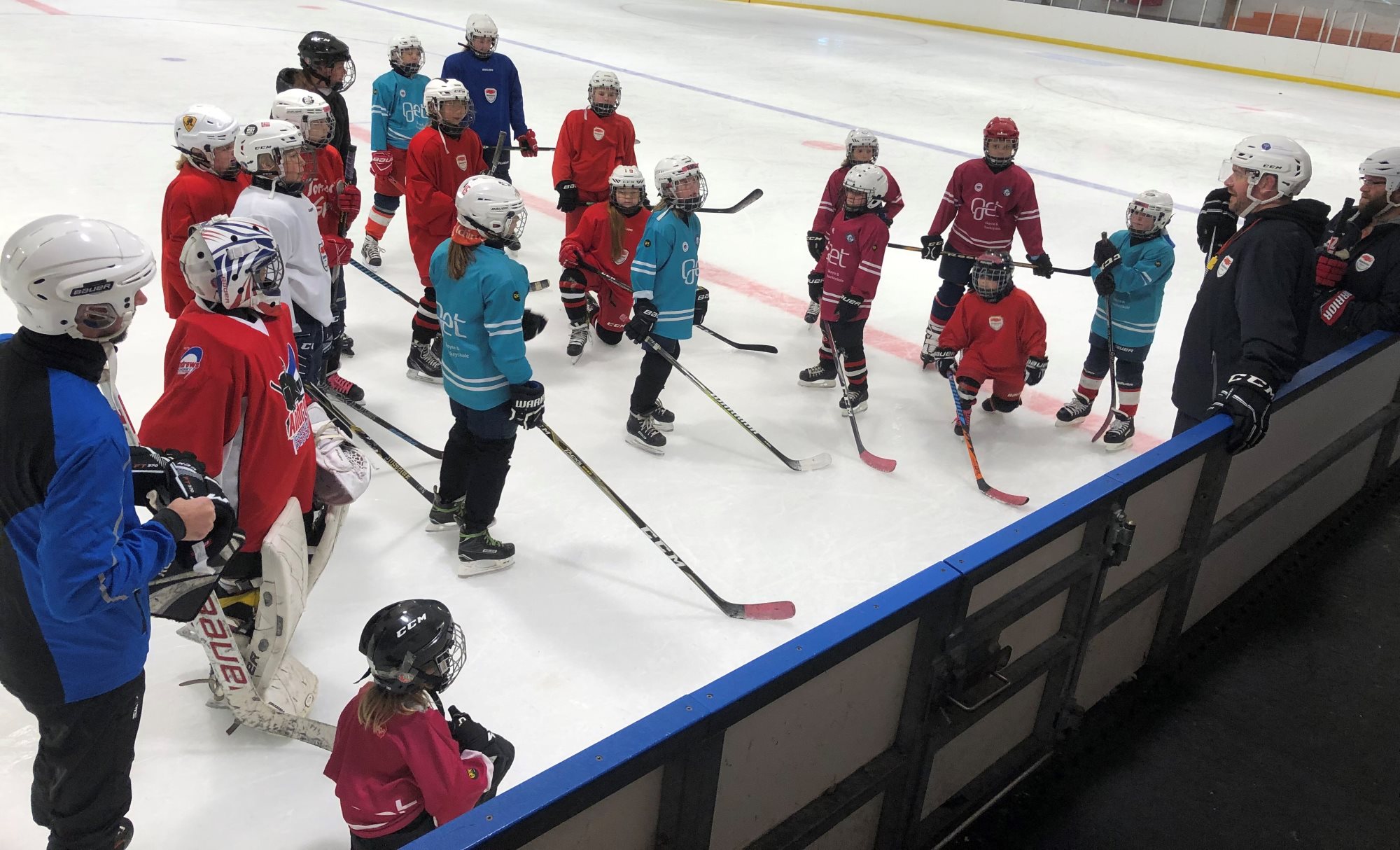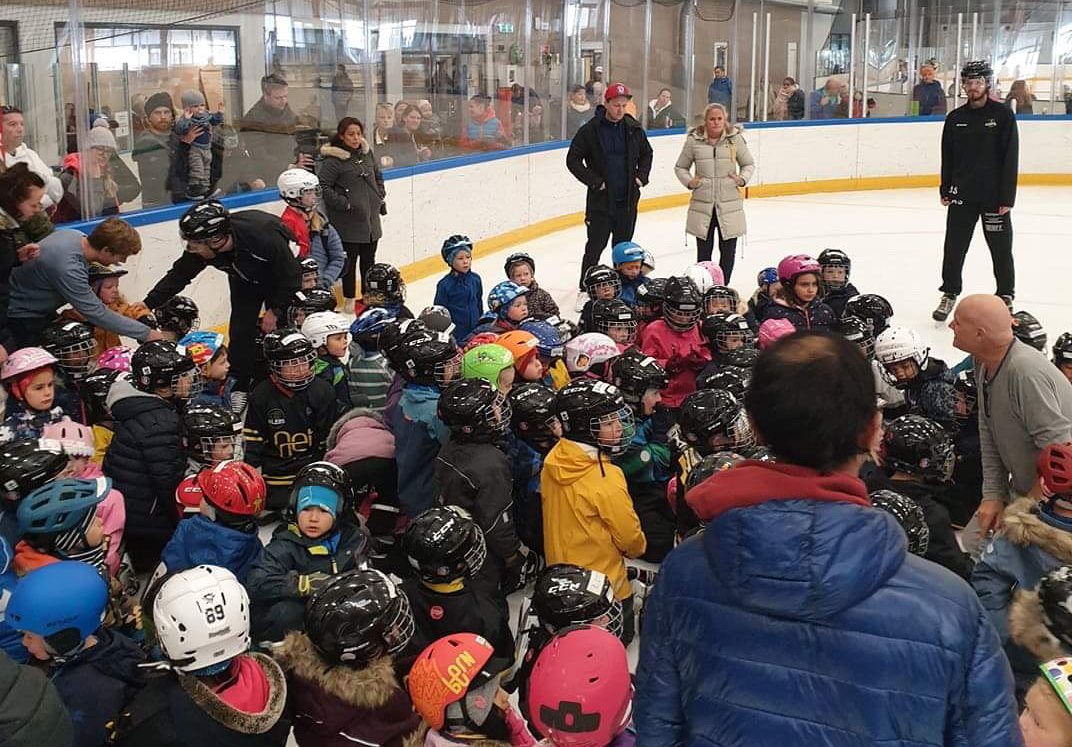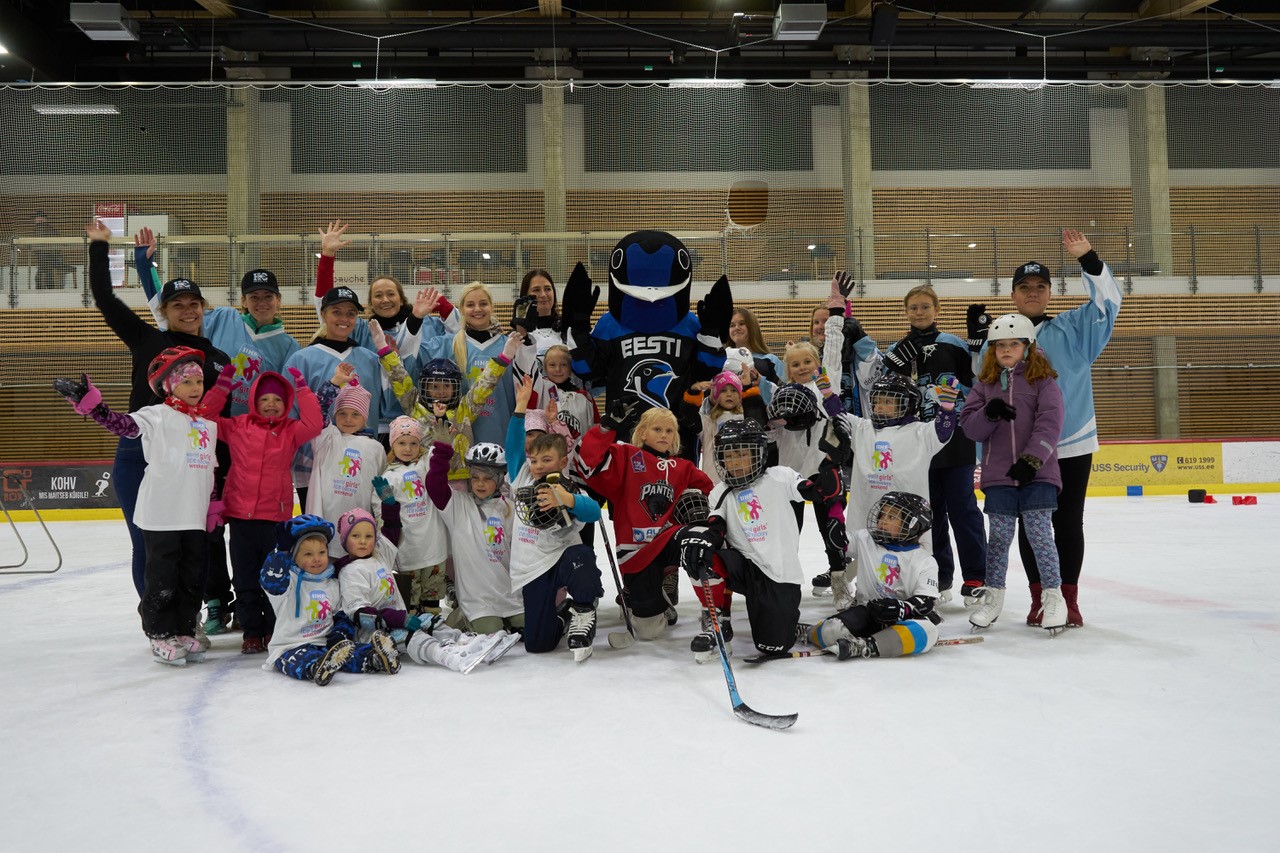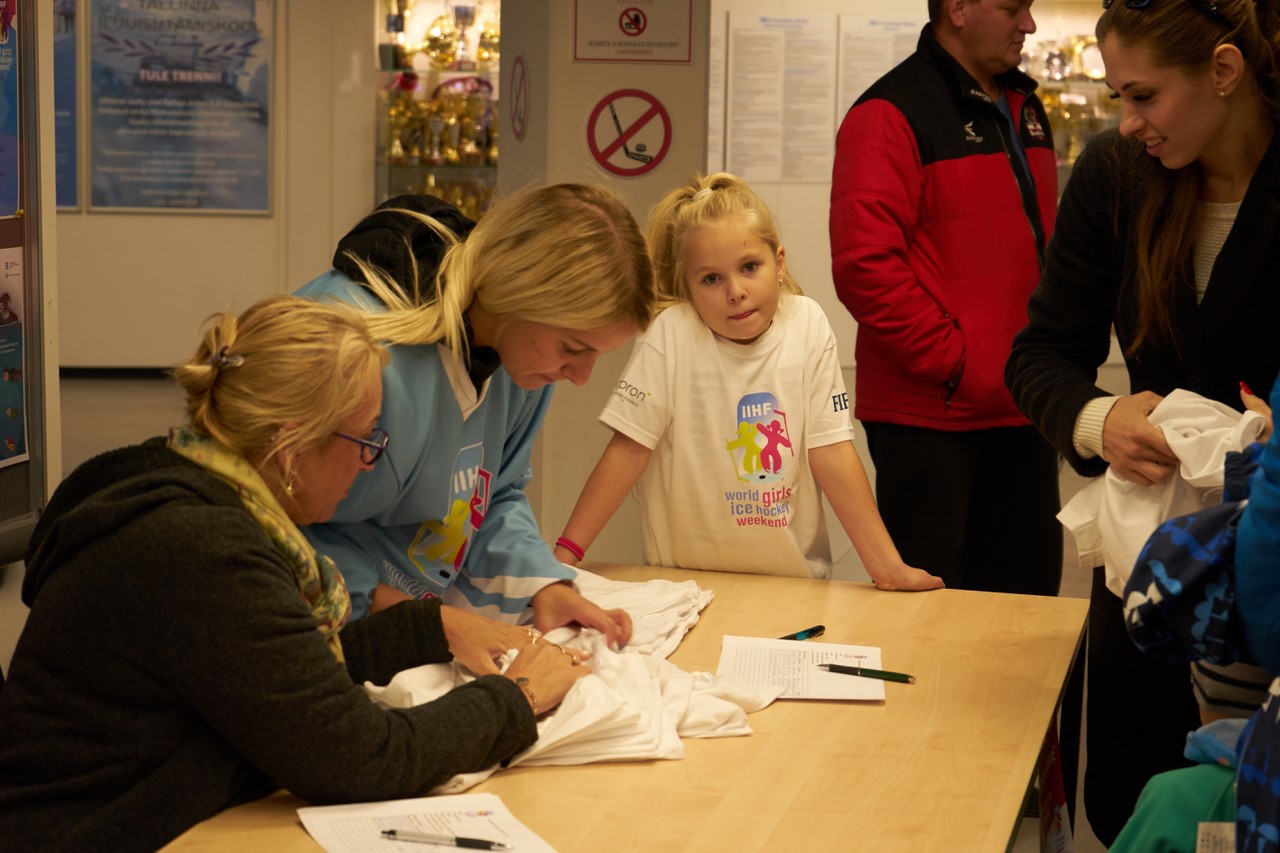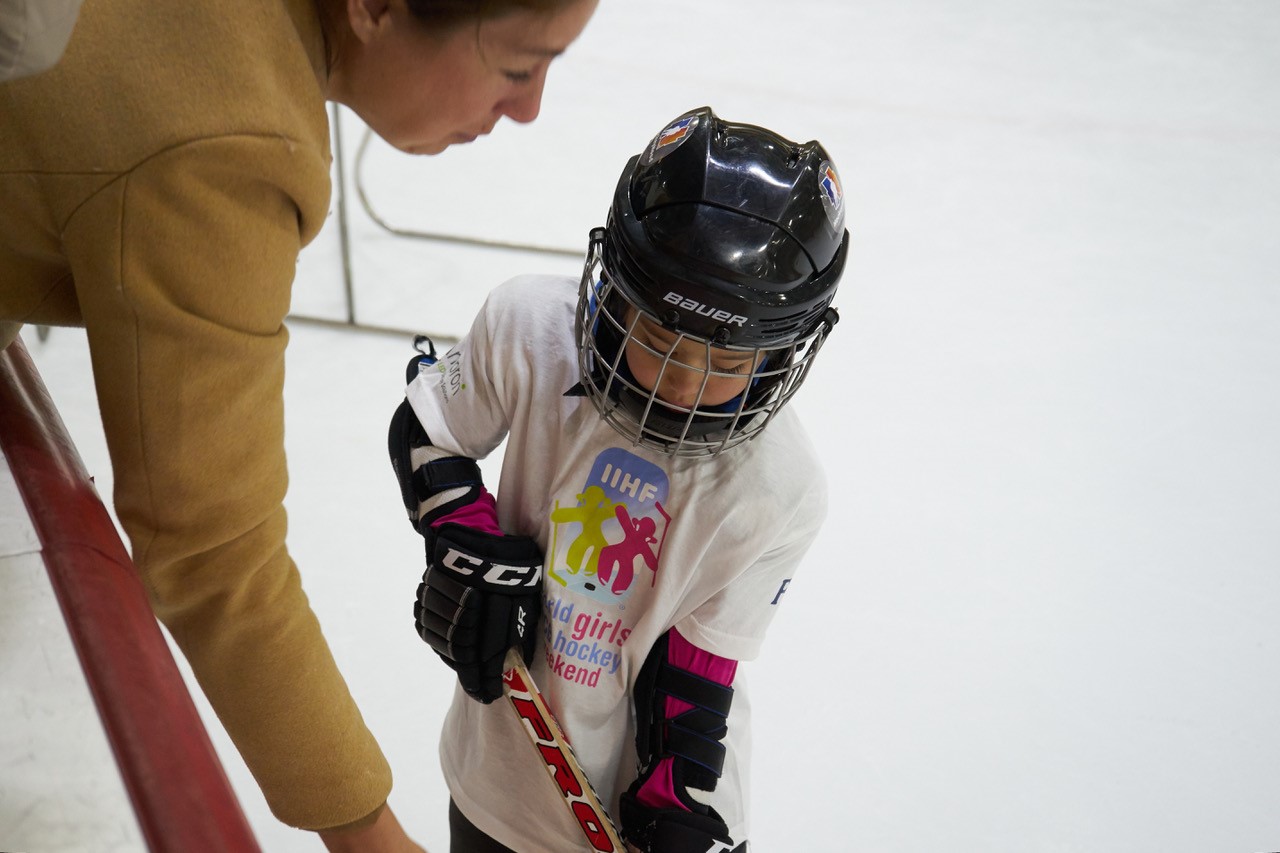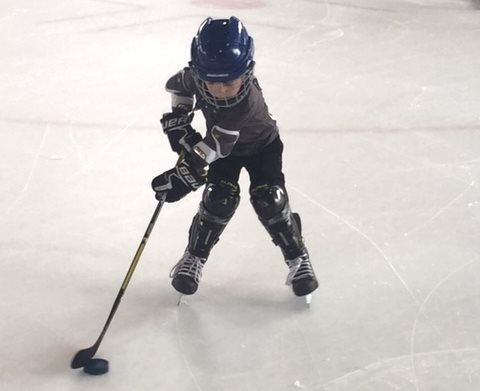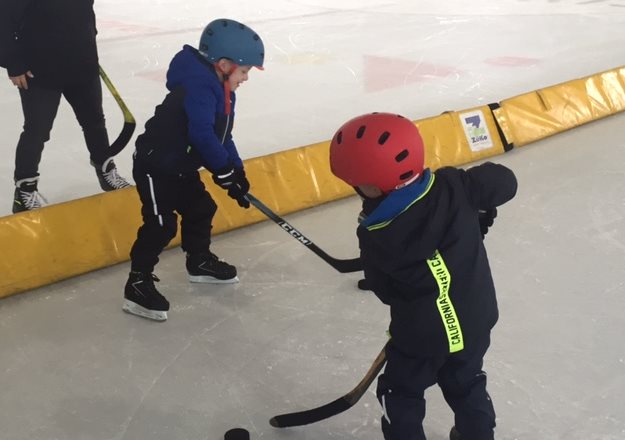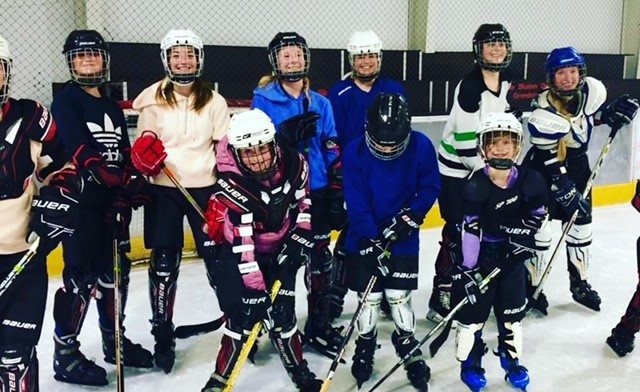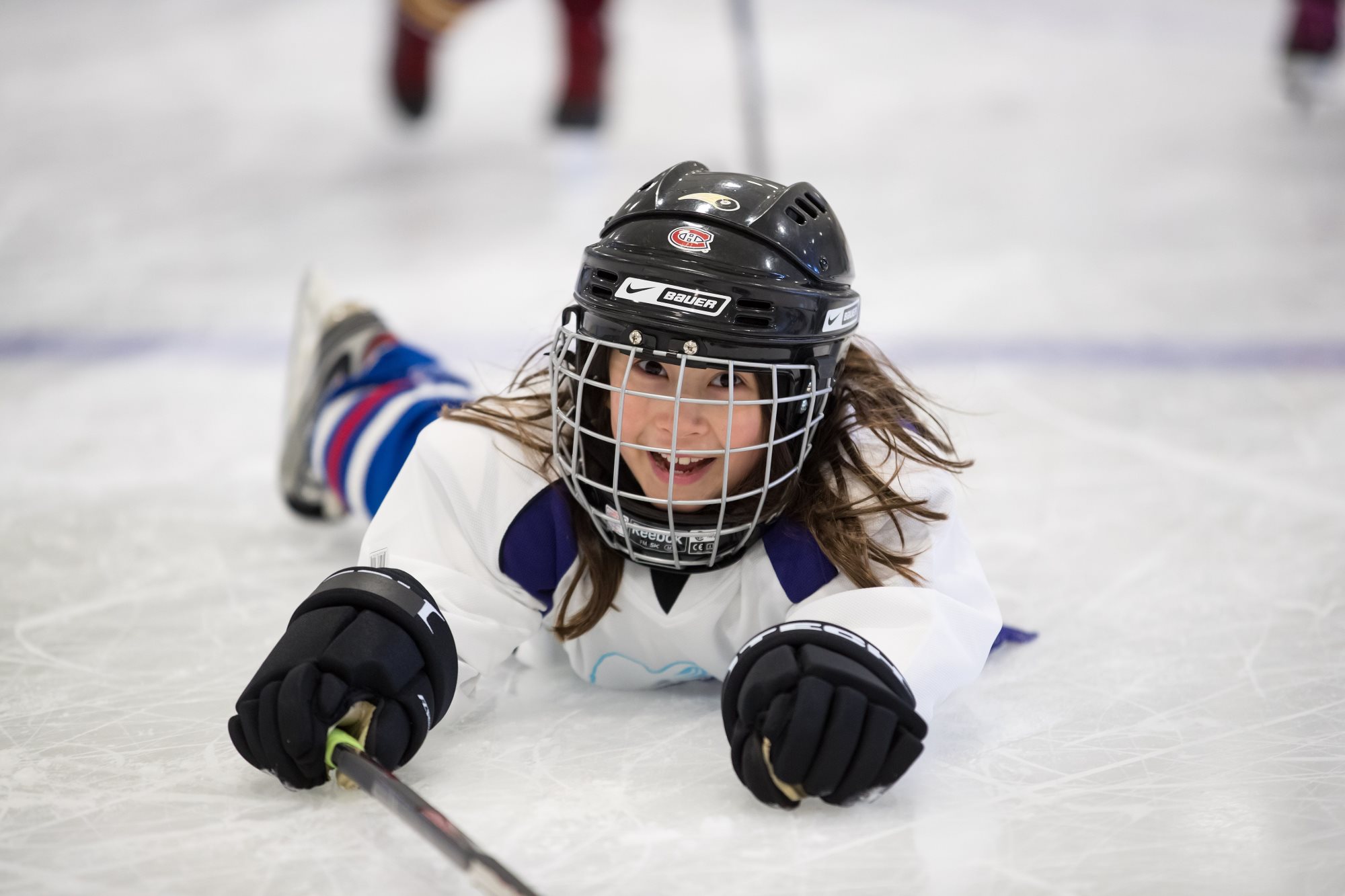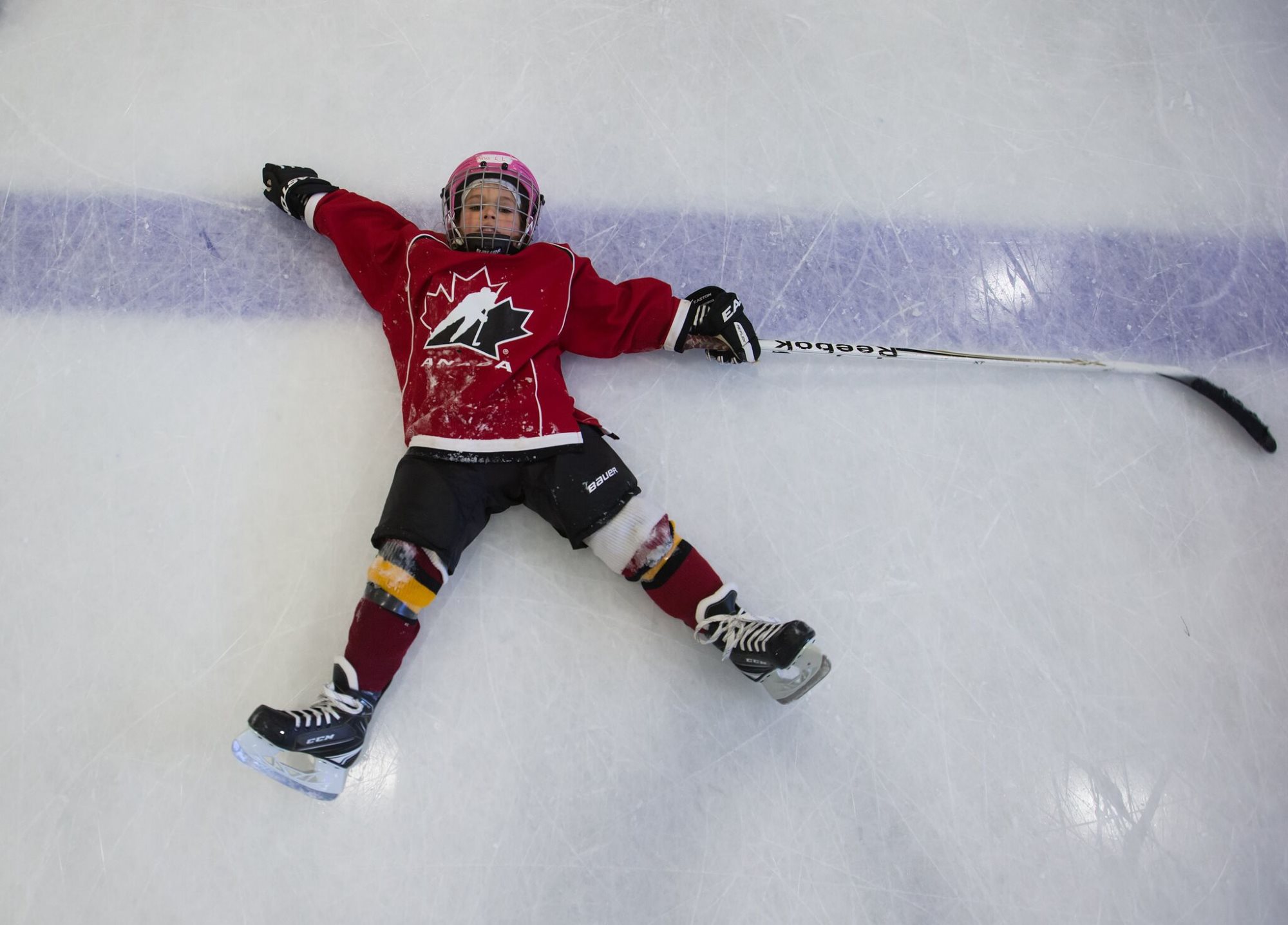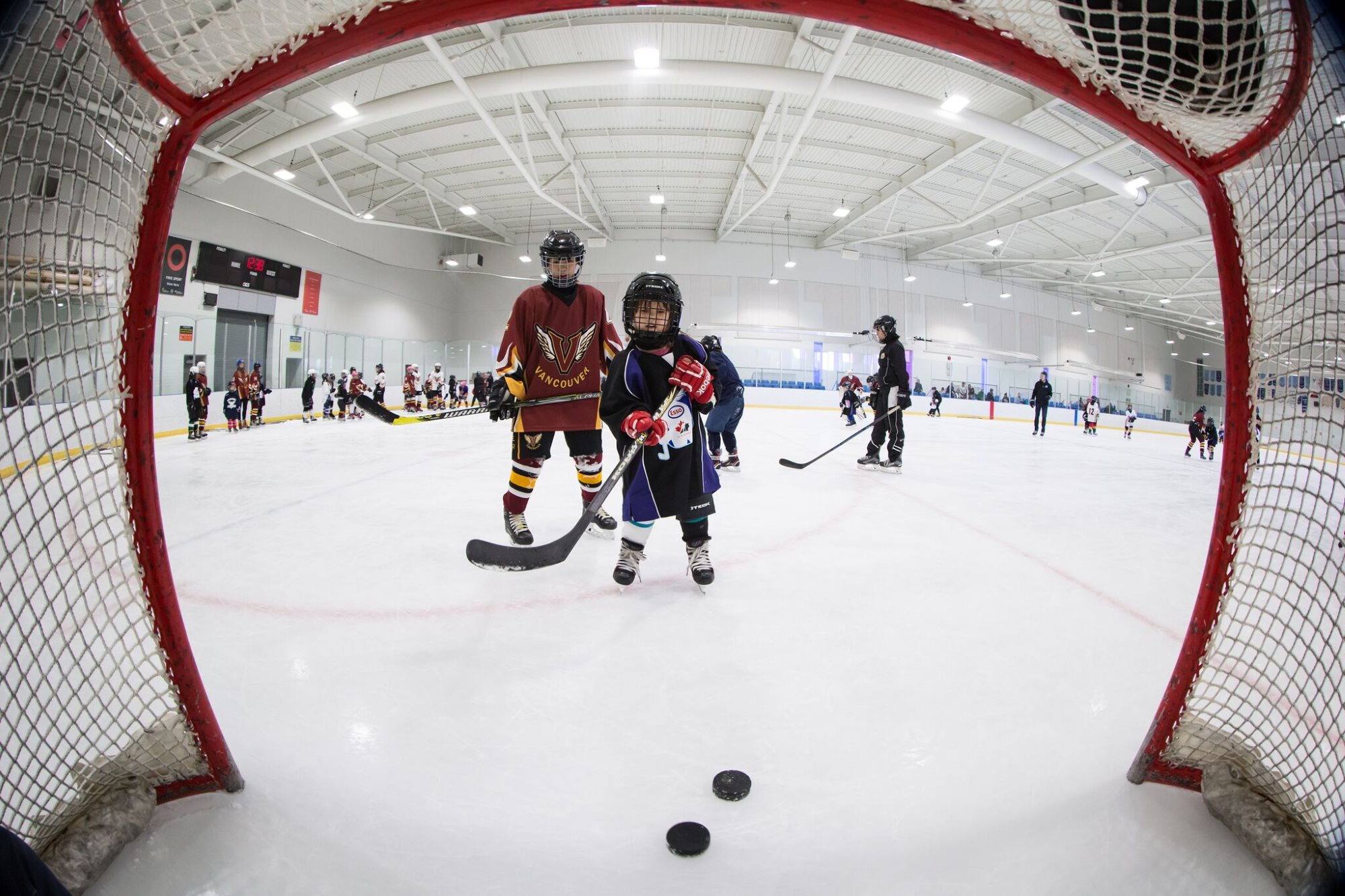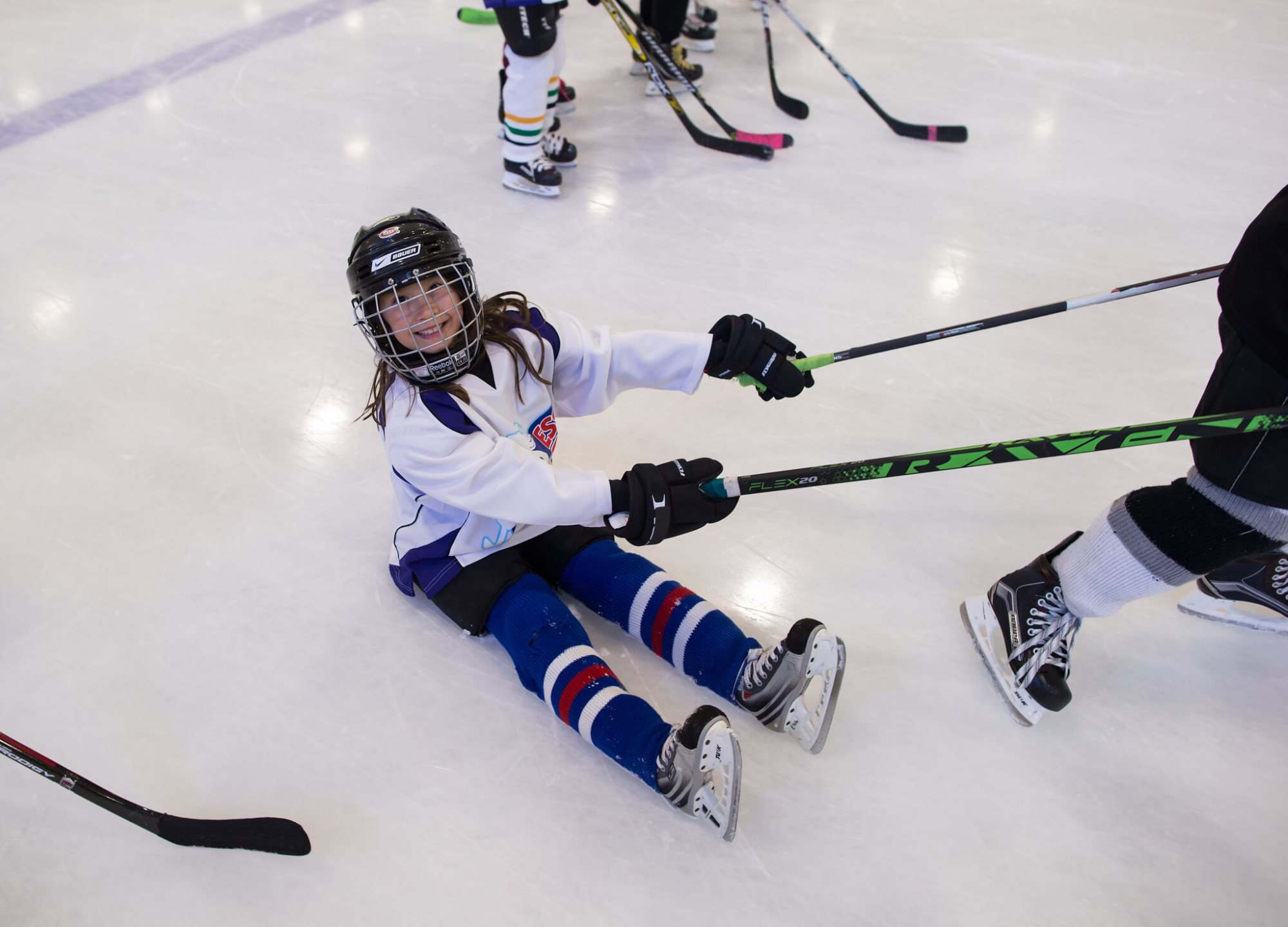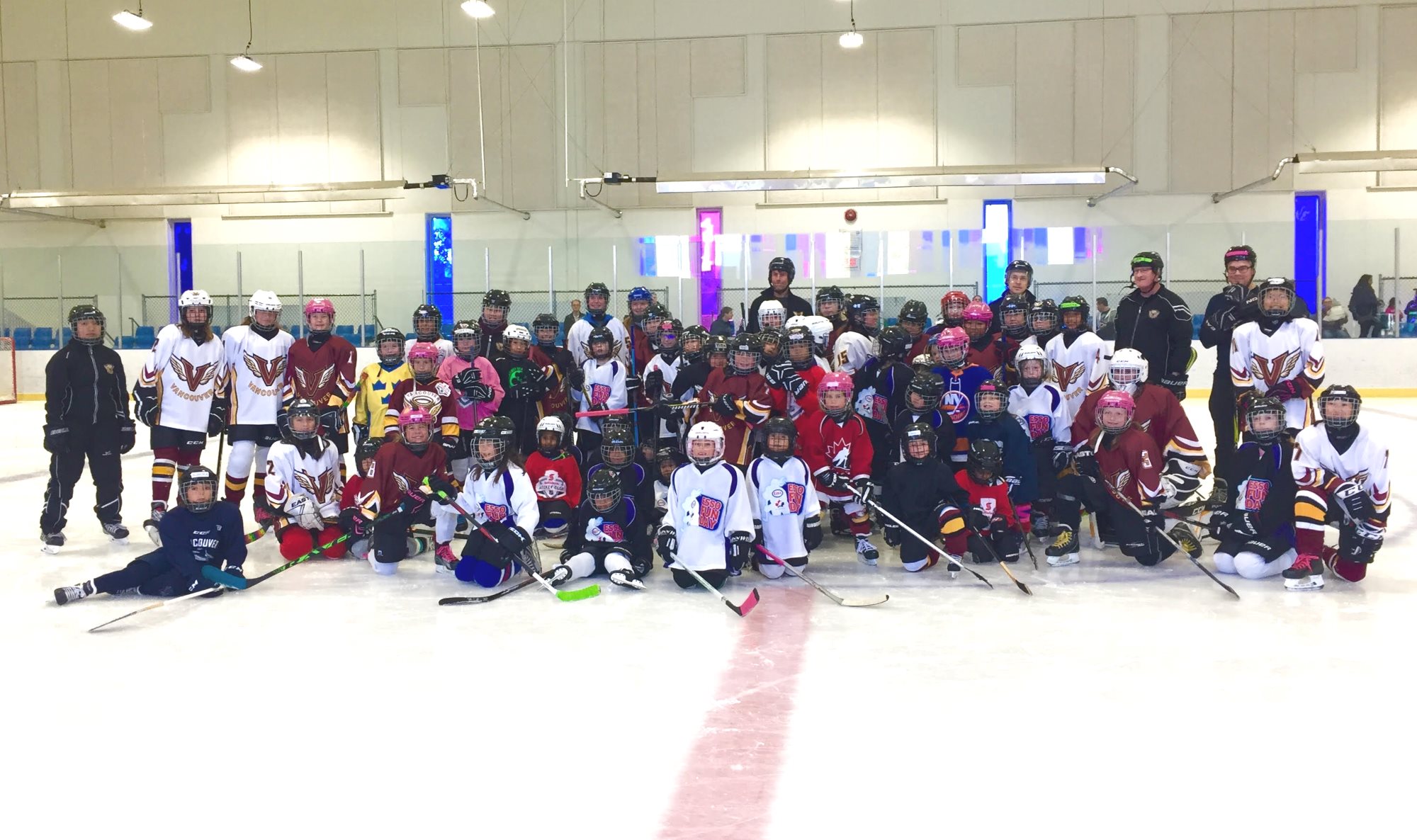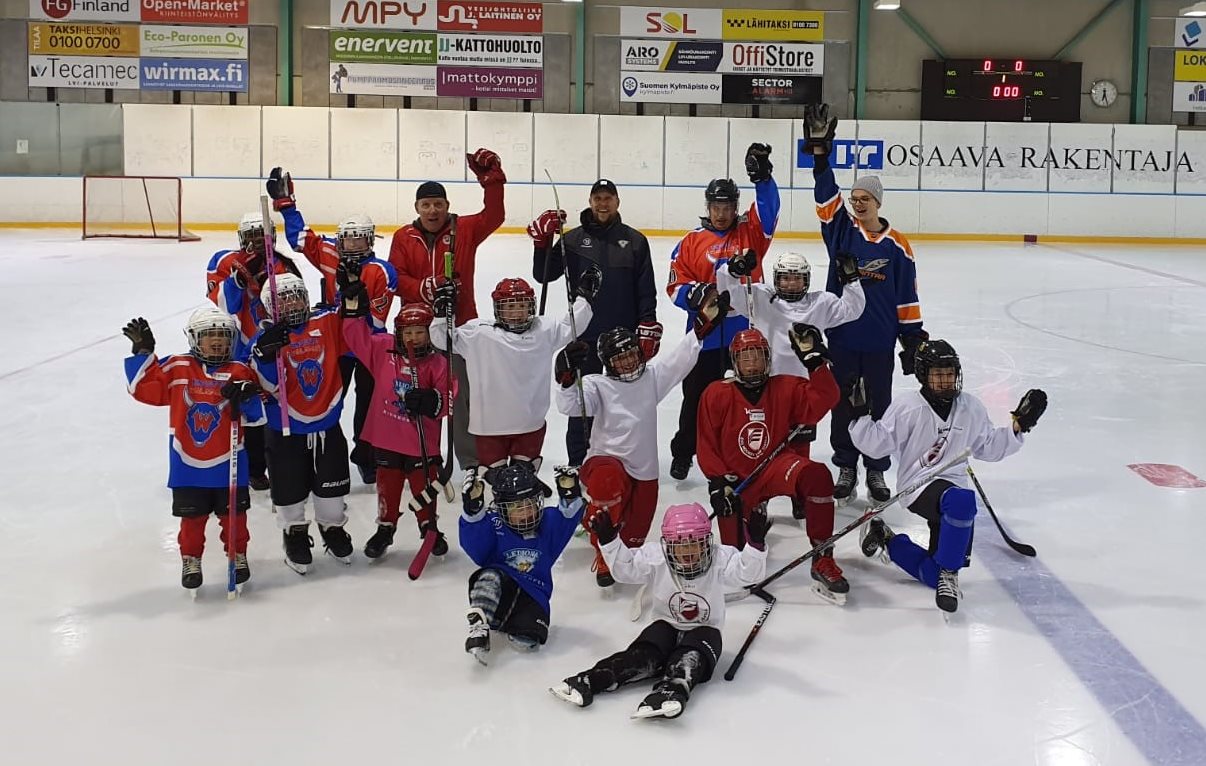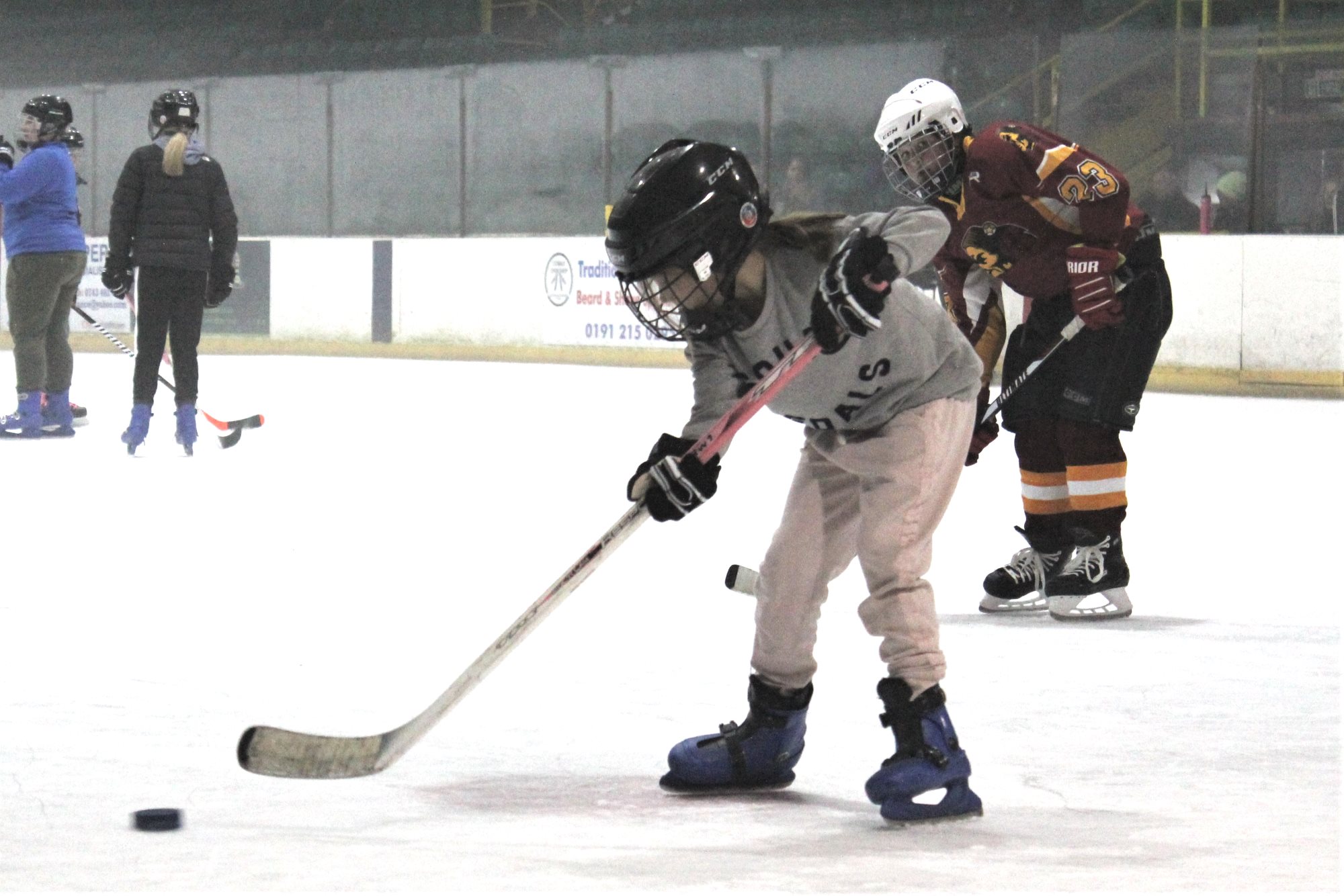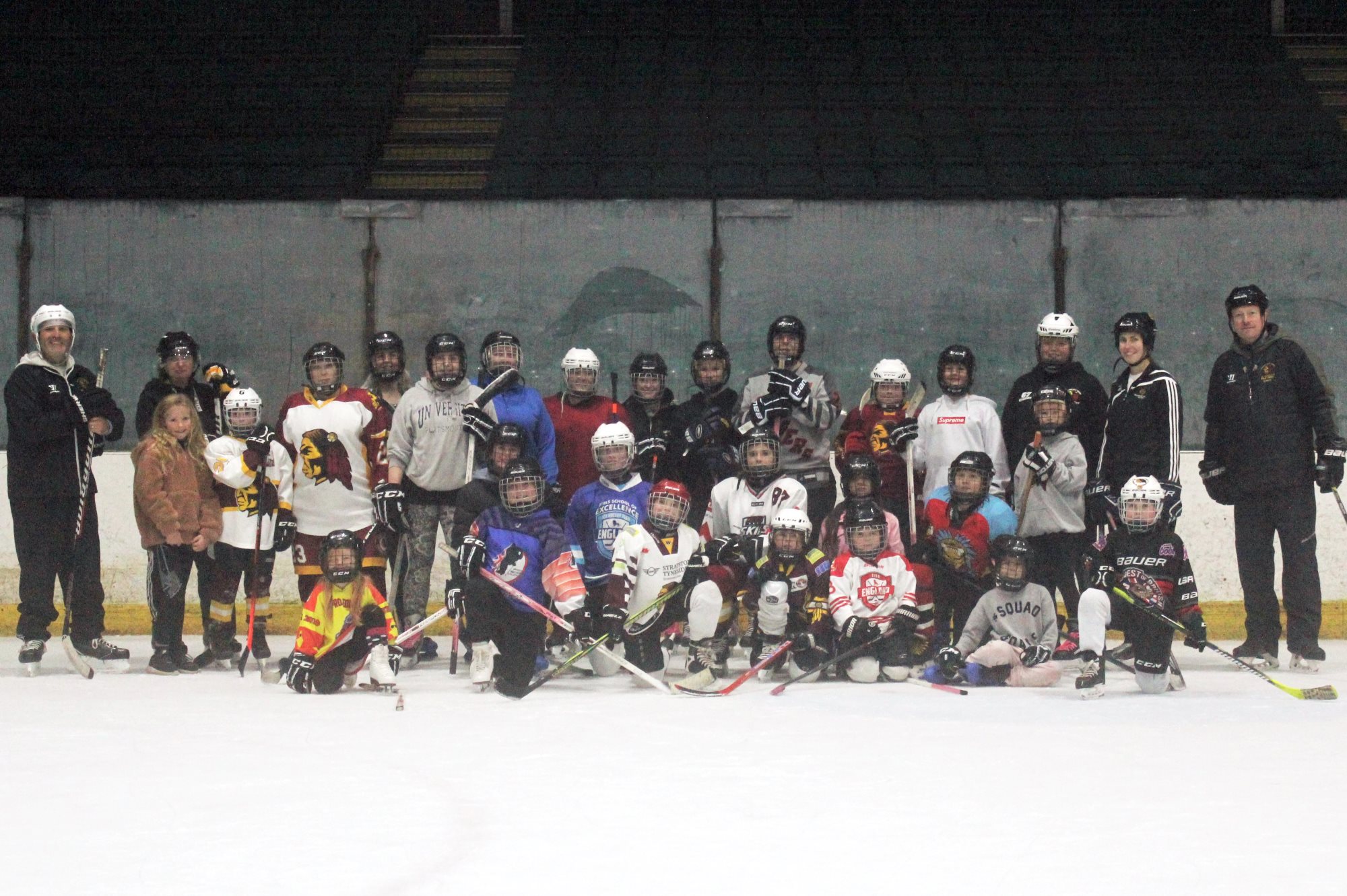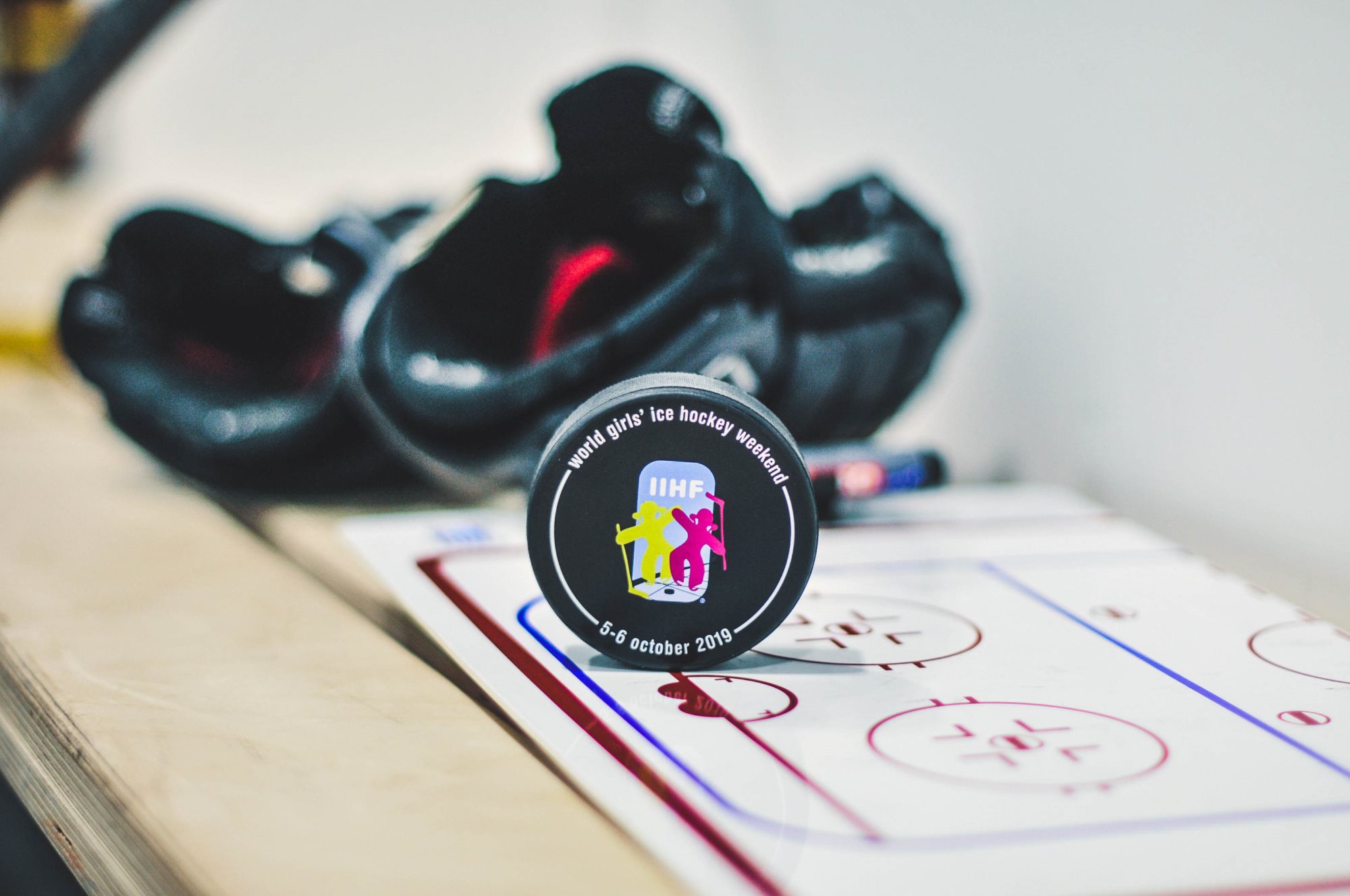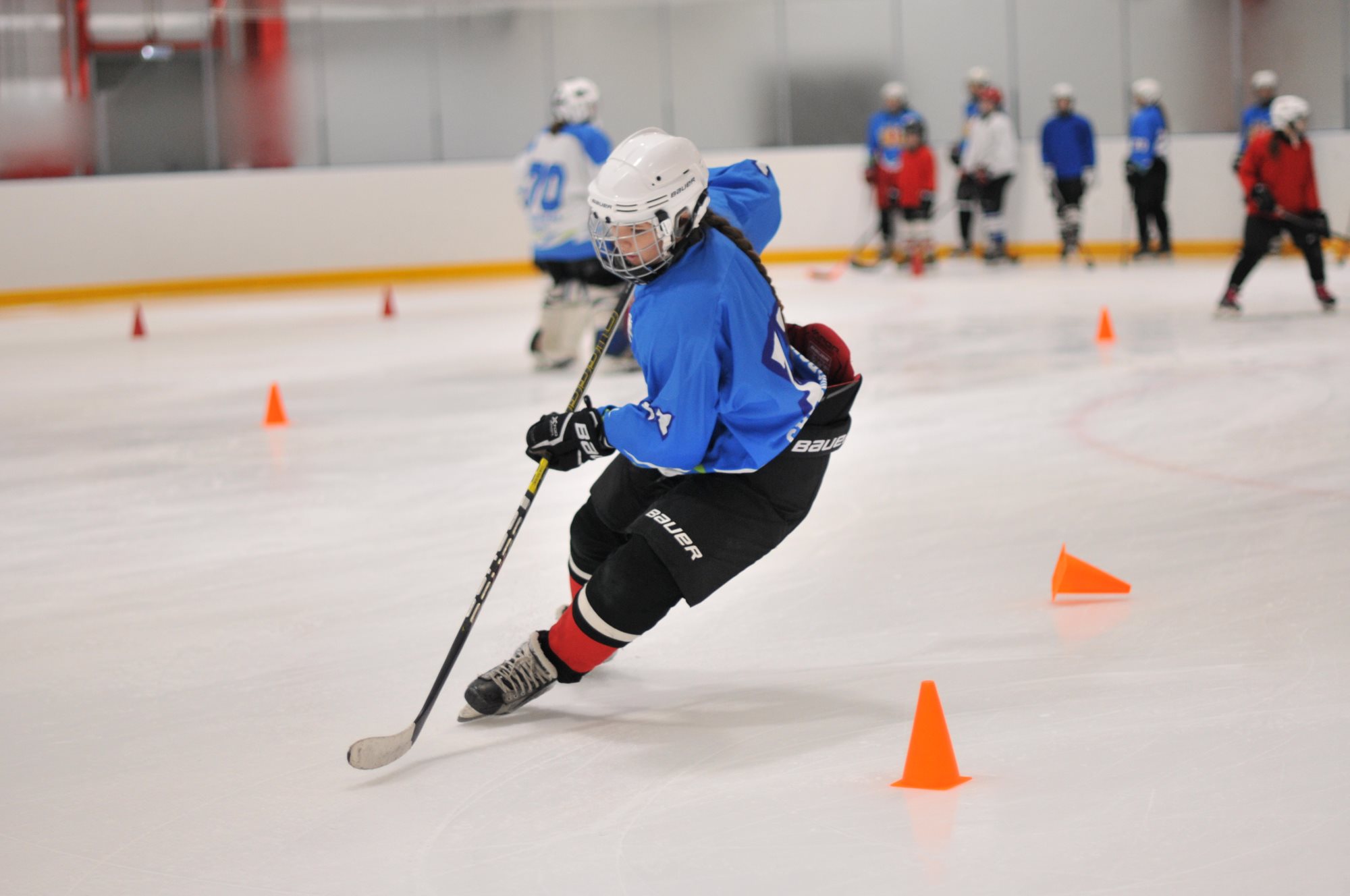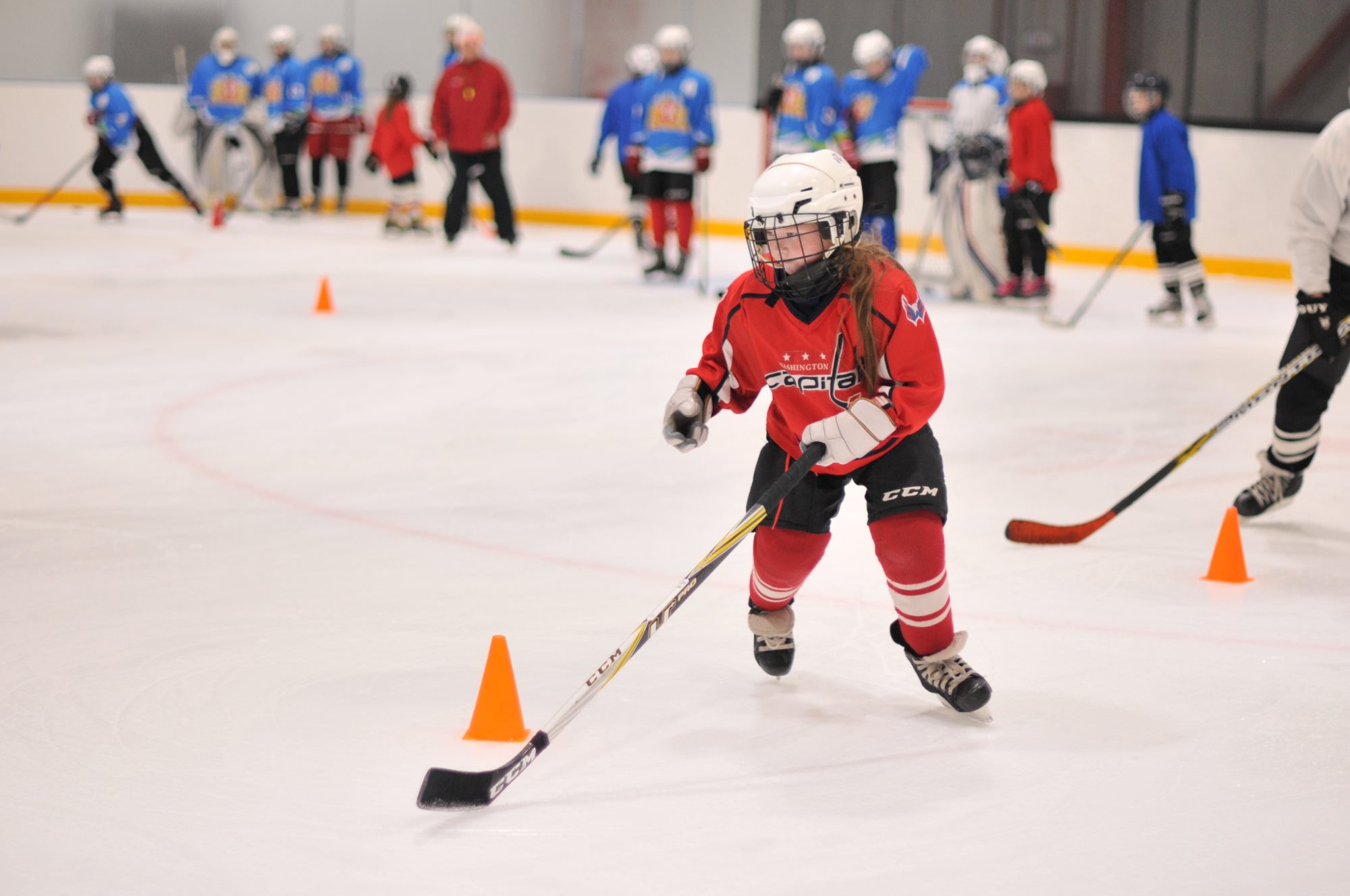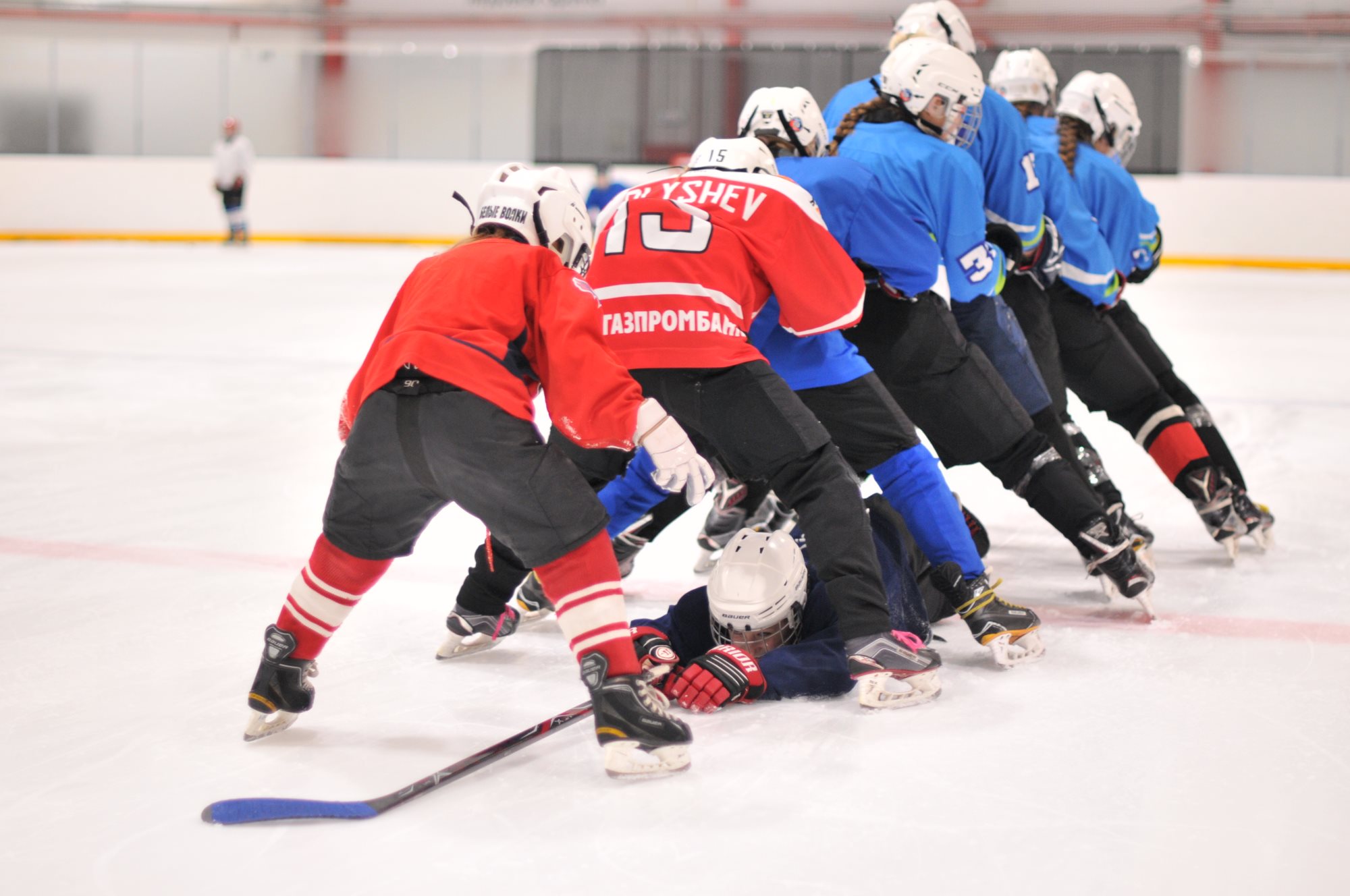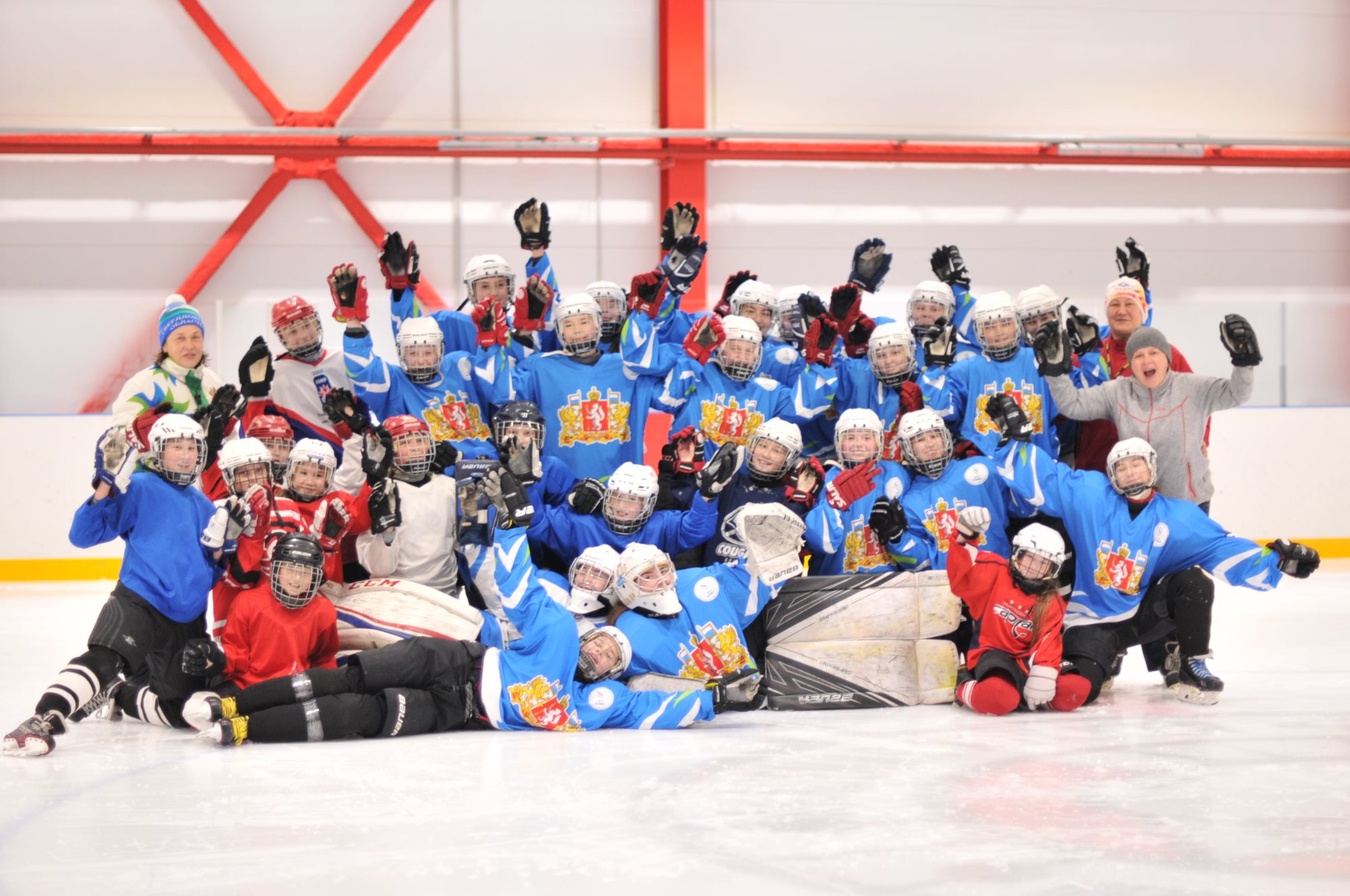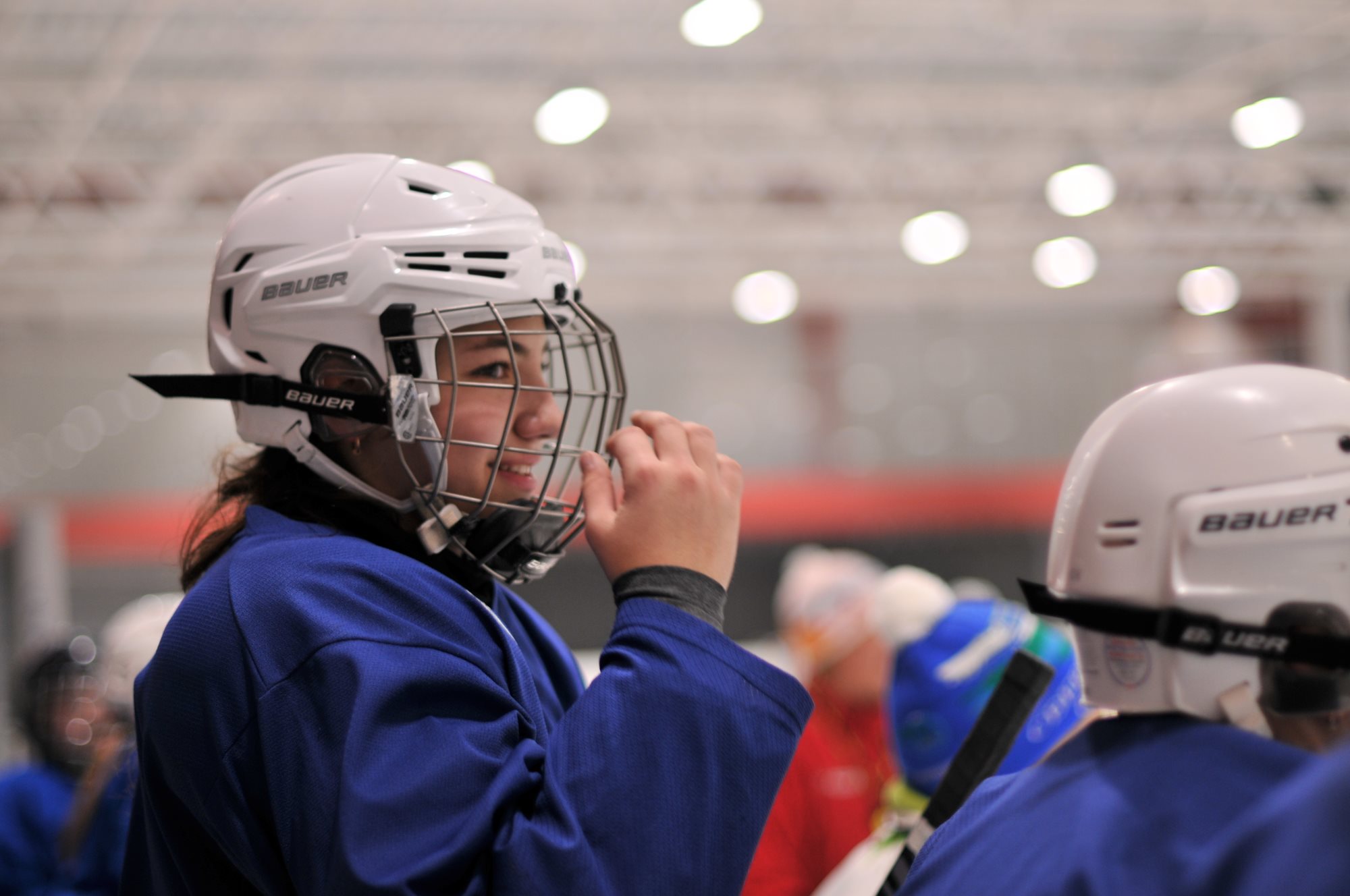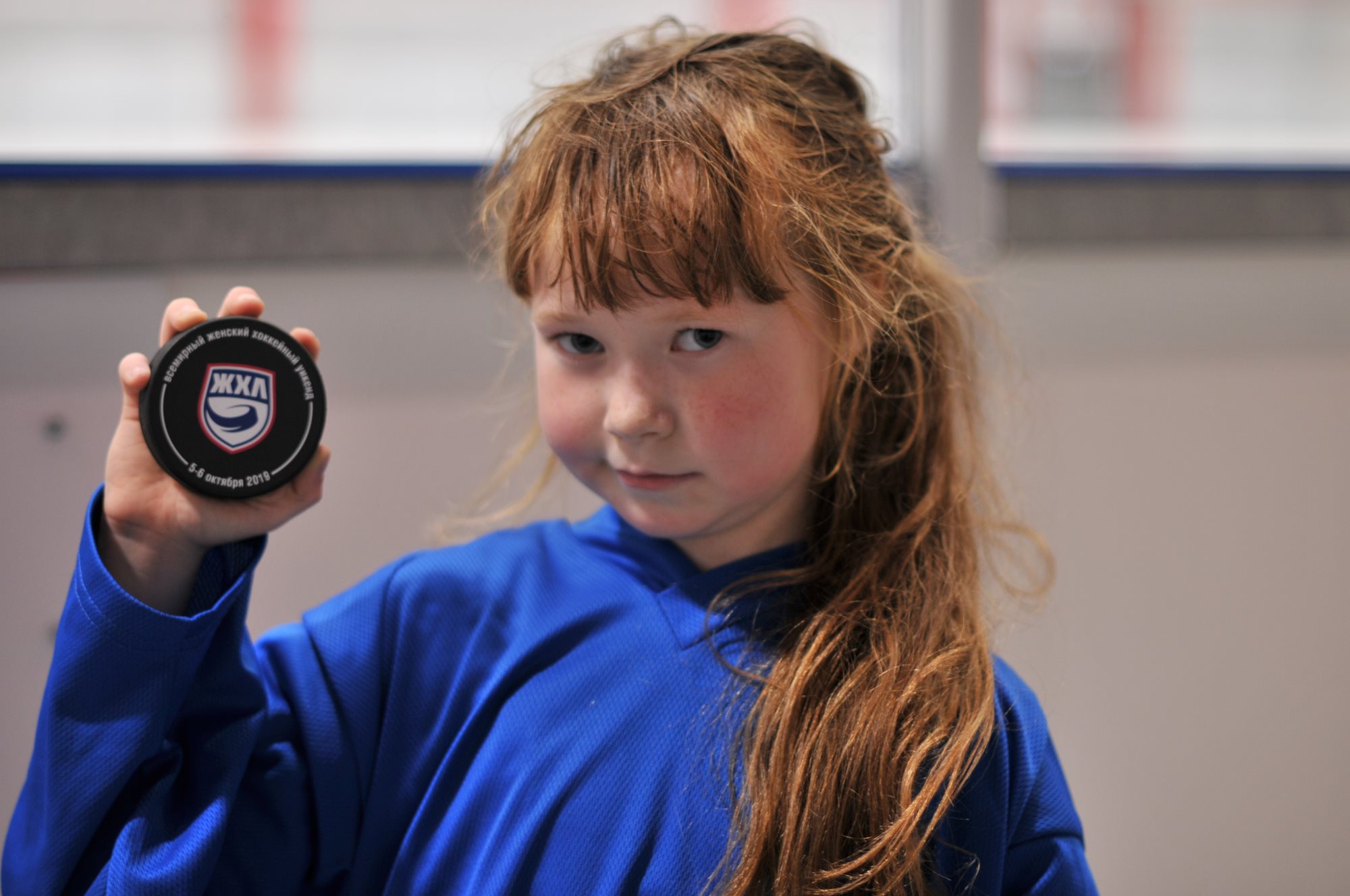Many new girls joined the juniors of the Whitley Bay Junior Ice Hockey Club for the World Girls’ Ice Hockey Weekend.
photo: Andy Potts
Does the World Girls’ Ice Hockey Weekend really get people into the sport? Best ask the kids taking part. For my daughter, Alicia, this year’s event came a couple of weeks after her third birthday and thus, for the first time, she was eligible to take part under English Ice Hockey Association regulations. It was a daunting experience, especially for Dad: although she’s been to hockey games – and watched plenty more online streams while yelling ‘Bash! Bash!’ – she had never been on the ice before.
Watching the figure skaters doing their stuff before the hockey session was exciting, but also a little intimidating. The prospect of being handed over to a coach, put in a helmet and asked to do something completely new was, briefly, overwhelming. However, when the time came for the hockey players to hop over the boards, she decided she’d go with them but only if Dad joined in. Cue a rush to get everyone in skates and a tentative trot onto the ice. Lots of support from the Whitley Bay coaches had Alicia (and Dad) upright and moving forwards, albeit cautiously and with the help of a frame. Confidence gained, we tried again without the frame and managed to get along the boards without falling over. Small steps, but a huge sense of achievement. It might be some time before we’re troubling the junior rosters in Whitley Bay, but it won’t be too long before we’re back on the ice. When Mummy came home, the ice was all Alicia wanted to talk about. “Would you like to go again?”; “Yes. Pleeeeeaaaaaaaaaase!”
The 2019 event was the second time the World Girls’ Ice Hockey Weekend had come to Whitley Bay. The club, based in North Tyneside, once boasted a certain Mike Babcock as player-coach of the Warriors. Today, the Squaws are the region’s only team in the English women’s leagues and the Bay’s junior section is working hard to encourage girls to get involved in the game. It’s not always easy: this is a football-mad region where even the sons of British hockey legend David Longstaff, the first player to win 100 GB caps, grew up to become pro footballers with nearby Newcastle United rather than trying to fill their father’s skates.
The signs are that the sport is making an impact again, though. Saturday’s session attracted about 35 youngsters including members of the local junior teams and first timers. The atmosphere was inclusive and supportive – literally anyone, regardless of ability or prior experience, was encouraged to do what they could.
Whitley Bay has a growing pedigree in women’s hockey. The Squaws currently play in the WNIHL Premier League, the second tier of the national championship, but provided three players to the GB roster that won silver at last season’s Women’s World Championship Division IIA. There are more prospects in the pipeline, representing their country at U18 level. That’s what Ian Traill, chair of the EIHA’s North Regional Junior League Management team and treasurer of Whitley Bay Ice Hockey, wants to build on.
“This is a great sport and there are great opportunities for our girls,” he said. “We want to grow that, we want to get a U16 team for the Squaws.
“Whether we like it or not, hockey is still perceived as being a boys’ game – but women’s ice hockey is one of the fastest-growing sports worldwide. In North America you find clubs with literally hundreds of girl players. It’s just trying to raise awareness and get people involved.
“Once you get to a certain number, I believe there’s a kind of tipping point; you reach that and girls playing hockey becomes normal, their friends start wanting to come and get involved.”
And the girls’ program in Whitley Bay has helped overturn a few stereotypes along the way. Miley Fraser, one of the players involved in Saturday’s session, ‘virtually grew up at the rink’ as big brother Thomas worked his way up to signing a contract with the Warriors for the current season. Mum Jade Dalton-Cooper said: “We weren’t sure if she’d take to it at first, we thought maybe she’d prefer the figure skating, but she tried it and she loved it. She enjoys the rough and tumble of the hockey side.
“Now it brings us together as a family. The kids both play and we all come together to watch the Warriors games.”
Last year’s WGIHW event boosted the number of girls in the club; in 2019 there were more youngsters involved on the day and – hopefully – more who will be back in the future. The club has coaching depth – more level 2 qualified coaches than most in the country – and a sense of community that has forged growing links with schools in the region and a sense of pride that a one-time hockey hotbed might be starting a resurgence.
“It makes a change to get something up here in the North East,” Traill added. “We lost some of our biggest teams when Durham went, then the Vipers went. Now there’s only us and Billingham Stars still playing league hockey and only our Squaws still going on the women’s side.
“Billingham’s senior women folded about a year ago but since then we’ve tried to come together to put out girls’ teams at different age groups. We’ll be doing that again. We have to forget about those old local rivalries and worry about getting the girls on the ice and building the sport.”
For Ryan Rathbone, who leads the EIHA’s Girls Learn to Play program, events like Saturday’s in Whitley Bay and Friday night’s in Nottingham are vital to keep nurturing the grassroots of the game.
“These are massively important,” he said. “It’s such a big thing to give that opportunity to come along and try it without having to pay out for all the equipment, all the big costs that can be associated with the game. It’s good to give that opportunity to get girls playing, get them hooked and let them take it from there.”
The long-term goal is to see more clubs staging events like this, especially while British hockey enjoys the rare high of its men’s team competing at the highest level in the World Championship.
“GB’s success is raising the profile of the sport in this country,” Rathbone added. “We’re no longer struggling at the bottom, we have a team competing at the top level, playing some of the best teams in the world. It feels like we’re proving ourselves on the international stage and now we want to use that to get more people involved and make it sustainable rather than see it all disappear in a short space of time.”
Watching the figure skaters doing their stuff before the hockey session was exciting, but also a little intimidating. The prospect of being handed over to a coach, put in a helmet and asked to do something completely new was, briefly, overwhelming. However, when the time came for the hockey players to hop over the boards, she decided she’d go with them but only if Dad joined in. Cue a rush to get everyone in skates and a tentative trot onto the ice. Lots of support from the Whitley Bay coaches had Alicia (and Dad) upright and moving forwards, albeit cautiously and with the help of a frame. Confidence gained, we tried again without the frame and managed to get along the boards without falling over. Small steps, but a huge sense of achievement. It might be some time before we’re troubling the junior rosters in Whitley Bay, but it won’t be too long before we’re back on the ice. When Mummy came home, the ice was all Alicia wanted to talk about. “Would you like to go again?”; “Yes. Pleeeeeaaaaaaaaaase!”
The 2019 event was the second time the World Girls’ Ice Hockey Weekend had come to Whitley Bay. The club, based in North Tyneside, once boasted a certain Mike Babcock as player-coach of the Warriors. Today, the Squaws are the region’s only team in the English women’s leagues and the Bay’s junior section is working hard to encourage girls to get involved in the game. It’s not always easy: this is a football-mad region where even the sons of British hockey legend David Longstaff, the first player to win 100 GB caps, grew up to become pro footballers with nearby Newcastle United rather than trying to fill their father’s skates.
The signs are that the sport is making an impact again, though. Saturday’s session attracted about 35 youngsters including members of the local junior teams and first timers. The atmosphere was inclusive and supportive – literally anyone, regardless of ability or prior experience, was encouraged to do what they could.
Whitley Bay has a growing pedigree in women’s hockey. The Squaws currently play in the WNIHL Premier League, the second tier of the national championship, but provided three players to the GB roster that won silver at last season’s Women’s World Championship Division IIA. There are more prospects in the pipeline, representing their country at U18 level. That’s what Ian Traill, chair of the EIHA’s North Regional Junior League Management team and treasurer of Whitley Bay Ice Hockey, wants to build on.
“This is a great sport and there are great opportunities for our girls,” he said. “We want to grow that, we want to get a U16 team for the Squaws.
“Whether we like it or not, hockey is still perceived as being a boys’ game – but women’s ice hockey is one of the fastest-growing sports worldwide. In North America you find clubs with literally hundreds of girl players. It’s just trying to raise awareness and get people involved.
“Once you get to a certain number, I believe there’s a kind of tipping point; you reach that and girls playing hockey becomes normal, their friends start wanting to come and get involved.”
And the girls’ program in Whitley Bay has helped overturn a few stereotypes along the way. Miley Fraser, one of the players involved in Saturday’s session, ‘virtually grew up at the rink’ as big brother Thomas worked his way up to signing a contract with the Warriors for the current season. Mum Jade Dalton-Cooper said: “We weren’t sure if she’d take to it at first, we thought maybe she’d prefer the figure skating, but she tried it and she loved it. She enjoys the rough and tumble of the hockey side.
“Now it brings us together as a family. The kids both play and we all come together to watch the Warriors games.”
Last year’s WGIHW event boosted the number of girls in the club; in 2019 there were more youngsters involved on the day and – hopefully – more who will be back in the future. The club has coaching depth – more level 2 qualified coaches than most in the country – and a sense of community that has forged growing links with schools in the region and a sense of pride that a one-time hockey hotbed might be starting a resurgence.
“It makes a change to get something up here in the North East,” Traill added. “We lost some of our biggest teams when Durham went, then the Vipers went. Now there’s only us and Billingham Stars still playing league hockey and only our Squaws still going on the women’s side.
“Billingham’s senior women folded about a year ago but since then we’ve tried to come together to put out girls’ teams at different age groups. We’ll be doing that again. We have to forget about those old local rivalries and worry about getting the girls on the ice and building the sport.”
For Ryan Rathbone, who leads the EIHA’s Girls Learn to Play program, events like Saturday’s in Whitley Bay and Friday night’s in Nottingham are vital to keep nurturing the grassroots of the game.
“These are massively important,” he said. “It’s such a big thing to give that opportunity to come along and try it without having to pay out for all the equipment, all the big costs that can be associated with the game. It’s good to give that opportunity to get girls playing, get them hooked and let them take it from there.”
The long-term goal is to see more clubs staging events like this, especially while British hockey enjoys the rare high of its men’s team competing at the highest level in the World Championship.
“GB’s success is raising the profile of the sport in this country,” Rathbone added. “We’re no longer struggling at the bottom, we have a team competing at the top level, playing some of the best teams in the world. It feels like we’re proving ourselves on the international stage and now we want to use that to get more people involved and make it sustainable rather than see it all disappear in a short space of time.”
2019 World Girls' Ice Hockey Weekend
OF

